







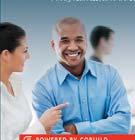


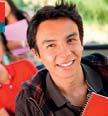



Wednesday 2
APRIL
Post-IELTS writing: helping students to understand and meet academic expectations
Els Van Geyte
What do you say after “Hello”?
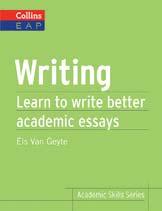
Successful networking techniques
Barry Tomalin
Sheila Thorn
Thursday 3 APRIL A fresh approach to advanced listening practice materials
Friday 4 APRIL
Saturday 5 APRIL
First English Words: What can pre-schoolers do?
Hans Mol and Niki Joseph
The Vocabulary Organizer: a new way to record lexis
Pete Sharma
Amazing People Teach English: new graded readers from Collins
Andy Cowle




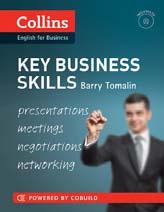

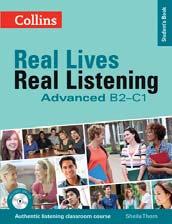
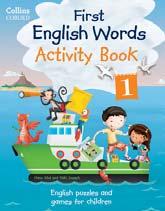


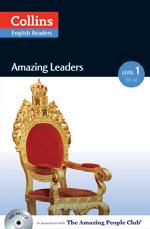


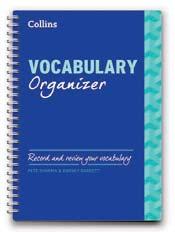
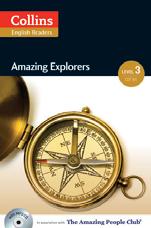











Join our authors at IATEFL 2014! www.collinselt.com @CollinsELT /collinselt Come to the Collins stand (32&39) to find out what
can win this year!
you

-1Contents Index Page Welcome from the IATEFL President ……………………………..…..…………................................. 2 Pre-Conference Events and Associates’ Day..………………………………………........................... 4 General Information…………………………………………………………………...................................... 5-14 IATEFL Scholarships and Winners........................................................................................ 16-21 Thank You to our Sponsors ............................................................……………………................ 23-25 What’s New? ……………………………………………...……………………………………….......................... 26 Daytime Tours & Evening Events …..……………………….....………............................................. 27-30 ELT Resources Exhibition Floorplan....……………....………………………….................................. On the Exhibition divider List of ELT Resources Exhibitors……………………....………………………….................................. 31 Timetable of SIG and Associate representatives at the exhibition stand ………………………… 32 ELT Resources Exhibitors’ Details...………………………………………………….............................. 33-40 IATEFL Special Interest Groups (SIGs) Information…………………………………......................... 41 SIG Days ............…………………………………………………………………………………...….................... 42-49 C o n f e r e n c e P r o g r a m m e 5 1 -1 7 7 - P o s t e r P re s e n t a t i o n s 5 1 -5 7 - W e d n e s d a y 2 A p ri l . . . … … … … … … … … … … … … … … … … … … … … … … . . . . . . . . . . . . . . . . . … … . . . … … . 5 9 -9 1 - T h u r s d a y 3 A p r i l . . . . . . . . . . . … … … … … … … … … … … … … … … … … … … … … … … . . . … … . . . . . . . . . . . . . . . . . 9 3 -1 2 7 - F r i d a y 4 A p r i l . . . . . . . . . . … … … … … … . . … … … … … … … … … … … … … … … … … … … … . . . . . . . . . . . . . . . . . . . . . 1 2 9 - 1 6 4 - S a t u r d a y 5 A p r i l 1 6 5 - 1 7 7 Q u i c k R e f e r e n c e p a g e s 1 7 9 - 2 2 2 Areas of Interest……………………………………………...……………...…………..................…………….. 179-187 Index of Presenters…….……………………...……………………………………………….......................... 189-203 Abbreviations, Acronyms and Initialisms for the IATEFL conference……………………………… 204-205 IATEFL Committee Members, Volunteers & Staff…………….........………………........................ 206-207 AGM Agenda & Reports…………………………….....………………………………………......................... 209-220 Day planner (for you to fill in sessions you wish to attend)....………………………….……........... 222-223 Page
………………………………………………………………………… 224 M a p s o f t h e H o l i d a y I n n H o t e l a n d t h e H I C 2 2 5 - 2 3 0 Conference Overview Pages…………………………………………………………………………................. i-iv ThisConferenceProgrammeissponsoredbyPearson -1-
for your notes – Thinking Space!
Welcome from the IATEFL President
Dear Conference Delegate,
Welcome to Harrogate! This is the third time we have held our Annual Conference in this beautiful former spa town in northern England and this year, with additional session rooms and a larger exhibition hall, we hope that your conference experience will be better than ever.
As well as an impressive array of plenary speakers including David Graddol, Kathleen Graves, Michael Hoey, Sugata Mitra and Jackie Kay, we’re pleased to be introducing several innovative features. These include an opportunity to ‘Meet the Patron’, Professor David Crystal, and an Open Space event facilitated by Adrian Underhill. They also include an exciting new session format called ‘ELT Conversation’, involving discussion between two leading ELT professionals, Jeremy Harmer and Scott Thornbury, followed by questions from the floor.
In addition to this, you also have over 500 sessions including Signature events, talks, workshops, forums, symposiums, poster presentations and early morning ‘How to …’ talks to choose from as well as the IATEFL Jobs Market and a fabulous Exhibition featuring over 50 exhibitors and packed with all the latest ELT books, products, services and resources.
This year’s conference evening programme also offers a range of lively and varied events to suit all tastes. By popular request, these include old favourites such as Pecha Kucha, Open Mic and a Quiz evening. They also feature an evening of poetry and other writing in ‘Spoken Word’ and a play, ‘Hard Times for Teachers’.
I’d like to extend huge thanks to our IATEFL Head Office staff, led by Glenda Smart, as well as to the Conference Committee, chaired by Eric Baber, and all the numerous volunteers who have made this event happen. Thanks also to the British Council whose partnership enables us to bring the conference to thousands of ELT professionals who will be joining us virtually through Harrogate Online.
Whether you’re a first-time delegate or an experienced old-hand, we hope you have a professionally inspiring and highly enjoyable few days – and please remember to complete the feedback form we’ll be sending you at the end of the conference so that we know your views and can continue to make the conference even better next time!
 CarolRead IATEFLPresident
CarolRead IATEFLPresident
IATEFL is proud to present its International Ambassadors:

Susan Barduhn, Madeleine Du Vivier, Peter Grundy, Jill Hadfield, Jeremy Harmer, Chris Kennedy, Alan Maley, Herbert Puchta, Adrian Underhill, Ron White, Marion Williams and Tessa Woodward
These include many former IATEFL Presidents and two long-term members and supporters of IATEFL, Jill Hadfield and Jeremy Harmer, who have kindly taken on the role for 2 years. You will recognise our International Ambassadors at Conference from their lanyards. Please do introduce yourself and say ‘hello’!
-2-
-2-
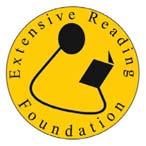
Extensive Reading Foundation Reception and Awards Ceremony
Hosted by Jeremy Harmer with music by Steve Bingham
Come and join us for drinks and nibbles to celebrate the winners of the Language Learner Literature Awards for 2013, and to hear who the finalists are for 2014.
WEDNESDAY 2 APRIL RIPLEY (Holiday Inn) 19.00 – 20.00
Young learners
Winner

The Legend of Sleepy Hollow by Washington Irving, retold by Casey Malarcher
Illustrated by Gustavo Mazali
Published by Compass
ISBN: 978-1-59966-678-5
Judges’ comments: Innovation and classic storytelling are mixed seamlessly in this story. The book includes a playlet for a class performance and wonderful illustrations.
Finalists
The Canterville Ghost by Oscar Wilde, retold by Jane Cadwallader (ELI Readers); White Fang by Jack London, retold by Jane Cadwallader (ELI Readers)
Adolescent and Adult: Beginner
Winner

The Girl with Green Eyes by John Escott
Illustrated by Dylan Gibson
Published by Oxford University Press
ISBN: 978-0-19-479434-3
Judges’ comments: Who is the girl with the green eyes? Why is she so interested in Mark? And is the man in the hotel really her stepfather? Find out when you read this story.
Finalist
The Little Match Girl by Hans Christian Andersen, retold by Bill Bowler (OUP)
Adolescent and Adult: Elementary
Winner Les Misérables by Victor Hugo, retold by Jennifer Bassett
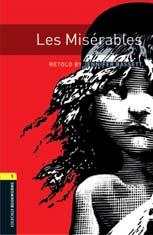
Illustrated by Giorgio Bacchin
Published by Oxford University Press
ISBN: 978-0-19-479440-4
Judges’ comments: This well-written retelling is an excellent way to get to know this great story. The ‘set-the-stage’ sections help the reader quickly catch up on important events.
Finalists
Gulliver’s Travels by Jonathan Swift, retold by Janet Borsbey and Ruth Swan (ELI Readers); Marley and Me by John Grogan, retold by Anne Collins (Pearson Education/Penguin Readers)
Adolescent and Adult: Intermediate Winner
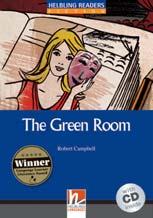
The Green Room by Robert Campbell
Illustrated by Valentina Russello
Published by Helbling Languages
ISBN: 978-3-85272-327-3
Judges’ comments: This is a story about adolescent conflicts and the growing up process. What makes it special is the clever way in which the author interweaves the main plot with the plot of the play within the story.
Finalists
The Case of the Dead Batsman by Peter Viney (Garnet Education); Owl Hall by Robert Campbell from an original idea by Robert Campbell and Lindsay Clandfield (Macmillan Education)
Adolescent and Adult: Upper-intermediate and Advanced Winner
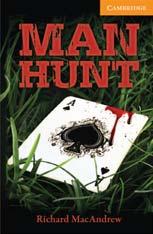
Man Hunt by Richard MacAndrew
Published by Cambridge University Press
ISBN: 978-1-107-69269-5
Judges’ comments: This original murder mystery, set in a rural community, is a compelling read for crime story enthusiasts.
Finalists
One Day by David Nicholls, retold by F H Cornish (Macmillan Education); Sherlock: A Study in Pink, by Sir Arthur Conan Doyle, adapted by Steven Moffat and retold by Paul Shipton (Scholastic)
The reception and ceremony is co-sponsored by the British Council and IATEFL, and by Cambridge English, Compass Media, ELI Publishing, Garnet Education, Helbling Languages, Macmillan Education, Oxford University Press, Pearson Education, and Richmond.
Please note that the timing allows guests to move on afterwards to the British Council event in The Royal Hall Theatre. The ERF gratefully acknowledges support from ENGLISH TEACHING professional in the preparation of publicity material.
For a wealth of information about extensive reading and the Language Learner Literature Awards please visit the Extensive Reading Foundation website: www.erfoundation.org
You can also download a free Guide to Extensive Reading http://erfoundation.org/ERF_Guide.pdf
-3-
Pre-Conference Events & Associates’ Day
Pre-Conference Events (PCEs)
Pre-Conference Events (PCEs) held on Tuesday 1st April were specifically for delegates who wish to concentrate on a particular topic. PCEs are planned as professional development days and participants receive a certificate of attendance.
Please visit www.iatefl.org for details on next year’s Pre-Conference Events (details online from May 2014) and for details on all other SIG events, held throughout the year worldwide. T
B u si n e s s E n g l i sh on How to teach business skills while teaching business English
E n g l i s h f o r S p e ci f i c P u r p o s e s on ESP and learning technologies: what can we learn?
E S ( O ) L on Bridging the gap: supporting learner progression in ES(O)L
G l o b a l I ss u e s on More than a game - socially conscious simulations and role plays for the language teacher
L e a d e r s h i p & M a n a g e m e n t on Creating a culture of resilience and preventing burnout in teachers and managers
L e a r n e r Au t o n o my on Developing learner autonomy in different learning spaces: experiences and examples
L e a r n i n g T e c h n o l o g i e s on Learning technologies in contexts
L i t e r a t u r e , M e d i a & C u l t u r a l S t u d i e s on The pity of war: an exploration of World War I in text, film and song
M a t e r i a l s W r i t i n g on Writing for digital
P r o n u n c i a t i o n on Integrating pronunciation into your teaching
R e s e a r c h on Teachers research!
T e a ch e r D e v e l o p m e n t on Opening space for critical pedagogy
T e a ch e r T ra i n i n g & E d u ca t i o n on Trainer development: more than meets the eye
T e s t i n g , E v a l u a t i o n & A s se ss me n t on Classroom testing – what do we need to consider and how can we test our learners in the best possible way for your purposes?
Y o u n g L e a r n e r s a n d T e e n a g e r s on Multilingual, multicultural and multilevel classrooms
IATEFL Associates’ Day

IATEFL has 120 Associate Members. An Associate is another Teacher Organisation (TA) that has entered into a manually beneficial relationship with IATEFL. A benefit of becoming an Associate lies in linking up to a network of international TAs, and through this, a network of language educators from all over the world and from a range of diverse backgrounds and nationalities.
The Associates’ Day on 1st April was a chance for representatives of these TAs to get together and discuss matters of common concern. One of the overarching aims of most TAs is to build professional communities.
We thank our sponsor, Cambridge English (Cambridge University Press & Cambridge English Language Assessment).
h i s y e a r , t h e S p e ci a l I n t e r e st G r o u p s w h o o rg a n i se d P r e - C o n f e r e n ce E v e n t s w e re :
-4-
GENERAL INFORMATION, SCHOLARSHIPS & SPONSORS
The following pages contain –
Pages 5-14
General information
Pages 16-21
Scholarships and this year’s winners
Pages 23-25
Conference sponsors
Page 26
What’s new?
Quiz for fun !
Q1 – On what date did Carol Read, IATEFL President, officially open the new IATEFL Head Office in Faversham ? Answer on page 203
General Information
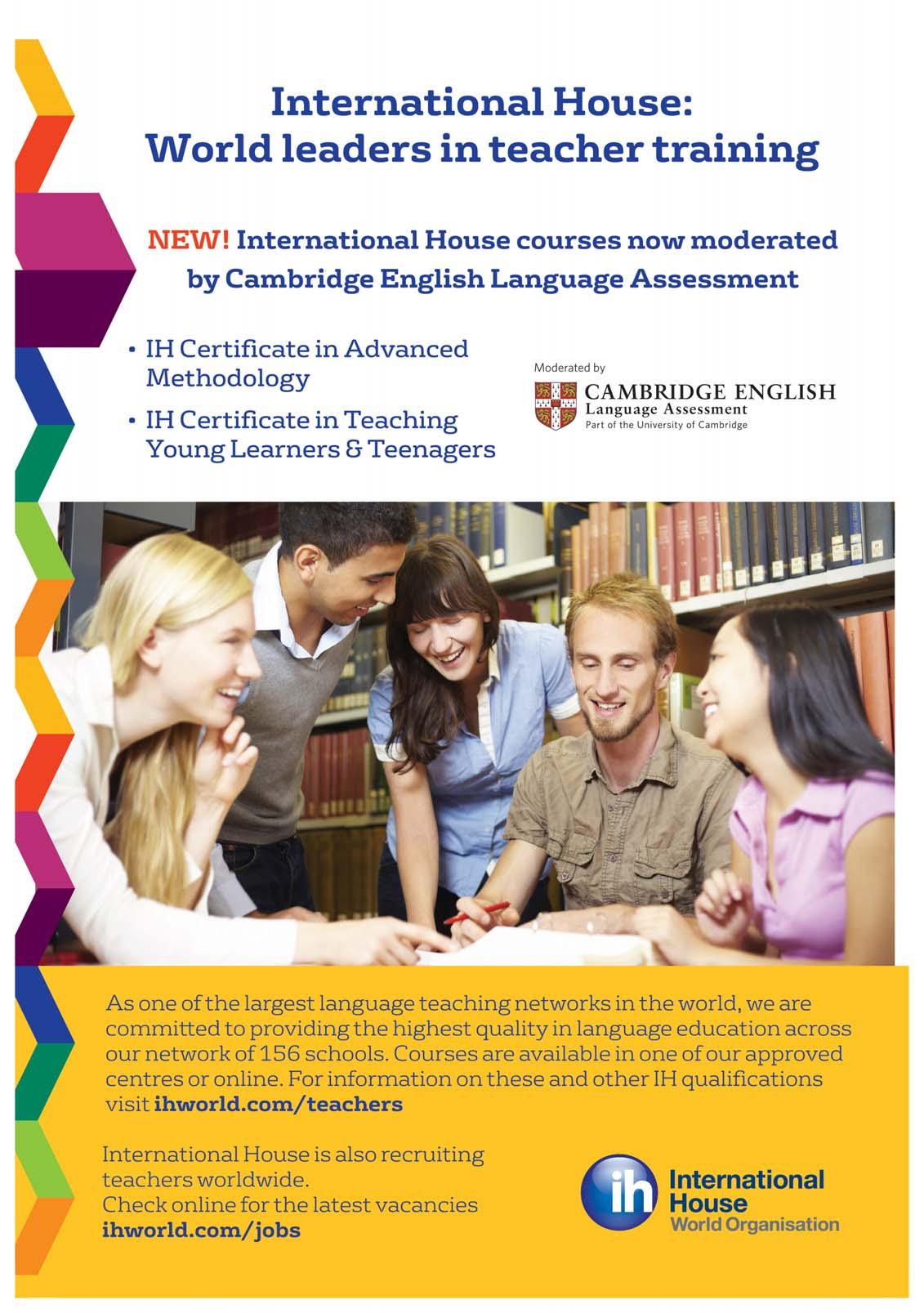
General Information
General information
Welcome
Welcome to this year's IATEFL international conference in Harrogate.
The annual conference is best known for its friendly and relaxed atmosphere, where ELT professionals from around 100 countries are able to network, discuss and socialise.
You can enjoy five plenary sessions, five signature events and around 500 sessions consisting of talks, workshops, posters, forums, SIG open forums and more.
Registration and exhibition opening times
R
Tuesday 1030-1800
Wednesday 0800-1730
Thursday 0800-1730
Friday 0800-1730
Saturday 0800-1300
Registration
Wednesday 0830-1730
Thursday 0830-1730
Friday 0830-1730
Saturday 0830-1215
Your name badge entitles you to access all sessions and evening events. Please note the room capacity for each session, shown in the left-hand column of the presentation pages. You must wear your badge at all times. Access to sessions is strictly by badge only and is on a first-come-first-served basis. You will be charged for a replacement badge if you lose yours. The ELT resources exhibition (in Hall H) is open to all.
Catering
A complimentary tea/coffee will be served in the exhibition hall during the coffee breaks. During the lunch break, there will be hot and cold food on sale in the exhibition area. Catering and bar facilities are available in the exhibition area throughout the day for delegates to purchase snacks and drinks at other times.
Administration
Photocopying facilities are provided by the HIC venue staff located behind the IATEFL registration desk. Copies will be charged at 10p per A4 page single-sided black and white, and 20p per A4 colour single-sided page (copying onto OHP transparencies is not available). We regret that no responsibility can be taken by IATEFL or the HIC in the event of machine failure.
Conference photography
The conference photographer will be taking photographs for use in the post-conference supplement for Voices, on the cover of Conference Selections, on our website, and possibly in other advertising and promotional materials. The photographer will seek permission before photographing individuals. If you do not wish your photograph to be used, please inform the photographer at the time.
-5-
e g i s t r a t i o n E x h i b i t i o n
-5-
General information
Information desk

IATEFL’s information desk (sponsored by Language Testing 123 Ltd) will be staffed by our stewards during the registration opening times to assist with general information about the conference. The information desk is located in level 4 foyer near the registration desk.
Messages
Message boards will be located in level 4 foyer. You are welcome to leave messages for other delegates. Please look frequently at the message boards for any messages which may have been left for you. P
IATEFL Projects and IH/IATEFL Training Award
We are very pleased to have recently launched two funding initiatives open to our Associates. More details can be found on www.iatefl.org/associates/iatefl-projects and www.iatefl.org/associates/iatefl-international-housetraining-award (linking to the project and IH project).
Applications closed before conference and we hope to announce the successful bids at Harrogate.
We would like to encourage all eligible Associates to apply for these or any other similar funding initiatives that may be offered in the future.
ELT resources exhibition
There is an ELT resources exhibition, open to all for the length of the conference, showing the latest published materials, teaching resources and equipment, computer software and services. Do take time to visit and re-visit the exhibition stands during the conference. You do not need to register to access the exhibition.
Look out for the competitions, discounts and, maybe, freebies! See our exhibitors’ details on pages 33-40. The exhibition is open from 0830 to 1730 Wednesday to Friday and from 0830 to 1215 on Saturday. For safety and security, please do not try to enter the exhibition outside these times.
Delegates will be given a quiz sheet to complete if they wish for the chance to win a free registration at the 2015 IATEFL Conference in Manchester. The clues will guide you to visit the participating exhibition stands!
Meet the Patron
David Crystal will be at the IATEFL exhibition stand on Wednesday 2nd April from 1300 to 1400 and from 1600 to 1700. If you would like to say hello or have a question for David, please join us there for this unique opportunity.
Annual General Meeting
The IATEFL Annual General Meeting will be held in the Auditorium on Thursday from 1255-1400. All members are invited to attend. The AGM Agenda is located on pages 106 & 209 and the AGM Reports are located on pages 210-220.
-6-
l e a s e a l s o k e e p c h e c k i n g t h e p r e s e n t a t i o n m e s s a g e b o a rd s , a l s o l o c a t e d i n l e v e l 4 f o y e r , f o r c h a n g e s a n d
a n c e l l a t i o n s t o t h e p ro g r a m m e
c
-6-
General information
Internet centre

The Internet Centre (sponsored by Oxford University Press) is situated on level 5 foyer and will be open Wednesday to Friday 0800-1800 and Saturday 0800-1215. As well as checking emails and the web, the Internet Centre is a great place to play an active part in Harrogate Online (http://iatefl.britishcouncil.org/2014).
Internet access
Wifi is available within the HIC but will be drained when simultaneously used by delegates accessing the internet and using the conference app. If you have a UK mobile phone, perhaps you’d like to use a dongle and share that access with other delegates.
To use unsuppported wifi: - connect to HIC_wireless - open your browser - click on access broadband
- use password: h h i c -
To use suppported wifi
Conference app

follow the instructions above but use the
Sponsored by ETS TOEFL® & TOEIC®, this is the third year of our conference app for iPhone/iPad and Android phone users. The free app allows you to: browse and search the Conference Programme; select individual sessions and add them to a conference planner; view a map of the conference venue and help you navigate the conference; see what others are saying about the conference via an integrated Twitter channel; share your location and thoughts via a variety of social media connections; access the IATEFL Online site; and more.

IATEFL technical help desk
Wednesday to Friday 1200 to 1500
Are you worried about using the conference technology for your presentation, or having problems with the conference wifi or the Conference App? Volunteers will be available and try to help you make sure you can use your laptop or mobile devices to get the most out of IATEFL Harrogate 2014. Please note: IATEFL cannot be held responsible for any loss or damage to your equipment or data as a result of the help and advice given to you by our volunteers.
Mobile phone charging station
New for this year, we offer the opportunity for delegates to charge their phones whilst on the go, whether they are iPhones, Blackberrys or Smartphones. The station can facilitate up to eight delegates at one time. Please note that there is a maximum of 20 minutes charge-time for each delegate. The charging station is located on stand 49 in the exhibition.
-7-
c o m p l i m e n t a r y - w i f i
o o n l y i n H a l l s D a n d H ,
password I I A T E F L 2 0 1 4 .
-7-
General information
Cloakroom
There are cloakroom facilities located on Level 4 Foyer. The cost is £2 per item, including suitcases. You must keep your cloakroom ticket if you wish to redepo sit your item on the same day at no further cost (for example, if you collect your coat at lunch time and wish to put it back in the cloakroom in the afternoon).
IATEFL jobs market
Now in its fifth year, the IATEFL Jobs Market offers a unique space where top ELT employers can find and recruit highly-qualified teachers and ELT professionals from around the world. Whether you are actively looking for a new role or simply just want to see what’s out there, the IATEFL Jobs Market is the perfect place to start. Jobseekers can review current vacancies from a range of employers, discuss a career or location move with company representatives, submit formal applications, and have interviews onsite during the conference. Visit us in Hall D to explore the latest opportunities.
To mark our 5th anniversary the Jobs Market is sponsoring a Signature Event on Wednesday at 1710 in King’s A: ELTTrainingandRecruitmentintheDigitalAge. This is a panel discussion event which is open to all delegates.
For more information please see pages 13 and 85.
The IATEFL Jobs Market demonstrates our commitment to support our members in their own professional and career development, as well as our aim to extend our reach and bring new members into the IATEFL community.
Reservation Highway
Reservation Highway will be in attendance at the conference to help you with accommodation, local events, local cuisine, things to do and see, travel information, etc. Reservation Highway is the company through which delegates were encouraged to book their accommodation.
In addition to offering help with your stay in Harrogate, Reservation Highway will also talk with you about your plans to book accommodation at next year’s IATEFL conference in Manchester.
Reservation Highway will be in the level 4 foyer on Tuesday & Wednesday from 0900 to 1600 and on Thursday & Friday from 0900 to 1300.
Certificates of attendance

Conference certificates of attendance, sponsored by Mailability, will be available for you to print on demand. Just scan your badge barcode and a copy of your certificate will be printed. (PCE certificates will be available for collection at your PCE.)
The scanning station will be on the registration desk and you can print out your conference certificate during the conference when registration is open. P
. We advise you to print your certificate during the week instead of waiting for the last minute. We
The IATEFL Conference Farewell

Thanks to the sponsorship from Collins, we are able to offer delegates tea and cake before they leave the conference. All who attend the final plenary session and closing, from 1315 to 1430 on Saturday, are welcome to join us as we say farewell until Manchester 2015!
-8-
l e a s e n o t e t h a t t h e c e rt i f i c a t e p r i n t e r w i l l b e c l o s e d a t 1 1 0 0 o n S a t u rd a y
w i l l n o t s e n d c e r t i f i c a t e s a f t e r t h e e v e n t .
-8-
General information
Your feedback
Your feedback on this conference will be a great help in planning next year’s conference. We would be grateful if you could complete a short survey to let us know what to keep and what to change. We will email a link to the online survey to all delegates at the end of the conference. All completed feedback entries received by Friday 18th April will be entered into a draw for a free registration for the next IATEFL conference in Manchester in 2015 (prize not transferable to another conference).
General
Please turn your mobile phone/cell phone to silent during sessions. Since 2007, smoking is prohibited inside all buildings in the UK. We regret that no responsibility can be taken by IATEFL for the loss of personal belongings or for accidents.
Important Programme note
This Conference Programme contains full information on the academic sessions. This information replaces the provisional Preview of Presentations listed in the Preview Brochure that was available online earlier this year. The information contained in the Preview Brochure is no longer current.
Programme changes and cancellations
Changes made to the programme after the printing of this Conference Programme will be displayed on notice boards located in the Level 4 Foyer Please check the presentation message boards frequently for lastminute changes and cancellations.
Session timings
We are pleased to offer a programme of over 500 sessions. However, to enable the smooth running and prompt start times of all sessions, speakers and delegates must vacate session rooms immediately at each session end time. IATEFL and the venue require time between sessions to change the set-up in rooms, delegates must be allowed to reach their next session on time, and the next speaker in the room needs time to set up. Thank you for your cooperation.
Interactive Language Fair
Introduced in Harrogate 2010, this is our 5 th Interactive Language Fair, taking place on Friday from 1335 to 1535 in King’s A. This is an event not to miss ... and is the conference format of the future! 19 presenters race through thumbnail outlines of presentations on a wide variety of topics and then invite you to explore their interests with them. The presenters will have individual tables and participants can then join them to discuss their presentation in more detail. The presenters will use posters, realia, handouts and a wide range of interactive computer and paper-based materials. A feast of presentations in a single two-hour interactive format.
Tribute session
The tribute session is an opportunity to remember colleagues who've died during the year since the last conference. If you've lost a colleague or former colleague, you'll have an opportunity to say a few words in their memory and, if you wish, to bring along a memento (book, teaching materials, etc.). Or you may just want to come to the session to hear about colleagues who are no longer with us, and perhaps to add any memories you may have. The tribute session will take place on Thursday 3rd April from 1710 to 1815 in Hall Qa.
-9-
-9-
General information
Open Space event
Thursday 1405-1635 in King’s A.
Developed in the 90s and employed both in management and academic spheres, Open Space is a new format to the IATEFL conference this year. A mini-conference in itself, Open Space gives you the chance not only to flag up and explore the topics that matter to you, but also to discover a new conference tool for use elsewhere in your professional life.
Facilitated by Adrian Underhill, participants will be invited to convene a session on whatever is professionally significant or important to them at that moment. The whole point is to come without notes or preparation and work with what fires you up at that time. After a brief introduction to the Open Space format, those who wish to will write their proposed topic(s) on post-it notes and read them out. Then by a show of hands a number of parallel sessions are immediately formed, allocated a meeting space, and participants go to the one of their choice. Afterwards in plenary the convenors feed back to the rest of the group, and then a second round of new sessions begins, either growing out of a previous session or starting afresh. Again people go to their preference, and a plenary sharing follows. The convener can lead a session if they wish, or simply host a session, which might be an exchange of views, a collecting of ideas, a new idea, a sounding off… Whatever it is, the other participants will know and have chosen to attend.
This Open Space lasts for 2½ hours which includes an overview of the methodology; setting up the first round of sessions; conducting them; feedback to all; setting up and conducting the second round of sessions, feedback and close. It is set to be thetalk of Harrogate 2014. Because of the nature of the event, it is important to join the session from the beginning and stay until the end in order to appreciate how it develops and contribute to it. In order to preserve the integrity of this complete 'conference within a conference' it won't be possible to enter after it has begun.
So, come prepared to talk about the latest (or the oldest) burning issues for you in ELT – be that the future of mobile learning, the flipped classroom or teaching the phonetics of ELF, etc. – and leave having acquired new contacts, new perspectives and a new ELT conference methodology!
British Council / IATEFL ‘Harrogate Online’


We aim to make the conference accessible to a large global community of teachers and educators, both members and non-members, through Harrogate Online. Remote delegates will be able to watch live video sessions and recorded highlights of the conference on the Harrogate Online website. Online delegates will also be able to participate in discussion forums linked to the main conference themes and interact with conference presenters via the website. Harrogate Online will also feature video interviews with conference presenters and at-venue delegates, who will share their thoughts and experiences with the online community. As coming to the conference in person isn't possible for all members, we hope that Harrogate Online will be a very good alternative for those unable to attend.
This initiative started at the 2007 Annual Conference and is brought about by collaboration between IATEFL and the British Council in line with our aim of linking, developing and supporting ELT professionals worldwide. Our sincere thanks go to the British Council for providing the infrastructure and human resources as well as the generous support without which this initiative would not be possible.
H o w y o u c a n g e t i n v o l v e d
By either accessing the web via the Internet Centre or the conference Wi-Fi, do consider playing an active part in the day-to-day proceedings by sharing photos, tweets (#IATEFL) or your reflections if you have a blog of your own; get involved with the forums, especially if you have a special interest dear to your heart.
Last year, over 80,000 teachers watched our online conference coverage. This year we hope that remote participants will get involved via the Harrogate Online website or other social media channels. A number of Associates offer the chance to attend a local event around the online conference with a teacher training focus. We look forward to offing all our remote delegates a chance to follow the conference online.
We hope you join in with IATEFL Harrogate Online to share your ideas on the IATEFL Harrogate Conference with teachers from all over the world and be a part of one of the biggest online events for teachers of English.
-10-
O n l i n e c o v e r a g e o f t h e 2 0 1 4 A n n u a l I A T E F L C o n f e r e n c e
J o i n i n a n d f o l l o w al l t h e a c t i o n a s i t h a p p e n s a t h t t p : / / i at e f l . b r i ti s h c o u n c i l . o r g / 2 0 1 4 P l e a s e n o t e t h a t n o o t h e r f i l mi n g o f s e s si o n s i s a l l o w e d . -10-
General information
Hornby scholar & alumni presentations
The name of A.S. Hornby is highly regarded in the ELT world, not only through his publications and ideas on teaching methods but also through the work of the A.S. Hornby Educational Trust, set up in 1961. This was a farsighted and generous initiative whereby a large proportion of Hornby's income was set aside to improve the teaching and learning of English as a foreign language, chiefly by providing grants to enable English teachers from overseas to come to Britain for professional training.
The Hornby scholars this year will present Howassessmentinfluencestheclassroomteachingandlearningof English.Research over several decades into the test washback and impact agrees that the content and format of English language assessment may influence classroom English teaching and learning in complex ways. This talk will investigate how English language learning is assessed in schools in countries in Africa, Asia and Latin America. It will discuss the influence of assessment on classroom teaching and learning, examine common factors and differences between the countries, and propose how assessment practices might be best used to promote learning in these contexts.
The Hornby scholars this year are:
Simon Ruiz Hernandez (Venezuela), Saraswati Doradi (Nepal), Tomas Andujar (Cuba), Rezvan Rashidiporfard (Iran), Zainab Cengiz Umaru (Nigeria), Santi Budi Lestari (Indonesia), Deepa Ellepola (Sri Lanka), Dame Diop (Senegal), Abayneh Haile Mengesha (Ethiopia), Patrick Musafiri (Rwanda). Facilitated by Martin Wedell (University of Leeds).
Three Hornby Alumni will also be presenting. The alumni are: Kuheli Mukherjee (India) presenting on Hornby Scholarship Impact on Teacher Education in West Benegal and May May Win & Tara Siddhartha (Burma) presenting on LeadingTeacherDevelopmentProgrammesinBurma.
“How To ...” track
These morning sessions aim to inform and support delegates across a range of areas they may be unfamiliar with. The sessions will take place from 0815 to 0845, giving you time to get to the plenary sessions.
This session is for new IATEFL conference participants as well as those of you who have attended many conferences ... but feel your experience could go deeper. We will analyze the programme, form learning groups for those who wish to jigsaw their conference experience, and share conference time-management tips.
Giving a presentation can be a stressful experience. This session will give you ways of organising yourself before your presentation and conducting yourself during your presentation to reduce that stress. The aim of the session is to make your presentation a more satisfying experience for you and for your participants.
This session will shape how you listen to and engage with 'research-speak' and in doing so open a philosophical and reflective dimension to your teaching away from academic jargon, beyond complex representations of data and with an eye for details that truly inform your practice.
-11-
W E D N E S D A Y 2 N D A P R I L H o w t o g e t t h e m o s t o u t o f t h i s c o n f e re n c e w i t h S u s a n Ba r d u h n ( i n K i n g ’ s A )
H o w t o g i v e a p re s e n t a t i o n a t a n i n t e r n a t i o n a l c o n f e r e n c e w i t h Bo b D i g n e n ( i n Q u e e n
s 3
’
)
H o w t o re f l e c t o n r e s e a r c h t a l k s a t t h e c o n f e re n c e w i t h D i v y a B r o c h i e r ( i n Q u e e n ’ s 5 )
-11-
General information
T H U R S D A Y 3 R D A P R I L
H o w t o b e c o m e a s u c c e s s f u l f re e l a n c e r w i t h M
n ’ s 3 )
In this session we’ll look at what’s involved in being a successful freelancer. We’ll cover these three key areas: 1) Organizational details – budgeting & finances, flexible schedule, security 2) How to get work – self-marketing & professionalizing yourself 3) How to keep work – quality control, referrals and solid admin
H o w t o w r i t e f o r IATEFL Voices a n d
5 )
In this session I will outline how to come up with an idea, choose the right publication for it and then convert it into a publishable piece. I will include examples of genres, writing styles, pertinent guidelines and tips on how to work with the editor.
This session will look at why you might want to get published in an "academic" journal, and how to go about it. The editor of ELTJournalwill share tips and suggestions for getting your work in print.
In this session, we will review the criteria that are used to decide if a conference proposal is accepted for the IATEFL Annual Conference programme. We will discuss what makes a successful proposal, both in terms of the abstract and the summary, and how to ensure that your proposal is accepted.
o w t o s e t u p a T
Are you a teacher interested in expanding your teacher network locally? Join us for tips on how to get your own teacher association started. IATEFL’s Associates’ Committee will give you practical tips gleaned from experience gathered from its over 100 associate members from all over the world. H o w t o m o v e i n t
This session will look at starting the transition from teacher to manager - including reasons why you might think about making that move, ways of developing to prepare yourself to take on new responsibilities, and issues that you might want to be aware of. Come and see what is involved.
S A T U R D A Y 5 T H A P R I L H
IATEFL Conference Selections
Are you presenting at IATEFL? If so, you may write up your session for consideration for IATEFL’s annual Conference Selections publication. The editor will provide guidance on how to prepare your report, will show examples of past submissions that were accepted for publication, and will answer any questions you have.
H
It is often a challenge to go from being a teacher to a teacher trainer. In this session, I will describe how you can develop the skills and knowledge that you need for the role, as well as formal progression routes.
You get invited to a job interview, so your paperwork must be fine. But why don’t you get the job? The 3 As: Appearance, Attitude, and Awareness of your interviewer are as important as your abilities. In this session, learn how to get yourself a AAA-rating and the job!
-12-
n
n Q u
i k e H o g a
( i
e e
e r
n g l i s h t e a c h i n g m a g a z i n e s w i t h A l i s o n S c h w e t l i c k ( i n Q u e e n ’ s
o t h
E
H o w t o g e t p u b l i s h e d i n a r e f e re e d j o u r n a l w i t h G r a h a m H a l l ( i n K i n g ’ s A )
o
t o s u b m i t a s p e a k e r p ro p o s a l w i t h M a d e l e i n e d u V i v i e r ( i n K i n g ’ s A )
F R I D A Y 4 T H A P R I L H
w
e a c h e r ' s A s s o c i a t i o n w i t h L e s K i r k h a m & A m y J o s t ( i n Q u e e n ’ s 3 )
H
o l a n g u a g e s c h o o l m a n a g e m e n t w i t h A n d y H o c k l e y ( i n Q u e e n ’ s 5 )
o w t o w r i t e s u c c e s s f u l l y f o r
w i t h T a n i a P a t t i s o n ( i n K i n g ’ s A
)
o w t o m o v e f r o m b e i n g a t e a c h e r t o b e c o m i n g a t r a i n e r w i t h S i l v a n a Ri c h a rd s o n ( i n Q u e e n ’ s 3
H o w t o b e s u c c e s s f u l i n a n E L T i n t e r v i e w w i t h T i m o t h y P h i l l i p s ( i n Qu e e n ’ s 5 )
)
-12-
General information
Signature events
The signature events are hosted by major ELT institutions and publishers. They are designed to showcase expertise and throw light on state-of-the-art thinking in a key area which is relevant to the particular institution or publisher. The signature events provide a unique opportunity for delegates to find out about upcoming trends, learn about new areas of research, and engage with well-known, international experts in exciting and often controversial topics. The signature events vary in format and include talks, panel discussions and debates. There are five signature events during the conference:

Panellists:
Facilitator:
While English Medium Instruction (EMI) in education systems has been the norm in former British colonies for many years, recent years have seen large growth in EMI in many other countries around the world. Universities from Italy to Indonesia, from Rwanda to Kazakhstan, rush to teach more and more courses in English medium, driven by the desire to recruit international students and to prepare home students for an international future. At school level EMI is popular not only in the traditional private sector, but is finding its way into public educational systems. What are the driving forces behind this? Is this trend inevitable in the long-term, and a good thing? When is EMI appropriate and how can it be made successful? Who are the winners and the losers, in terms of people and languages? This session will surface some political and educational issues and controversies, drawing on the views of an expert panel, with ample time for contributions from the floor. ( ( S e e p a g e 6 6 )

Moderator: N i k Pe a c h y (Learning Technology Consultant, Writer, Trainer)
Panellists:
A i s h a W a l k e r (University of Leeds, MA in TESOL and ICT Programme Director)
P e t e S h a rm a (Pete Sharma Associates)
W a y n e J o n e s (Director, Academic Bridge Programme, Zayed University UAE)
J u l i a n K e n n y (Head of Teacher Development, Trinity College London)
M a r k S im p s o n (Business Development Director, Immerse Learning [formerly Language Lab])
Digital and online material has become an essential part of the ELT mix and publishers invest millions to introduce ever more sophisticated ways of taking learning in new directions. There are real benefits to this, but are we in danger of ignoring a very important person in the room: the teacher?
More to the point, are we investing in the right amount of training, not only to help teachers understand new technology but, crucially, to ensure digital materials support rather than distract from the fundamental process of English language learning?
In this panel discussion with leading specialists in this area, we will address these questions and more. We’ll explore how the age of digital ELT is affecting the skills and capabilities employers need when recruiting new staff… and look to the horizon to assess how technology will continue to change teaching and learning in the future. ( S e e p a g e 8 5 )
-13-
B R I T I S H C O U N C I L S I G NA T U R E E V E N T E n g l i s h M e d i u m I n st r u c t i o n : C u r e o r C u r s e?
J e n n i f e r J e n k i n s ( U n i ve r s i t y o f S o u t h a m p t o n , U K ) , N a z R a s s o o l ( U n i v e r s i t y o f R e a d i n g , U K ) , Y . L . T e re s a T i n g ( U n i v e r s i t y o f C a l a b ri a , I t a l y ) & E d d i e W i l l i a m s ( B a n g o r U n i ve rs i t y , U K )
J o h n Kn a g g ( B r i t i s h C o u n c i l )
I A T E F L J O B S M A R KE T S I G NA T U R E E V E N T E L T
r u i t m en t an d T r a i n i n g i n t h e D i gi t a l A g e
R ec
-13-
General information
ELTJ / I A T E F L S I G NA T U R E E V E N T
T h e m o t i o n : P r i m a r y E L T d o e s m o r e h a r m t h a n g o o d
To propose the motion: F F i o n a C o p l a n d (Aston University, UK)
To oppose: J J a n e t E n e v e r (Umeå University, Sweden)
Chair: G r a h a m H a l l (ELT Journal)
The ongoing expansion of English language teaching into the primary sector has been a notable feature of ELT in recent years. Is it now time to call a halt to this trend and prevent any further damage to our children? Our two speakers will debate the issues surrounding primary level ELT. Please come along, have your say, ask questions - and join in the vote! ( ( S ee p a g e 9 9 )
C A M B R I D G E E NG L I S H S I G NA T U R E E V E NT
Speakers:
N i c k S a v i l l e (Director, Research & Validation, Cambridge English Language Assessment)
M i r a n d a H a m i l t o n (Consultant, Cambridge English Language Assessment)
S t e p h a n i e D i m o n d - B a y i r (Teacher Training Programmes Manager, Bell International)
B a r k a n T e k d o g a n (Head of English Department, Terakki Foundation Middle School, Turkey)
Learning Oriented Assessment seeks to maximise the value of the formative and summative feedback which classroom learning and testing tasks can generate. It helps teachers to target instruction and monitor progress, and learners to set goals and manage their progress towards achieving them. It is a framework for achieving measurably better learning. But how will LOA work in practice in the ELT classroom? In this session our panel will discuss the issues which might be encountered when introducing a learning oriented approach to assessment and the positive effect it can have on students’ progress if implemented effectively. ( ( S e e p a g e 9 9 )
P E A R S O N S I G N A T U R E E V E N T
T e s t T e ac h T e s t

What tools do teachers currently have at their fingertips to be able to objectively and accurately measure a student’s level of English? How can teachers identify what they need to focus on in order to help students make progress? How can they test their students again using the same standard assessment to see the impact of their teaching on students’ progression?
Currently, teachers often use self-prepared tests that they need to create and grade themselves, which is very time intensive and difficult to replicate. The alternative is to use practice tests from internationally recognised tests which are not self-scoring, or for students to take high-stakes tests, which is not a cost-effective solution to use solely as a progress measure, or informative about remediation. In this session, D D a v i d H i l l , item writer for Progress,Pearson’s new and innovative all skills test, and A A n t o n i a C l a re , author of Speakout, will discuss the merits of using an automated testing tool like Progress to objectively and accurately assess students’ competence and progress across a given course. They will look at how teachers can use the results from this test and apply them in a classroom setting with a coursebook to inform teaching and learning and improve learning outcomes. ( ( S e e p a g e 1 5 8 )
-14-
e a r
g O r i e n t e d
s s e s s m e n t i n t o t h e E L T C l a s sr o o m
B r i n g i n g L
n i n
A
-14-



Contact us for more information and free mock examinations! telc Headquarters Frankfurt, Germany: info@telc.net • tel: +49 69 956246-10 • www.telc.net/en • Innovative dual-level examinations • Proof of language competence for Bachelor and Master Programmes • Business, Technical, Hotel and Restaurant examinations also available telc English Certificates: The Proof of Excellence! Join us for a BreakfastBavarian and get your free mock exam at stand 27+28! -15-
IATEFL scholarships and winners
The
Scholarship Working
Party
IATEFL has a Scholarship Working Party (SWP) whose job it is to raise scholarship funds, create new scholarships, publicise the existence of the current scholarships to teachers worldwide, and select scholarship winners. The SWP also works to improve the conference experience for scholarship winners and applicants. To these ends there is a scholarship stand in the exhibition this year and someone from the SWP will be there during the morning coffee break each day and on-and-off at other times to answer questions and receive generous offers of sponsorship for new scholarships, so whether you are a current or past scholar, a potential applicant, or a potential sponsor, do come along for a chat.
Scholarships
We now offer 31 scholarships to enable teachers, trainers and ELT professionals to attend the annual conference.
I A T E F L t
If you are interested in applying for a scholarship for the next conference, then please visit w w w w
. o r g after 14th April 2014 for details of how to apply for a scholarship to attend the 2015 conference in Manchester.
Brief details of each scholarship
Below are brief descriptions of all the scholarships but please visit w w w w
e f l o rg for full details:
A f r i c a S ch ol ar s h i p - This scholarship enables teachers or teacher trainers from African countries to attend the annual IATEFL conference.
B E S I G F a c i l i t a t or S c h ol ar s h i p – Awarded to a teacher who is interested in starting up and facilitating local business English events and contributing to the Business English Special Interest Group.
C a mb r id g e E n g l i s h : Bi l l S h e
h i p – W.G (Bill) Shephard played a major role in establishing the distinctive ethos and approach of the Cambridge English exams, the award gives the opportunity for an EL professional working in teaching or in assessment to attend the conference.
C a mb r id g e E n g l i s h : C a mb r i d g e E n g l i s h T e a c h e r S c h ol a r s h i p - A scholarship giving the opportunity for anyone with an interest in continuous professional development to attend the conference.
C a mb r id g e E n g l i s h : D r P e t e r H ar g r e a v e s S c h ol a r s h i p - Sponsored by Cambridge English, in memory of their late CEO, Dr Peter Hargreaves, this scholarship is open to anyone who works in the fields of EL teaching or language assessment.
C a mb r id g e E n g l i s h : J oh n T r i m S c h ol ar s h i p – A scholarship in memory of John Trim, who was prominent in the development of the Common European Framework of Reference, that enables anyone with an interest in English language assessment to attend the conference.
C a mb r id g e E n g l is h : T e a c h er T r a i n i n g S c h ol a r sh ip - This scholarship provides an opportunity for a teacher trainer involved in the formal or informal training and development of teachers to attend the conference.
E a st b ou r n e S c h o ol O f E n g l i sh – G r ah a m S m i t h S c h ol a r sh i p – this scholarship provides an opportunity for an ELT professional to attend the conference for the first time.
E S ( O ) L S I G C on f e r e n ce S c h o l a r sh i p – A conference scholarship to assist a member of the English for Speakers of Other Languages Special Interest Group to attend the conference. Priority is given to applicants from Wider Membership Scheme countries.
E x a m E n g l i s h O n l i n e T e ac h i n g S c h ol a r sh ip – This scholarship gives the opportunity for a teacher involved in teaching online, to attend the conference.
G i l l S t u rt r i d g e F ir s t - T i m e S p e a k e r S c h ol a r s h i p – Awarded from the donations given in Gill Sturtridge’s memory by her family and friends, the purpose of this scholarship is to encourage members of IATEFL to give their first talk at conference.
-16-
h a n k s a l l o f o u r sc h o l a r sh i p sp o n s o r s f o r t h e i r g e n e r o u s s u p p o rt
. i a t e
f l
i a t
h ar d
c h ol a
p
S
r s
-16-
IATEFL scholarships and winners
G i l l i a n P or t e r L ad ou s se S ch ol ar s h i p – This scholarship is for a trainer and/or trainee with between three and ten years’ experience to attend the conference.
I E L T S M or g a n T e r r y Me mor i a l I A T E F L S c h ol ar s h i p - This scholarship funded by the IELTS partners (British Council, IDP: IELTS Australia and Cambridge English Language Assessment has been set up to help a teacher working with IELTS candidates to attend the conference for the first time.
I n t e rn at i on a l H ou s e B r i t a H ay c r a f t B e t t e r S p ok e n E n g l i s h S ch ol a r s h i p - This scholarship is for a member of IATEFL Pronunciation Special Interest Group who works with all aspects of pronunciation teaching as an integral part of their general English lessons to attend the conference.
I n t e rn at i on a l H ou s e G l ob a l R e a ch S ch ol a r s h i p - This scholarship enables teachers living beyond the ‘cheap flights’ area of the world to attend the conference, for the first time.
I n t e rn at i on a l H ou s e J oh n H ay c r a f t C l as sr o om E xp l or at i on S ch ol ar s h i p - This scholarship, originally offered on a oneoff basis for Exeter 2008 by Jane Willis and Corony Edwards, has since been funded by International House in memory of their founder, John Haycraft. The aim is to encourage teachers to embark on small-scale classroom exploration projects.
I n t e rn at i on a l H ou s e T r a in in g an d D e ve l op me n t S c h ol a rs h i p – The aim of this scholarship is to enable a teacher trainer/developer to present their work at the IATEFL conference.
L a t i n A me r i c a S c h ol ar s h i p - This scholarship was set up in 2009 with funds generated at the previous annual conference. This scholarship brings a teacher or a teacher trainer from Latin America to the annual conference.
L e ad e r s h i p a n d M an ag e me n t S I G S c h ol a r sh ip - This scholarship enables a person in an ELT leadership/management role and not otherwise funded to attend the conference.
L e ar n i n g T e c h n ol og ie s S I G Di a n a E a s t me n t S c h ol ar s h i p - The scholarship is open to all and enables the winner to attend the conference. The winner is, however, expected to become actively involved in the LT SIG.
L e ar n i n g T e c h n ol og i e s S I G T r av e l S ch ol ar s h i p - This scholarship is open to LT SIG members and assists the winner with travelling expenses to come and present at conference.
O n e D r a g on S ch ol ar s h i p – This scholarship is intended to acknowledge the achievements of junior and senior High School teachers in China, and to introduce younger teachers to the ELT community through IATEFL membership and first time attendance at the conference.
O n e st op e n g l i sh C r e a t i v i t y i n t he Cl as s r oo m S ch ol ar s h i p - This scholarship is sponsored by Macmillan and brings a teacher actively involved in onestopenglish to attend the conference for the first time.
P i l g ri m s S c h ol a r sh i p - This scholarship is for a practising teacher or teacher trainer to lead a talk or workshop at the annual conference, for the first time.
R ay T on g u e S c h ol a r sh i p - This scholarship was set up in memory of Ray Tongue, an IATEFL Treasurer, with donations from many colleagues and friends. It helps IATEFL members from the countries he worked in (Hong Kong, India, Indonesia, Malaysia, Singapore, Sri Lanka and Thailand) to attend our conference and give a presentation.
R e g e n t S ch ol ar s h i p – A scholarship to enable a practising teacher of adults or young learners to lead a talk or workshop at the conference, for the first time.
T e ac h e r De v el op me n t S I G M ic h a e l B e r m an S c h ol ar s h i p – This scholarship is for a member of TD SIG to attend the conference and undertake to write three short articles on their own development for the SIG newsletter.
T r i n i t y C ol l e g e L on d o n L an g u a g e E x am i n a t i on s S c h ol ar s h i p - This scholarship enables an ELT professional working in the field of examinations development to present in the Testing, Evaluation and Assessment SIG Day.
T r i n i t y C ol l e g e L on d on T e a c h e r T ra i n e r S c h ol a rs h i p - A scholarship to enable a trainer working in the field of teacher qualifying courses to give a talk or lead a workshop at conference.
W R L e e S c h ol a r sh ip - Bill Lee was the founder chairman of IATEFL and this scholarship, set up as a memorial to him, assists IATEFL members from the countries he worked in (Czech Republic, Slovakia, Bulgaria, Romania, Poland and Hungary) to attend and present at conference.
Please check w w w w i at e f l o r g after 14th April 2014 for more detailed information and to apply for a scholarship for our 2015 conference in Manchester.
-17-
-17-
IATEFL scholarships and winners
This year’s scholarship winners are ...
A f r ic a S ch ol ar s h i p W in n e r
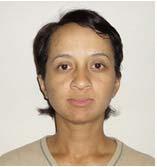
N ar i m al al a R ak ot o R at s i m b a
M a d a g a s c a r
A f r i c a S c h o l a r sh ip W i n n e r
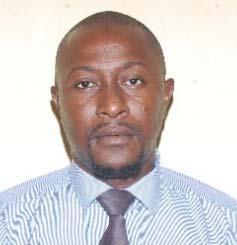
M o u s t sa p h a D ay a G u e y e S e n e g a l
C a m b r i d g e E n g l i s h : B i l l S h e p h a r d
S ch ol a r s h i p W in n e r
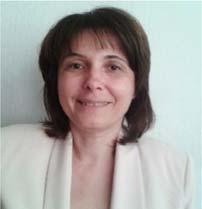
S v e t l a n a B o z h i n ov a B u l g ar i a
C a m b ri d g e E n g l i s h : J o h n T r i m
S ch ol a r s h i p W in n e r
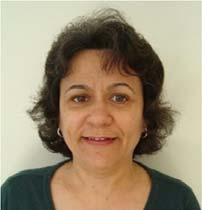
G l a d y s C a m ar g o B r a z il
B E S I G F a c il i t at or s
S c h o l a r sh ip W in n e r

J u s t i n e A r e n a Br a z il
C a m b r i d g e E n g l i sh : D r P e t e r
H a rg r e a v e s S ch ol ar s h i p W in n e r
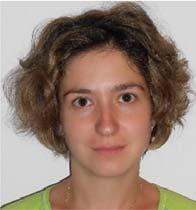
C a t a l i n a C o c an R o m a n i a
C a m b r i d g e E n g l i sh : T e a c h e r T r a i n i n g
S ch ol ar s h i p W in n e r
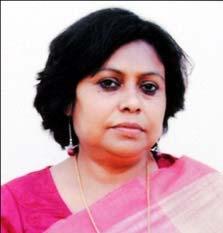
S ab i n a P i l l ai
In d i a
B E S I G F a c i l it at o r s S c h o l a r sh ip W i n n e r
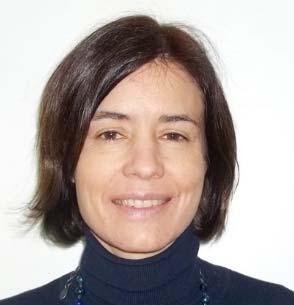
D a n a P o k l e p ov i c A r g e n t i n a
C a m b r i d g e E n g l i sh : E n g l i s h T e ac h e r
S ch ol a r s h i p W in n e r
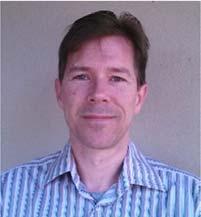
M a r t i n D u t t on A u s t r a l i a
E as t b o u r n e S c h o o l o f E n g l i s h –
G r a h am S m i t h S ch ol ar s h i p W in n e r
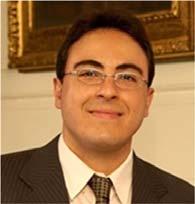
R a f ae l B as t o s
B r a z il
-18-
-18-
IATEFL scholarships and winners
E x a m E n g l i sh O n l i n e T e a ch i n g
S ch ol a r s h i p W in n e r
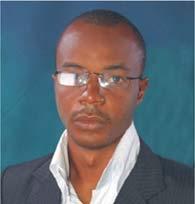
E l vi s A u s t i n s N i g e r i a
I E L T S M o r g an T e r r y M e m o r i a l
IA T E F L S c h o l a r sh i p W i n n e r

A y s e g u l L i m a n K ab an
T u r k e y I
I n t e r n at i o n a l H ou se G l ob al R e ac h
S ch ol a r s h i p W in n e r
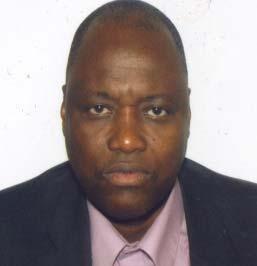
Y o u s s o u f M a g a s s o u b a M a l i
I n t e r n a t i on al H o u se T r a i n i n g &
D e v e l op m e n t S ch ol ar s h i p W i n n e r
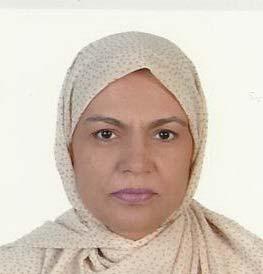
F au zi a S h am i m
P ak is t a n
G i l l S t u rt ri d g e F i r s t - T i m e S p e a k e r
S ch ol ar s h i p W in n e r K
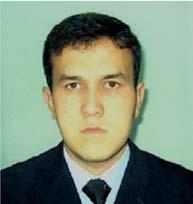
B e t t e r S p o k e n E n g l i sh S ch ol ar s h i p W i n n e r

M ar i n a N o e l i a C an t ar u t t i A r g e n t i n a
I n t e rn at i o n a l H ou s e J oh n H a y c r a f t
C l as sr o o m E x p l o r at i o n S c h o l a r sh ip W i n n e r
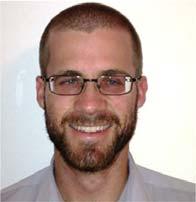
J a m e s P e n g e ll e y A u s t r a l i a
L a t i n A m e r i c a S c h ol ar s h i p W i n n e r

M a r ie l R o xa n a A m e z
A r g e n t i n a
G i l l i a n P or t e r L ad ou ss e S c h o l a r sh ip W i n n e r K C M a d h u k ar Ne p a l

I n t e r n at i o n a l H ou se G l ob al R e ac h
S ch ol a r s h i p W in n e r
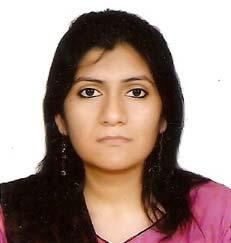
N as r e e n S u l t a n a
B an g l a d e sh
I n t e r n at i o n a l H ou s e J oh n H a y c r a f t
C l a s sr o o m E x p l o r at i o n S c h o l a rs h i p W i n n e r
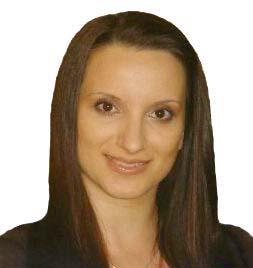
S v e t l a n a B e l i c M a l i n i c
S e r b i a
L e a r n i n g T e c h n o l o g i e s S I G D i an a
E a st m e n t S ch ol ar s h i p W i n n e r

A n g i e Q u in t a n i l l a
C h i l e
-19-
h
o
r a
z b
k
st
i k m a t u l l
U
z b a e v U
e
i
an
n t e r n at i o n a l H ou se B r i t a H a y cr a
t
f
-19-
IATEFL scholarships and winners
L e ar n in g T e ch n o l og i e s S I G T r a ve l
S ch ol a r s h i p W in n e r
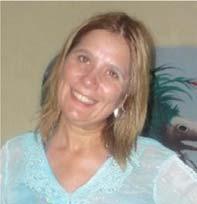
C e ci l i a C i c ol in i
A r g e n t i n a
O n e D r ag on S c h o l a r sh ip W in n e r
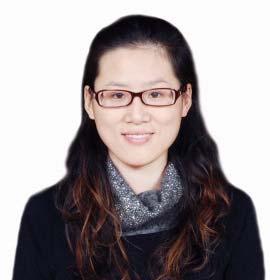
Q i u yu n F e n g
C h in a
R a y T on g u e S ch ol ar s h i p W in n e r

N ab an it a B ar u ah
In d i a
T r i n i t y C ol l e g e L on d on L an g u a g e
E x a m i n a t i on s S c h o l ar s h i p W i n n e r

A i d a R o d o m a n c h e n k o
R u s s i a
O I S E Y ou n g L e ar n e r s 2 0 1 3
S ch ol ar s h i p W in n e r

C o n c h i M ar t in e z d e T e j ad a
S p ai n
O n e s t o p e n g l is h C r e a t i v it y i n t h e
C l as s r o o m S c h o l a r sh ip W in n e r
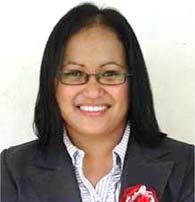
C y n t h ia Ja m e s M al ay s i a
R e g e n t S c h o l a r sh ip W i n n e r
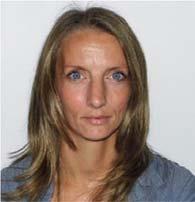
B i l j a n a D e d i c
S e r b i a
T r i n it y C o l l e g e L on d o n T e ac h e r
T r a i n e r S c h o l a r sh i p W in n e r
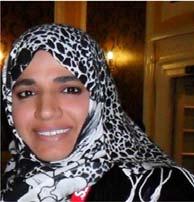
S a l i m a A l S i n an i
O m an
O n e D r ag on S c h o l a r sh ip W in n e r
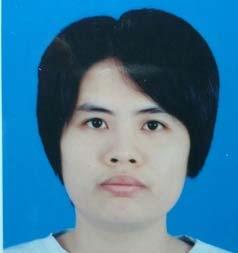
S h a o j in X u C h in a
P i l g r i m s S c h ol ar s h i p W i n n e r
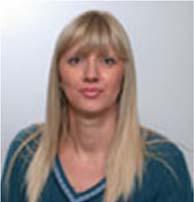
D a n i j e l a B o j an ic
S e r b i a
T e ac h e r D e ve l o p m e n t S I G M i c h a e l
B e r m an S c h o l a r sh ip W in n e r
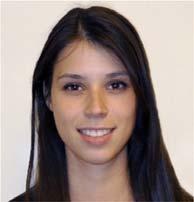
N in a J o r e n ci c
S l o ve n i a
W R L e e S c h o l a r s h i p W in n e r

A g n ie sz k a D z ie ci o l - P e d i ch
P o l a n d
-20-
-20-
IATEFL scholarships and winners
Scholarship winners presenting at conference
One of the true pleasures of the IATEFL Conference is the opportunity it provides to celebrate the work of colleagues who have contributed to the professional lives of us all. These include the IATEFL scholarship winners whose sessions are scheduled as follows:
The C a mb ri d g e E n g l i sh : T e a ch e r T r a i n i n g S ch ol ar s h i p winner, S S a b i n a P i l l a i , whose talk on ‘Locating CPD in English teachers in tertiary education in India’ takes place on Friday in session 3.1.
The B E S I G F a c i l i t a t or S c h ol ar s h i p winners J u s t i n e A r e n a whose workshop on ‘Tech-enhanced traditional storytelling in business English’ takes place on Thursday in session 2.6 and D D an a P ok l e p ov i c whose talk is on ‘Authentic business skills techniques adapted to business English classes’ which takes place on Thursday in session 2.2.
The G i l l S t u r t r i d g e F i r s t - T i me S p e ak e r S c h ol a r sh i p winner, K h i k m a t u l l o U r a z b a e v , whose talk on ‘Developing and implementing the Uzbek Model of European Language Portfolio’ takes place on Wednesday in session 1.2.
The G i l l i an P or t e r L ad ou ss e S c h ol a r sh ip winner, K K C M a d h u k a r , whose talk on ‘Dancing with a colleague in EFL classrooms: a co-teaching reflection’ takes place on Friday in session 3.6.
T h e L a t i n A me r i c a S c h ol a r s h ip winner, M M a r ie l R o xa n a A me z , whose talk on ‘Literature and learning technologies: an experience in pre-service teacher education’ takes place on Friday in session 3.1.
The L e a r n i n g T e c h n ol og ie s S I G D i an a E a st me n t S c h ol a r s h i p winner, A A n g i e Q u i n t a n i l l a, whose talk on ‘Digital storytelling: the power of personal narrative in ITT’ takes place on Friday in session 3.5.
The L e ar n i n g T e c h n ol og i e s S I G T r a v e l S c h ol a r sh ip winner, C C e c il i a C i c ol in i , whose talk on ‘Strategies for effective live online teaching and learning’ takes place on Friday in session 3.1.
The R ay T on g u e S c h ol a r sh ip winner, N N a b an it a Ba r u a h , whose talk on ‘Teaching and learning FLP through print media’ takes place on Wednesday in session 1.6.
The T e a ch e r D e v e l op me n t S IG M i c h ae l B e r m a n S c h ol ar s h i p winner, N N i n a Je r on c i c , whose talk on ‘I speak meme!’ takes place on Thursday in session 2.2.
The W R L e e S c h ol ar s h i p winner, A A g n i e s zk a D z i e k i ol - P e d i c h , whose talk on ‘ESP or EPG: what do learners really need’ takes place on Wednesday in session 1.6.
The I In t e rn at i on a l H ou s e B r i t a H ay c r af t B e t t e r S p ok e n E n g l is h S c h ol a r s h i p winner, M M a r in a N oe l i a C an t a r u t t i , whose talk on ‘Pronunciation and e-portfolios: developing self-regulatory skills and self-esteem’ takes place on Thursday in session 2.2.
The I In t e rn at ion a l H ou s e J oh n Ha y c r a f t C l a s s r oo m E x p l or at ion S c h ol ar s h i p winners J a m e s P e n
ll e y , whose talk on ‘Rethinking communicative language teaching’ takes place on Friday in session 3.1, and S S v e t l a n a Be l i c M a l i n i c , whose talk on ‘Reciprocal coaching as teachers’ professional development’ takes place on Friday in session 3.1.
The I n t e rn at i on a l H ou s e T r a i n i n g & D e v e l op me n t S c h ol a r sh ip winner, F F au z i a S h a m i m, whose presentation on ‘Action research for teacher learning: opportunities and challenges’ takes place in a forum on Wednesday in session 1.2.
T h e O I S E Y ou n g L e ar n e r s S ch ol ar s h i p 2 0 1 3 winner, C C on c h i M a rt in e z d e T e j ad a G on z a l e z , whose workshop on ‘Kamishibai: learning on the small stage’ takes place on Thursday in session 2.4.
The P i l g r i ms S c h ol ar s h i p winner, D D a n i j e l a B o j a n i c, whose talk on ‘Personalisation in ELT’ takes place on Thursday in session 2.1.
The R e g e n t S c h ol a rs h i p winner, B B il j an a D e d i c , whose talk on ‘Building up amazing projects through creative learning’ takes place on Friday in session 3.5.
The T r i n i t y C ol l e g e L o n d o n L an g u a g e E x am i n a t i on s S c h ol ar s h i p winner, A A i d a R od o m a n c h e n k o, whose talk on ‘Microand macroskills of speaking: creating situations for their development’ takes place on Wednesday in session 1.4.
The T r i n i t y C ol l e g e L on d o n T e a ch e r T r ai n
A l - S in an i , whose talk on ‘Cascading training: from trickle to torrent’ takes place on Wednesday in session 1.7. W e h o p e y o u ' l l s h o w y o u r su
-21-
g e
e r S c h ol a
a l
e
e s e s e s si o n s i f y o u c a n . I A T E F L i s d e l i g h t e d t o b e a ss o c i a t e d
i t h t h e a w a rd s t h a t re co g n i se t h e i r a c h i e v e m e n t G o o d l u ck t o a l l o f t h e m, a n d m a
a
u
-21-
r s h i p winner, S S
i m a
p p o r t b y a t t
n d i n g t h
w
n y co n g r
t
l a t i o n s!
Get ahead in your teaching career
Study Teaching English for Academic Purposes (PGCert)
Our expertise in flexible and accessible education and your passion to succeed in teaching English to others will enable you to get ahead.
A world-class research university, Leicester offers flexible, innovative courses because we understand that you’ve got other responsibilities. This course gives you a great opportunity to move into or get ahead in a career
teaching English for Academic Purposes –the fastest growing sector in the world of ELT.
Get ahead, get in touch.
Email: TEAP@leicester.ac.uk
School of Education
Professional Development
Postgraduate Programmes by distance learning

-22-
ThankYouto our sponsors
The IATEFL annual conference is a fantastic platform to showcase your brand, products and services to educators, researchers and students in the field of ELT, and these packages are designed to maximise the exposure and impact that your brand can make on our conference attendees. I A T E F L
to enable IATEFL to host another memorable conference for our members and delegates. T T o
from sponsoring part of our 49th annual conference next year in Manchester (11-14 April 2015), please contact Alison Wallis, IATEFL Business Development Officer, at awallis@iatefl.org or telephone +44 (0)1795 591414, or visit our website to find out more.
DIAMON SPONSOR D

B r i t is h C
The British Council provides global access to English for teachers and learners through classroom teaching, teacher training programmes and online resources. We make highly valued UK qualifications available in over 100 countries. Join us at our stand (45) where we will be showcasing our latest courses and resources for teachers and learners, and find out more about what the British Council has to offer you. Come to our networking event on Wednesday 2 April at 19:00 in the elegant surroundings of The Royal Hall Theatre, Harrogate International Centre, and to our Signature Event on English MediumInstruction:CureorCurse?12:00-13:05, Wednesday 2 April, Auditorium.
PLATINUM SPONSORS
Ca m b r i dg e E n g l
for sponsoring the S S V A D
Cambridge English combines the expertise of Cambridge University Press – the leading publisher of ELT learning materials – and Cambridge English Language Assessment – the global leader in English language assessment. Everything we do is underpinned by our guiding principles of expertise, experience, quality and innovation. Visit stand 19-24 for a 20% discount on Cambridge ELT materials and find out why teachers and learners worldwide choose Cambridge English exams and material.


t el c for sponsoring the D D
e
e nt , the
Pr o g ra m me
and the
telc stands for The European Language Certificates and offers more than 70 examinations in 11 languages. The new groundbreaking dual-level exams reliably assess language competence at two CEFR levels. telc – language tests are developed according to the Council of Europe’s Common European Framework of Reference for Languages and enjoy international recognition and acceptance at universities, companies and governmental institutions. For more information and free mock examinations visit our stand 27-28 and www.telc.net.
-23-
i s a l w a y s l o o k i n g f o r n e w s p o n s o r s a n d n e w i d e a s t o b e s p o n s o re d
s e e h o w y o u c a n b e n e f i t
I
T E F L w o u l d l i k e t o t h a n k a n d a c k n o w l e d g e t h e f o l l o w i n g s p o n s o r s f o r t h e i r g e n e r o u s c o n t r i b u t i o n t o t h e s u c c e s s o f t h i s c o n f e r e n c e :
A
o u n c il for sponsoring I A T EF L H a r r o g at e O n l i n e
s
b ri dg e U n i ve r s i t y Pr es s & C am br i dg e E ng li s h L a n g u ag e As s es s m e nt )
i n ne r o n 3 1 s t M a r c h, As s o c i a t e s ’ D ay o n 1 s t Apr i l, the F ri d ay O ve r vi ew Pa g e a t
he
e
o n fe r e nc e P r o g r amm e and bo t t l e d w at er a t co n f e r e n c e
i
h ( C am
t
b ac k o f t h
C
le g a t e B a dg es & L a ny a r ds
the St ew a r d t -s hi r t s , P e c h a K u c ha e v e ni n g
o n s
W e d n e s d a y O v e r v ie w P a g e a t t h e b a c k o f t h e C o n f e r e nc e
e
,
v
w a t e r s t a t i
-23-
ThankYouto our sponsors
SILVER SPONSORS

ET S T O E FL ® & TO EI C® for sponsoring the I A T E F L Co n f e r e nc e A p p
ETS is the world’s largest educational research and assessment organization. ETS is dedicated to providing fair and valid assessments (including the TOEFL®and TOEIC®tests), research, and related products and services to help educational institutions make informed decisions concerning admissions, awards, and placement; facilitate teaching and learning; and provide useful information to the public on the quality of programs and services. Please stop by stand 48 to learn more about the TOEFL® and TOEIC® Tests or visit www.ets.org.

O x f o r d U n iv e rs i t y Pr e s s for sponsoring the I I n t e r ne t C e nt r e
OUP works closely with teachers, institutions, and leaders in education and technology to shape learning together. A new generation of resources and services now complements our expanding range of new titles: online assessment and homework tools, classroom presentation tools, professional development webinars and online courses for teachers are some of the ways we are making the best use of technology to enhance and shape learning.
Pe a r s o n for sponsoring the Co n f e r e n c e P
Co n f e r e nc e Pr o g r am m e
and Bo o k m ar
and the
Are you looking to use technology to improve your learner outcomes? Then come and talk to us on stand 41 about how we support blended learning. We will be demonstrating the technologies Pearson offers to ensure insightful, convenient and motivational learning through products such as Progress and MyEnglishLab. Follow the conversation on twitter #testingprogress.
BRONZE SPONSORS

Co l l i ns for sponsoring the
and the S a t u r d a y O v e
Collins is delighted to be a sponsor at this year’s IATEFL conference, and we can’t wait to meet you at the Collins stand, where you can explore our fast-growing ELT range, powered by COBUILD. Come along and have a look at the awardwinning First English Words series for Young Learners, browse through new non-fiction readers and many more new titles. You’ll get the chance to win plenty of prizes, and there will be a special appearance of some Amazing People …

I EL T S for sponsoring the
Co
and the
Celebrating 25 years – IELTS is the world’s leading English language test for higher education and global migration. IELTS is available in over 130 countries and recognised by over 8000 organisations globally. More than 2 million IELTS tests were taken in the last year by people seeking to demonstrate English language proficiency for education, migration or employment. The British Council, IDP: IELTS Australia and Cambridge English Language Assessment jointly own IELTS –their program of academic research, test development and validation ensures it remains the expert test, recognised and trusted worldwide.
-24-
ro g r amm e
D a y Pl a n n e r i n t h e
k
A T E F L C o n f e r e n c e F a r e w e l l s n a c k s , l e a v i n g R a f f l e P r i z e
rv ie w Pa g e a t t he b a c k o f t he Co n f e r e n c e Pr o g r am m e
I I
D D e l e g at e B a g s
T h ur s d ay O v e rv i e w P a g e a t t he b a ck o f t h e
n f e r e nc e Pr o g r am m e
-24-
ThankYouto our sponsors

M a c m il l a n E d u ca t i o n for sponsoring the o o nl i ne Pr e v i e w C o n f e r e nc e B r
)
Macmillan Education is proud to sponsor IATEFL 2014. Education is changing rapidly. So is Macmillan Education. By creating a new Language Learning division we can make extraordinary investments in ground-breaking technology and ELT content development. This change enables us to offer innovative, personalised, integrated learning solutions for every student while continuing our long tradition of working with teachers in 120 countries to provide the inspiring, relevant high-quality material they expect from us. Find out about our exciting plans at IATEFL.

Pi l g ri m s for sponsoring the IATEFL Conference Selections ( I AT EF
J a n u a ry 2 0 1 5 ) and the Po s t Co n fe r e n ce s u p p le m e n t i n IATEFL Voices 239
Pilgrims creates amazing courses for amazing teachers. Pilgrims is a stand for creating possibilities. Please join us on our stand to explore what possibilities we can create together.
GENERAL SPONSORS




I A T EF L w o
o u n d t h e v e n u e
L a n g u a g e T e s t i n g 1 2 3 L t d for sponsoring the I A T E F L I n f o r m a t i o n D e s k M a i l a
T h e H o l i d a y I n n , H a rr o g a t e for sponsoring the F F l o w e r s & f ru i t f o r o u r p l e n a ry s p e a k e r s a n d s u b s i d
s p e a k e r s
F or t h e e a rl y b i rd b oo k in g r a f f le p r iz e s:
Afternoon Tea for 2 in the Imperial Room at Bettys Harrogate.




2 night’s bed and breakfast or Dinner for four.
2 mini spa treatments in their Orchid Beauty rooms.
2 entrance vouchers for the Turkish Baths.
F or p r ov i d i n g i t e m s i n t h e d e l e g a t e b ag s :
C a mb r i d g e U n i ve r si t y P r e s s for providing notepads
G l ob a l E L T for providing reference books
M a c m il l a n for providing pens
T ay l or s of H ar r og at e for providing sachets of wrapped tea
-25-
e ( J a n u a ry - A pr il 2 0 1 4
o c hur
H ar ro g at e 2 0 1 4 p u b l i s h e d
L
I A T EF L i s a l s o g r a t e f u l t o t he f o l l o w i n g g e n e r a l s po n s o r s f o r t h e i r g e n e r o us c o n t r i bu t i o n : N O D I s o m Pr i n t for sponsoring the c c o n f e r e n c e p o s t e r s and s s i g n a g e a r
b i l i t y
d d e l e g a t e c e r t i f i c a t e s o f a t t e n d a n c e
L t d for sponsoring the
and e n v e l o p e s
i s e d h o t e
o m s f o r I A T E F L s t a f f , v o l u n t e e rs a n d p l e n a ry
l r o
d a l s
o t ha n k t h e
o wi n g c o m p
s
ul
o l i k e t
f o l l
a n i e
:
-25-
What’s new?
What’s new?
ELT Conversation
This year there will be a new session, ELT Conversation , in which two high-profile speakers interview each other on a key topic. On Friday 1130-1215 in Auditorium, Jeremy Harmer and Scott Thornbury will interview each other on the topic of “Communicative Language Teaching: what have we gained (or lost?)” Please see page 136 for details of this session.
Open Space
Developed in the 90s and employed both in management and academic spheres, Open Space is a new format to the IATEFL conference this year. A mini-conference in itself, Open Space gives you the chance not only to flag up and explore the topics that matter to you, but also to discover a new conference tool for use elsewhere in your professional life. Facilitated by Adrian Underhill, this Open Space lasts for 2½ hours on Thursday in King’s A and will include an overview of the methodology; setting up the first round of sessions; conducting them; feedback to all; setting up and conducting the second round of sessions, feedback and close. Please see page 108 for details of this session.
Poster Time
During the conference there is a Poster Forum displaying the poster presentations in Hall D. New for this year, poster presenters will be present at their poster to discuss it with delegates and to answer any questions on Wednesday from 1840 to 1910 and on Thursday from 1830 to 1900. Please see pages 51-57 for the day each poster presenter will be present.
Jobs Market signature event
This year, IATEFL is holding its own signature event – The IATEFLJobsMarketSignatureEvent. The topic is ELTRecruitmentandTrainingintheDigitalAge. In this panel discussion, leading specialists in this area will explore how the age of digital ELT is affecting the skills and capabilities employers need when recruiting new staff … and look to the horizon to assess how technology will continue to change teaching and learning in the future. Please see page 85 for details of this session that takes place on Wednesday in King’s A.
Meet the Patron
David Crystal will be at the IATEFL exhibition stand on Wednesday 2 nd April from 1300 to 1400 and from 1600 to 1700. If you would like to say hello or have a question for David, please join us there for this unique opportunity.
Mobile phone charging station
New for this year, we offer the opportunity for delegates to charge their phones whilst on the go, whether they are iPhones, Blackberrys or Smartphones. The station can facilitate up to eight delegates at one time. Please note that there is a maximum of 20 minutes charge-time for each delegate. Located on stand 49 in the exhibition.
-26-
-26-
DAYTIME TOURS AND EVENING EVENTS
Don’t forget to take time out to relax!
Pages 27-30 contain information on daytime tours and evening events.
Evening
Tours and
Events

Meet us at our stand (45) to find out about our latest courses and materials for teachers and learners, and to see what the British Council has to offer you.
Come to our networking reception:
Venue: The Royal Hall Theatre, Harrogate International Centre
Date: Wednesday 2 April, 19.00
Join us for our signature event:
English Medium Instruction: Cure or Curse?
Venue: Auditorium
Date: Wednesday 2 April, 12.00 –13.05
Harrogate Online
Follow live sessions at the conference via the Harrogate Online website: http://iatefl .britishcouncil.org/2014
www.britishcouncil.org/learnenglish www.teachingenglish.org.uk
www.britishcouncil.org/learnenglishteens
www.britishcouncil.org/englishagenda
www.britishcouncil.org/learnenglishkids
esol.britishcouncil.org
Join us at IATEFL Harrogate 2014
Tours and Evening Events
Daytime tours & evening events
Daytime tours
Walking tours
We will be holding two walking tours of Harrogate on Wednesday 2nd April. These will be departing from the HIC at 1100 and then at 1315 and will take in some of the highlights of Harrogate, including the Crescent and Valley gardens, the Stray, the Royal Hall, the Mercer Art Gallery and the Royal Pump Room Museum before finishing outside the famous Bettys Café and Tea rooms.
If you have pre-booked on a walking tour, please take your receipt to the meeting point on the day of the tour as this will be used as your ticket.
The meeting point for walking tours is opposite the registration desk on Level 4 foyer in the HIC. You will be met by your guide. Please be at the meeting point 15 minutes before your walking tour departs as tours leave promptly.
Excursions
On Thursday 3rd April there will be two coach trips - one to York and one to the Bronte Parsonage Museum; and on Friday 4th April there will be a coach trip to Castle Howard.
These three guided tours have been arranged and tickets sold in advance of the conference via the IATEFL online shop.
If you have pre-booked on the tour, please take your receipt to the meeting point on the day of the tour as this will be used as your ticket to board the coach.
The meeting point for tours is opposite the registration desk on Level 4 foyer in the HIC. You will be met by your guide who will escort you onto your coach.
Castle Howard tour – please be at the meeting point by 1015.
York and Bronte Parsonage Museum tours – please be at the meeting point by 1030.
Evening events
Tuesday 1st April
Welcome Reception (supported by Harrogate International Centre) 1800-1900 in the Royal Hall
We are delighted to hold a Welcome Reception to offer delegates a warm welcome. IATEFL President, Carol Read, will welcome you to the conference and the Mayor of Harrogate will welcome you to the town. Entry by conference badge only. Please register first at our registration desk in the HIC.
-27-
-27-
Daytime tours & evening events
Wednesday 2 nd April
Extensive Reading Foundation Reception and Awards Ceremony
1900-2000 in Ripley
The event is hosted by Jeremy Harmer, who will present the 2013 Language Learner Literature Awards, with music by Steve Bingham. Come and meet the award-winners over drinks and nibbles and enjoy their work. Sponsored by the British Council, Compass Media, ELI, Garnet Education, Helbling Languages, IATEFL, Macmillan Education, Oxford University Press, Pearson Education and Richmond. Note that the timing allows guests to move on afterwards to the British Council event in The Royal Hall Theatre.

Dave ’n’ Luke present: “Hard Times for English Teachers”
1900-2000 in King’s A
‘Bank Robber: These are hard times. This is my morning job; I teach English in the evening.’
In effective teaching, three things play a crucial role: the teacher’s voice, body language, and presence. These factors come together powerfully in dramatic techniques in which language is activated in memorable ways. This performance will show these principles in action.
The presenters perform satirical sketches originally written and performed in collaboration with students. The sketches are about everyday topics, including language teaching, and are designed to teach and entertain.
We will also perform a short one-act play, MeandHim , about how walls go up and how walls come down.
All of the pieces provide opportunities for engaging learners, promoting second language acquisition and raising issues for discussion.
‘Aperformancewhichtackledcontemporaryproblemsinaninnovativewayandwhichwasuniversallyapplauded’ELTNews,Greece ‘Lovedit!Veryinspiring!’Teacher,TESOLArabia
David Gibson & Luke Prodromou - http://davenluke.wordpress.com
Guest appearance: Maria Sachpazian LukeProdromouissponsoredbyELIPublishing
British Council-hosted evening From 1900 in The Royal Hall

Join the British Council for an exciting evening in the elegant surroundings of The Royal Hall, a stunning Edwardian Theatre built in 1903. Restored to its original magnificence and often referred to as the ‘Palace of Glittering Gold’, it promises to make the evening memorable.
-28-
-28-
Daytime tours & evening events
Thursday 3rd April
Macmillan Come Dancing
1830-2130
in The Royal Hall
The venue is a really grand old theatre, so it fits the theme really well. There will be dancing performances from four ballroom/latin professionals throughout the evening, with an informal workshop for everyone to join in with and learn some steps. Drinks and nibbles will be provided.
£5 per ticket, which will be available to buy on Wednesday 2nd and Thursday 3rd from our stand. All proceeds will go to charity (to be split between three charities (one will be IATEFL, then one UK and one international charity tbc).
The Cambridge English Party
1830-0000 in The Crown Hotel
Unwind after a busy conference day at The Cambridge English Party on. Join us straight after the last session for drinks and entertainment at The Crown Hotel, only 5 minutes from the conference. Visit stand 19–24 to collect your invitation.
The Fair List U K
1900-2000 in Queen’s 3
Come and learn about TheFairList, the new award for excellence of gender balance in plenary and key note speakers and panelists at UK, ELT conferences and events. Find out who is on the list for the year 2013. Come and cheer them as they get their playful certificates. To find out more about The FairList , please take a look at www.thefairlist.org. There you will find loads of ideas for conference organizers, speakers and also for participants interested in gender parity in UK, ELT events. All delegates welcome!
Speaking a World of Words 1930-2100 in Harewood 1 & 2
with Wordsmith Rakesh Bhanot and Storyteller David Heathfield

Tonight let's take a spin round the wonderful world of words. We invite you to share the words that mean most to you. Come and join us performing poems, telling stories and reading aloud short passages of prose from all cultures and languages!
Individual or joint performers welcome - contributions can be anywhere between 1-7 minutes in length. Please let us know in advance if you wish to contribute or just turn up and 'do your thing'.
Rakesh has been involved in many aspects of ELT for over 40 years and has helped to organise Open Mic events in several countries. More recently, he has started sharing some of his own scribblings at such gatherings. David is a storyteller, teacher and teacher trainer and is the author of the brand new teacher development book StorytellingWithOurStudents: Techniquesfortellingtalesfromaroundtheworld(DELTA).
International Quiz
2000-2200 in King’s A
Back for yet another year ... the now somewhat infamous IATEFL International Quiz. If you've been before you know what to expect, if you haven't come along and see what everyone is talking about. Last time in Harrogate it was mayhem - over 150 people, questions to get you scratching your head and friends new and old. So, join your host - Adrian Tennant - for an evening of fun, entertainment and intellectual stimulus.
-29-
-29-
Daytime tours & evening events
Friday 4th April
Pecha Kucha (sponsored by telc - language tests) 1900-2000 in Auditorium
Keep calm and Pecha Kucha! This year's IATEFL Pecha Kucha evening will be facilitated by Valeria Benevolo Franca. By now you should know the format: each speaker is allowed a slideshow of 20 images, each shown for 20 seconds, giving a total presentation time of six minutes and forty seconds before the next speaker is up. This year's Pecha Kucha features several new speakers and the enjoyment will be the same as ever. Do not miss this event!
The IATEFL Open Mic Night 2030-2200 in Harewood 1 & 2


Want to see your favourite IATEFL speakers under a different spotlight? Come along to the Open Mic Night and watch them strut their stuff! Give a cheer to great performances, laugh until you cry, be moved to tears - all possible when teachers get together and use the universal language of music. With Adrian Underhill and Chaz Pugliese as the hosts to help the evening flow, come and see why IATEFL's got talent! This evening event will take place right after the Pecha Kucha.

-30-
-30Join us at IATEFL Harrogate 2014 www.britishcouncil.org/learnenglishkids www.britishcouncil.org/learnenglishteens www.britishcouncil.org/englishagenda esol.britishcouncil.org www.britishcouncil.org/learnenglish www.teachingenglish.org.uk Meet us at our stand (45) to find out about our latest courses and materials for teachers and learners, and to see what the British Council has to offer you. Come to our networking reception: Venue: The Royal Hall Theatre, Harrogate International Centre Date: Wednesday 2 April, 19.00
EXHIBITION
The exhibition floorplan below shows the locations of stands with stand numbers.
Page 31 lists the exhibitors numerically by stand number to make sure you find them easily.
Page 32 shows the times that representatives from the SIGs and the Associate Members will be at the IATEFL stand.
Pages 33-40 contain details of the exhibitors - entries are listed alphabetically by exhibitor name.
EXHIBITION HALL (Hall H, Level 4)
IATEFL + Special Interest Groups IATEFL Associates SEATING SEATING SEATING
IATEFL Scholarships Photo Booth To Registration & Hotel To Hall D & Queens 1-9 & Kings A + B Exhibition
Toilets

Exhibition
List of ELT resources exhibitors
Our exhibitors were given the opportunity to post materials on the Harrogate Online website. Check out our virtual conference site at http://iatefl.britishcouncil.org/2014.
The exhibition is open 0830-1730 Wednesday to Friday and 0830-1215 on Saturday. For safety and security, you are not allowed to enter the exhibition outside these times.
-31-
Centre IATEFL & Special Interest Groups 29 BEBC – Bournemouth English Book Centre Centre IATEFL Associates 30 NILE Centre IATEFL Scholarships 31 ETp and MET – Pavilion Publishing 1 English Language Bookshop 32 & 39 Collins 2 Pilgrims 33-38 Macmillan Education 3 OISE Language Coaching 40 TOLES 4 Routledge 41 Pearson 5 Black Cat Publishing 42 Global ELT 6 English UK 43-44 Oxford University Press 7 Educational Software Products 45 British Council 8 MONDIALE – Testing GmbH 46-47 Garnet Education 9 University of Exeter 48 ETS TOEFL® & TOEIC ® 10 City & Guilds English 49 IATEFL Mobile Charging Station 11 Keywords English 50 Compass Media 12 SIT Graduate Institute 51 English 360 13 Harrogate Language Academy 52 International House London 14 Bell Educational Services 53 Richmond 15-16 National Geographic Learning 54 Express Publishing 17 MM Publications 55 Helbling Languages 18 ELI Publishing Ltd 56 University of Cumbria 19-24 Cambridge English (Cambridge University Press & Cambridge English Language Assessment) 56a University of Derby Online Learning 25-26 IELTS 57 Playmeandlearn.com 27-28 telc - language tests 58 Target English
-31-
IATEFL SIG & Associate representatives
A Associate Representatives will be at the IATEFL Associate Stand (part of the IATEFL stand) at the following times:
Wednesday 2 April
0830-1035
1030–1205
1200–1345
1340–1550
1545–1730
Friday 4 April
0830–1015
1010–1140
T Thursday 3 April
ETAS (Switzerland) 0830–1020
JALT (Japan) 1015–1220
ANELTA (Angola) 1215–1330
ELTA Albania 1325–1550
ELTA (Serbia) 1545–1730
S Saturday 5 April
LATE (Latvia)
0830–1020
AAELTA (Ethiopia) 1015–1130
1135–1340 IATEFL Peru
1335–1545 ATEI (Iceland)
1540–1730 INGED (Turkey)
TESOL France
CI-ATEFL (Cote D'ivoire)
KSAALT (Saudi Arabia)
BELTA (Bangladesh)
SPELTA (Russia)
SNELT (Niger)
TESOL Arabia
IATEFL Special Interest Group (SIG) representatives will be at the IATEFL Stand at the following times:
Wednesday 2 April
0830-1035
1030–1205
1200–1345
1340–1550
LASIG
T Thursday 3 April
0830–1020
ESPSIG & LASIG 1015–1220
BESIG & LMCS SIG 1215–1330
PronSIG 1325–1550
GISIG & ReSIG
ESPSIG & ReSIG
GISIG & PronSIG
LAMSIG & YLTSIG 1545–1730
ES(O)LSIG & LTSIG 1545–1730
Friday 4 April
0830–1015
1010–1140
1135–1340
TDSIG & YLTSIG
LAMSIG & LMCS SIG
S Saturday 5 April
0830–1020
MaWSIG & LTSIG 1015–1130
MaWSIG & YLTSIG
1335–1545 TTEdSIG 1540–1730
ES(O)LSIG & TEASIG
MaWSIG & TEASIG
BESIG & LMCS SIG
Quiz for fun !
Q2 – How many SIGs does IATEFL have? Answer on page 203
-32-
-32-
ELT resources exhibitors’ details
BE BC - B ou r n e m ou t h E n g l is h B ook C e n t r e ( St a n d 29)
Albion Close, Parkstone, Poole, Dorset, BH12 3LL, UK
Tel: +44 (0)3338 001900
www.bebc.co.uk
Email: elt@bebc.co.uk
Contact: Charles Kipping, Marketing Manager
BEBC is celebrating 40 years this year as the UK’s leading ELT/ESOL specialist. Since 1974 we have built up a reputation for a fast, efficient and friendly service. We supply books, CDs, etc. from all the ELT publishers to all EFL professionals –schools, colleges/universities, both in the UK and worldwide. Please visit our Stand to view / purchase some of the latest ELT publications at discounted prices. Look out for our 40th Birthday Drinks Party!
Be l l E d u c at i on al Se r v ice s L t d ( St a n d 14)
Red Cross Lane, Cambridge, CB4 3SG, UK
Tel: +44 1223 275598
Email: enquiries@bellenglish.com
Contact: Stephanie Dimond-Bayir, Programmes Manager-Teacher Training
Bell is a high-quality education business which unlocks the world for its customers through learning English and learning in English. Come and see us to find out how you could unlock your future on a teacher training or development course and help your students progress their education and career through a junior, academic preparation or business English programme. Have a chat and some sweets with us on Stand 14!
Bl a c k C at P u b l is h in g ( S t a n d 5 )
Via Venezia 93, 16035 Rapallo (GE), Italy
Tel: +39 1851 874327
Email: marisol.caprile@blackcat-cideb.com www.blackcat-cideb.com
Contact: Marisol Caprile, International Marketing
Black Cat, a world leader in the production of beautifully designed, innovative and dynamic teaching materials, since 1973 has been well-known in the international educational publishing market. Our material includes graded readers, grammar books, courses, exam books and cultural studies books, not only for the English language, but also for French, German, Spanish and Italian. The range of support material includes audio-CDs, CD-ROMs, DVDs, IWB compatible material. Our graded readers are available also as e-books.
Br it ish C ou n c il ( S t a n d 4 5)
Bridgewater House, 58 Whitworth Street, Manchester M1 6BB, UK www.britishcouncil.org/english
The British Council provides global access to English for teachers and learners through classroom teaching, teacher training programmes and online resources. We make highly valued UK qualifications available in over 100 countries. Join us at our stand (45) where we will be showcasing our latest courses and resources for teachers and learners, and find out more about what the British Council has to offer you. Come to our networking event on Wednesday 2 April at 19:00 in the elegant surroundings of The Royal Hall Theatre, Harrogate International Centre, and to our Signature Event on English MediumInstruction:CureorCurse?12:00-13:05, Wednesday 2 April, Auditorium.
C a mb r id ge E n gl i sh ( St a n d 1 9- 2 4) 1 Hills Road, Cambridge, CB1 2EU, UK www.cambridgeenglish.or g
Email: shaw.a@cambridgeenglish.org
Contact: Amy Shaw, Marketing Administrator (Events)
Cambridge English combines the expertise of Cambridge University Press – the leading publisher of ELT learning materials – and Cambridge English Language Assessment – the global leader in English language assessment. Everything we do is underpinned by our guiding principles of expertise, experience, quality and innovation. Visit stand 19-24 for a 20% discount on Cambridge ELT materials and find out why teachers and learners worldwide choose Cambridge English exams and material.
C it y & Gu il d s In t e r n a t i on a l E N GL IS H ( S t an d 1 0 )
Tel: +36 1 4131301
Email: info@cityandguildsenglish.com www.cityandguildsenglish.com
City & Guilds International ESOL and Spoken ESOL examinations offer a comprehensive test of Listening, Reading, Writing and Speaking skills in English. The qualifications have been mapped to levels of the Common European Framework of Reference (CEFR) and are accredited on the National Qualifications Framework of England, Wales and Northern Ireland (NQF). The City & Guilds English certificates are recognised by several governments and universities and are used to gain employment in a variety of industries.
33
-33-
ELT resources exhibitors’ details
Col l in s (S t an d 32 & 39)
77-78 Fulham Palace Rd, Hammersmith, London, W6 8JB, UK
Tel: +44 (0)2083 074539 www.collinselt.com
Come and explore Collins’ fast-growing ELT range, powered by COBUILD. Have a look at the new Activity books and teaching material in the award-winning First English Words series for Young Learners, and browse through new nonfiction readers, and our titles for skills, vocabulary, EAP and authentic listening. You’ll get the chance to win plenty of prizes, and there will be a special appearance of some Amazing People at the Collins stand. We look forward to seeing you there!
C omp as s M e d i a ( St an d 5 0)
7212 Canary Lane, Sachse, Texas, USA 75048
Tel: +82 2 34714043
Email: info@compasspub.com
Contact : James Hall, Gio Panizzon, & Eunah Kim
Compass Media is a global leader in English language textbook publishing and media. We provide a full list of awardwinning ELT products and services including phonics, songs, course books, skill books, graded readers, ESP, test preparation, professional development and an innovative online extensive reading library. Come and see why today’s educators use Compass to find direction in English education!
Ed u ca t i on al S of t w ar e P r od u c t s (St an d 7)
13 Restharrow Mead, Bure Park, Bicester, Oxon, OX26 3AF, UK
Tel: +44 (0)1869 242011
Email: info@letslearnenglish.co.uk www.letslearnenglish.com
Contact: Sandy Savory, Senior Sales Manager
Let’s Learn English is a Virtual Learning Environment which offers more features than you might find in other comparable systems: we individually mark student compositions and spoken recordings; our 1500 units of English cover general English and ESOL examinations including IELTS and TOEIC; our VLE can be rebranded for school or organisation’s exact requirements; our units are cross-referenced to units and activities within major ESOL course books from all publishers; and much, much more!
ELI Pu b l ish in g Lt d ( S t an d 1 8 )
c/o ELI Srl, Via Brecce snc, 60025 Loreto, Italy
Tel: +39 071 750701
Email: intersales@elionline.com www.elionline.com
Contact: Augusto Andreoli, International Marketing & Sales Manager
A leading international publisher offering a wide range of ELT publications: course books from pre-school to upper secondary, readers, exams and culture books, language games, activity books, sundry teacher’s resources and a 35-year popular set of classroom magazines. The main novelties at this year’s conference are: SuperMagic , an American English 6level primary course; Think Global, a multimedia culture and civilization course book; 12 news titles in the popular ELI Readersseries; 3 new language games.
En g l is h 36 0 (S t a n d 51)
We are delighted to be at IATEFL again. Come and see us at our stand.
En g l is h La n gu a g e B ook s h op ( St an d 1)
31 George Street, Brighton, East Sussex, BN2 1RH, UK
Tel: +44 1273 604864
Email: anthony.forrester@elb-brighton.com www.elb-brighton.com
Contact: Anthony Forrester, Partner
The English Language Bookshop was established in 1985 and is one of the leading suppliers of ELT materials in the UK. We supply ELT materials to schools, colleges, universities, government agencies, Ministries of Education, training organisations, teachers, teacher trainers and individual students throughout the world. We carry extensive stocks of materials from all the leading UK ELT publishers and can usually supply all your ELT needs ex-stock. Deliveries are made by national and international carriers and discounts are available on bulk orders.
34
-34-
ELT resources exhibitors’ details
E n g l i s h U K ( S t a n d 6 )
219 St John Street, London, EC1V 4LY, UK
Tel: +44 20 76087960
www.englishuk.com
Email: info@englishuk.com
Contact: Tom Weatherley, Professional Services Manager
English UK is the national association of accredited English Language centres, and the world’s leading language teaching association with over 470 members. We offer training, conferences and qualifications covering all aspects of working in a language centre, including teaching. Visit our stand to find out more.
E T p an d M E T - P a v i l i on P u b l i sh in g an d M e d i a ( S t an d 3 1 )
Rayford House, School Road, Hove, East Sussex, BW3 5HX, UK
Tel: +44 (0)1273 434943
www.pavpub.com &
Email: info@pavpub.com
Contact: Fiona Richmond, Publisher www.etprofessional.com & www.modernenglishteacher.com
English Teaching professional magazine and website bring you practical tools to use in your classroom. Modern English Teacher magazine launches its new look at IATEFL. Meet the editor and find out how MET’s in-depth articles can support your professional development. Visit stand 31 for your free copy of English Teaching professional and Modern English Teacher, and to take advantage of our special conference discount on both magazines and our range of practical books.
E T S T O E F L ® & T O E IC ® ( S t an d 4 8 )
North London Business Park, Building 3, Office 126, Oakleigh Road South, London, W11 1GN, UK
Tel: +44 (0) 203 6407699
www.ets.org
Contact: Sandy Bhangal, Associate Director
ETS is the world’s largest non-profit educational research and assessment organization. ETS is dedicated to providing fair and valid assessments (including the TOEFL® and TOEIC® tests), research, and related products and services to help educational institutions make informed decisions concerning admissions, awards and placement; facilitate teaching and learning; and provide useful information to the public on the quality of programs and services. For more information, visit our stand or at www.ets.org.
E x p r e s s P u b l is h in g ( S t an d 5 4 )
We are delighted to be at IATEFL. Come and see us at our stand.
Gar n e t Ed u c at ion ( S t an d 4 6 - 4 7 )
8 Southern Court, South Street, Reading, Berkshire, RG1 4QS, UK
Tel: +44 (0)118 9597847
Email: enquiries@garneteducation.com www.garneteducation.com
Contact: Jessie Candy, Marketing Executive
Garnet Education, an independent UK publisher specialising in EAP and ESP, has established a global reputation for quality and innovation in the field of higher education. 2013’s highlights include adding to our popular ProgressiveSkillsinEnglish series, the publication on our new Business English course, Career Express and our first e-books. 2014 sees us launching our lower-level ESP series MovingInto , plus a new edition of the Passport to Academic Presentations course.
Gl ob a l ELT ( S t an d 4 2 )
60 Pankhurst Avenue, Brighton, BN2 9YN, UK
Tel: +44 (0)1273 251907, +44(0)1273 688232 Email: orders@globalelt.co.uk www.globalelt.co.uk
Contact: Lawrence Mamas, Marketing Manager
Global ELT is an independent ELT publishing company based in England that focuses on producing Exam Preparation materials. In addition to exam preparation materials, we also publish a wide variety of ELT books such as Grammar books, Skills books, ELT Dictionaries, Vocabulary books, Idioms and Phrasal Verbs, General English course books and Graded ELT readers. Big Special Offer for IATEFL: All Self-study editions (book with CD) only £10 – All Books without CD only £5.
35
-35-
ELT resources exhibitors’ details
H ar r og at e L a n gu ag e A c ad e my ( S t an d 1 3 )
8a Royal Parade, Harrogate, HG1 2SZ, UK
Tel: +44 (0)1423 531969
Email: kirsten@hla.co.uk www.hla.co.uk
Contact: Kirsten Henry, Director
Harrogate Language Academy is an accredited English Language School in central Harrogate. We provide a professional, personal service and offer Intensive English, IELTS Preparation, Business English and Special Group courses. We are an IELTS Test Centre with test venues in Leeds and Harrogate. We run 4 tests per month as well as Away days. We are offering discounted fees for 2014 courses booked during the conference. Please visit our stand to learn more about these.
He l b l i n g L an gu age s ( S t a n d 5 5)
Kaplanstrasse 9, 6063 Rum/Innsbruck, Austria & 100 Clements Road, London, SE16 4DG, UK Tel: +358451 318936 Email: r.dacosta@helblinglanguages.com www.helblinglanguages.com
Contact: Riitta da Costa, International Business Development
Helbling Languages creates high-quality innovative publications. Launches include SURE, a brand new course for today’s teens and young adults; SomethingtoSayinThePhotocopiableResourceSeries; HelblingYoungReadersClassics, a series of best-loved fairytales, myths and legends from all over the world retold with all the magic of the original; new titles in th e HelblingReadersseries. Special offers and samples available!
I A T E F L & S p e c ia l I n t e r e s t G r ou p s ( C e n t r e s t an d )
2-3 The Foundry, Seager Road, Faversham, Kent, ME13 7FD, UK Tel: +44 1795 591414 Email: generalenquiries@iatefl.org www.iatefl.org
The International Association of Teachers of English as a Foreign Language is a vibrant membership organisation with over 4,000 members across the globe. It is one of the most thriving communities of ELT teachers and professionals in the world. Becoming a member of IATEFL can help you develop your career, add a new dimension to your teaching and allow you to network with other ELT professionals at the highest level. With 15 Special Interest Groups (SIGs), opportunities to get published and present at our conferences and scholarships available to help fund conference attendance, we believe IATEFL to be an essential part of your professional development. Come and visit us on the stand to discuss our upcoming events and how to become a member.
Not a member yet? Join IATEFL now and get a year’s free membership! If you paid the full four-day conference fee at the non-member rate (£197 or £238), you can receive a free one-year individual membership worth £53. All those eligible will receive an email invitation to join following our return to head office.
Representatives from our Special Interest Groups (SIGs) will be on the stand throughout the conference. See page 32 to find out when a representative from a SIG in your area of interest will be there.
Visit us on Twitter (@iatefl), Facebook or download our conference app.
IA T E F L A s s oc i at e s ( C e n t r e s t a n d ) www.iatefl.org
IATEFL works with around 120 teaching associations across the world to promote professional cooperation in ELT and maintain an international network of support and communication. Through this network ELT teachers can share best practice, develop their skills and raise standards in English language teaching and learning. Our Associates’ Day at our annual conference provides a unique opportunity for representatives from the Teaching Associations (TAs) to meet up, share ideas on key issues and raise any questions or concerns. Come and visit the stand to find out where your nearest TA is, how you can set up an Association in your country or to browse through example newsletters and publications received from our many affiliated associations. Our Associate Representative and many of our Associate colleagues will be available on the stand throughout the conference. Please see the timetable on page 32.
36
-36-
ELT resources exhibitors’ details
IA T E F L S ch ol ar s h i p s ( C e n t re s t a n d )
www.iatefl.org
IATEFL has a Scholarship Working Party (SWP) whose job it is to raise scholarship funds, create new scholarships, publicise the existence of the current scholarships to teachers worldwide, and select scholarship winners. The SWP also works to improve the conference experience for scholarship winners and applicants. Someone from the SWP will be at the scholarship stand during the morning coffee break each day and on-and-off at other times to answer questions and receive generous offers of sponsorship for new scholarships, so whether you are a current or past scholar, a potential applicant, or a potential sponsor, do come along for a chat.
IA T E F L M ob i l e P h on e C h ar g i n g S t a t i on ( S t a n d 4 9)
New for this year, we offer the opportunity for delegates to charge their phones whilst on the go, whether they are iPhones, Blackberrys or Smartphones. The station can facilitate up to eight delegates at one time. Please note that there is a maximum of 20 minutes charge-time for each delegate.
I E L T S ( S t a n d 2 5- 2 6)
C/O Cambridge English Language Assessment, 1 Hills Road, Cambridge, CB1 2EU, UK Tel: +44 1223 558945 Email: chalmers.h@cambridgeenglish.org www.ielts.org
Contact: Hollie Chalmers, Marketing Administrator (Events)
Celebrating 25 years – IELTS is the world’s leading English language test for higher education and global migration. IELTS is available in over 130 countries and recognised by over 8000 organisations globally. More than 2 million IELTS tests were taken in the last year by people seeking to demonstrate English language proficiency for education, migration or employment. The British Council, IDP: IELTS Australia and Cambridge English Language Assessment jointly own IELTS –their program of academic research, test development and validation ensures it remains the expert test, recognised and trusted worldwide.
In t e rn at i on a l H ou s e L on d on ( S t a n d 5 2) www.ihlondon.com
IH London is the accepted driving force behind career development qualifications relating to teacher training and education management. Many of our courses are now delivered online. Come along and talk with us at our stand.
K e y w or d s E n g l i sh ( S t an d 1 1 )
27 Old Bedford Road, Luton, LU2 7NX, UK
Tel: +44 (0)7863 397082
Email: joanna@keywordsenglish.com www.keywordsenglish.com
Contact: Joanna Norton, Founder
Keywords English develops mobile apps to support language, literacy and CLIL. Come along to download some free mobile apps or take away some mobile learning activities you can incorporate into your lesson plans. See how mobile technology can help move learning from lower to higher order thinking skills. If you are planning to incorporate mobile technology into your school, college or university, then come along to learn more about the pedagogy of mobile learning.
M a c m i l l an E d u c a t i on ( S t a n d 3 3- 3 8) www.macmillanenglish.com
Macmillan Education is excited to be back in Harrogate for the 48th IATEFL conference! Come and visit us on stand 33-38. As always there’ll be discounts, competitions and giveaways, as well as our fantastic range of courses, products, digital advances and demonstrations. Our friendly and informative team is always on hand to help you out; come to chat, browse and get involved (and don’t forget to ask about our party!).
M M P u b l i c at i o n s ( S t an d 1 7 )
124 New Bond Street, London, W1S 1DX, UK
Email: sales@mmpublications.com www.mmpublications.com
Contact: Christina Tsouchlari, Regional Sales Manager
MM Publications is an international publishing house specialising in the production of English Language Teaching books. We have our own company offices in a number of countries worldwide (China, Cyprus, France, Greece, Korea, Poland, Turkey, USA) and more than 80 MM distributors throughout the world. Through continuous research and development, and in combination with our commitment to the production of high-quality material, MM Publications has become a serious player on the international ELT market.
37
-37-
ELT resources exhibitors’ details
M O ND IA L E - T e s t i n g G mb H ( St a n d 8)
Obermatta 41, CH - 3984, Fiesch, Switzerland
Tel: +49 6151 47030
Email: info@mondiale-testing.com www.mondiale-testing.com
Contact: Martin Beck, Managing Director
MONDIALE-Testing offers a large portfolio of various online language tests based on the CEF. We are recognized as an independent language testing organisation and are operating worldwide. To our customers belong universities, schools, test suppliers as well as publishing houses, commercial enterprises and staff agencies. One of our newest test developments is the MONDIALE Online Technical English Test. We are a member of the ICC and the EALTA.
N at i on al Ge ogr ap h ic L e arn in g (S t an d 15- 16)
Cheriton House, North Way, Andover, SP10 5BE, UK Tel: +44 1264 332424
Email: elt.info@cengage.com ngl.cengage.com
Contact: Charlotte Ellis, Strategic Marketing Manager
National Geographic Learning (part of Cengage Learning) is a leading provider of English Language Teaching materials for the K-12, academic and adult education markets worldwide. Incorporating Cengage, National Geographic School Publishing, Summertown and other respected imprints. Visit our stand to see our latest publications, meet our authors and enter our special IATEFL prize draws.
N IL E ( St a n d 3 0)
82 Upper St Giles Street, Norwich, NR2 1LT, UK www.nile-elt.com
Come to NILE’s stand and try NILE Online courses for yourself! We have taster courses ready for you to explore our new online teacher development programme, so come and meet our course designers and members of the NILE team, and find out why we are one of the world’s leading providers of professional development courses and qualifications for ELT professionals, both face-to-face and online.
O IS E L an gu a ge C oa ch in g ( S t an d 3)
OISE House, 38 Binsey Lane, Oxford, OX2 0EY, UK Tel: +44 (0) 1865 258321 Email: admissions@oise.com www.oise.com
Contact: Angela Radford, Head of Admissions
OISE Intensive Language Coaching offers year-round English language tuition for Young Learners, as well as specific IELTS and Cambridge exam preparation for university students and English for specific purposes for international professionals. Schools are located in the UK, USA, Canada and Australia and teach in one-to-one lessons or small group classes of 4 or 8 participants maximum.
O x f or d U n iv e rs it y P r e s s ( St a n d 4 3- 4 4) Great Clarendon Street, Oxford, OX2 6DP, UK www.oup.com
Oxford University Press is proud to sponsor the Internet Centre. OUP works closely with teachers, institutions, and leaders in education and technology to shape learning together. A new generation of resources and services now complements our expanding range of new titles: online assessment and homework tools, classroom presentation tools, professional development webinars and online courses for teachers are some of the ways we are making the best use of technology to enhance learning.
P e a r s on ( St a n d 4 1) www.pearsonelt.com
Pearson is a global leader in English Language Testing. We work closely with institutions and leaders in education and technology to produce innovative and reliable resources that build learner success and improve outcomes, as well as assessment tools and professional development services … our teacher resources are renowned. We will be showcasing Progress, discussing the Global Scale of English and Efficacy. Find out more at www.pearsonELT.com/IATEFL14 or follow us on @PearsonELT.
38
-38-
ELT resources exhibitors’ details
P i l g ri m s ( S t an d 2)
4-6 Orange Street, Canterbury, Kent CT1 2JA, UK
Tel: +44 1227 762111
www.pilgrims.co.uk
Email: jim@pilgrims.co.uk
Contact: Jim Wright, Head of Teacher Training & Adult Programmes
Motivating and inspiring courses for teachers and trainers in the UK, coaching for business professionals. Summer courses for young learners. Bespoke training in your country for teachers. Benefit from training from Pilgrims world-renowned team of trainers. Come and visit us to see how we can create possibilities together to motivate and inspire your teachers and clients! We look forward to meeting you!
P l a y me a n d l e a r n c o m ( S t a n d 5 7)
Ul. Mokrzanska 1, 54-016 Wroclaw, Poland
Tel: +48 517 950391
www.playmeandlearn.com
Email: contact@playmeandlearn.com
Contact: Beata Budzynska, CEO
Play me and Learn Ltd specialises in educational games for ESL purposes. Our teaching aids are used at schools and kindergartens. For children aged 2 to 9 we offer PlaymeKiddo, a system of rubber flashcards with over a hundred games covering vocabulary and the alphabet. Let your students jump from time to time! For teenagers we offer PlaymeTown, a unique course book in the form of a board game. Come to visit us! 20% discount during the entire exhibition for all our products!
R ich mon d ( St a n d 5 3)
58 St. Aldates, Oxford, OX1 1ST, UK
Tel: +44 (0)1865 792297
Email: info@richmondelt.com www.richmondelt.com
Contact: Laura Orchard, Marketing Executive
We’re delighted to be in Harrogate for IATEFL. Come and see us at stand 53 for your first look at our innovative new materials for grammar, Business English, IELTS and reading skills. Try out our new apps, meet our friendly team, enter our competitions and find out more about our author talks. We look forward to welcoming you to our stand!
R ou t l e d g e ( S t an d 4)
2 Park Square, Milton Park, Abingdon, OX14 4RN, UK
Tel: + 44 20 70176000
Email: laura.maisey@tandf.com www.routledge.com
Contact: Laura Maisey, Associate Marketing Manager
Routledge provides teachers and students worldwide with the content and resources they need to teach, learn or practise their English language skills. We publish an extensive range of cutting-edge books for ELT across our Education and Applied Linguistics lists. Visit our stand to find out more about how we can help you achieve your goals and receive a special exhibition discount.
SIT Gr ad u at e In s t it u t e (St an d 12)
1 Kipling Road, Brattleboro, VT 05302, USA
Tel: +1 802 2577751
Email: admissions@sit.edu www.sit.edu/graduate
Contact: Mary Kay Sigda
SIT has been a leader in the field of TESOL education for more than 40 years. SIT’s graduate TESOL program stresses the practical applications of learning and effective teaching. Students develop a practice of reflection, learn through experience, and are able to situate their work in a global context. Graduates are prepared to work with children and adults in universities, non-profits and NGOs, government agencies, and the private sector, in the US or internationally.
T a r ge t E n g l i sh (St an d 58)
First Floor, Elizabeth House, 39 York Road, London, SE1 7NQ, UK
Tel: +44 (0)207 4019993/07947 232249
Email: fiona@target-english.co.uk www.exam-ready.com
Contact: Fiona Aish, Academic Director www.target-english.co.uk
Exam Ready is an IELTS diagnostic test which identifies strengths and weaknesses and gives students a future study path. Visit us for information on the test, offers and discounts. Exam Ready is produced by Target English, a company specialising in exam preparation, academic English support and testing. Visit the stand to find out more.
39
-39-
ELT resources exhibitors’ details
t e l c - l an gu a ge t e s t s (St an d 27- 28)
Bleichstrasse 1, 60313 Frankfurt/Main, Germany
Tel: +49 6995 6246-10
www.telc.net
Email: info@telc.net
Contact: Barbara Weber, Key Account Manager telc stands for The European Language Certificates and offers more than 70 examinations in 11 languages. The new groundbreaking dual-level exams reliably assess language competence at two CEFR levels. telc – language tests are developed according to the Council of Europe’s Common European Framework of Reference for Languages and enjoy international recognition and acceptance at universities, companies and governmental institutions. For more information and free mock examinations visit our stand 27-28 and www.telc.net.
T O L E S ( S t an d 4 0 )
The Pine Tree Centre, Durham Road, Birtley, Co. Durham, DH3 2TD, UK
Tel: +44 (0)191 4920404
Email: info@toles.co.uk www.toleslegal.com
Contact : Melissa Gray, Administrator TOLES, which means ‘Test of Legal English Skills’, is a dedicated provider of legal English training materials and exams. We offer study materials that aid teachers of legal English to prepare students for the type of English grammar and specialist legal vocabulary that they will face in their working lives as lawyers. We will be offering a 30% discount on all publications during the IATEFL Conference.
Un iv e r s it y of Cu mb r i a ( St a n d 5 6)
Bowerham Road, Lancaster, LA1 3JD, UK
Tel: +44 (0)845 6061144
Email: enquirycentre@cumbria.ac.uk
Contact: Krista Court, Senior Lecturer in TESOL www.cumbria.ac.uk/InformationFor/International/CELLT/TESOL.aspx
The University of Cumbria offers a unique opportunity within the UK to study a Master’s in TESOL with Dyslexia (SpLD). This pathway offers experienced teachers an opportunity to explore the nature of dyslexia, its impact on language learning and how to cater for learners with SpLDs. The course has been designed by one of the leading authorities in the field, Dr Anne Margaret Smith. For more information and an informal chat come to stand 56.
Un iv e r s it y of D e r b y O n l in e Le ar n in g ( S t an d 5 6 a)
Kedleston Road, Derby, DE22 1GB, UK
Tel: 44 (0)1332 594275
Email: amber.onlineadmissions@derby.ac.uk www.derby.ac.uk/IATEFL
Contact: Amber Hunt, Admissions Advisor
Come over and talk to our advisors about our online MA and PG Cert in Education (English for Speakers of Other Languages). It’s for ESOL, EFL, EAL and EAP teachers across all sectors within the UK and globally. As one of the UK’s leading universities for online distance learning, we are dedicated to providing structured and supported degree courses to people who require more flexible study options. Find us on stand 56a or visit www.derby.ac.uk/IATEFL to find out more.
Un iv e r s it y of E x e t e r ( St a n d 9)
Graduate School of Education, St Luke’s Campus, Heavitree Road, Exeter, EX1 2LU, UK
Tel: +44 (0)1392 723192
Email: ssis-admissions@exeter.ac.uk www.exeter.ac.uk/education
Contact: Rebecca Stewart, Student Recruitment Administrator
The Graduate School of Education is ranked 5th in the UK for world-leading and internationally excellent research (RAE 2008). We offer an extensive range of high-quality postgraduate TESOL programmes: PG Certificate; PG Diploma; full-time and summer intensive Master’s, as well as Doctor of Education (EdD). MPhil/PhD opportunities also exist. Academic staff will be available at our stand to answer any questions you may have about the programmes. We look forward to meeting you.
Quiz for fun!
Q3 – How many poster presentations are there?
Answer on page 203
40
-40-
This section contains information on IATEFL’s Special Interest Groups (SIGs) and the SIG Days.
SIG Days are selections of talks and workshops which are a sample of the breadth and variety of work being done around the world in each field of special interest.
Each SIG Day includes an Open Forum, which is an opportunity for you to hear about the SIG’s activities and to talk to other members of the SIG. Quiz for fun! Q4 – What is IATEFL Online? Answer on page 203
SPECIAL INTEREST GROUPS (SIGs)
IATEFL
SIG Days






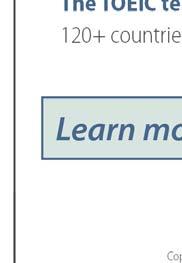
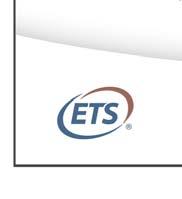

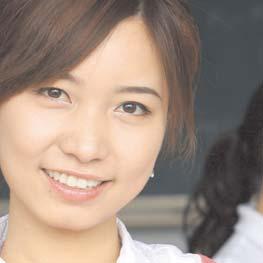


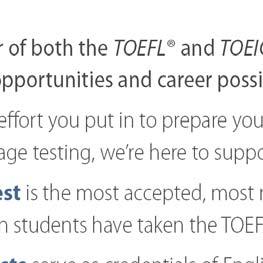

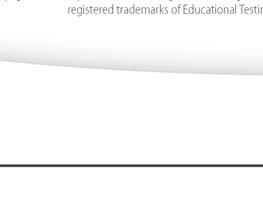

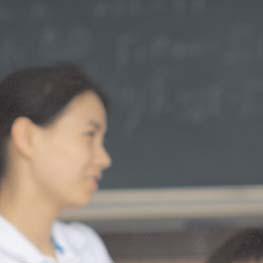

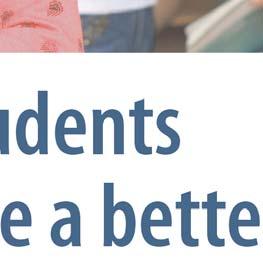


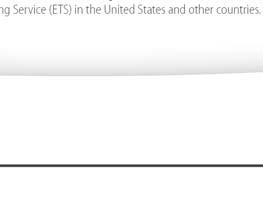

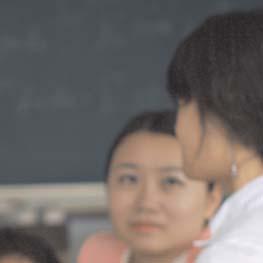
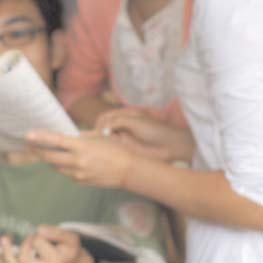



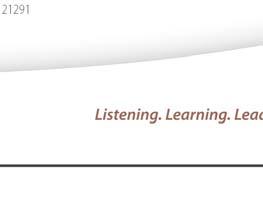






SIG Days
IATEFL Special Interest Groups (SIGs)
What are the SIGs?
• The aim of the IATEFL Special Interest Groups is to extend the work of IATEFL into several specialist areas, to enable professionals with special interests in ELT to benefit from information regarding new developments and local and international events in their areas of special interest.
Why should I join a SIG?
• Each Special Interest Group aims to provide its members with three mailings (newsletters, updates, other publications) per year. The SIG newsletters often include key articles in the field, as well as informing the membership of the proceedings of conferences and one-day events which members may have been unable to attend.
• Each Special Interest Group aims to organise a minimum of one event (in the UK or outside the UK) per year. These events frequently include the most informed and stimulating speakers in the field.
• In addition there are other benefits for SIG members, which vary from one SIG to another, such as websites, internet discussion lists, internet webinars, scholarships, etc.
• Full Individual Members of IATEFL are entitled to join one Special Interest Group included in their membership fee.
Who are the SIGs?
Business English Learner Autonomy Research
English for Specific Purposes Learning Technologies Teacher Development
ES(O)L Literature, Media & Cultural Studies Teacher Training & Education
Global Issues
Materials Writing Testing, Evaluation & Assessment
Leadership & Management Pronunciation Young Learners & Teenagers
You can be active in IATEFL: Be active – Join an IATEFL SIG
For more information about the SIGs, come to the IATEFL stand in the exhibition, contact IATEFL at generalenquiries@iatefl.org, visit www.iatefl.org, or contact the coordinators of each group at the relevant email address below:
Business English – besig@iatefl.org
English for Speakers of Other Languages - esolsig@iatefl.org
English for Specific Purposes - espsig@iatefl.org
Global Issues - gisig@iatefl.org
Leadership and Management - lamsig@iatefl.org
Learner Autonomy - lasig@iatefl.org
Learning Technologies - ltsig@iatefl.org
Literature, Media and Cultural Studies - lmcssig@iatefl.org
What is a SIG Day?
Materials Writing – mawsig@iatefl.org
Pronunciation - pronsig@iatefl.org
Research – resig@iatefl.org
Teacher Development - tdsig@iatefl.org
Teacher Training and Education - ttedsig@iatefl.org
Testing, Evaluation and Assessment - teasig@iatefl.org
Young Learners and Teenagers - yltsig@iatefl.org
On the following pages, the Special Interest Groups list their SIGDays. These are selections of talks and workshops which are a sample of the breadth and variety of work being done around the world in each field of special interest. Each SIG Day includes an Open Forum, which provides an opportunity for both members and non-members to hear about the SIG’s activities and to talk to other members of the SIG.
-41-
-41-
Special Interest Group Days
Special Interest Group (SIG) representatives will be introducing sessions on these SIG Days and will be present at the Open Forum. They will also be available on the IATEFL Stand should you wish to talk about the work of the SIGs in more detail. (Please see page 32 to find out when a representative from the group you are interested in will be available at the IATEFL stand.) Don’t forget to look through your Programme to see what other interesting talks and workshops related to your area of special interest are being held throughout the conference.
Business English
Thursday 3 April – Harewood 2
2.1 1025-1055 The ingredients of effective international human resources communication
Steve Flinders
2.2 1130-1200 Authentic business skills techniques adapted to business English classes
Dana Poklepovic
2.3 1215-1245 From academic corpus to business classroom: teaching appropriate vocabulary effectively
Andrew Preshous
2.4 1405-1450 Language for building business relationships
Gabrielle Jones
2.5 1505-1535 English as a lingua franca: how can we teach it?
Rudi Camerer
2.6 1550-1635 Tech-enhanced traditional storytelling in business English
Justine Arena
2.7 1710-1740 Teaching business English - are we doing it right?
Evan Frendo
1745-1815 IATEFL Business English Special Interest Group Open Forum
English for Specific Purposes
Friday 4 April – Ripley
3.1 1025-1055 How do engineers say that? Encouraging academic independence in EAP
Julie Moore
3.2 1130-1215 Teaching English for Academic Purposes: insights from experience
Penny Ur
1215-1235 IATEFL English for Specific Purposes Special Interest Group Open Forum
3.3 1335-1420 EAP teacher practice: making it visible
Steve Kirk
3.4 1435-1520 Teaching and learning EAP: developing roles, defining competences, sharing practices
Edward de Chazal
3.5 1535-1605 Practice makes perfect: designing repetition into the speaking activity
Tilly Harrison
3.6 1640-1710 Revisiting EAP to meet language needs of Omani engineering students
Holi Ali
3.7 1725-1810 The VocabularyOrganizer: a new way to record lexis
Pete Sharma
-42-
-42-
Special Interest Group Days
ES(O)L
Thursday 3 April – Charter & Ripley
2.1 1025-1055 Charter
Teaching writing for social media: no laptop required Genevieve White
2.2 1130-1200 Charter What drives the learner? Or, how to keep students motivated Lesley Speer
2.3 1215-1245 Charter Motivating young ESOL learners Oya Karabetca
2.4 1405-1450 Ripley
2.5 1505-1535 Charter
2.6 1550-1620 Charter
1620-1635 Charter
Global Issues
Language teaching techniques which work Philida Schellekens
Becoming British: ESOL citizenship material and classroom pedagogy
Sundus Ameer
College and community partnerships – pointers for success Emily Bryson & Helen Jackson
IATEFL ES(O)L Special Interest Group Open Forum
Friday 4 April – Queen’s 7 & Auditorium
3.1 1025-1055 Auditorium
3.2 1130-1235 Queen’s 7
3.3 1335-1420 Queen's 7
3.4 1435-1520 Queen's 7
Can global issues provide authenticity and context in English teaching? Ken Wilson
IATEFL Global Issues Special Interest Group Open Forum
Widening horizons with YouTube - ways of going deeper Margit Szesztay
Beyond story - the pedagogical and social potential of stories Rick Sampedro
3.5 1535-1605 Queen's 7 Global education meets visual literacy: reading global images critically Thorsten Merse
3.6 1640-1710 Queen's 7
Eco-conscious ESL: reducing our carbon footprint with alternative methodologies Barbara Enid James
-43-
-43-
Special Interest Group Days
Leadership & Management
Wednesday 2 April – Charter
1.1 1040-1125 How to recruit the best English language teachers for your business
Janet Tufnell
1.2. 1200-1230 Cultivating a community of practice
Geoff Hardy-Gould
1235-1305 IATEFL Leadership & Management Special Interest Group Open Forum
1.3 1405-1450 Be the DoS you want to be
Josh Round
1.4 1505-1535 Informal learning is the new black in management development?
Liam Brown
1.5 1550-1635 Evidence-based observation - tips and tools
Silvana Richardson
1.6 1710-1740 From INSETT to CPD - an ELT autobiography
Jane Cohen
1.7 1755-1825 Leading not managing: assertive, aggressive or just plain awkward?
Oliver Beaumont
Learner Autonomy
Friday 4 April – Queen’s 5
3.1 1025-1055 Linguistic landscapes: learning from the language all around us
Stephen Greene
3.2 1130-1200 Improving classroom practice through the effective use of student journals
Michelle Tamala
1205-1235 Developing a learning diary - getting teachers involved
Andrew Daventry & Sarah Hayhurst
3.3 1335-1420 Dogme in the classroom: doing drama devised by students
Natalia Belousova
3.4 1435-1520 Facilitating student progress and assessment for learning: the teacher’s perspective
Vic Richardson
3.5 1535-1605 Portfolios in the EFL classroom - the route to progress?
Anna Wright
3.6 1640-1710 The interdependence of language teacher and language learner motivation
Anna Uhl Chamot
3.7 1725-1810 IATEFL Learner Autonomy Special Interest Group Open Forum
-44-
-44-
Special Interest Group Days
Learning Technologies
Friday 4 April – Harewood 1
3.1 1025-1055 Strategies for effective live online teaching and learning
Cecilia Cicolini
3.2 1130-1200 Lesson learned from a ‘language MOOC’ pilot
Nick Turner
1205-1235 Creating and distributing mobile learning materials in resource-poor environments
Amy Lightfoot
3.3 1335-1420 Making the most of e-book readers
Victoria Boobyer
3.4 1435-1520 Flippin' IELTS
Nicola Crowley
3.5 1535-1605 Digital storytelling: the power of personal narrative in ITT
Angie Quintanilla
3.6 1640-1710 Online tools for analysing lexis, grammar and discourse in texts
Stephen Bax
3.7 1725-1810 IATEFL Learning Technologies Special Interest Group Open Forum
Literature, Media & Cultural Studies
Friday 4 April – Charter
3.1 1025-1055 Literature and learning technologies: an experience in pre-service teacher education
Mariel Roxana Amez
3.2 1130-1200 Graphic narratives: ideal choice for both reluctant and ambitious readers
Janice Bland
1205-1235 IATEFL Literature, Media & Cultural Studies Special Interest Group Open Forum
3.3 1335-1420 Versatile beginnings
Elsbeth Mader
3.4 1435-1520 Remembrance and memorials: constructing cultural memory
Alan Pulverness
3.5 1535-1605 Building up amazing projects through creative learning
Biljana Dedic
3.6 1640-1710 Reading for pleasure: a path to learner autonomy?
Amy Brown
-45-
-45-
Special Interest Group Days
Materials Writing
Wednesday 2 April – Harewood 2 & Ripley
1.1 1040-1125
Harewood 2
1.2 1200-1230
Harewood 2
1235-1305
Harewood 2
1.3 1405-1450
Harewood 2
1.4 1505-1535
Harewood 2
1.5 1550-1635 Ripley
1.6 1710-1740
Harewood 2
1.7 1755-1825
Harewood 2
Writing for digital: challenges and solutions
Fiona MacKenzie & Russell Whitehead
Kickstarter and ELT publishing
Marcos Benevides
How (or possibly how not) to self-publish high-quality apps
Jonathan Bygrave
More than just a worksheet: writing effective classroom materials
Rachael Roberts
Do materials writers have principles?
Jill Hadfield
Lexical sets, texts and vocabulary choice
Andrew Walkley
So what does that involve? Incorporating general vocabulary into topics
Katherine Woodford & Elizabeth Walter
IATEFL Materials Writing Special Interest Group Open Forum
Pronunciation
Thursday 3 April – Queen’s 5
2.1 1025-1055
Pronunciation and listening require different models of speech
Richard Cauldwell
2.2 1130-1200 Pronunciation and e-portfolios: developing self-regulatory skills and self-esteem
Marina Noelia Cantarutti
2.3 1215-1245 Inconspicuous yet powerful: neutral vowel schwa and its didactic potential
Kristyna Poesova
2.4 1405-1450 Pronouncing meaning: rhythm and stress games
2.5 1505-1535
Mark Hancock
Practical pronunciation ideas for teaching in an ELF context
Katy Davies & Laura Patsko
2.6 1550-1620 PEPFT - a pronunciation course for teachers
Catarina Kruppa
2.7 1710-1740 Stress AND reduction: both are essential for English pronunciation
Piers Messum
1745-1815 IATEFL Pronunciation Special Interest Group Open Forum
-46-
-46-
Special Interest Group Days
Research
Wednesday 2 April – Harewood 1
1.1 1040-1125 Insights into language learning psychology: bringing in teachers' perspectives
Christina Gkonou & Mark Daubney
1.2 1200-1305 ForumonSupportingteacher-research:challengesandopportunities
Managing teacher-research: a project with Chilean secondary school teachers
Richard Smith & Paula Rebolledo
Action research for teacher learning: opportunities and challenges
Fauzia Shamim
Helping teachers become action researchers through (despite?) teacher education
Mark Wyatt
1.3 1405-1450 Watching our words – researching and developing language counselling
Felicity Kjisik & Leena Karlsson
1.4 1505-1535 Children and teachers becoming researchers – a project in India
Annamaria Pinter & Rama Mathew
1.5 1550-1635 IATEFL Research Special Interest Group Open Forum
1.6 1710-1740 First experience of exploratory/action research: improving oral presentations
Katie Moran
1.7 1755-1825 The contribution of exploratory practice to professional development: research findings
Susan Dawson
Teacher Development
Thursday 3 April – Queen’s 7
2.1 1025-1055 Implementing teacher portfolios for professional development
Daniel Xerri & Caroline Campbell
2.2 1130-1200 Challenges of maintaining CPD with experienced staff
Huseyin Demirel
2.3 1215-1245 The hole in the classroom wall
Sinead Laffan
2.4 1405-1450 Try before you buy. A framework for conversation-based learning
Nicola Meldrum
2.5 1505-1535 The accommodating teacher: are you intelligible to your students?
Chris Ozog
2.6 1550-1635 Improvisation: where teachers fear to tread
Mojca Belak
2.7 1710-1740 EFL teachers’ need for recognition
Barbara Gonzalez
1745-1815 IATEFL Teacher Development Special Interest Group Open Forum
-47-
-47-
Special Interest Group Days
Teacher Training & Education
Thursday 3 April – Harewood 1 & Auditorium
2.1 1025-1055 Harewood 1
2.2 1130-1200 Harewood 1
2.3 1215-1245 Harewood 1
2.4 1405-1450 Harewood 1
The flipped classroom: scaffolding community online
Susan Barduhn, Jaime Durham & Katrina Baran
Training EFL teachers to work with pupils’ parents
Sylwia Wisniewska
The bare necessities of ELT life
Barbara Buxton
Developing teacher educators, developing teacher education
Briony Beaven
2.5 1505-1535 Harewood 1 IATEFL Teacher Training & Education Special Interest Group Open Forum
2.6 1550-1635 Auditorium
2.7 1710-1815 Auditorium
Upgrade! Demand high to bring a grammar lesson alive
Jim Scrivener
ForumonInvestigatingnewknowledgeconstructsinteachereducation Investigating sources of familiarity in developing professional knowledge
Anne Burns
Investigating professional confidence in developing teacher classroom language
Anne Katz
Investigating professional confidence in teacher learning and development
Donald Freeman
Testing, Evaluation & Assessment
Wednesday 2 April – Queen’s 7 & Auditorium
1.1 1040-1125 Queen’s 7 IATEFL Testing, Evaluation & Assessment Special Interest Group Open Forum
1.2 1200-1230 Queen's 7
Project-based learning in the ESL classroom
Aysen Gilroy 1235-1305 Queen's 7
Teaching for learning - not teaching to the test
Susan Sheehan
1.3 1405-1450 Queen's 7 The joys of IELTS marking Ruth Carr & Sally Lloyds
1.4 1505-1535 Queen's 7
1.5 1550-1635 Queen's 7
1.6-1.7 1710-1815 Auditorium
Micro- and macroskills of speaking: creating situations for their development
Aida Rodomanchenko
How to write a good task for a test
Felicity O'Dell
Assessment literacy: bridging the gap between needs and resources
Vivien Berry, Barry O'Sullivan, Lynda Taylor & Diane Schmitt
-48-
-48-
Special Interest Group Days
Young Learners & Teenagers
Wednesday 2 April – Queen’s 5
1.1 1040-1125 Taking storybook lessons further through art, drama, sport and yoga
Nicky Francis
1.2 1200-1230 Thoughts on inclusive education: and that includes you!
Luciana Fiuza
1235-1305 First English words: what can pre-schoolers do?
Hans Mol & Niki Joseph
1.3 1405-1450 Dyslexia for Teachers and Trainers
Svetlana
Hanusova & Nada Vojtkova
1.4 1505-1535 Learner autonomy through free play in pre-primary English
Sandie Mourao
1.5 1550-1635 How does grammar fit into a primary-sized head?
Dave Tucker
1.6 1710-1740 Teaching young learners: re-thinking curricula for the 21st Century
Matthew Stubbs
1.7 1755-1825 IATEFL Young Learners & Teenagers Special Interest Group Open Forum
-49-
-49-






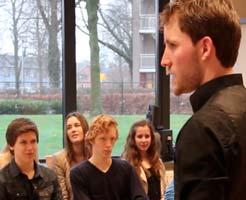




















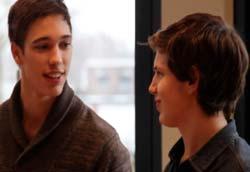

























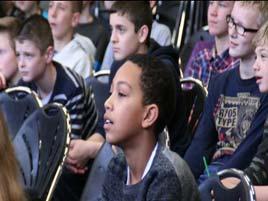










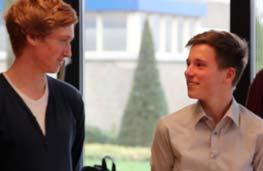






We hope you are enjoying the IATEFL Harrogate conference!















Interested in attending IATEFL Manchester 2015? Did you know you can apply for a scholarship to attend the IATEFL Manchester Annual Conference?
To see which ones you are eligible for please visit the IATEFL Scholarship stand in the Exhibition Hall.
Alternatively visit our website http://www.iatefl.org/information/scholarships
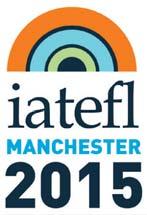


Save the date IATEFL Manchester 11 - 14 April 2015 POSTERS
PRESENTATIONS
The following pages contain the details of the conference presentations –
Pages 51-57Poster presentations
On display in Hall D
Look on pages 51-57 to see when the presenters will be at their poster presentation.
Pages 59-91Wednesday sessions
Pages 93-127Thursday sessions
Including the IATEFL Annual General Meeting 1255-1400 in Auditorium
Pages 129-164Friday sessions
Pages 165-177Saturday sessions
Quiz for fun !
Q5 – How many scholarships were awarded this year? Answer on page 203
Presentations



“More
• Over 2 million IELTS tests were taken last year in over 130 countries around the world
Presentations
The world’s most popular English language test for higher education and global migration
• More than 9,000 universities and colleges know that • IELTS tests the modern English skills that people need to live, study and work around the world Visit the IELTS stand and look out for IELTS teacher workshops and events! www.ielts.org
international students choose IELTS.”
re
nationa oun0c
la
Th ld
tr akenlast re t e s w est S t LT niomigrat l neducatio test uageng opula t p os s m ’ year r choo stud LTS.”IELT se sent lt i teacherworksho LTSELT e I h t t Visi tu , s ive o l d t nee he s t est S t LT IELT • ,000 n 9 ha re t Mo 0 c r 1 n o vents! d e n s a p IE for fo out ook d l n d a anst o e w h d t roun k a or d w n y a d hat ls t kil h s nEnglisrmode n s k ollege d c n s a tieuniversi e w d t s a LTS LT ldr hat w t o s.org e w. w w
inter
“Mo l
inover13 Over2millionIE • baglo and for
ldor e w
iesaroundthewor
Poster presentations
During the conference there is a Poster Forum displayed in Hall D.
NEW THIS YEAR:
Presenters will be present at their poster to discuss it with delegates and to answer any questions on Wednesday from 1840 to 1910 and on Thursday from 1830 to 1900.
Please see below for the day each presenter will be present.
Poster 1 Wednesday BE, ESP
Poster 2 Thursday LT, TEA
Nowadays, English is the accepted international language of technology and commerce; new learners know specifically why they need English. EL Teachers in Egyptian Technical Colleges have had to develop courses to fulfil those learners’ needs. Here I investigate the role of EBP teachers in Technical Colleges in Upper Egypt after finishing the TOT course in the British Council.
Technology has changed the way we assess learners. Besides many tools, mobile devices have been playing an important role in assessment for a while. In this presentation, I will show you how you can assess your 21st Century learners through mobile learning. I will also add spice by sharing my own experiences.
Poster 3
Wednesday AL, RES
Poster 4
Thursday TTEd, TEA
With the aim of ensuring quality research in mind, this presentation shows some issues relating to research conduct. These are research questions and hypotheses, data collection methods, research designs, statistical tests and research ethics. Linking the presentation to EFL/ESL contexts, the presenter includes a number of points for practitioners to consider whilst conducting a research project.
The presentation focuses on how to train teachers to apply CEFR principles to assessment instead of allotting holistic impression marks, and how to use CEFR descriptors as a benchmark. I will also look at different moderation techniques, which help us put standardization training into practice and remove extremes.
Poster 5
Wednesday
What if we teach exclamatory sentences as communicative units? I will show how I could do so by training university students of English to examine the illocutionary force of these sentences in selected excerpts from literature, and how doing so could make them proficient users of these sentences in written discourse.
AL = Applied Linguistics
BE = Business English
EAP = English for Academic Purposes
ESAP = English for Specific Academic Purposes
ES(O)L=English for Speakers of Other Languages
ESP = English for Specific Purposes
GEN = General
GI = Global Issues
LA = Learner Autonomy
LAM = Leadership & Management
LMCS = Literature, Media & Cultural Studies
LT = Learning Technologies
MaW = Materials Writing
MD = Materials Development
PRON = Pronunciation
RES = Research
TD = Teacher Development
TEA = Testing, Evaluation & Assessment
TTEd = Teacher Training & Education
YLT = Young Learners & Teenagers
-51-
I mp r ov i n g E S P l e ar n i n g in E gy p t i a n t e ch n i ca l c ol l e ge s M oh a m ae d A b d E l W ak e e l ( M id d l e Va l l e y Te ch n i ca l C ol l e ge & A s si u t T e c hn ic a l an d C omme r c i a l
n s t i t u t e
I
)
M ob i l e de vi c e s as a me a n s of a l t e rn a t i v e a s s e s me n t S e v i m A c i k g o z ( Is t a n b u l Bi l g i U n i v e r s i t y )
R e se ar c h w it h i n t h e f i el d of a p p l i e d l i n gu is t i c s : p o in t s t o c on s i d e r S u h a ir A l - A l a m i ( A l Gh u r a i r U n i v e r s i t y , D u b a i )
A p pl yi n g C E F R p r i n c i p l e s t o t e st in g an d as s e s s me n t i n pr a c t i ce M il a A n g e l ov a ( E A Q U A L S )
U s i n g l i t e r at u r e t o t e ac h t h e i l l oc u t i on ar y f or ce of e x c l a m at or y se n t e n c e s S a m i r a C h a ib e d d r a ( Un i ve r si t y of C on s t a n t i n e 1)
AL, RES
-51-
POSTERS
Poster presentations
Poster 6
Thursday AL, EAP
Poster 7 Wednesday TTEd
The poster aims to explore researchers’ perceptions of problems in writing for scholarly publication in English in higher education in Taiwan. The findings show that there are a number of problems which confront Taiwanese scholars in writing for publication in English. The influence of A&HCI/SCI/SSCI for scholarly publication in English in Taiwan will be discussed as well.
Assuming that the goal ‘to induce the learning’ has to be achieved even in a descriptive course of Spoken and Written Grammar of English, memorisation is at issue. Repetition of the most typical illustrative examples by the lecturer in instruction, written lecture notes, in exercises and even in standardised tests has rendered good results, judging by the students’ oral responses.
Poster 8
Thursday PRON
Poster 9 Wednesday GI
Learners of English often ask teachers to include pronunciation in their lessons, but this does not always happen. When teachers were asked to comment, they said that teaching pronunciation was a problem. Teachers were given a questionnaire concerning the importance of teaching pronunciation. It is hoped that the findings will lead to a situation where teaching pronunciation becomes routine.
The poster will show a scalable process that can be used to include contacts outside the classroom more often. Experience shows that motivation to produce language is higher when communicating with third parties in authentic contexts, whether national or global. The poster will follow the example of a DanishUS joint project to demonstrate the stages.
Poster 10
Thursday AL, YLT T h e b e ne f i t s of c l a s sr o
This presentation focuses on the benefits of effective classroom management and organisation. It includes findings of a study conducted in Greece, where children are exposed to teacher-centred layouts. A presentation of data from a two-phase study will take place: the exploratory research, where the reality of the situation was recorded; and the action research, where challenges were met due to a newlyintroduced student-centred environment.
Poster 11
Wednesday TD, TTEd
Poster 12 Thursday RES, TD
The presentation aims to define theoretically the problem of national stereotypes in intercultural FLT and suggest teaching strategies to overcome it. The stereotypes under analysis are those about the Russians, the English and self-stereotypes of the audience, who is encouraged to help demonstrate the practical ways to solve the problem. Everybody interested in intercultural FLT is welcome.
A presentation based on a study that investigated the thinking and practices of English teachers working at Japanese universities. The relationship between social context and the teachers’ work is analysed. The ways teachers responded to contextual factors in order to maximize learning are outlined. Similarities identified between the two groups could be used as the basis for collaboration, providing better learning opportunities for students.
-52-
W
g
l y p u r
h i g h e
i
r i t i n
f or s ch ol ar
p os e s i n
r e d u c at
on in T a i w an S h i h - C h i e h C h i e n ( T ai p e i , T a i wa n )
A
v i k a
r az d au s k i e n e ( W sz e c h n ic a P ol s k a
n ol d ru le ap p l i e d an e w L iu d
D
)
P r on u n c i a t i on : sk il l t o b e t au g h t , b u t of t e n ne g le c t ed b y t e a ch e r s M e l v i n d u P re e z ( S te l le n b os ch U n iv e rs i t y L a n g u ag e C e n t r e )
e t o i n c re as e m ot i v a t i on A n n e F ox ( F r e e l a n c e , D en ma r k )
E x p l oi t i n g t h e au d i e n c
om m an ag e me n t an d or g an i s at i on in Y L T C h r is t i n a Ni c ol e G i a n n ik as ( C y p r u s U n i v e r s i t y of T e ch n ol og y )
T e a ch in g s t r at e g i e s i n F L T w i t h i n i n t e r c u l t u r al ap p r oa c h : s ol v in g c on f l i c t s V i c t or ia G on c h ar ov a ( M os c ow C it y T e a ch e r s ' T r a i n i n g Un iv e r s it y , M o sc ow , R u ss i an F e d e r at i on )
U s i n g s oc i a l c on t e x t i n E n g l i s h l a n g u ag e t e ac h i n g in J a p an W i l l i a m G r e e n ( S a p p or o U n i v e r s i t y )
T h e P o s t e r F o r u m i s l o c a t e d i n H a l l D . NEW : P r e se n t e r s w i l l b e p r e s e n t a t t h e i r p o s t e r t o d i s c u s s i t w i t h d e l e g a t e s an d t o a n s w e r q u e s t i o n s o n W e d n e s d a y f r o m 1 8 4 0 t o 1 9 1 0 an d o n T h u r sd a y f r o m 1 8 3 0 t o 1 9 0 0 -52-
POSTERS
Poster 13
Wednesday LT, MD
Poster 14
Thursday TD, TTEd
Poster 15 Wednesday AL, ESAP
Poster 16 Thursday TD, TTEd
Poster 17 Wednesday EAP
Poster presentations
I designed an online learning course based on Fink’s taxonomy to teach reading, writing and 21st Century skills to grade 9 students. I will describe Fink’s taxonomy, explain the three phases of the design methodology and show a course unit. Together, we can discuss the implementation of the course for your classrooms.
Recently in Japan, some university students don't study English. In particular, they've already lost their goals from the beginning because they didn't study English hard at junior and senior high schools. And they don't like English. But they're interested in their majors so I aroused their interest in English by using their majors as motivation.
B o os t
The presentation is focused on developing discussion skills. The question is how to move from learning clichés by heart and pre-cooked dialogues to free, real-life discussion based on critical thinking and argumentation skills. The reasons for boosting and thwarting this process in the classroom are analysed. Some possible solutions and considerations are offered for reflection and discussion.
Taking an interpretive epistemology, the study takes the theoretical framework of Community of Practice and adopts ethnography as the methodology. Three questions are answered: how do university EFL teachers understand teacher learning in a community of practice? How do teachers undertake teacher learning in the community? How to construct and improve operating mechanisms of teacher learning in the community of practice?
The majority of learners in ESL/EFL contexts fail to acquire grammar despite its centrality in curricula at all levels. An alternative paradigm experimented at Anna University, India, is to be reported: immersing learners with a variety of texts of the grammatical item to be taught, conducting tasks starting from discourse to sentence to word level and discovering rules by themselves.
Poster 18
Thursday LAM, TD Us i n g e m o
The purpose of this poster presentation is to raise awareness of what constitutes Emotional Intelligence and the benefits of working with it. In particular: self and other awareness; emotional management; reflexive monitoring; emotion regulation (of self and others); and relating emotional intelligence to intercultural communication, with Arabic and Japanese learners.
Poster 19 Wednesday EAP, TD
I present a Research on Faculty Development in Higher Education by the presenter (Woodrow Wilson / BNU Funded Project). Research reveals that graduates required English for doing white-collar jobs in countries having English as a Second medium of Language. However, due to mass failures in English, professional development is critical for quality higher education.
AL = Applied Linguistics
BE = Business English
EAP = English for Academic Purposes
ESAP = English for Specific Academic Purposes
ES(O)L=English for Speakers of Other Languages
ESP = English for Specific Purposes
GEN = General
GI = Global Issues
LA = Learner Autonomy
LAM = Leadership & Management
LMCS = Literature, Media & Cultural Studies
LT = Learning Technologies
MaW = Materials Writing
MD = Materials Development
PRON = Pronunciation
RES = Research
TD = Teacher Development
TEA = Testing, Evaluation & Assessment
TTEd = Teacher Training & Education
YLT = Young Learners & Teenagers
-53-
D e si g n in g a s i g n i f i c an t on l i n e l e a rn i n g c ou rs e t o e n h an c e st u de nt s ' l e ar n i n g C l au d i a H as s an ( Ha j j B ah a a H a r ir i S c h ool a n d L e b a n e se In t e r n a t i on al Un iv e r s i t y )
S t u d y of u s i n g s t u d e n t s ' ma j or s an d sp e a k i n g Gl ob i s h Y ok o Hir a se ( Hi r o s h i ma K ok u sa i Ga k u in U n iv e rs i t y )
i n g a n d t h w ar t i n g d i sc u s s i on s i n t h e c l a ss r oo m T at i a n a Iv an ov a ( N ort h W e s t In s t i t u t e of M an ag e me n t of t h e P r e si d e n t i a l A c ad e my )
U n i v e r s i t y E F L t e a c h e r l e a r n i n g i n a c o m mu n i t y of p r a c t i c e Y u h on g J i an g ( S ou t h we st Un iv e r s i t y )
Gr a m m ar t e a c h i n g i n t h e E S L c on t e xt - g r av e y a rd t o or c h ar d E l an g o K a n d an ( A n n a Un i ve r si t y , C h e n n ai , T a mi l N ad u , In d i a)
t i on al i n t e l l i ge n c e in a mu l t ic u l t u r al l e ar n i n g e n v i r on me n t D e bb ie M an n ( I NT O Ne w c as t l e Un ive r sit y )
R ol e a n d s t a t u s of p r of e s s i o n al d e ve l op me n t an d h i gh e r e d u c at i on ou t c ome s S ab i h a M a n s o or ( L ah or e C ol l e g e f or W o me n U n i v e r s i t y , L a h or e , P a k i s t a n )
-53POSTERS
POSTERS
Poster presentations
Poster 20 Thursday GEN
Poster 21 Wednesday EAP
In Bangladesh many children do not receive education because they have to work for survival. Often, the potential of the poor is forgotten. In Sylhet, a night high-school provides them with the opportunity to learn English. The model can be used anywhere in the world as a ray of hope. The presentation focuses on why and how schooling is successful against the odds.
Poster 22 Thursday MD
Today, like has become popular in spoken English expressions. This reveals linguistic features that are different from conventionally known types. This study, investigates the use of like as a replacement for prepositions. It also highlights the attitude of academics to this usage and the implications this speech mannerism may hold for English language teaching and learning.
Pupils from diverse cultural and linguistic backgrounds present English teachers with unique challenges in Germany. Useful activities to teach English in multilingual classes will be explored, which were applied in a teacher training program. We can discuss adapting these practical implications for different teaching contexts.
Poster 23 Wednesday TD, YLT M u l t ip l e in t e l l
This presentation explores the Multiple Intelligences Theory being used in two learning contexts: a private language school and a regular public school. In the former, the challenge is to make students learn English and present the required results. In the latter, besides learning English, the importance of learning it is stressed.
Poster 24 Wednesday ESP E n gl is h
H a n s P l at ze r &
The poster presentation discusses the results of a longitudinal study (1999-2011) on the use of English in the Austrian workplace. The study is based on a sample of 582 in-service students at the Fachhochschule Wiener Neustadt and focuses on: (a) factors affecting learners' motivation to attend language training; and (b) their actual use of English in the workplace.
Poster 25 Thursday ESAP, LA
Poster 26 Wednesday TD, TTEd
Teaching English for Specific Academic Purposes (ESAP) at university level includes students' independent work. According to new standards of education in Russia, it can be effectively used for learning linguistics, English and American literature. Independent work creates a new form of collaboration between a teacher and a student and integrates critical thinking in the classroom.
Teachers of English are playing an important role to society. Every child is different from each other according to their needs. Some have an upper level of understanding and some have lower. They do not all have an equal level of capacity. My poster shows that education should be based on pedagogy and participatory method.
Poster 27 Thursday GEN
How much English literature is needed for ensuring English language proficiency of EFL learners in undergraduate English programs? Do the learners, to some extent, waste their efforts in studying details of English literature while they could have reached much closer to their target of achieving English language skills by attaining and utilizing more chances for nurturing the four language skills?
-54-
T e a ch in g E n g l i s h t o s t u d e n ts at r isk : a s u c c e s s s t or y M d A s a d M i ah ( U K BE T - S C E L T A )
" L i k e " , a r e p l ac e me n t f or c o n t en t wor d s i n N i ge r i an E n gl i sh ? O l u w ak e m i T it il ol a O l a y e m i ( De p a r t me n t of E n g l is h & P e r f or m in g A r t s , O l ab is i O n a b a n j o U n i v e r s it y, N ige ri a )
T e a ch in g E n g l i s h in mu l t il in gu a l c l a s se s : ye t h o w?
e n e m O z k u l ( A u gs b u r g Un iv e r s it y)
S
ige n c e s t he or y : t w o e xp e r ie n ce s w it h y ou n g l e ar n e r s
D e b or a P as c h oa l e t t o P os s a n i ( Se v e n Id i om a s)
u s e in
s t r ia n w or kp l ac e : a l on g it u d in a l s t u d y
D e s ir e e V e r don k ( Un ive r s it y of A p p l ie d Sc ie n ce s W ie n e r Ne u s t a d t )
t h e Au
In d e p e n d e n t w ork at u n i ve r s i t y l e v e l : ne w s t an d a r d s i n R u s s i a N at al ia P u z an ov a ( D e p a r t me n t of E n gl ish P h il ol og y , S t P e t e rsb u r g P e d ag og ic a l U n i v e r sit y , R u s si a)
T h e w ay of in n ov a t i on a n d r e l e v a n c e t o t e a c h e r s of E n gl is h M d A d u r R a h ama n ( F A M S In t e r n at ion a l S c h o ol A n d C ol l e ge )
D ic h ot omy b e t we e n e xp e c t a t i on s f or l a n gu ag e p r of i c ie n c y a n d d e al in g l it e r at u r e e xt en s iv e l y M d A l i R e z wa n T a l u kd a r ( D e p t of E n g l ish , C o m il l a Un iv e r sit y , C o m il l a , B a n g l a d e s h )
-54-
Poster presentations
Poster 28 Wednesday TD, TTEd
The presentation will focus on the teachers’ knowledge on the assessment of the learners’ linguistic and interactional skills and the improvement of teacher cognition. A completed phase of a research on professional development of teachers based on systematic assessment of EFL learners helps to find out new ways of effective teacher development.
Poster 29 Thursday YLT C
I will present the sometimes unexpected outcomes of a project where thought-provoking proposals, made by Smith (2007), were used to incorporate principles of process writing in an EFL learning environment, with the aim of encouraging language learners to freely express their ideas and develop their creative writing skills in a meaningful way through the use of personal journals.
Poster 30 Wednesday EAP
Poster 31 Thursday TD, YLT
My EAP classes got unprecedented motivation after I decided to start them with an awareness-raising video produced locally. Local famous comedy actors have contributed to convey the message about the English role in a humorous way within 11 minutes. My presentation explains how the sketch illustrates the attitude of unprepared students and the consequences of their negative attitudes toward the English language.
This presentation argues that successful language teaching needs to allow for organic and sustainable learning. There is an overwhelming amount of research and literature available on language teaching, which makes it hard to see the wood for the trees, even for experts. This presentation tries to provide a map by proposing 11 essential principles.
Poster 32
Wednesday LA, LT U s in g p r ob l e m- b a se d le ar n in g wi t h t h e u se of s i
This poster will address the following questions: What is problem-based learning and what are its goals? How and why can we implement sign language in an EFL primary classroom? Which student benefits the most out of sign language? How can we use sign language with special needs learners?
Poster 33 Thursday TD, TTEd
Poster 34
Wednesday EAP, ESP
I mp l e me n t i n g a me
I describe a teacher development programme involving 20 teacher-mentors and approximately 200 EFL teachers. This study is relevant to teachers as it highlights the role of mentoring in encouraging reflection and improving classroom practices. The main goal is to investigate the challenges and changes faced by the participants, with a focus on investigating their teaching beliefs and classroom practices.
Traditional coursebooks often favour social sciences over natural sciences. Seeking to redress the balance, this presentation offers a set of ‘guiding principles’ to those wishing to implement an ESP program. Specifically, the process of identifying course needs, choosing materials, formulating objectives, and giving consideration to the roles of classroom teachers, assessment and feedback will be explored in this presentation.
AL = Applied Linguistics
BE = Business English
EAP = English for Academic Purposes
ESAP = English for Specific Academic Purposes
ES(O)L=English for Speakers of Other Languages
ESP = English for Specific Purposes
GEN = General
GI = Global Issues
LA = Learner Autonomy
LAM = Leadership & Management
LMCS = Literature, Media & Cultural Studies
LT = Learning Technologies
MaW = Materials Writing
MD = Materials Development
PRON = Pronunciation
RES = Research
TD = Teacher Development
TEA = Testing, Evaluation & Assessment
TTEd = Teacher Training & Education
YLT = Young Learners & Teenagers
-55-
P r of e s s i on a l d e v el op me n t t h r ou g h t h e as s e s s me n t of l e ar n e r s G u l s h an S a m a d o v a ( XX I C e n t u r y In t e rn at i on a l E d u ca t i on a n d I n n ov at i on C e n t r e )
r e at i v e w r it in g t h r ou g h p e rs on al j ou r n a l s : m ot i v a t i n g t e e n a g e r s t o c o mmu n i c a t e i d ea s L i l i a n a S an ch e z ( T h e A n g l o M e x ic a n F ou n d a t i on )
E n g l i s h r ol e a w a r e n e ss - an E A P s t r a t e g y i n U N IK I N D R C R a y m on d S an g ab au ( U n i ve r s i t y of K i n s h a s a)
O r g a n i c a n d s u s t a i n ab l e l an g u a g e l e ar n i n g at s e c on d a r y s ch ool U r s u l a S c h ae r
g n l an g u a g e A l S ay e g h S h e r i f a ( M i n i st r y o f E d u c a t i on , K u w a i t )
n t or i n g p rog r a m me : me e t i n g t e a c h e rs ' p r of e s si on al n e e d s M a r il i s a S h i m az u m i ( C u l t u r a In g l e s a S a o P a u l o )
H ow we ma d e an E n g l is h f or M at h s a n d S c i e n c e c ou r s e A d am S i mp s on ( S ab an c i U n i ve r si t y)
-55-
POSTERS
POSTERS
Poster presentations
Poster 35 Thursday ES(O)L, ESAP
Poster 36 Wednesday LA
I explore the similarities and the differences between L1 and L2 acquisition processes in order to provide EFL teachers with background knowledge to help them in their noble profession. This knowledge can help EFL teachers in designing effective classroom activities, designing a suitable syllabus, choosing an appropriate method and facilitating the learning process in their EFL classroom.
This poster is based on a study exploring the importance of writing centres in promoting learner autonomy in language learning. The study also investigates the relationship between learner autonomy and metacognition. It seeks to foster learners' autonomy and writing skills in an out-of-classroom setting, to demonstrate that learning does not end in the classroom but it rather starts there.
Poster 37 Thursday TD L oc al as
This presentation considers the ways how professional association can be a powerful tool enabling teachers’ CPD in Russia. National qualification scheme suggests a framework for teacher appraisal with specified targets, thus delegating content and procedures development to the regions. In Krasnoyarsk it works as a partnership between LEA and professional association KELTA ensuring legitimacy, quality standards and peer teacher support.
Poster 38 Wednesday LA
We describe the concept behind three different EFL courses at a Swiss school of teacher education. Considering students' needs and language abilities, the courses focus either on language improvement, gaining the required C1 qualification or classroom language for primary teachers. To maximise the limited time available, learner autonomy and peer assessment are central to the course design.
Poster 39 Thursday LAM, TEA Ol d n a me , n e w ga me : “ I w an t t o s t u d y h e
The establishment process of a school is full of challenges which can be aggravated by the clash between having high expectations and the realities about teacher and student profiles and different backgrounds. However, the products of such a melting pot and experiences can be rewarding and invaluable opportunities that can contribute to better learning outcomes and a positive work environment.
Poster 40 Wednesday TTEd M a t e r ia l s
Student teachers use a lot of materials in their EFL classes to support their teaching. This poster will display the materials prepared by a small group of EFL student teachers and will discuss their applications in class. Student teachers need to be guided on how to make use of the materials in their classes.
Poster 41 Thursday TEA A q u al it at ive
This presentation is based on the results of a research paper carried out in an EFL context and exploring learners’ beliefs about the discrete tests of language. It aims to share the findings of the study, which seem to be contrary to the conventional belief that accuracy in language will result in immediate competency in skills.
Poster 42 Wednesday EAP
This project looked at the challenges and successes of extensive reading for advance learners. Students were presented an ER component in a course and asked to reflect on what they found challenging and rewarding. Based on this qualitative data, this study explores students’ ER experiences. Findings are context-dependent and suggest that ER is affected by internal and external motivational factors.
-56-
F ir s t an d se c on d l a n gu ag e ac q u is it i on p r oc e s s: imp l ic at i on s f or EF L B ou h it e m T ay e b ( Un iv e r s it y of B isk r a , A l ge r ia )
F o s t e r i n g l e a r n e r a u t on o my i n a w r it in g c e n t r e : a me t a c o g n i t i ve p e r s pe ct iv e D j al al T e b ib ( Un iv e r s it y of C on st an t in e 1 , A l ge r ia )
oc ia t i on : a b ri d g e f ro m C P D t o t e a c h e r a p p r ais a l Ir in a T it a r e n ko ( S ib e ri a n F e d e r a l Un iv e r s it y)
s
L e v e l - a n d c on t e nt - d if fe re n t ia t e d E F L c ou r se s a t t e r t iar y l e v e l
az e
O e z le m
l t in
Un iv e r s it y of
p p l ie d S cie n ce s
e r n
ch ool
H
l T re p p &
A
(
A
Nor t h w e s t
Sw it z e r l a n d , S
of T e ac h e r E d u c a t i on )
re ! ” M e h v ar T u r kk an ( T E D U n i ve r sit y E n g l i s h L a n gu a g e S c h o o l )
in st u d e n t t e ac h e rs ' E F L c l as se s B ir se n T u t u n is ( Ist an b u l K u lt u r Un iv e rs it y )
st u d y of s t u d e n t s ’ a t t it u d e s t o wa r d s d is c r e t e - p oin t l an g u a ge t e s t s Cah it Ul u g (Bil k e n t Un ive r s it y Sc h o ol of En gl is h Lan gu ag e )
A c t i on re s e a rc h on e x t e n s iv e r e ad in g: c h a l l e n g e s an d su c ce ss e s F a t m a G ok c e n Uy a r ogl u ( Bi l k e n t U n i v e r s it y)
-56-
Poster 43
Thursday TTEd
Poster 44
Wednesday ESAP, ESP
Poster 45
Thursday ES(O)L, RES
Poster presentations
This poster focuses on the impact of training programmes on the wider community through MP3 technology, language clubs and community partnership agreements. Teacher training programmes in Sudan and Ethiopia aim to train teachers who do not have an appropriate command of English. Responding to this need, the British Council recently introduced the English for Teaching (EFT) programme for teachers at pre-service and in-service level.
At the University of Copenhagen, English has equal status with Danish as a workplace language. This raises a number of challenges for university administrative staff, including HR personnel. One solution is to offer tailor-made language courses. This presentation documents the design process (needs analysis, implementation and evaluation) for courses aimed at HR personnel working in a parallel language use context.
The poster focuses on a study to examine the symbiotic relationship between science content learning and language arts skills acquisition among primary pupils in Nigeria. The quasi-experimental design was adopted and 160 pupils from four classes used. Four research questions and hypotheses were analysed with descriptive statistic and ANCOVA. Vocabulary Acquisition Test was used for data collection.
-57-
C on f id e n c e a n d c omp e t e n c e : t e a c h e r s le ar n in g E n g l ish in E t h i op ia an d Su d an T e s f a ye W e l d e me dh in ( E n g l ish L an gu a ge C e n t r e , Ha w a s s a , E t h iop ia )
Su p p or t in g p ar a l l el l an gu a g e u s e in a u n iv e r s it y ad m in is t r at ive c on t e xt P e t e W e st b r ook ( Un iv e r s it y of C op e n h a ge n )
C on t e n t - b as e d in t e g r at ion a l l e ar n in g ap p r oa c h an d p u p il s ' s c ie n c e a c h ie ve me n t Ju d e W is d o m In ib e h e ( C ol l ege of E d u c at ion , A f a h a Ns it , N ig e r i a)
T h e P o s t e r F o r u m i s l o c a t e d i n H a l l D . V i s i t t h e p o s t e r s d u r i n g t h e c o n f e r e n c e a n d m e e t t h e p r e s e n t e r s a t t h e i r p o s t e r t o d i s c u s s i t a n d a s k q u e s t i o n s . W e d n e s d a y : 1 8 4 0 - 1 9 1 0 a n d T h u r s d a y : 1 8 3 0 - 1 9 0 0 . -57POSTERS


































































MA in TESOL A leader in language education since 1964 Now accepting applications for 2014 Learn more at www.sit.edu/tesol Inquire about SIT’s TESOL Certificate program Visit us at stand no. 12 s e about SIT’ Inquir TESOL Certificate program t e a earn mor L .sit.edu/teswww ol Come and have a chat with our authors! HELBLING LANGUAGES at IATEFL 2014 THE PHOTOCOPIABLE RESOURCE Ser Quick ‘n dirty – a survival kit Thursday 3 APRIL Beyond story - the pedagogical and social potential of stories Teaching very young learners. Teaching the whole child. www.helblinglanguages.com communication made easy 100 Clements Road - London SE16 4DG - UK info@helblinglanguages.com G OUNG EA Upside prompted oral fluency exercises E LBLIN H ou a ANGUA G L N ur nd a IAT GES 14 20 TEFL MIND THE AP m u m o c y s a e e d a m n o ati c ni ng l a l ng i l b l e fo@h n i 0ClementsRoa 10 g n i b l l e h w w w com com es g a u g K G - U ondonSE164D d - L s e g a u g n a -58-
0800-1730: Registration Desks Open
0815-0845: How To ... Sessions
0800-1730 Registration desks open
0815-0845 IATEFL How to... track
Wednesday 2 April
0830-1730: ELT Resources Exhibition Open 0900-1025: Opening & First Plenary Session
King’s A How to get the most out of this conference w it h S u sa n B ar d u h n
This session is for new IATEFL conference participants as well as those of you who have attended many conferences... but feel your experience could go deeper. We will analyze the programme, form learning groups for those who wish to jigsaw their conference experience, and share conference time management tips.
Queen’s 3 How to give a presentation at an international conference w it h B ob D i g n e n Giving a presentation can be a stressful experience. This session will give you ways of organising yourself before your presentation and conducting yourself during your presentation to reduce that stress. The aim of the session is to make your presentation a more satisfying experience for you and for your participants.
Queen’s 5 How to reflect on research talks at the conference w i t h D i vy a Br och ie r
This session will shape how you listen to and engage with 'research-speak' and in doing so open a philosophical and reflective dimension to your teaching away from academic jargon, beyond complex representations of data and with an eye for details that truly inform your practice.
0830-1730 Exhibition open
0900-1025 Opening Announcements and Plenary Session
Auditorium (1970 audience)

David Graddol is Director of The English Company (UK) Ltd which provides consultancy and publishing services in applied linguistics, with a special focus on English language and education policy David worked for many years in the Faculty of Education and Language Studies at the UK Open University and during 2010-2011 was Visiting Associate Professor at City University of Hong Kong. He has been involved in ELT projects in China, India and Latin America since the early 1990s. In TheFutureofEnglish? (1997) David set out a new agenda for understanding the growing importance of English as an international language. EnglishNext (2006) EnglishNextIndia(2010),and EnglishNextBrazil (2014), provide overviews of English in global education – all published by the British Council. ProfilingEnglishinChina:ThePearlRiverDelta (2013), for Cambridge English Language Assessment, examines public discourses and language landscapes in south China. (All these titles can be freely downloaded from the internet).
E n g l i sh an d e c on o m i c d e v e l op me n t
The extraordinary growth in the learning of English around the world has largely been premised on the economic rationale that English will help make its speakers and those countries which invest in it richer. In this plenary I will critically explore the idea that English brings economic benefits. Is the economic rationale just disguising a new kind of linguistic imperialism? Or does it genuinely bring benefits to those investing in English? In this presentation I will explore critically the role English now plays in different sectors of the economy, especially the growing services economy, and the implications of this for educational policy. For example, is the current trend towards teaching English in primary schools a necessary consequence of economic globalisation? What target level of proficiency should be set at key stages in education? Is it necessary for everyone to learn English? Or to learn it to the same level? Using the Common European Framework of Reference (CEFR) to identify functional proficiency levels, I will discuss some recent global educational and employment trends. Drawing on my recent work in India, China and Brazil I will explore some of the shared issues that have arisen with regard to English language education in these emergent economies, as well as some of the key differences. Finally, I will address what I think is a key issue: does the economic rationalist argument for the massive push for English teaching around the world really make sense? Is it delivering the supposed economic benefits? And what are the potential social, cultural and other costs?
-59-
T h e c o n fe r e n c e w i l l b e o p e n e d b y t h e I A T E F L P r es i d e n t , C ar o l R e a d . P l en ar y s e ss i o n b y D av i d G r ad d o l
-59WEDNESDAY
Wednesday
2 April
Session 1.1 : 1040-1125
1040-1125 Session 1.1
Bramham 90 audience Workshop LT L e s s on
hn ol ogy S
)
This workshop will present some ideas from the website I created where I am blending teaching teenagers with modern songs and informing about educational technology. It is aimed at secondary school students in traditional state school settings. It will also show how a wiki site can be useful in this context.
Charter
75 audience
Workshop
L A M S I G D ay
Harewood 1
125 audience
Workshop
AL, R R E S IG
D ay
Harewood 2
125 audience
Workshop
MD, M M a W S IG
The focus of this workshop will be for those who are involved in teacher recruitment and who would like to share and discuss the best, safest and most effective methods and ways of doing this, to ensure they get the best 'fit' for their business and how to avoid potential pitfalls.
C h r is t in a G k on ou ( Un i ve r sit y of E s se x)
M ar k D a u b n e y ( P ol y t e ch n ic I n s t it u t e of L e ir i a, P or t u ga l )
This workshop centres on ongoing research, with teachers in Austria, Greece and Portugal, on the importance of language learning psychology (LLP). Workshop participants will discuss and explore which aspects of LLP they - and the teachers of our study - consider to be priorities in their settings. Further discussion will focus on 'participant benefits' built into the research design.
D ay Wr it in g f or d ig it al : c h al l e n ges an d s ol
Many writers and aspiring writers express concerns about ‘writing for digital’, as if it is a strange world in which their existing expertise won’t help them. This workshop will use our knowledge gained from more than a decade of developing materials for digital delivery and, by means of practical activities, will explore the challenges and their solutions.
Newby
20 audience Workshop TTEd
Ripley 160 audience Workshop LT
Learners benefit from explicit vocabulary teaching, but an extensive Dutch research project found very little evidence of vocabulary instruction in classroom practice, especially in the perception of learners. A newly-developed checklist will give teachers a fresh perspective on their teaching of vocabulary. This will lead to the exploration of a range of research-based possibilities of optimizing vocabulary teaching.
A practical talk presenting hands-on toolkits (from MindtheApp , Helbling Languages) for practitioners who would like to explore the basics of internet-based language teaching. Simple but effective tools and tricks for the digital EFL lesson (podcasting tools, visual prompts, quiz generators, URL shrinkers, etc. ) will be presented in order to make the internet as tech-free and pedagogic as possible.
e = experienced audience p = primary teaching ie = inexperienced audience s = secondary teaching t = tertiary teaching a = adult teaching prod prom = promoting a particular book or product pub = speaker is representing or sponsored by a publisher but is not focussing on a particular book or product
-60-
h
s i c a n d t e
d r a
id a
IA T E F L Sl o v e
s wit
mu
c
an
V
(
n i a
ie, s
H o w t o re c r u it t h e be s t E n gl is h l a n g u a ge t e ac h e r s f or y ou r b u sin e s s J an e t T u fn el l ( Br it i s h C ou n c il , D u b ai, UA E )
e, ie, a
In s igh t s in t o l a n gu ag e l e ar n in g p s y ch ol ogy : b r in g in g in t e ach e r s ' p e r sp e c t iv e s
e,
ie, p, s
z ie
Su f f ol k,
n g l a n d
u s s e l l Wh it e
a
a
u t ion s F ion a M a c K e n
(
E
) & R
h e
d ( L an gu
ge T e s t in g 1 23)
Y ou t e a ch v o ca b u l a r y, b u t d o t h e l e a rn e r s kn o w it ? C or n e F e r r e ir a ( D rie st ar E d u ca t ie f Un iv e rs it y f or T e a ch e r E d u ca t i on )
e, ie, s, t, a
Q u ic k ' n d ir t y – a su rv iv al k it f or t h e d ig it al ju n gl e T h oma s S t r as s e r ( He l bl in g L a n g u a g e s / Vie n n a Un iv e r sit y C ol l e ge of T e a ch e r E d
u c at ion )
e, ie, s, t prod prom
PL EA SE C HE C K N OT I CE BOA RDS FOR CH A NGE S & CA N C E L LA T IO N S -60WEDNESDAY
Studley 20 audience Workshop GI, LA
Auditorium 570 audience Workshop BE, TD
King’s A 240 audience Workshop GEN
King’s B 100 audience Workshop ESAP
Hall Qa
100 audience Workshop GEN
Hall Qb
Wednesday 2 April
Session 1.1 : 1040-1125
Session 1.1 : 1040-1125
Read, play, love changing perceptions of L2 reading
Andreea Pulpea (British Council Jordan)
This workshop shares activities that encourage reluctant readers to engage with texts, develop autonomy and gradually change reading behaviours. A survey of Middle Eastern learners revealed negative perceptions of reading (solitary, boring, forced). These are being challenged through interactive, fun, exploratory activities that help build life-long skills, involve minimal resources and are suitable for all levels.
What do you say after “Hello”? Successful networking techniques
Barry Tomalin (http://www.culture-training.com)
Most of the world builds business through relationships. How can we teach our students to do this successfully in English? Good listening techniques, effective interviewing techniques, and the ability to show empathy in a foreign language are all part of the strategy. So is knowing the 'do' and 'taboo' topics of conversation. This workshop practises to get networking right.
Student storytellers: retelling a tale using mental imagery
David Heathfield (DELTA Publishing & INTO University of Exeter)
Building up rich mental images and storymapping are techniques which enable students to enter a vividly imagined story space, remember, and retell folk tales in their own words. In this workshop, you will learn and retell two very short tales using techniques from my new teacher development book Storytelling With Our Students: Techniques for tellingtalesfromaroundtheworld
EAP writing: getting down and dirty
Richard Hillman (Bell)
R i c h a rd Hi l l man ( Be l l )
A workshop to share ideas on how EAP writing can be personalised and made engaging for students. And an examination of one man’s attempt to get under the bonnet and into the engine of students’ academic writing, meeting each individual at their level, personalising learning, and encouraging collaboration between the students. e, ie, a
Brain power: are we using it to the full?
Br a in p ow e r : ar e w e u s i n g i t t o t h e f ul l ?
Rita Anne Baker (Lydbury English Centre)
R i t a A n n e Ba k e r ( L y d b u r y E ng l i sh C e n t re )
Since my initial TEFL training in 1969, I have seen a massive leap forward in our understanding of the brain; but has methodology kept up? Whether you are a novice or a veteran, dwell a pause with me to consider whether our teaching, and materials, are fully fit for purpose. (I shall be drawing on my self-published e-book, BrainPower.) e, ie, p, s, t, a
100 audience Workshop MD P r i m i n g f or l i s t e n in g : w h a t c an
Priming for listening: what can we do?
A
Anne McDonald (Freelance)
Pre-listening tasks provide essential scaffolding for learners confronted with authentic audio texts. These texts are a rich resource, and lend themselves to tasks which focus on more than just topic and vocabulary. In this practical session, we’ll examine the classroom listening context in greater depth, and I’ll present a number of task-types which participants can adapt for their own classes.
AL = Applied Linguistics
BE = Business English
EAP = English for Academic Purposes
ESAP = English for Specific Academic Purposes
ES(O)L=English for Speakers of Other Languages
ESP = English for Specific Purposes
GEN = General
GI = Global Issues
LA = Learner Autonomy
LAM = Leadership & Management
LMCS = Literature, Media & Cultural Studies
LT = Learning Technologies
MaW = Materials Writing
MD = Materials Development
PRON = Pronunciation
RES = Research
TD = Teacher Development
TEA = Testing, Evaluation & Assessment
TTEd = Teacher Training & Education
YLT = Young Learners & Teenagers
Please note that some presenters have requested a maximum audience size. Therefore, please check the audience size in the left-hand column of each entry.
-61-
Wednesday 2 April
R e ad , p l ay , l o ve ch an g i n g p e r c e p t ion s of L 2 r e a d i n g
n d re e a P u lp e a ( Bri t i s h C ou n c i l J or d a n
A
)
e, ie, a
W h at d o y ou s a y a f t e r “ He l l o ” ? S u c c e s s f u l n et wor k i n g t e c h n i q u e s B a r r y T o mal i n ( h t tp : / / w w w . c u l tu r e -t r a i n i n g . c om)
e, ie, a prod prom
S t u d en t s t or y t e l l e r s: r e te ll in g a t al e u s i n g me n t a l i ma g e r y D a v i d H e at h f i e l d ( D E L T A P ub l i s h i n g & I N T O U n i v e r s i t y o f E x e t e r )
e,
ie, p, s, t, a prod prom
E A P w r i t i n g : g e t t i n g d ow n a n d d i r t y
w e d o ?
d
n n e M c D on al
( F r ee l an c e )
e,
t, a
P l e as e n ot e t h a t s ome p r e s en t e r s h av e r e q u e s t ed a m a x i mu m au d i e n c e s i ze T h e re f or e , p l e a s e ch e c k t h e a u d i e n ce si z e i n t h e l e f t -h an d col u mn of e ac h e n t r y -61-
WEDNESDAY
Wednesday 2 April
Session 1.1 : 1040-1125
Hall Qc
100 audience Workshop TTEd
Hall Qd
100 audience Workshop LA, TTEd
Hall Qe
100 audience
Workshop BE, TD
A d r ia
Is it possible that our methods do not push students to their learning limit? How would we know? How would they know? This workshop invites you to test the proposal that vital learning gets lost in teaching, to explore the idea of ‘seeing’ learning, and to try some ways of going where the learning is.
In this practical workshop, participants will learn how to use selected drama strategies such as hot-seating, freeze frame, thought–tracking and conscience alley for stimulating creative writing. Drama can help writing by the presence of tension, the degree of engagement, time for incubation and a strong sense of purpose.
Formal and informal learner feedback can impact teacher motivation, so the handling of this classroom dynamic is key to mindful teaching. We will explore current assumptions, based on an international survey we conducted among ELT professionals, as well as review practical cases on handling feedback, with a view to developing a toolkit for effective teacher response to learner feedback. a
Hall Qf 200 audience Workshop TD
Modern adult learners characteristically stop and start learning, each time with renewed enthusiasm, yet have busy lives! How can we help them make visible progress? I have three golden rules to support their motivation, which I’ll be demonstrating through activities from OUP's new International Express. All are based around global lifestyle topics, and address English for social and work purposes.
Queen's 1 60 audience Workshop GEN P u n C T U a t i on ? W h o n e e d s IT ! N i ch
Punctuation is an area of language that both coursebooks and language courses seem to ignore. However, to communicate effectively, most forms of writing (from academic dissertations to comments on blogs) require good punctuation. In this workshop, I want to suggest and then share ideas for incorporating punctuation into our lessons.
Queen's 2 68 audience Workshop LT, TTEd
Queen's 3
180 audience
Workshop LA
l , C ol omb o, S r i L an k a)
The Council for Business with Britain (CBB) Project, a nationwide paper-based distance teacher training project, started in Sri Lanka in 2006. 1,000 government school English teachers have been trained through 28 Regional English Support Centres (RESCs). These centres are moving into the digital age. This workshop explores the change in delivery method and suggests practical steps to ensure a smooth transition.
This workshop looks at key skills we all need to be effective in our academic, professional and social lives, with particular focus on those skills that are transferable across the three domains. We will look together at the kind of scaffolding we can provide to make the acquisition of those skills in English more effective.
e = experienced audience p = primary teaching ie = inexperienced audience
adult teaching prod prom = promoting a particular book or product pub = speaker is representing or sponsored by a publisher but is not focussing on a particular book or product
ie, p, s, t, a
-62-
D e man d h i gh a n d l os t l e ar n i n g
n d e r h i l l
Fr e e l
c e
n U
(
an
)
e, a
U s i n g d r a m a t o i m p r ov e c r e a t i ve wr i t i n g i n t h e E L T cl as s r o om A l i cj a G a l a z k a ( U n i ve r s i t y of S il e s i a, E d u c a t i on a l C e n t r e F U T U R E )
e, ie, p, s, a
T e a ch e r m ot i v a t i on a n d t h e p r i c k l y m a t t e r of h a n d l i n g f ee db a c k R o y B i c k n e l l & K r is t e n A c q ua v iv a
A d ul t l e ar n e r s: h el p i n g t he m c l e a r t h e n e x t h u r d le R a c h e l A p pl e b y ( E L T E U n iv e rs i t y , Bu d a p e s t )
e, a prod
prom
ol a s Nor t h a l l ( T h e E L T C, T h e U n i v e r s it y of S h e f f ie l d )
e,
T h e C BB t e ac h e r e du ca t i on p r oj e c t i n r u r a l S r i L an k a L e s l e y D i c k ( Br i t i sh C ou n ci
e, a
S t u d y, w or k , l i f e : d e v e l op i n g t r an sf e r a b l e sk il l s ac r os s d om a in s S t e v e T ay l or e - K n ow l e s ( F re e l an ce )
e, ie,
pub
t
a
P L EA SE C HEC K N OT I CE B OA R DS F OR C H A NG E S & C A N C E L LA TI ON S -62WEDNESDAY
s
s = secondary teaching
= tertiary teaching
=
Queen's 5 110 audience
Workshop Y L T S I G D a y
Queen's 7 75 audience
Open Forum
More and more teachers all over the world recognise the value of using authentic storybooks to teach English to children. In Paris we decided to go one step further and tap into our early years and young learners’ natural curiosity, imagination, creativity and energy to create a learning programme which reflected and developed the whole child.
The TEASIG Open Forum is an opportunity for members and prospective members to meet the TEASIG committee. Judith Mader, TEASIG Coordinator, and committee members will talk about TEASIG’s activities in 2013 and discuss future plans with delegates. You don't need to be a TEASIG member to come along, find out more, make suggestions and meet others over coffee and pastries.
Queen's 9 20 audience Workshop LT, MD
Room R
60 audience
Workshop LMCS, TTEd
It is essential to encourage learners to take the lead role in their own learning journeys. Giving effective feedback is one way of doing this. The problem is how do we reach the 21st Century learners in the most efficient and time-saving way? This workshop will present ways technology can be used to give constructive feedback to student work.
Participants will experience Told Poems, a poetry interview activity that represents the first step of an interview process, used with graduate students to practise essential intercultural and peace-building skills. Student learning experiences will be shared, connections between teaching, intercultural communications and peace-building will be made, and recommendations for teacher education programs will be offered.
Coffee break
Session 1.2
Tracking the (re)development of English Language Support in Academic Contexts (ELSAC) at the University of Winchester, this talk describes the support services offered to students who do not speak English as a native or academic language. We'll explore the development of these services, their uptake through academic literature, personal reflection and feedback from service users, and subject tutors.
AL = Applied Linguistics
BE = Business English
EAP = English for Academic Purposes
ESAP = English for Specific Academic Purposes
ES(O)L=English for Speakers of Other Languages
ESP = English for Specific Purposes
GEN = General
GI = Global Issues
LA = Learner Autonomy
LAM = Leadership & Management
LMCS = Literature, Media & Cultural Studies
LT = Learning Technologies
MaW = Materials Writing
MD = Materials Development
PRON = Pronunciation
RES = Research
TD = Teacher Development
TEA = Testing, Evaluation & Assessment
TTEd = Teacher Training & Education
YLT = Young Learners & Teenagers
-63-
1.1
1040-1125 Session 1.2
1200-1305
Wednesday 2 April Session
:
:
T ak in g s t or y b o ok l e s s on s f u rt h e r t h r ou g h a r t , d r am a , s p or t an d yo g a N i c k y F r an c i s ( Br i t i s h C ou n c il P ar i s )
e, p
I A T E F L T e st in g , E va l u at i on & A s s e s s me n t S p e c i al I n t e r e s t Gr ou p O p e n F oru m
T E A S IG D ay
I- f e e d b ac k P i n a r A y b e r ( Z ay e d U n i ve r s i t y )
ie, t
T ol d P oe m i n t e rv i e w s : d e v e l op i n g in t e rc u l t u r a l c o mmu n i c a t i on an d pe ac e - b u i l d i n g s k i l l s L e s l i e T u r p i n ( S IT G r a d u a t e I n s t i t u t e , B r at t l e b o r o , V e r m o n t , U S A )
e, t 1125-1200
1200-1230 90 audience
EAP, LT Bu il d i n g a c ad e mi c l a n g u a g e s u p p or t f or i n t e r n at i on a l s t u d e n t s J a me s Be d d i n g t on ( T h e U n i v e r s it y of W i n c h e s t e r )
Exhibition hall A complimentary tea/coffee is available at the catering points in the exhibition hall. 1200-1305
Bramham
Talk
e, ie, t, a
P l e as e n ot e t h a t s ome p r e s en t e r s h av e r e q u e s t ed a m a x i mu m au d i e n c e s i ze . T h e re f or e , p l e a s e ch e c k t h e a u d i e n ce si z e i n t h e l e f t -h an d col u mn of e ac h e n t r y -63WEDNESDAY
Wednesday 2 April
Session 1.2 : 1200-1305
Bramham
1235-1305
90 audience
Talk EAP, LT
Charter 1200-1230
60 audience
Talk
TD, L L A M S IG
D ay
Charter 1235-1305
60 audience Open Forum
L A M S I G D
Harewood 1 1200-1305
125 audience Forum
E S IG D
How do we best provide international students with the support needed to overcome the challenges of academic and linguistic differences? This presentation describes and encourages reflection and comment on an innovative university Academic English Support Program, which utilizes a flexible, blended approach incorporating face-to-face language coaching to facilitate student-driven success.
Ge
A community of practice (E. Wenger) is a group with a shared passion who learn together by interacting regularly. In this talk I’ll describe the journey one large multi-school organisation has undertaken to build a community of practice among its teachers and academic managers. I’ll explore Wenger’s concept and outline what we did and what we learnt from the process. e, ie, a
The LAMSIG Open Forum is a chance to network with committee members and other ELT managers. This year is the 25th anniversary of the SIG, so along with celebrating this, with a glass of wine, we will discuss the mission of the SIG, look at SIG activities in the past year and discuss plans for the future.
Teacher engagement in research can be a particularly empowering form of continuing professional development, but how to support it effectively is a major issue. In this talk, we share lessons learned from an innovative project, co-sponsored by the British Council Chile and the Chilean Ministry of Education, which placed teacher-research at centre stage within an in-service CPD intervention.
What opportunities and challenges does action research present for teachers’ individuated learning in their everyday life and work contexts? This session addresses this question with illustrative examples from educational settings in Pakistan and Saudi Arabia. An important question is raised for follow-up discussion: Can action research be institutionalized as a teacher development strategy in teachers' everyday life and work contexts?
Although some teachers focus on instrumental goals during teacher education, others are highly intrinsically motivated, conscious of practical benefits, including growing capacity to support and research learning. Drawing on examples from Oman, this talk highlights how transformative growth can occur in intrinsically motivated teachers: if teacher education is situated in local contexts, incorporates mentoring, and promotes reflection and action research.
e = experienced audience p = primary teaching ie = inexperienced audience s = secondary teaching t = tertiary teaching
= adult teaching prod prom = promoting a particular book or product pub = speaker is representing or sponsored by a publisher but is not focussing on a particular book or product
-64-
A n ac ad e m ic E n gl is h s u p p or t p r og r a m : in c r e a s in g in t e rn at ion a l s t u d en t s ’ su cc e ss r a t e s E il id h Sin g h (T h e Un iv e r s it y of Br it ish C ol u mb i a , C an a d a )
e
C u l t i v a t i n g a c o m m u n i t y of p r ac t i c e
of f Har d y - G ou l d ( O ISE)
IA T E F L L e ad e r sh ip & M a n a g e me n t S p e c i al In t e r e s t Gr ou p O p e n F or u m
ay
F or u m on Su p p or t in g t e ac h e r -r e se ar c h : ch al l e n ge s a n d op p or t u n it ie s
R
a y M an a g in g t e a c h e r - r e s e ar c h : a p r oje ct w it h C h il e a n se con d ar y sc h o ol t e a ch e r s R ic h a rd Sm it h ( Un iv e r s it y of W a r w ic k) & P au l a R e b ol l e d o ( Br it is h C ou n c il , C h il e )
e, s I NT E R NA T IO NA L H O USE T R A I N IN G & D E VE L O P M E NT SC HO L A R S HIP W IN N E R A c t i on r e s e a r ch f or t e ac h e r l e a r n in g: op p ort u n it ie s a n d c h a l l e n g e s F au z i a Sh am i m ( T a i b ah Un i v e rs it y , S au d i A r a b i a)
e, t He l p i n g t e a c h e r s be co me a c t i on r e s e a r ch e r s t h r ou gh ( de sp it e ? ) t e ac h e r e du ca t i on M ar k W y at t ( Un i v e r s it y of P o r t s mou t h )
e, a
PL EA SE C HEC K N OT I CE B OA R DS F OR C H A NG E S & C A N C E L LA TI ON S -64WEDNESDAY
a
Harewood 2
1200-1230
125 audience
Talk M a W S IG D a y
Harewood 2
1235-1305
125 audience
Talk
LT, M M a W S I G D ay
Newby 1200-1230
35 audience
Talk
TD, TTEd
Newby 1235-1305
35 audience
Talk TTEd
Ripley 1200-1230
160 audience
Talk
LMCS
Ripley 1235-1305
160 audience
Talk
LMCS
Wednesday 2 April
Session 1.2 : 1200-1305
The speaker will describe and evaluate his recent experience using the crowd-funding platform Kickstarter to fund a new independent series of easy English ebooks. At the time of this writing, the Kickstarter campaign is still ongoing, however, successful or not, this talk will serve to educate participants about the hows and the whys of using Kickstarter.
On 19th September 2013 I had an idea for an app. My aim was to self-publish it in six months. As an experienced coursebook author (Upbeat, TotalEnglish, CuttingEdge, etc.), I know about traditional publishing but I have no idea how to create media-rich apps. Is 'agile' self-publishing viable? Come and find out. I promise honesty!
I will report on a study that investigated ESL teachers’ perceptions of reflective teaching as a tool for teacher development, and its challenges in higher education in Saudi Arabia. Quantitative methodology was used through a structured questionnaire to collect and analyze data. Recommendations of change in practice using methods of reflective teaching were proposed at the end of the study.
As trainers we constantly encourage reflection. This may be as part of the assessed element of a course we are delivering, or as part of a more holistic move towards development. However, many times teacher reflections miss the important points or are inaccurate and so unhelpful. Here we examine what 'helpful' reflection is and ways to encourage it.
This talk presents the application of task-based learning to the study of literature in the EFL classroom. In continental Europe, literature is a central component of state school syllabuses, but without the appropriate methodology students are often overtaxed. A task cycle modelled on Rod Ellis’ work enables students to read Kid, a poem by the contemporary British poet Simon Armitage.
The talk focuses on practical aspects, of compiling commentaries and developing exercises to modern poems, that allow effective inclusion of poetry in language study. After outlining the requirements for notes to poetic texts that facilitate the learner's understanding and deeper appreciation of contemporary poetry, the presentation concentrates on such types of activities that can help in it.
AL = Applied Linguistics
BE = Business English
EAP = English for Academic Purposes
ESAP = English for Specific Academic Purposes
ES(O)L=English for Speakers of Other Languages
ESP = English for Specific Purposes
GEN = General
GI = Global Issues
LA = Learner Autonomy
LAM = Leadership & Management
LMCS = Literature, Media & Cultural Studies
LT = Learning Technologies
MaW = Materials Writing
MD = Materials Development
PRON = Pronunciation
RES = Research
TD = Teacher Development
TEA = Testing, Evaluation & Assessment
TTEd = Teacher Training & Education
YLT = Young Learners & Teenagers
-65-
K
t a rt e r an d E L T p u b l ish in g
e s ( J F O b e r l in Un iv e r s
i c ks
M ar c os Be n e vid
it y )
e, ie, p, s, t, a
prod prom
H o w ( or p os s ib l y h ow n ot ) t o se l f -p u b l is h h igh - q u a l it y ap p s J on at h an By g r av e ( F r e e l an ce )
e, a prod prom
T e a ch e r s ' p e r c e pt ion s of r e f l e c t i v e t e ac h in g a s a t e a c h e r d e v el op me n t t ool N a d i a Sh u kr i ( E n gl i s h L a n gu ag e In st it u t e , K in g A b d u l A z iz Un i v e r s it y)
e, t, a
R e f l e c t in g on r e f l e ct ion N ic ol a S al m on & E l n a C oe t z e r ( F r ee l a n c e )
e, a
In it i at in g s t u d e nt s t o p oe t ry : a t a sk - b a s e d ap p r oa c h H a n s O s t e r wa l d e r ( P e d a gog i c Un iv e r s it y of Nor t h we st e r n Sw it z e r l a n d )
e,
s
C on t e mp or ar y p oe ms in E L T : e f f e c t ive co m me n t ar ie s an d e x e r c ise s K ir il l Ign at o v ( M os c ow
t e
e r s
St a
L om on os ov Un iv
it y)
e, ie, t, a
P l e as e n ot e t h a t s ome p r e s en t e r s h av e r e q u e s t ed a m a x i mu m au d ie n c e s ize T h e re f or e , p l e a s e ch e c k t h e a u d ie n ce siz e in t h e l e f t -h an d col u mn of e ac h e n t r y -65WEDNESDAY
Wednesday 2 April
Session 1.2 : 1200-1305
Studley 1200-1230
30 audience
Talk AL, TD
Studley 1235-1305
30 audience Talk AL
Auditorium 1200-1305
570 audience Signature event
This talk aims to draw English teachers’ attention to the link between teacher motivation and learner motivation in ELT classrooms. Drawing on data from a qualitative interview study, which aimed at exploring the motivational factors in EFL classrooms in Turkey, this talk presents EFL learners’ views about ‘who is a motivated English teacher’. ie,
This session investigates the motivation of EFL learners from the perspective of various concepts, such as Gardner's integrativeness/instrumentality and Dornyei's L2 motivational self system, and the notion of English as an international language. The term 'integrativeness/integrative orientation', which has been rooted in L2 motivation research for decades, is re-examined, especially with the current important status of English.
While English Medium Instruction (EMI) in education systems has been the norm in former British colonies for many years, recent years have seen large growth in EMI in many other countries around the world. Universities from Italy to Indonesia, from Rwanda to Kazakhstan, rush to teach more and more courses in English medium, driven by the desire to recruit international students and to prepare home students for an international future. At school level EMI is popular not only in the traditional private sector, but is finding its way into public educational systems. What are the driving forces behind this? Is this trend inevitable in the long-term, and a good thing? When is EMI appropriate and how can it be made successful? Who are the winners and the losers, in terms of people and languages? This session will surface some political and educational issues and controversies, drawing on the views of an expert panel, with ample time for contributions from the floor.
Panellists: J Je n n i f e r Je n k i n s ( U n i v e r s i t y of S ou t h a mp t on , U K ) , N az R a s s o ol ( U n i v e r s
Facilitator: John Knagg OBE (British Council)
King’s A 1200-1230
240 audience Talk LT, MD
King’s A 1235-1305
240 audience
Talk LA, LT
c oat e d p e as ?
K a r e n n e S y
In educational circles, the term gamification refers to the changing of what may seem a dull learning exercise into something which seems fun instead because it can be played. This illusion of game play is generally accomplished by adding game elements, dynamics and mechanics to the learning activity. However, the central objective always remains a pedagogical one.
S h e v c h e n k o Un i ve r s i t y )
The aim of this presentation is to share my personal three-year experience in teaching English via computer games to various groups of students (i.e. students of different ages, prior knowledge and social strata) as well as to explain in detail its didactic elements.This is a systematization of my work on the subject following my Liverpool 2013 presentation.
e = experienced audience p = primary teaching ie = inexperienced audience s = secondary teaching t = tertiary teaching a = adult teaching prod prom = promoting a particular book or product pub = speaker is representing or sponsored by a publisher but is not focussing on a particular book or product

-66-
A s ou r ce of l e a r n e r m ot i v a t i on : t e ac h e r m ot i v a t i on O z g u l O z b a k D u r mu s ( K a r ad e n i z T e c h n i c al U n i ve r s i t y )
t
M ot i v at i on of l e ar n e r s of E n g l i sh a s a f or e i gn l an g u a ge r e vi s i t e d H s u a n - Y a u ( T on y ) L a i
e, ie, t, a
B R I T I S H C O U NC I L S I G NA T U R E E V E NT E n gl is h M e d i u m I n s t r u c t i on : C u r e or C u r s e ?
it y o f R e a d i n g , U K ) , Y . L . T e r e sa T i n g ( U n i ve r s i t y of C al ab r i a , I t al y ) & E d d i e W i l l i a m s
e r s it
( Ban g or U n i v
y , U K )
Ga m if i e d l an g u a g e e d u c a t i on a l e - t i v i t i e s : ch oc ol at e - c ov e r e d b r occ ol i or h on e y -
v e st
ol l e g e M a n c h
e r
l
e r ( Ne w C
e st
)
e, ie, p, s, t, a
e a ch in g E n g l i s h v i a c o m p u t e r g a m e s : m e r i t s an d cr i t iq u e M yk h a il o N os h c h e n k o ( T h e In s t i t u t e of In t e r n a t i on a l R e l a t i on s, K i e v Nat i on al T a r a s
T
e, ie, p, s, a
P L EA SE C HEC K N O T I CE B OA R DS F O R C H A NG E S & C A N C E L LA TI ON S -66WEDNESDAY
King’s B
1200-1230
100 audience
Talk
TD, TTEd
King’s B
1235-1305
100 audience
Talk
LT, TTEd
Hall Qa
1200-1230
100 audience
Wednesday 2 April
Session 1.2 : 1200-1305
This session presents the results of analyzing the performance-based assessments of pre-service ESL/EFL teachers in order to measure their ability to put theory into practice. Analysis compares theoretical learning to classroom application, examines areas of difficulty in implementing course objectives, and presents differences across demographic subgroups. It also includes recommendations for advancing online teacher education for performance-based results.
How can one trainer support personalised learning on an online teacher development course if there are potentially hundreds of participants? I will share my experiences of encouraging teachers to take as much responsibility as possible for what they learn, and how they learn, on courses where the trainer has very limited opportunity or time to interact with participants. e, a
Talk GEN R e ad
When their classmates are speaking, learners need to be ready listeners – prepared, respectful, focused, and interested in what they hear. This talk explores some simple, effective techniques for encouraging good classroom listening. And it suggests that a group of ready listeners can create an optimal environment for language development.
Hall Qa
1235-1305
100 audience
Talk
EAP, MD
Hall Qb
1200-1230
100 audience
Talk ESP
Hall Qb
1235-1305
100 audience
Talk
ESAP
n v ir on
Weaker proficiency in listening and research presentation skills has a negative impact on student performance and motivation in postgraduate classes conducted in English at a Japanese university. This talk will describe the development of a theme-based lecture course with a focus on skill development as academic support for such students.
I will aim to outline the rationale, strengths and weaknesses when sharing ESP lessons with regular on-the-job training sessions for healthcare professionals in their workplace. I will also describe the way in which this ESP teaching is developed in the healthcare working scenario. Sample feedback sheets will also be shown.
This presentation describes how first-year Arabic-speaking medical students deal with the initial challenge of academic reading in English when thinking aloud while reading from a required biology textbook. An analysis of nine recorded verbal protocols is related to students’ vocabulary knowledge, background information and general English proficiency. Retrospective interview data complement the quantitative findings.
AL = Applied Linguistics
BE = Business English
EAP = English for Academic Purposes
ESAP = English for Specific Academic Purposes
ES(O)L=English for Speakers of Other Languages
ESP = English for Specific Purposes
GEN = General
GI = Global Issues
LA = Learner Autonomy
LAM = Leadership & Management
LMCS = Literature, Media & Cultural Studies
LT = Learning Technologies
MaW = Materials Writing
MD = Materials Development
PRON = Pronunciation
RES = Research
TD = Teacher Development
TEA = Testing, Evaluation & Assessment
TTEd = Teacher Training & Education
YLT = Young Learners & Teenagers
-67-
M e a su r i n g on l in e t e a c h e r l e ar n in g t h r ou gh p e r f or m an c e a s s e s s me n t : t h e or y an d p r ac t i c e S h e r r y S t e el e y ( Ge or ge t o wn U n i v e r s i t y )
e, t, a
P e r son a l iz in g l a r ge on l in e c ou r s e s K r i s t i n a S mi t h ( Se l t A c a d e my )
y l is t e n i n g R h od a M c Gr a w ( E c ol e d e s P on t s P ar i s T e c h )
e,
ie, t, a
me n t a l i ss u e s as a c ar r i e r f or sk il l d e v el op me n t i n E GA P E ve l y n J Na ou m i ( M e i ji U n iv e r sit y
E
)
e, t
S h ar i n g E S P l e ss on s w it h on - t h e - job t r a i n i n g s e s si on s f or h e al t h c ar e p r of e s si on al s E d u a r d o Ga r b e y S a v ig n e ( Ha v an a M e d ic a l Sc ie n c e s Un iv e r s it y)
e, t
F ir s t - y e a r m e d ic al s t u d e nt s t h i n k al ou d wh i l e r e a d i n g a c a d e mi c E n g l i s h D i an e M a l c ol m (
r a b i an Gu l f
iv e r s
A
Un
it y )
e, t
P l e as e n ot e t h a t s ome p r e s en t e r s h av e r e q u e s t ed a m a x i mu m au d ie n c e s ize T h e re f or e , p l e a s e ch e c k t h e a u d ie n ce siz e in t h e l e f t -h an d col u mn of e ac h e n t r y -67WEDNESDAY
Wednesday 2 April
Session 1.2 : 1200-1305
Hall Qc
1200-1230
100 audience
Talk EAP, LA
Hall Qc
1235-1305
100 audience
Talk MD
One of the vital aspects of teaching a new language is encouraging learners to become autonomous, reflect on and plan their own learning. At Ozyegin University, Turkey, we enable our students to keep a learning portfolio to ensure that they document the progress they have made in the language, think critically and assess their own learning to plan further learning.
Hall Qd
1200-1230
100 audience
Talk AL
Hall Qd
1235-1305
100 audience
Talk EAP, ESAP
Hall Qe
1200-1230
100 audience
Talk EAP, LA
Hall Qe
1235-1305
100 audience
Talk
EAP
The presentation is dedicated to the process of developing and implementing the Uzbek Model of European Language Portfolio and the results achieved in using the model. I will discuss the stages of developing the model and introducing it to the system of foreign language teaching in Uzbekistan and suggestions for further improvement of the model.
This talk discusses the significance of lexical analyses in the EFL classroom, with special attention focused on how the lexicon of a language, in this case English, can be used as a tool to provide learners with information about the cognitive status and cultural institutions of different speech communities where the English language is used.
Bu il d in g a st u d e n t - ge n e r at ed g l oss a ry in t h e E A P cl
This talk will describe how I built a student-generated glossary of subject-specific vocabulary, by collecting the vocabulary that students had picked out of newspaper articles and presented in class. I will also discuss a number of other benefits that were derived from using 'newspaper article talks' in the EAP classroom. e, ie, t, a
C a n t h
First-year college students have a lot to learn, more so if it happens in a second or foreign language. In one year or one semester, they are expected to develop appropriate academic skills, language skills and life skills. This presentation will demonstrate how to scaffold these overwhelming requirements into manageable and integrated pieces of learning.
The presentation is a demonstration on how to develop students’ analytical and critical thinking skills when running a research on controversial and problematic issues, such as economic, discrimination, harassment, etc. in a simmering political environment. The presentation demonstrates the steps followed (Anderson 1990s) in analyzing data, evaluating solutions, coming up with a creative resolution then presenting findings orally and in writing.
e = experienced audience p = primary teaching
audience
prod prom = promoting a particular book or product pub = speaker is representing or sponsored by a publisher but is not focussing on a particular book or product
-68-
T h e Imp a ct s of P or t f ol i o L e a r n in g on ou r P r ogr a m Gu l s e r e n E y ub ogl u & G o kc e U n l u ( O z y e g in U n iv e rs it y )
e, t
IA TE F L G IL L STUR T R ID G E F I RS T- T IM E SP E A KER S C HO L A R SH IP W I NN ER D e ve l op in g a n d i mp l e me n t ing t h e Uz b e k M od e l of E u r op e a n L a n g u ag e P ort f ol i o K h ik mat u l l o Ur a z b a e v ( Gu l i s t an St at e U n iv e r s it y , E n g l is h L an g u a ge & L it e r at u r e D e p t a r t me n t)
e, s
T h e l e x ic on : a l in g u ist ic w in d ow t o s p e ake r s ' c u l t u r e a n d c og n it i on R od r i g o R o s a ( Br a z i l
)
e,
ie, a
as s r oo m P a t r i c k M c M ah on ( P l y m ou t h Un iv e r s it y )
in k c r it ic al l y , c a n w r it e ac ad e m ic a l l y , c an w ork t og e t he r C l au d i a
s c h a k
R
s u me
k an U n iv e rs i t y )
K u n
(
i t
i
e, ie, t
E xp l or in g sk il l s t h at h e l p c re a t e an al y t ic al cr it ic al t h in k e r s In a s K ot b y ( A me r ic a n U n ive r sit y , M od e r n E d u c at i on A me r ic a n S c h o ol )
e, ie, s
t
a
ie = inexperienced
s = secondary teaching
= tertiary teaching
= adult teaching
PL EA SE C HEC K N OT I CE B OA R DS F OR C H A NG E S & CA N CE L LA TI ON S -68WEDNESDAY
Hall Qf 1200-1230
200 audience
Talk TD
Hall Qf
1235-1305
200 audience
Talk EAP
Queen's 1 1200-1230
60 audience
Talk TD
Queen's 1 1235-1305
60 audience Talk TD, TTEd
Queen's 2 1200-1230
68 audience Talk TD
Session 1.2 : 1200-1305
The reading lesson is typically represented in three stages - pre-reading, while-reading and post-reading. This framework is recommended in teacher training handbooks, incorporated in textbooks and applied in real classrooms. This presentation draws on classroom research data to examine the validity of the framework and make recommendations on how teachers can enrich this basic structure.
This talk will report on the use of post-test interviews with Arabic-speaking students to investigate reading in English, using a verbal reporting technique where students talked (retrospectively) about doing test tasks. Interviews afforded useful information about the reading skills and strategies employed (or not) by students, enabling a more informed focus on teaching reading and also test improvement.
Coaching is a process of development via which an individual is supported to achieve a goal. In this talk, the process of coaching and its main pillars will be presented, highlighting the benefits of empowering individuals to develop their own courses of actions to reach their (or institutional) goals. Some practical techniques to promote teacher development will also be demonstrated.
This talk provides an overview of a coaching project that aims to help teachers reflect upon their professional practices in order to adapt to a new professional environment. The project fosters teachers' critical thinking during the coaching experience. The presenter will share knowledge on how to implement such a project in EFL environments.
Queen's 2 1235-1305
68 audience
Talk
EAP, LA
Our presentation traces the development of the Forum on Curricular Issues (FOCI), established in Istanbul in 2010. Developed for curriculum team members of any tertiary institution, FOCI holds biannual two-day sessions at various Turkish/North Cyprus universities. Our presentation describes FOCI's creation and development, the challenges encountered, and individual and institutional benefits provided.
EAP students frequently have trouble mastering academic writing conventions; many prefer to learn through models. Problems arise when instructors model the process/product, and students simply copy instructors’ work. This session presents strategies for student creation of personal writing models for subsequent revision and elaboration. Students see they are capable of academic writing, confidence increases and significant progress is made.
AL = Applied Linguistics
BE = Business English
EAP = English for Academic Purposes
ESAP = English for Specific Academic Purposes
ES(O)L=English for Speakers of Other Languages
ESP = English for Specific Purposes
GEN = General
GI = Global Issues
LA = Learner Autonomy
LAM = Leadership & Management
LMCS = Literature, Media & Cultural Studies
LT = Learning Technologies
MaW = Materials Writing
MD = Materials Development
PRON = Pronunciation
RES = Research
TD = Teacher Development
TEA = Testing, Evaluation & Assessment
TTEd = Teacher Training & Education
YLT = Young Learners & Teenagers
-69-
Wednesday 2 April
R e vis it in g t h e p re, w h il e, a n d p os t - r e a d in g f r a me w ork R ic h a rd K ie l y ( F r e el an c e ) & C h r is t in e Ir v in e - N ia ka r is ( H e ll en ic A me r i c a n Un i v e r s it y)
e, s, t, a
Us in g v e r b al r e p ort in g t o f in d ou t h o w s t u d e n t s r e ad He l e n Don a gh u e ( S he f f iel d H al l a m Un ive r s it y , UK )
e, ie, t
C o a c h in g as a t o ol t o p r o m ot e t e a c h e r d e ve l op me n t S e r gi o M on t e ir o d a S il v a ( Ed it or a C NA - C u l t u ra l N or t e A me r ic an o)
ie, a
C o a c h in g f or t e ac h e r p e rf or m a n c e c ap a c it y - t h e pu rp os e , t h e p r oce ss M ar g a r e t e Nogu e
ir a ( C a s a T h oma s Je f f e r s on )
e, t, a
F OC I: an in t e r - in st it u t i on al n e t wor k f or b u il d in g a p r of e s s i on al l e a r n in g c om mu n it y K i s me t F u n d a A k gu l Z az a o gl u ( Izm ir Un iv e r s it y of Ec on o m ic s , T u r k e y ) , Jon a t h a n
an d
m it h
b an c i Un iv e r sit
a n gu age
u l , T u r ke y) & W il l ia m K e r r ( K oc Un iv e r s it e s i I s t an b u l , T u r ke y )
M ar c u s G a rl
S
( Sa
y S ch ool of L
s , Is t a n b
e, ie, t
D e ve l op in g wr it in g m od e l s u sin g s t u d e n t s ’ o wn wor k V ir g in ia C h r ist op h e r ( Un iv e rs it y of C a l g ar y - Q at ar )
e, ie, s, t, a
P l e as e n ot e t h a t s ome p r e s en t e r s h av e r e q u e s t ed a m a x i mu m au d ie n c e s ize Th e re f or e , p l e a s e ch e c k t h e a u d ie n ce siz e in t h e l e f t -h an d col u mn of e ac h e n t r y . -69WEDNESDAY
Wednesday 2 April
Session 1.2 : 1200-1305
Queen's 3 1200-1230
180 audience
Talk TD, TTEd
Queen's 3 1235-1305
180 audience
Talk MD
Queen's 5 1200-1230
110 audience
Talk
TTEd, Y Y L T S IG
D ay
Queen's 5 1235-1305
110 audience
Talk
This interactive talk shows how, with the support of the British Council, I have set up ongoing teacher training in an area of rural Egypt where it is much needed. I will discuss how to design, implement and measure the success of low-budget training workshops, which inspire teachers to become responsible for their own development and improve learner performance.
How do teachers view global coursebooks? What do they value in them? How do they exploit them? What would they like to change? This talk will present the results of a small-scale research project on this topic and offer some practical tips on how to bring your coursebook to life.
Let’s talk about inclusive education. I will describe learning specifities and also share activities and tips on how to teach a second language in diverse classrooms. The main focus will be on autism, ADHD, dyslexia and Down syndrome but everyone is welcome to share their own experiences on the topic – including you! e, ie, p, a
Y L T S I G D a y F
H a n s M ol & Ni k i J os e p h ( ef lw r i t e r s . c o m)
The FirstEnglishWordsActivityPack is a pre-school vocabulary acquisition programme, based on the award-winning picture dictionary from Collins. Come and see how a picture dictionary is a must-have in the pre-school classroom and experience an active teacher resource designed to engage and inspire children who are learning their first English words. e, ie, p prod prom
Queen's 7 1200-1230
75 audience
Talk
T E A S IG D ay
Queen's 7 1235-1305
75 audience
Talk
T E A S IG D ay
P r o j e c t - b a se d l e a rn in g
Zayed University’s Academic Bridge Program (ABP) has recently launched Integrated Skills Projects (ISPs), aiming to develop and assess students’ language skills together with their 21st Century skills. The project-based learning approach is the basic principle ISPs are based on. The talk will describe the overall framework of the projects, their objectives, the assessment tools used and showcase sample student work. e,
Teachers the world over feel under pressure to teach to the test and feel constrained to focus on the language areas which are to be tested. Drawing on the Assessment Reform Group’s 10 Principles for Assessment for Learning, this talk will provide practical ideas on how to make the testing and assessment process more engaging for both teachers and learners.
e = experienced audience p = primary teaching ie = inexperienced audience s = secondary teaching t = tertiary teaching a = adult teaching prod prom = promoting a particular book or product pub = speaker is representing or sponsored by a publisher but is not focussing on a particular book or product
-70-
C r e at in g s u st ai n a b l e te ac h e r t r ai n i n g p r og r a m me s in t he E gy p t i a n D e l t a r e gi on M oh a me d E l z og h b y
e, ie, p, s
Gl ob al c ou r se b o ok s : h e l p f ul s c af f ol d or d e b i l it at i n g cr u t c h ? He at h e r Bu ch an an ( L e e d s M e t r op ol it an U n i v e r s it y) & J u l ie N or t on ( U n i v e r s i t y of L e i c e s t e r
)
e, ie, a
T h ou gh t s on i n c l u s i v e e d u c at i on : a n d t h at in cl u d e s y ou !
u c i a n a F iu z a ( R i z v i In t e rn at i on a l S c h o ol s)
L
ir s t E n g l i s h w or d s : w h at c a n p r e - s c h ool e r s d o?
i n t h e E S L c l a s s r oo m
a
A y s e n Gi l r oy ( Z
y e d U n i v e r s i t y )
t
e a ch in g f or l e a r n i n g - n ot t e ac h i n g t o t h e t e st
T
S u s an S h e e h an ( U n i v e r s it y o f Hu d d e r s f i el d )
e, s, a
P L EA SE C HEC K N OT I CE B OA R DS F OR C H A NG E S & C A N C E L LA TI ON S -70WEDNESDAY
Queen's 9 1200-1230
20 audience
Talk
PRON
Queen's 9 1235-1305
25 audience
Talk
PRON
Room R 1200-1230
60 audience Talk AL, TTEd
Wednesday 2 April
Session 1.2 : 1200-1305
Session 1.3 : 1405-1450
This session reports on the findings of an ongoing study, which intends to determine the correspondence between the teaching pronunciation practices, more commonly used by EFL teachers of a public Venezuelan university, with the principles of a methodology model for the Systematization of Pronunciation Teaching, designed to integrate the instruction of pronunciation in oral communicative course programs. Handouts will be available.
Some students complain of their ‘terrible accent’ but are unable to identify their problems. This talk presents practical activities to enable students to take more control of improving their pronunciation. Guided self-evaluation, in addition to feedback from the teacher, allows students to pinpoint their specific phonological difficulties and then work on them. Simple technology facilitates these activities.
Room R 1235-1305
60 audience Talk TD
Research within the field of education and pedagogy often ranks ‘teacher enthusiasm’ as critical to effective teaching and better learning outcomes. Now that teacher enthusiasm has been systematically conceptualized and operationalized into an elaborate framework, how can teachers benefit from training interventions for enhanced enthusiasm and effectiveness? The session focus will be both on conceptual grounding and praxis.
Constant stress, feeling of disillusionment, helplessness and feeling worn out could all mean burnout. The majority of English teachers in Egyptian technical colleges share these symptoms. The overall purpose of this talk is to gain a better understanding of the causes, symptoms and signs of burnout among EL teachers. I also explore the recovery of 20 teachers after a PD course.
1305-1405 Lunch break
1405-1450 Session 1.3
Bramham
90 audience Workshop MD, TTEd
Starting from nothing and progressing to a specialised designed course has been achieved through using different methodologies. Teaching English to deaf people by using a native sign language enables them to achieve reading and writing skills in English. Engendering peer support is essential to stimulate group support throughout the course and aftersomething novel for deaf learners.
AL = Applied Linguistics
BE = Business English
EAP = English for Academic Purposes
ESAP = English for Specific Academic Purposes
ES(O)L=English for Speakers of Other Languages
ESP = English for Specific Purposes
GEN = General
GI = Global Issues
LA = Learner Autonomy
LAM = Leadership & Management
LMCS = Literature, Media & Cultural Studies
LT = Learning Technologies
MaW = Materials Writing
MD = Materials Development
PRON = Pronunciation
RES = Research
TD = Teacher Development
TEA = Testing, Evaluation & Assessment
TTEd = Teacher Training & Education
YLT = Young Learners & Teenagers
-71-
T e a ch in g p r a ct ic e s f or t h e s y s t e ma t i z at i on of p r on u n c i a t i on t e a c h i n g I v e l i s M on t i l l a ( S i m o n B ol i v a r U n iv e r s i t y )
ie, t
R e cor d i n g s t u d e n t s t o r a i s e a wa r e n e s s of p r on u n c i at i on st r e n g t h s an d we ak n e ss e s L e s l e y C u rn i ck ( U n i v e r s i t y o f L a u s an n e
)
e, ie, a
I mp r ov i n g t e a ch e r e n t hu s i as m f or t e a ch in g e f f e c t i v e n e s s an d b e t t e r le ar n i n g ou t c o me s H a r i s i mr a n S a n d h u
I n
(
d ia )
e, p
E L t e a c h e r s r e c ov e r i n g f r om b u r n ou t i n E g y p t i an t e c h n i c al c ol l e g e s S a w s a n M e g ah e d ( A le xa n d r i a T e c h n ic a l C ol l e ge )
e, ie, s
F ro m a s e e d in t o a f l o w e r P a u l S c ot t & M oh a mm a d S a l h a ( Br i t i sh C ou n c i l , J or d a n )
e, ie, a
P l e as e n ot e t h a t s ome p r e s en t e r s h av e r e q u e s t ed a m a x i mu m au d i e n c e s i ze T h e re f or e , p l e a s e ch e c k t h e a u d i e n ce si z e i n t h e l e f t -h an d col u mn of e ac h e n t r y -71WEDNESDAY
Wednesday 2 April
Session 1.3 : 1405-1450
Charter
75 audience Workshop
L A M S I G D ay
Harewood 1
125 audience Workshop
TD, R R E S I G
D ay
Harewood 2
125 audience Workshop
MD, M M a W S IG
D ay
Newby 30 audience Workshop GEN
Be t h e D oS y ou w an t t o b e
J os h R ou n d ( S t Ge or ge In t e r n at i on al )
As Director of Studies, you have the power and influence to improve the team and the school. But going from teacher to DoS can be tough! It can feel like you're on your own. How, on that steep and long learning curve, can you manage yourself, your teachers, keep developing - and be the DoS you want to be?
In this workshop we will describe the research and development of language counselling, as practised in autonomous learning modules (ALMs) at Helsinki University Language Centre. Showing video extracts of counselling sessions, we invite workshop participants to experience for themselves the process of exploratory practice and the development of counselling skills.
R a c h ae l R ob e r t s ( F r ee l an ce )
Many teachers produce materials, but are rarely given much training in this challenging task. In this workshop, we will look at a simple recipe for producing effective and engaging materials, with plenty of practical tips and examples, taken from my experience as a professional materials writer. Participants should go away more confident in their ability to create their own materials.
D o it t h e ot h e r w a y - D IT O W
R a k e sh Bh an ot ( E L G az e t t e )
Each profession has its norms and conventions. Occasionally, however, it is useful to question the validity of what we simply take for granted. With this in mind, I will present a variety of activities which demonstrate that by doing 'the opposite' of what we normally do, or by 'doing it the other way', we can create greater interest in class and enhance learner motivation. e, a
Ripley 160 audience Workshop LT, TTEd
Studley 30 audience Workshop
T ak in g t a b l e t s in t h e cl as sr o om , a r e me d y f or
As tablet use becomes more widespread in ELT, teachers are facing a new classroom dynamic. Changes in classroom tools bring new challenges and worries. In this workshop, we’ll explore common myths about using tablets, from balancing different media to students being distracted. Working together and featuring digital content from OUP, we’ll discuss the validity of these myths, suggesting some solutions.
This session offers a list of selection criteria and practical guidance, based on sociocultural views to teachers of teenagers and adults, on integrating the most appropriate technology in their writing classes. Participants will find the opportunity of increasing motivation and interaction among students. They will be able to adapt the suggested practices in their teaching contexts.
experienced audience
ie, p, s, t, a pub
-72-
e, ie,a
W
t c h i n g ou r w or d s – r e s e a r ch i n g a n d d e v e l op i n g l a n gu ag e c ou n se l l in g F e l i c i t y K j i s i k & L e e n a K ar l s s on ( He l s i n k i U n i v e r s it y L a n g u ag e C e n t r e )
a
e, ie, t, a
M or e t h an j u st a w o r k s h e e t : w r i t i n g e f f e ct i ve cl as s r o om m at e r i al s
e, ie, s, t, a
e ve r y on e
l d e n
l
? S h au n W i
( S e l f - e mp
oye d )
e,
T e c h n ol ogy - e n h a n c e d w r i t i n g c l a s s e s f r o m a s oc i o- cu l t u r al p e r s pe ct iv e M u z e y y e n Naz l i Gu n gor & M u s t a f a A k i n Gu n g or ( G a z i U n i v e r s it y, A n k ar a )
LT
ie, s, t, a
=
ie
s =
teaching t = tertiary teaching a = adult teaching prod prom =
book
pub = speaker
representing
sponsored by a publisher but is not focussing on a particular book or product P L EA SE C HEC K N OT I CE B OA R DS F OR C H A NG E S & C A N C E L LA TI ON S -72WEDNESDAY
e =
p
primary teaching
= inexperienced audience
secondary
promoting a particular
or product
is
or
Auditorium
570 audience Workshop LT, TD
King’s A
240 audience Workshop GEN
Ga
King’s B
100 audience Workshop GEN
Hall Qa
100 audience Workshop
ES(O)L, LA
Hall Qb
Wednesday 2 April
Session 1.3 : 1405-1450
The technology landscape is in a constant and rapid state of flux, so what does the decade to come have in store for us in education? In this interactive workshop, we will work together to consider the areas affected by technological development: from materials development to publishing; training to teaching; and consider how best to prepare for these changes.
Examinations such as FCE or IELTS include tasks which require students to talk and write about a wide range of topics. Even for students with a good level of English, this can present a cognitive challenge, especially for younger candidates. This practical workshop offers classroom activities that develop critical thinking and creative thinking skills aimed at improving student exam performance.
to Learn:
In PlaytoLearn we explore the resource of games and drama activities for the language teaching classroom. We will look at how they contribute to the development of pupils' thinking skills, personal capabilities and personal development in line with national strategies and curriculum. Many of these ideas will also lighten your workload and help you come up with your own.
This workshop is aimed at teachers working in EAL, ESOL and summer schools. The activities and project ideas that will be presented are aimed at older teens and adults. I hope to present structured and engaging project work that will develop autonomy and promote authentic practice through interaction with host communities.
100 audience Workshop EAP C on s t r u c t i n g cl a s s r o om c u l tu r e
The workshop introduces a practical way of opening and supporting authentic classroom activity and conversation based on George Kelly’s ‘Repertory Grid Technique’. This is done in the spirit of constructing an engaging classroom culture in which students are invited to develop an intrinsic and motivating stake. It can be adapted to many language learning contexts.
ie, t,
Hall Qc
100 audience Workshop GEN
In this practical session we will look at a range of classroom activities, showing how short films, film clips and videos can help students understand, learn and remember vocabulary. These activities have all been tried and tested. Participants will get a number of ideas for teaching vocabulary through moving images to take away and use with their own students.
AL = Applied Linguistics
BE = Business English
EAP = English for Academic Purposes
ESAP = English for Specific Academic Purposes
ES(O)L=English for Speakers of Other Languages
ESP = English for Specific Purposes
GEN = General
GI = Global Issues
LA = Learner Autonomy
LAM = Leadership & Management
LMCS = Literature, Media & Cultural Studies
LT = Learning Technologies
MaW = Materials Writing
MD = Materials Development
PRON = Pronunciation
RES = Research
TD = Teacher Development
TEA = Testing, Evaluation & Assessment
TTEd = Teacher Training & Education
YLT = Young Learners & Teenagers
-73-
T og e t h e r i n el e c t r i c d re am s : p on d e r i n g t h e f u tu r e of E d T e c h
v
d e n e y ( T h e C on s u l t an t s - E
in D u
)
e, ie, s, t, a
C r i t i c al t h i n k in g an d c re at i v e t h i n k i n g sk i l l s f or e xa m p r e p ar a t i on
e s
F r e el an c e )
J oh n Hu gh
(
a
pub
al a
d
l an gu a ge l e a r n e r s P a t r i c k D e a s ( I n t e r a ct in g U K / S p a i n )
Play
p r a c t i c
n
f u n ga me s f or
e, ie, p, s, a
P r o j e c t w or k f or i n t e r c u l t u ra l c ommu n ic a t i ve c o mp e t en ce C
l e t
y ( Nor w i c h In st i t u t e of L an gu a ge E d u c at i o n )
on
h Bu ck l e
e, ie, t, a
s w h i ch su p p or t st u d e n t a ge n c y a n d i n i t i a t i ve D i an e P a rk i n ( I NT O U E A )
e,
a
M ov i n g w or d s : u s i n g m ov in g i ma ge s t o h e lp s t u d e n t s l e ar n v oc ab u l ar y K
a n D on ag h y ( U A B Id i o me s Ba r ce l on a , A u t on om ou s U n i v e r s i t y of Ba r c e l on a)
i e r
ie,
e,
s, a
P l e as e n ot e t h a t s ome p r e s en t e r s h av e r e q u e s t ed a m a x i mu m au d i e n c e s i ze T h e re f or e , p l e a s e ch e c k t h e a u d i e n ce si z e i n t h e l e f t -h an d col u mn of e ac h e n t r y -73WEDNESDAY
Wednesday 2 April
Session 1.3 : 1405-1450
Hall Qd
100 audience Workshop LMCS
Hall Qe
100 audience Workshop TD, TTEd
For years we needed our mind’s eyes to see Lewis Carroll's Wonderland . Now students can visit it without moving out of their classroom and their memories will stay vivid for years. Come and find out how to employ a laptop, a projector and an iPad to get your students interested in reading classics. ie, t
)
English language teachers have been conditioned to believe that good practice entails writing detailed lesson plans in advance, and then following them closely in lesson delivery. But in practice, teachers don’t have time to write detailed plans. This workshop offers an alternative approach, encouraging teachers to worry less about planning and focus more on what happens inside the classroom.
Hall Qf
200 audience Workshop TD
Queen's 1 60 audience Workshop TD
Queen's 2 68 audience Panel discussion TD, TTEd
( Hil d e rs t on e C ol l e g e)
Participants will use materials designed to encourage post-childhood learners to speak English in pairs at length - even in monolingual classes. The materials, from Somethingto Say (Helbling Languages), are well-suited to developing learners' ‘automatic fluency’ (or fluency with accuracy), a key element of the speaking skill which is neglected in Communicative Language Teaching, while engaging them in meaningful, interesting conversation.
We will define critical incidents and discuss why they are key moments in a teacher's career. Often the events we remember are routine things we feel good or unhappy about. Participants are asked to draw a line that represents significant experiences in their career. Next we will identify the challenges we face and the meanings we take from them. ie, s, a
Research over several decades into test washback and impact agrees that the content and format of English language assessment may influence classroom English teaching and learning in complex ways. This talk will investigate how English language learning is assessed in schools in countries in Africa, Asia and Latin America. It will discuss the influence of assessment on classroom teaching and learning, examine common factors and differences between the countries, and propose how assessment practices might be best used to promote learning in these contexts.
The scholars are:
S im on R u iz He r n an d e z (Venezuela), S S a r as w a t i D or a d i (Nepal), T T om a s A n d u ja r (Cuba), R e zv a n R a sh id ip or f ar d (Iran), Z Z a i n a b C e n g iz U m a r u (Nigeria), S S an t i Bu d i L e s t ar i (Indonesia), D De e p a E l l ep ol a (Sri Lanka), D D a me D i op (Senegal), A A b a y n e h Hai l e M e n ge s ha (Ethiopia), P P at r ic k M u s a f ir i (Rwanda) Facilitated by Martin Wedell (Leeds University).
e = experienced audience p = primary teaching ie = inexperienced audience s = secondary teaching t = tertiary teaching a = adult teaching prod prom = promoting a particular book or product pub = speaker is representing or sponsored by a publisher but is not focussing on a particular book or product PL
-74-
c ome
o w on d e r l an d – t e ac h in g l it e ra
u
a
W e l
t
t
re in t he d igit a l e r
E w a R u m is t r z e w icz ( F re e l an ce
P r e f l e c t ion - l e s s on p l an n in g y ou d on 't h av e t o r e l y on
e Br o
e s
ol l e ge
c ot
d
S t e v
wn ( W
t C
S
l an
)
e, ie, a
S
g t o s ay : p r omp t e d or al f l ue n c y e x e r c is e s
st r omb e r g ( He l b l i n g L a n g u a ge s / H il d e rs t on e C ol l e ge ) & T e s s a W o od w a r d
ome t h in
S e t h L i n d
e,
prom
ie, s, t, a prod
C r i t i c al i n c i d e n t s i n l a n gu ag e t e ac h e r s ' C P D
s Un i v e r s it
b u r g
B a r b a ra R oo sk e n ( F on t y
y , T il
)
A
Hor n b y E d u c at ion a l T r u s t Sc h ol a r s ’ p r e se n t a t i on
o w
s e s s me n t i n f l ue n c e s t h e cl as s r oo m t e a ch in g an d l e ar n
.S .
H
as
i n g of E n gl i s h
OT
DS F OR
C
LA TI ON
-74WEDNESDAY
EA SE C HEC K N
I CE B OA R
C H A NG E S &
A N C E L
S
Queen's 3 180 audience Workshop BE, ESP
Queen's 5 110 audience
Workshop
TTEd, Y Y L T S IG
D ay
Queen's 7 95 audience
Workshop
ESAP, T E A S I G
D ay
Queen's 9 25 audience Workshop
GEN
Room R 60 audience Workshop GEN
Wednesday 2 April
‘What do you think about that?’ may be a routine question in many meetings but it can terrify English learners who are struggling to understand the conversation. Using examples from In Company 3.0 , this workshop will explore activities you can use to help learners listen more effectively and express themselves more confidently when it’s their turn to speak.
Can you understand the difficulties of your dyslexic learners? In our workshop we will first let you walk in a dyslexic person’s shoes and then we will share some accommodation techniques that help dyslexic learners achieve the best possible results in learning English. We will also show you where you can gain more in-depth information and ideas for teaching. e, ie, p, s
T h e joy s of IELT S m ar k in g R u t h C a r r & S al l y L l oy d s ( I t c h e n C ol l e ge )
Does IELTS marking have to be onerous? This workshop will show how the public descriptors for Task 2 writing can be made into a feedback form to help learners improve their writing. We will show how students can peer mark and how errors and sample essays can be used to promote active learning and provide student (and teacher) entertainment. e, t
D if f e r e n t iat in g in s t r u c t i on s
A l - K an d ar i H ad il ( M i n i s t r y o f E d u ca t i on , K u w a it )
The workshop reviews the meaning of differentiating instructions and the classroom elements that can be differentiated, and how to apply it in our own classroom. Intervals of video clips related to the topic will be the main discussion points during the workshop. Bloom’s taxonomy and multiple intelligency will be discussed as well. e, s
R e as on s f or r h y min g
R o se m ar y W e s t w e l l ( El y F or L a n gu ag e )
This practical workshop uses rhyme as a novel way of improving learning. Focusing on similar sounding words enhances speaking, listening, spelling, reading and writing. The book The Spelling Game teaches an effective way of improving spelling quickly. I will explain how poetry can prepare students to write forms that require constraint and concision (e.g. journalistic articles). e, ie, p, s, t, a prod prom
1505-1535 Session 1.4
Bramham 90 audience
Blended learning can facilitate greater practice and production opportunities in the classroom and provide support for valuable peer interaction and personalisation of language in post-class consolidation work. This talk, based on four years' experience at the UNITEC Laureate English Program in Honduras with Touchstone blended learning, will describe and provide practical advice on the implementation of such an approach.
AL = Applied Linguistics
BE = Business English
EAP = English for Academic Purposes
ESAP = English for Specific Academic Purposes
ES(O)L=English for Speakers of Other Languages
ESP = English for Specific Purposes
GEN = General
GI = Global Issues
LA = Learner Autonomy
LAM = Leadership & Management
LMCS = Literature, Media & Cultural Studies
LT = Learning Technologies
MaW = Materials Writing
MD = Materials Development
PRON = Pronunciation
RES = Research
TD = Teacher Development
TEA = Testing, Evaluation & Assessment
TTEd = Teacher Training & Education
YLT = Young Learners & Teenagers
-75-
Session 1.3 : 1405-1450 Session 1.4 : 1505-1535
A n d wh at d o y ou t h in k ? L is t e n in g m an a g e me n t t e ch n iq u e s E d
e g g
h e L on d on Sc h o ol
n
h
P
( T
of E
gl is
)
e, ie, a
prod prom
D y s l e xi a f or T e ac h e rs an d T r a in e r s
ve t l an a Ha n u s ov a & N ad a V o jt k o va ( M a s ar y k Un iv e r s it y, C z e c h R e p u bl ic
S
)
- an e f f e c t ive m od e l f or l a n gu ag e l e ar n in g D e b r a M ar s h ( C a mb r id g e U n iv e r s it y P re ss ) & D an ie l L ow e ( U N IT E C H on d u r a s , L au r e at e E n g l is h P r og ra m)
Talk LT T h e b le nd e d ‘ f l ip p ed ’ c l a s sr o om
e, a prod prom
P l e as e n ot e t h a t s ome p r e s en t e r s h av e r e q u e s t ed a m a x i mu m au d ie n c e s ize T h e re f or e , p l e a s e ch e c k t h e a u d ie n ce siz e in t h e l e f t -h an d col u mn of e ac h e n t r y . -75WEDNESDAY
Wednesday 2 April
Session 1.4 : 1505-1535
Charter
75 audience
Talk
L A M S I G D ay
Harewood 1
125 audience
Talk
R E S IG D a y
L i a m Br o wn ( Br it is
Informal learning, or 'learning in the workplace', offers an alternative to formal learning and training, especially with limited budgets and resources. What does it mean for you as a manager? Are you doing all you can to develop your own and your team’s skills and capabilities? How can you influence the learning going on and the contexts where learning occurs? e
)
Harewood 2
125 audience
Talk
MD, M M a W S IG
D ay
Newby
30 audience
Talk
ESP
Ripley
160 audience
Talk
EAP, TD
Research in ELT classrooms worldwide has been completely adult-dominated and children’s potential as active contributors has been ignored. A radical change of perspective, we suggest, is that children can be involved as active research participants or even as co-researchers alongside their teachers. We report on an ongoing project conducted in Indian primary schools where children are enabled to become researchers.
Some theorists have debated whether materials writers have valid principles which guide their writing. This talk examines both theorists’ critiques and lists of principles, and materials writers’ accounts of the writing process, in my case focusing on Motivating Learning (Routledge 2013). The talk concludes that materials writers are guided by two different sets of principles: 'framing principles' and 'core energies'.
A r me d F or ce s)
The presentation explores the establishment of the Peacekeeping English Programme (PEP) in Senegal. It seeks to elucidate on the following themes: Why choose Francophone West Africa for a sustainable PEP? How does the PEP work to promote UK interests in the FWA region? Who are the recipients of the programme and can it meet both the individual and organisational needs for English?
E l s V an Ge y t e ( Un iv e r si t y of B i r m i n
Good essay writing skills are key to academic success but there is a big gap between the IELTS essay and academia. This talk explores how students can progress by focussing on academic principles, such as writer identity and reader expectation, clarity, formality, accuracy and, especially, integrity. Examples are taken from Writing:Learntowritebetter academicessays(Collins Academic Skills series).
Studley
30 audience
Talk LA
We will talk about the result of our comparison study that investigated 117 university EFL students' and eight teachers' perceptions about language learner autonomy in two different contexts (Turkey and the UK). An explanation of the obstacles to change, along with recommendations and strategies on promoting learner autonomy, will be offered in the form of discussion. e,
e = experienced audience p = primary teaching ie = inexperienced audience s = secondary teaching t = tertiary teaching a = adult teaching prod prom = promoting a particular book or product pub = speaker is representing or sponsored by a publisher but is not focussing on a particular book or product
-76-
In
or m al l e ar n i n g i s t h e ne w b l ac k i n m an ag e me n t d e ve
t
f
lop me n
?
c i l
h C ou n
, D u b a i
C h il d r e n an d te ac h e rs b e co m i n g r e s e a r c h e r s – a p r oj e c t i n In d i a A n n a ma r i a P i n t e r ( U n i v e r s i t y of W ar w ic k ) & R a ma M a t h e w ( D e l h i U n i v e r s it y, D e l h i )
e, p
D o ma t e r i a l s wr i t e r s h a v e p r i n c i p l e s? J i l l Ha d f i e l d ( U n i t e c , Ne w Z e al an d )
e, s, t, a prod prom
B u il d i n g a su st ai n a b l e P e a ce k e e p i n g E n g l i sh P r o g r a m m e i n f r a n c op h on e W e s t A f r i c a M ic h a e l C ar t w r i g h t ( Br it i s h C ou n c i l S e n e g al ) & Ge or g e s De mb a S e c k ( S e n e ga l e se
ie,
a
P
r it in g : h e l p i n g s t u d en t s t o u n d e r s t a n d a n d me e t a ca d e m ic e x p e c t at i on s
gh a
os t - IE L T S w
m)
e, ie, t
prom
prod
A c omp ar i s on s t u d y: st u d e n t s ’ an d t e a c h e r s ’ p e r c e p t i on s of l e ar n e r a u t on o my K a si m K or u y a n ( E n gl an d - T u r k e y ) & C e l al et t in C e le b i ( T ur k e y -E n gl an d )
t
ie,
P L EA SE C HEC K N OT I CE B OA R DS F OR C H A NG E S & C A N C E L LA TI ON S -76WEDNESDAY
Wednesday 2 April
Session 1.4 : 1505-1535
Auditorium
570 audience
Talk
TD
King’s A
240 audience
Talk
King’s B
100 audience
Talk BE
Hall Qa
100 audience
Talk TTEd
Hall Qb
100 audience
Headway: t h e 1 0 m o st c o m mon q u e s t i on s f r o m ar ou n d t h e w or l d
S
Headway first appeared 28 years ago in 1986. Since then, millions of learners have learnt English using Headway. In this talk, we will answer the 10 most commonly asked questions about Headway and, in doing so, address the beliefs in learning and teaching that are at the heart of Headway e, ie, a prod prom
What do teachers carry with them in their bags? How do they use body language effectively? What makes a successful staffroom? We've been exploring the questions that aren't always answered by your teacher training in our Survival Guide series on onestopenglish.com. Come along to find out what we discovered and get some tips on surviving an IATEFL conference!
In-company business courses have become increasingly need-oriented and must meet the requirements of corporate communication. This workshop addresses English teachers who have mainly been trained to teach general English and would like to see practical examples on how to teach global communication skills, which material to use and how to integrate blended learning methods in their courses. ie, a
)
This talk will focus on aspects of English language teaching which have little or no scientific credibility. Practices such as neuro-linguistic programming, learning styles, multiples intelligences and brain gym will be examined. This talk will ask why, despite the evidence, these approaches/methods remain popular. It will also include a guide to spotting pseudo-science in education.
Talk EAP, LA U s i n g l
i m on S m i t h ( C ov e n t r y U n iv e r s i t y )
In this study, we used keywords from Accounting and Economics lectures. Students were asked to take notes in the subject lectures, focusing on keywords used. The terms were exemplified and explained in follow-up EAP classes. Learners then used the keywords to bootstrap and construct domain-specific corpora, which can generate both extended domain wordlists and relevant texts for further study.
Hall Qc
100 audience
Talk AL, EAP T o b e
of L on d on )
This presentation will focus on disfluency rates and patterns of learners of English from different linguistic backgrounds (compared to native speakers of English) in the light of ESOL assessment criteria and concerns for intelligibility. To what extent disfluencies may indicate lack of fluency and possible teacher intervention will be discussed.
AL = Applied Linguistics
BE = Business English
EAP = English for Academic Purposes
ESAP = English for Specific Academic Purposes
ES(O)L=English for Speakers of Other Languages
ESP = English for Specific Purposes
GEN = General
GI = Global Issues
LA = Learner Autonomy
LAM = Leadership & Management
LMCS = Literature, Media & Cultural Studies
LT = Learning Technologies
MaW = Materials Writing
MD = Materials Development
PRON = Pronunciation
RES = Research
TD = Teacher Development
TEA = Testing, Evaluation & Assessment
TTEd = Teacher Training & Education
YLT = Young Learners & Teenagers
-77-
L iz
o ar s ( O x f or d U n i v e r s i t y P r e s s)
gu a g e
s ay
l a n d f i e l d ( F r e e l an ce )
D u n ca n F o or d
d T E
TTEd S u r v iv i n g l an
t e a ch in g L in d
C
&
( O xf or
F L )
e, ie,
s, t, a prod prom
T e a ch
si n e ss E n g l i s h i n a g l ob a l e n v ir on me n t V i ol a S t u e b n e r ( t el c - l a n gu ag e t e st s)
in g b u
A
e u d o- sc i e n c e i n E n gl i s h l a n g u ag e t e ac h i n g R u ss e l l M a y n e ( Un iv e r si t y of L e i c e s t e r
g u i d e t o p s
e, ie,
t,
s,
a
e c t u r e n ot e s t o c r e a t e d om a i n c or p or a S
e, t
( d i s f l u e n t ) o r n ot t o b e ? D i sf l u en c i e s m ak e u m m n at iv e C a t h e r i n e M i t s a k i ( L a n gu ag e C e n t re , S L L F , Q u e e n M ar y U n i v e r s it y
e, t
P l e as e n ot e t h a t s ome p r e s en t e r s h av e r e q u e s t ed a m a x i mu m au d i e n c e s i ze T h e re f or e , p l e a s e ch e c k t h e a u d i e n ce si z e i n t h e l e f t -h an d col u mn of e ac h e n t r y -77WEDNESDAY
Wednesday 2 April
Session 1.4 : 1505-1535
Hall Qd
100 audience
Talk
Hall Qe
100 audience
Talk
TD, TTEd
Hall Qf
200 audience
Talk
LT, TD
Queen's 1 60 audience
Talk
TD, TTEd
If you attended David Graddol’s plenary session this morning on English and economic development, you are welcome to attend this related session. This will allow participants to ask any questions or address any issues that have been raised by David’s plenary talk.
B il l Ha r r is ( F r e e l an ce )
When observing teaching practice on pre-service training courses, the tutor wears two hats – the supportive ‘trainer’ and the objective 'assessor' who decides the candidate’s final course grade. In my ‘trainer’ role, I often intervene in lessons and will be giving my rationale for this, as well as feeding back results of my surveys of candidates and trainers. e, a
TeachingEnglish:
This talk looks at the British Council's global website for teachers and the many changes made on the site in the last 12 months. We will explore the rationale for several new resources aimed at teachers of primary and secondary education, as well as a range of teacher tools and professional development possibilities.
There are huge numbers of English teachers in state education around the world. This talk looks at the issues in state English education, and what support teachers and ministries need to achieve their goals. We’ll hear from people working in the field, look at the competencies teachers need in various contexts, and see how Cambridge English supports this development.
Queen's 2
68 audience
Talk PRON
Queen's 3
180 audience
Talk LA, TD
Queen's 5
110 audience
Talk
LA, Y Y L T S IG
D ay
In this talk I will argue that there is still a need for closer links between phonological research and pronunciation teaching. Also that an understanding of key issues and relevant research can help teachers prioritise pronunciation content and select relevant teaching approaches. To illustrate, I will revisit some well-established notions in pronunciation teaching, such as drilling, dictation and stress-timing.
What’s more important: teaching or learning? This is a talk for teachers who want successful students, not just successful lessons. Three coaching tools are presented that will help students focus on their goals and practise English more, enriching their 'language lives'. They are taken from the book FromEnglishTeachertoLearnerCoach e, ie,
Play is a child’s work and successful play for development and language acquisition is child-initiated. In this session I take a look at teacher-led activities that promote childinitiated play in English. I discuss learning formats and share the preliminary results of a research project, which demonstrate that young children can play in English and be autonomous language learners.
e = experienced audience p = primary teaching ie = inexperienced audience s = secondary teaching
= tertiary teaching
= adult teaching prod prom = promoting a particular book or product pub = speaker is representing or sponsored by a publisher but is not focussing on a particular book or product
-78-
Q u e s t i on & an s w e r s e s s i on r e l a t in g t o D av id Gr ad d ol ’ s p l e n ar y
T u t or in t e r v e n t i on i n C E L T A T P - h e lp i n g or h i n d e r i n g?
d e v e l op i n g t h e gl ob al h ome f or t e ac h e r s P a u l Br a d d oc k & A n n F ore m an ( Br it i s h C ou n c i l )
e, ie, p, s, t, a prod prom
S u p p or t i n g st at e e d u ca t i on t e a c h e r s : n e w a p p r oa ch e s t o t e ac h e r d e v e l op me n t T im B a n ks ( C a mb r id ge E n g l i sh ) & O l h a M a d y l u s
e, ie, a
R e se ar c h i n t o p r ac t i c e : r e v i si t i n g s ome ' ol d - f a sh i on e d ' n ot i on s i n p r on u n c i at i o n t
P
e r s on -
e v e l l
Un iv e rs it y
e ice s t e r
e a ch in g
a me l a R og
R
(
of L
)
e,
ie, s, t, a
G iv e y ou r t e a ch in g t h e co ac h in g t w is t
a
ie l
a r b e r
D
n
B
( O xf or d T E F L )
p, s, t, a prod prom
L e a r n e r au t on om y t h rou g h f r e e p l ay in p r e - p rim a r y E n gl is h S an d i e M ou r a o ( F r e e l a n c e , P or t u g a l )
e, ie, p
PL EA SE C HEC K N OT I CE B OA R DS F OR C H A NG E S & C A N C E L LA TI ON S -78WEDNESDAY
t
a
Queen's 7 95 audience
Talk T E A S IG D ay
Queen's 9 25 audience
Talk LT, TD
Room R
60 audience
Talk
YLT
Wednesday 2 April
Session 1.4 : 1505-1535
Session 1.5 : 1550-1635
The talk will show how developing micro- and macroskills of speaking is crucial for the development of general communicative skills. These micro- and macroskills were determined on the basis of the Common European Framework of References for Languages. Theoretical information will be given together with probable classroom situations and evaluation criteria for specific micro- and macroskills of speaking.
The presenter speaks about the advantages and drawbacks of the two modes of delivery. Based on the experience gained while running professional development courses, the speaker shares findings on how the selected mode influences the design of training materials, the way of interaction and support, as well as the assessment procedures.
This talk explores practical ideas of a pedagogical proposal based on drama activities in the classroom in a public primary school in Sao Paulo. The main aims of the proposal are to enhance young learners' motivation, improve interpersonal relationships and develop students´ ability to use the English language. Videoed scenes of a sketch performed by the students will be shown.
1550-1635 Session 1.5
Bramham
90 audience
Workshop BE, ESP
Charter
75 audience
Workshop
TTEd,L
Stop-and-go simulations zoom in on the reactions, and the consequent split-second decision-making, in cross-cultural face-to-face encounters to raise awareness and prepare trainees for performance events. This workshop will guide the participants through the steps involved in designing this new type of simulation and will give them the chance to try their hands at it.
Feedback on observation can be questioned, resisted and rejected if the data gathered during the observation is perceived as subjective. In this workshop I will show strategies and digital recording tools, which I use to ensure that the information gathered when observing lessons is objective and based on evidence. Participants will be encouraged to share their own tips and tools.
AL = Applied Linguistics
BE = Business English
EAP = English for Academic Purposes
ESAP = English for Specific Academic Purposes
ES(O)L=English for Speakers of Other Languages
ESP = English for Specific Purposes
GEN = General
GI = Global Issues
LA = Learner Autonomy
LAM = Leadership & Management
LMCS = Literature, Media & Cultural Studies
LT = Learning Technologies
MaW = Materials Writing
MD = Materials Development
PRON = Pronunciation
RES = Research
TD = Teacher Development
TEA = Testing, Evaluation & Assessment
TTEd = Teacher Training & Education
YLT = Young Learners & Teenagers
-79-
T R I N I T Y C O L L E GE L O ND O N L A N G U A G E E X A M I NA T I O NS S C H O L A RS H I P W IN NE R M ic r o- a n d m a cr o sk il l s of s p e ak in g : cr e at i n g s i t u at i on s f or t h e i r d e v e l op me n t A id a R od om a n c h e n ko ( L om o n os o v M os c o w St at e Un i ve r s it y )
e, ie, s, t, a
C on t in u ou s p r of e ss i on a l d e v e l op me n t : b l e n d ed vs d i st a n t T a ma r a O sc h e p k ov a ( O msk S t a t e P e d ag og i c a l U n i v e r s it y , R u s s i a)
e,a
M ot iv at in g l e ar n in g t h r ou g h d r am a : f oc u s on y ou n g l e a rn e r s V e r a C ab r e r a D u ar t e ( P on t i f i ca l C at h ol i c U n iv e rs i t y o f S a o P au l o) & R os e me i re B a t i st a Gi me n e s d e A r au j o ( E M E F P r e s J oa o P i n h e ir o)
e, ie, p, t
S t op - an d - go si mu l at i on s in i n t e r c ul t u r al t r ai n i n g A k os Ge r ol d ( Un i ve r s i t y of N o vi S a d , S e r b ia )
e, t, a
L A M S I G
E vid e n c e - b as e d ob s e r v at ion - t i p s an d t o ol s S il v a n a R ic h a r d s on ( Be l l C amb r id ge )
D ay
e, p, s, t, a
P l e as e n ot e t h a t s ome p r e s en t e r s h av e r e q u e s t ed a m a x i mu m au d i e n c e s ize T h e re f or e , p l e a s e ch e c k t h e a u d ie n ce siz e in t h e l e f t -h an d col u mn of e ac h e n t r y . -79WEDNESDAY
Wednesday 2 April
Session 1.5 : 1550-1635
Harewood 1
125 audience Open Forum
R E S IG D a y
Harewood 2
125 audience Workshop MD I
IA
This is the SIG’s main networking opportunity. Come along (even if you’re not – yet! – a member of the SIG) and take part in discussions to help inform the SIG’s activities over the coming year!
This workshop will focus on the ostensibly dry writing task 1 of IELTS (describing a graph), and show how it can be made more interesting, through readiness and noticing tasks, room for learner creativity, and cognitively-challenging activities. It will contain a range of practical ideas for use in the classroom teaching of task 1.
Newby 35 audience Workshop MD, TD
Ripley 160 audience Workshop M a W S IG D a y
In a world where second language learning is seen as part of professional development, classrooms are 'contaminated' by this oppressive plague called WORK. The fun and motivational aspects of PLAY have been left behind by what some might call 'serious teaching'. This workshop focuses on ideas for the use of 'play' and basic human desires in class.
A
This workshop will focus on issues around lexical sets as a way to choose vocabulary to teach in a lesson and over a course. I suggest we may need to adapt our idea of what lexical sets are by thinking more about words in ‘texts’, if students are to use vocabulary successfully and learn words that are more frequently used. e, ie, s, a
Studley 30 audience Workshop TD T e a ch e r d e
The personal and professional growth of teachers is not evident in institutions where this is not given priority. Individual teachers have to plot their own career growth paths to enable them to attain self-actualization. During this workshop, participants will brainstorm on career development options, using the project model, and come up with individual career growth plans. ie
C a me r o on )
Auditorium 570 audience Workshop PRON
King’s A 240 audience Workshop LT
P a u l S e l ig s on ( R i c h m on d )
Listening and pronunciation are the most difficult areas for many learners, particularly adults, but also teachers. Yet both often receive short shrift in syllabuses, poor classroom strategies, and few coursebooks teach them either systematically or well. Discover practical ways to exploit song lines, audio-scripts, contrastive pronunciation, plus Record, Compare, Share technology. Examples come from English iD, Richmond´s groundbreaking new course. e, ie, s, a prod prom
N i c k y H ock l y ( T h e C on s u l t an t s - E )
Although the term ‘mobile learning’ has become equated with ‘learning on the go’, it is more than that. This workshop examines the choices and challenges involved in teaching with mobile devices in the classroom. We include practical examples across a range of contexts, and suggest how to start implementing mobile-based activities in your own classroom or institution.
e = experienced audience p = primary teaching ie = inexperienced audience s = secondary teaching t = tertiary teaching a = adult teaching prod prom = promoting a particular book or product pub = speaker is representing or sponsored by a publisher but is not focussing on a particular book or product
-80-
p
T E F L R e s e a r ch S p e ci al In t e r e st Gr ou
O p e n F or u m
W r it in g T a s k 1: m a k i n g i t i n t e r e s t i n g
E L T S
h a r d s
s m ou
L e w i s R ic
( L S I P or t
t h )
e, a
L an g u a ge p l a y i n p ra c t i ce : i n t r i n s i c m ot i v a t i on a n d b as i c d e s ir e s A l an M ar t i n s ( U n it e d W or l d S c h o ol of E n gl i s h
)
e, ie, p, s, t, a
L e x i c a l s e t s , t e x t s an d v oc a b u l a r y c h o ic e
n d re w W al k l e y ( U n i v e r s it y of W e s t m i n s t e r )
ve l op me n t : a l i f e lon g d e v e l op me n t al p r oj e ct
ch o
h e
n i v e r s i t y
B a me n d a,
Gl ad ys F o
( T
U
of
i n g l i st e n i n g a n d p r on u n c i at i on ( n ot j u s t
y a n d p r ay ' !
R e al l y te ac h
‘ p l a
)
T e a ch in g wi t h m ob i l e d e vi c e s : c h o i c e s a n d c h a l l e n g e s
ie,
s, t, a
P L EA SE C HE C K N OT I CE BOA RDS FOR CH A NG E S & CA N C E L LA TI O N S -80WEDNESDAY
King’s B
100 audience Workshop
TD, TTEd
Hall Qa
100 audience Workshop
EAP, ESAP
Session 1.5 : 1550-1635
In today’s world, teachers need to embrace critical thinking: both in their own development and their learners’. This workshop is an opportunity to revisit established beliefs in ELT, and look at how we can develop our own criticality and that of our learners in practical ways. I will refer to some examples from my ebook, HowtoPassDelta
Many students in higher education are expected to present their work or research in English, within their institutions or at international conferences. In this workshop we will be looking at teaching students to give effective presentations. There will be an opportunity to try out activities related to confidence building, structuring a presentation, using signposts and giving constructive feedback. e, t
Hall Qb
100 audience Workshop TD, TTEd M ot iv at
Creating motivating language learning environments is one of the central tasks of language educators. However, in order to inspire others, teachers need to refuel their own motivational engine. In this workshop, we will ‘taste’ the power of vision in rekindling teacher motivation. Teachers will leave reenergised and teacher educators inspired with fresh ideas for working with teachers.
Hall Qc
100 audience Workshop GEN T e a ch e r as n a vi ga t or : gu id i n g s t u d e nt s t o id e n t i
R ol a n d Hu n t e r ( Re ge nt L on d on )
What is success to ELT students and how can teachers navigate them towards it? Navigation involves identifying students’ goals and perceptions of success, and guiding them to be successful. This workshop demonstrates coaching and classroom activities that illustrate to students their progress towards success while referencing John Dewey; JohnDeweyandtheArtofTeaching:TowardReflectiveandImaginativePractice.
Hall Qd
100 audience Workshop LT, MD
Hall Qe
100 audience Workshop GEN
This practical workshop looks at the pros and cons of digital resources that can be adapted for educational purposes before exploring innovative ways of using them to enhance lessons, material writing and course design. Infographics, Twitter, Google analytics, various websites and apps, such as Touchcast, can be hacked – or adapted - to suit a range of teaching needs and contexts. e, ie, a
This session is about storytelling in university prep classes. It aims to show how stories and storytelling are effective when teaching learners new words and helps them enhance their English, using and recalling these words referring to previous research. There is also collaborative storytelling with pre- and post-activities by sharing practical ideas to be used in class.
AL = Applied Linguistics
BE = Business English
EAP = English for Academic Purposes
ESAP = English for Specific Academic Purposes
ES(O)L=English for Speakers of Other Languages
ESP = English for Specific Purposes
GEN = General
GI = Global Issues
LA = Learner Autonomy
LAM = Leadership & Management
LMCS = Literature, Media & Cultural Studies
LT = Learning Technologies
MaW = Materials Writing
MD = Materials Development
PRON = Pronunciation
RES = Research
TD = Teacher Development
TEA = Testing, Evaluation & Assessment
TTEd = Teacher Training & Education
YLT = Young Learners & Teenagers
-81-
Wednesday 2 April
D on ’ t b e l i e v e in f a ir y t al e s : c rit ic al t h in k i n g in t e ac h e r d ev e l op me n t D a mi a n W i l l ia m s ( T a i l or - M a d e E n gl is h )
e, a prod prom
T e a ch in g ac a d e mi c p r e s e n t a t i on s k i l l s A n n Hu mp h ry - Ba ke r ( L a n gu a ge C e n t r e , Un iv e r si t y of L a u sa n n e )
in g l a n g u ag e t e ac h e r s t h r ou gh v is i on M ag g i e K u b a n y i ov a ( U n i ve r s i t y of Bi r m i n gh a m)
e, ie, p, s, t, a
f y an d ac h i e v e s u c c e s s
e,
a
or c l a ss r oo m a c t i v i t i e s
m at e r i a l s wr
g an d c
T e c h h a c ks f
,
i t i n
ou r s e d e si gn
A n d y Joh n s on ( T h e L on d on S c h o ol of E n gl i s h )
N a
a t
t o e n h an c e u n iv e r s it y p re p s t u d e n t s ’ E n g l is h E s ma A s u m a n E r a y ( Is ik Un i v e r si t y , I s t a n b u l
T u
rr
iv e s :
,
r ke y )
e, ie, t
P l e as e n ot e t h a t s ome p r e s en t e r s h av e r e q u e s t ed a m a x i mu m au d ie n c e s ize T h e re f or e , p l e a s e ch e c k t h e a u d ie n ce siz e in t h e l e f t -h an d col u mn of e ac h e n t r y -81WEDNESDAY
Wednesday 2 April
Session 1.5 : 1550-1635
Hall Qf
200 audience Workshop LT, TD
Queen's 1 60 audience Workshop TD
J o G a k on g
Screencast videos can be used for all kinds of online learning and training. Whilst no trained expert, in three years of making teacher training videos for www.elt-training.com, I have learnt a lot (often the hard way!) about how to make them engaging. Come and see what’s in my bag of tricks. BYOD to join in the fun!
Why won’t this student speak? Why won’t this student shut up? In this workshop we’ll look at how language and culture influences educational experience and, consequently, the expectations and roles students bring with them to the multilingual TEFL classroom; reflecting on what practices can be used to create a constructive, inclusive and supportive classroom environment. e, a
Queen's 2 68 audience Workshop GI, TD C r i t i c al t
The session aims to help secondary and adult English teachers become more aware of how to prepare students to be able to understand the skills that are required to become a critical thinker. From the why and because, the yes and the no, and the giving of opinions to the more complex structures of functional language.
Queen's 3 180 audience Workshop GEN
Queen's 5 110 audience
Workshop
Y L T S I G D a y
C r e at iv i t y in t h e l an gu a ge cl as s r o om C h ar l e s R ob e r t H ad f i e l d ( E x e t e
This workshop demonstrates a range of creative techniques in the foreign language classroom, using practical exercises, with some brief discussion of creativity theory, to develop 'pure' creativity, genre-based tasks, grammar and vocabulary, and explores the apparent paradox of creativity for beginners. Creativity helps learners develop their own language skills, while also fostering good interpersonal relations within the class group. ie, a
H o w d oe s g
Queen's 7 95 audience
Workshop
a , P or t u g al )
What processes go on in the brain of a young learner in the primary school phase of their language learning? What classroom approaches can help make these processes as efficient as possible? What sort of practical activities help combine these processes and approaches to make engaging, effective learning? The session will draw on materials from the Macmillan English series GrammarGoals.
Good test writers go through similar stages while preparing effective reading and listening comprehension tasks for tests. This workshop draws attention to some of the typical pitfalls of test writing and includes some practical activities, focusing on such issues as choosing relevant texts and appropriate task types, adapting texts and writing well-constructed questions.
e = experienced audience p = primary teaching ie = inexperienced audience s = secondary teaching t = tertiary teaching a = adult teaching prod prom = promoting a particular book or product pub = speaker is representing or sponsored by a publisher but is not focussing on a particular book or product
-82-
T
gr e at s c re en ca s t v i d
os
op t ip s f or m ak in g
e
a
l t - t r
( w w w .e
ai n i n g .c om )
e, ie, a
W h at i s n or m a l ? E xp l o r i n g i s s u e s ar o u n d cu l t u ra l i d e n t i t y i n e d u c at i o n E mm a W h i t e h ou se ( T h e L on d on S c h o ol of E n g l i s h )
h i n k in g sk i l l s : w h a t t h e y ar e , h ow t o u s e t h e m E u n i c e M a rs h ( Br i t i s h C ou n c il S r i L an
k a)
e, s, t,
a
r U n i ve r si t y S c h o ol o f E d u c at i o n )
r am m a r f i t in t o a p r i m ar y - s i z e d h e a d ? D a v e T u c k e r ( In t e r n a t i on a l H ou se S an t a C l ar
e, ie, p prod prom
D ay H o w t o wr i t e a g ood t a s k f or a t e s t F e
T E A S IG
l i c i t y O 'D e l l ( U K )
e, ie,
t,
s,
a
P L EA SE C HEC K N OT I CE B OA R DS F OR C H A NG E S & C A N C E L LA TI ON S -82WEDNESDAY
Wednesday 2 April
Session 1.5 : 1550-1635
Session 1.6 : 1710-1740
Queen's 9 25 audience Workshop ESP, LT
Room R 60 audience Workshop GI, TTEd
F ac u l t y of Ec on om i c s)
In this workshop, we will present a range of tasks and activities we developed in our ESP classes (medical context), designed with free web sources and tools for generating exercises that could be used to accompany any ESP or EGP course and are easily adaptable for classrooms equipped with 20th and 21st Century technology.
Many trainee teachers on pre-service courses unconsciously accept the idea that ‘nativespeaker teachers are always best’ or that ‘non-natives should stick to teaching grammar’. This workshop will explore tasks that can build confidence, encourage cooperation, and improve teaching performance by giving trainees a better understanding of each other’s strengths (and weaknesses) as native- or non-native-speaker teachers.
1635-1710 Coffee break
Exhibition hall A complimentary tea/coffee is available at the catering points in the exhibition hall.
1710-1740 Session 1.6
Bramham
90 audience
Talk
ESAP, PRON
The talk describes a classroom experience of employing pronunciation teaching methods for teaching writing skills. The four intonation variables, pace, pitch, power and pause, used to enhance oral performance skills, can give clues to identify structural and pragmatic similarities of spoken and written discourse. Discourse analysis and critical thinking pedagogy serve to ensure learner autonomy.
Charter
75 audience
Talk
TTEd, L A M S I G D ay
Harewood 1
125 audience
Talk
TD, R R E S I G D ay
In-service training, reflective practice, self-evaluation, peer observation and feedback, along with the implementation of new skills and knowledge, are benchmarks of effective continuing professional development. These benchmarks inspired the presenter to take an autobiographical approach (from Liverpool 2013 to Harrogate 2014) to creating her own reflective journal and e-portfolio, which documents her transition from being INSETToriented to CPD-focused.
E I)
This presentation, given by a newcomer to exploratory/action research, is about a project aimed at improving university students’ oral presentations. The eye-opening, motivating experience of exploring the students’ perceptions and treating them as critical, creative actors in the learning process will be shared with the aim of opening a dialogue with the audience.
AL = Applied Linguistics
BE = Business English
EAP = English for Academic Purposes
ESAP = English for Specific Academic Purposes
ES(O)L=English for Speakers of Other Languages
ESP = English for Specific Purposes
GEN = General
GI = Global Issues
LA = Learner Autonomy
LAM = Leadership & Management
LMCS = Literature, Media & Cultural Studies
LT = Learning Technologies
MaW = Materials Writing
MD = Materials Development
PRON = Pronunciation
RES = Research
TD = Teacher Development
TEA = Testing, Evaluation & Assessment
TTEd = Teacher Training & Education
YLT = Young Learners & Teenagers
-83-
E n g l is h f or h e al t h c ar e p r of e s s i on al s : f r o m l ow t o h i g h t e ch I r e n a S i n ov c i c T r u mb i c ( C e n t a r z a st r a n e j e z i k e ) & M a g d a P as a l i c ( Un iv e r s i t y of S p l i t ,
e, ie, t
Be t t e r t og e t h e r : n at iv e a n d n on -n at i v e s p e ak e r s on p r e -se r v ic e t ra i n i n g c ou r se s D i t a P h i l l ip s ( Br i t i s h S t u d y Ce n t re s O xf or d - T e ac h e r T r ai n i n g )
e, ie, a
I n t e g r a t i n g p r on u n c i a t i on in t o t e a ch in g wr i t i n g s k il l s t h r o u g h t e x t a n al y s i s T at i a n a S k op in t s e v a ( Ne w E c on om ic S ch ool , M os c ow )
e, s, t, a
F ro m IN S E T T t o C P D - an E L T a u t ob i og r ap h y J an e C oh e n ( T h e B r it is h C ou n c i l , Is r ae l
)
e, p, s, t, a
F ir s t e x p e r i e n c e of e x p l or a t ory / a c t i on r e s e ar c h : i mp r ov i n g or a l p r e s e nt a t i on s
K a t i e M or an ( E F R
e, t
P l e as e n ot e t h a t s ome p r e s en t e r s h av e r e q u e s t ed a m a x i mu m au d i e n c e s i ze T h e re f or e , p l e a s e ch e c k t h e a u d i e n ce si z e i n t h e l e f t -h an d col u mn of e ac h e n t r y -83WEDNESDAY
Wednesday 2 April
Session 1.6 : 1710-1740
Harewood 2
125 audience
Talk
M a W S IG D a y
Newby
30 audience Talk GEN
Ripley
160 audience
Talk TD, TTEd
For sound pedagogical reasons, vocabulary books and coursebooks often teach vocabulary in topic groups. However, there is a danger that useful, general vocabulary may be neglected. With reference to the Richmond Vocabulary Builders , this talk considers how seemingly general or abstract words can associate quite strongly with particular topic areas, and asks whether vocabulary teaching materials can reflect this.
Drawing on experiential practice, this talk addresses the needs of a self-access centre in a language school today. Times are changing, student needs and demands are different and traditional libraries are at risk. I will talk about whether language schools need a Learning Centre. If they do, how and what can they add to the core life of a school? e, ie, a
L e a p in g b e f or e y ou l ook D a n n y N or r in gt on - D a v ie s ( In t e r n a t ion al Hou s e L on d on )
A lot of unexpected language emerges in lessons, and when trainees on CELTA courses take time to respond to it they often find themselves using skills and techniques they didn’t know they possessed. This talk explores how trainees can benefit from responding to emerging language and how they can use the experience to help them plan for future lessons. e, a
Studley
30 audience Talk BE, ESP
Auditorium
1 7 1 0 - 1 8 1 5
570 audience
Panel discussion
T E A S IG D ay
a Du d z ik (M e d ic al Un iv e r s it y of B ial ys t ok , P ol an d ) & * A gn ie sz k a D z ie ci ol -
P e d i c h ( U n i v e r s i t y of B i al ys t ok , P ol an d )
Many Polish institutions of higher education offer ESP classes or ESP/General English combination courses. Does the acquisition of subject-specific language reflect students’ needs? This talk reports on a study to investigate undergraduates’ expectations of a foreign language classroom and their use of English outside it. The talk concludes with some practical suggestions concerning foreign language teaching in tertiary education.
V iv ie n Be r r y & B a r r y O ' Su l
Be d f or d s h ir e ) & D ian e Sc h m
Four panel members will introduce specific aspects of assessment literacy and respond to questions from the audience. The focus will be essentially practical, the aim being to provide an overview of critical topics in assessment literacy, contexts in which knowledge would be useful, resources that are currently available and projects that are in the process of development.
e = experienced audience p = primary teaching ie = inexperienced audience s = secondary teaching t = tertiary teaching a = adult teaching prod prom = promoting a particular book or product pub = speaker is representing or sponsored by a publisher but is not focussing on a particular book or product
-84-
d oe s t h at in v ol v e ? In cor p or a t in g g e n e r al v oc ab u l a r y in t o t op ic s K a t h e r i n e W o o d f or d ( C a m l e x ) & E l i z a b e t h W a l t er
S o wh at
e, ie, s, t, a
prod prom
D o we s t il l n e e d a s e l f - a c ce ss c e n t re ? R e b e c c a S t e p h an ie Hu d s on ( Be l l )
* IA T E F L W R L E E S C HO L A R S H IP W I NNE R E
SP or E GP : w h a t d o l e a r n e rs r e a l l y n e e d ? A g n ie s z k
e, t, a
A
e s s
e
g i n g t h e g ap b e t w e e n ne ed s a n d r e s ou r c e s
l iv an ( Br it is h C ou n c il ) , L y n d a T a y l or ( C R E L L A
U n iv e r s it y
N ot t in
a m
r e n t
n
s s
me n t l it
r a cy : b r id
,
of
it t (
g h
T
U
iv e r s it y )
ie,
s, t, a
PL EA SE C HE C K N OT I CE BOA RDS FOR CH A N GE S & CA N C E L LA T IO N S -84WEDNESDAY
King’s A 1 7 1 0 - 1 8 2 5
240 audience
Signature event
King’s B
100 audience
Talk
LT
Hall Qa
100 audience
Talk GEN
Hall Qb
100 audience
Talk
Wednesday 2 April
Session 1.6 : 1710-1740

Digital and online material has become an essential part of the ELT mix and publishers invest millions to introduce ever more sophisticated ways of taking learning in new directions.
There are real benefits to this, but are we in danger of ignoring a very important person in the room: the teacher?
More to the point, are we investing in the right amount of training, not only to help teachers understand new technology but, crucially, to ensure digital materials support rather than distract from the fundamental process of English language learning?
In this panel discussion with leading specialists in this area, we will address these questions and more. We’ll explore how the age of digital ELT is affecting the skills and capabilities employers need when recruiting new staff… and look to the horizon to assess how technology will continue to change teaching and learning in the future.
Moderator: N Ni k P e ac h y (Learning Technology Consultant, Writer, Trainer)
Panellists:
A i s h a W a l k e r (University of Leeds, MA in TESOL and ICT Programme Director)
P e t e S h a rma (Pete Sharma Associates)
W a y n e J on e s (Director, Academic Bridge Programme, Zayed University UAE)
J u l i a n K e n n y (Head of Teacher Development, Trinity College London)
M ar k S i mp s on (Business Development Director, Immerse Learning [formerly Language Lab])
J oa n n a No r t on ( K e yw
Managing diverse learning needs in today’s multilingual classrooms is one of the greatest pedagogic challenges facing teachers. This talk will present ongoing research underpinning Keywords English (a free mobile app), to demonstrate how the synergies between mLearning and mPedagogy have the potential to address a multitude of learning needs, whilst catering to the ongoing CPD requirements of teachers.
Information about how learners' brains work has revealed that men's and women's brains are different structurally and biochemically. This means there are significant differences in the way they focus, interact and learn. Given this situation, how far should we differentiate between male and female learners when we are teaching English, and which areas can we assume will be the same?
Teaching study skills is worth incorporating into language lessons. In this talk, I will share my tried and tested activities that challenge some common bad study habits and offer alternative solutions. My ideas draw on CLIL, teaching unplugged and coaching techniques. Attention will be given to learning language chunks, working on pronunciation and listening comprehension, and using selected online resources.
AL = Applied Linguistics
BE = Business English
EAP = English for Academic Purposes
ESAP = English for Specific Academic Purposes
ES(O)L=English for Speakers of Other Languages
ESP = English for Specific Purposes
GEN = General
GI = Global Issues
LA = Learner Autonomy
LAM = Leadership & Management
LMCS = Literature, Media & Cultural Studies
LT = Learning Technologies
MaW = Materials Writing
MD = Materials Development
PRON = Pronunciation
RES = Research
TD = Teacher Development
TEA = Testing, Evaluation & Assessment
TTEd = Teacher Training & Education
YLT = Young Learners & Teenagers
-85-
IA T E F L J O B S M A R K E T S I GN A T UR E E V E NT E L T R e c r u i t me n t a n d T ra i n i n g i n t h e D ig i t al A ge
H o w mP
d
og y c an a d d r e s s d i v e r s e l e a rn i n g n e ed s i n mu l t i l i n g u al c on t e x t s
or d s E n gl i s h
e
ag
)
e, s,
a prod prom
H o w f a r sh ou l d we d i f f e r en t i at e b e t w ee n l e a r ne r s d u e t o ge n de r? S i m on Br e w st e r ( T h e A n gl o M e x i c a n F ou n d at i on )
e, ie, p, s, t
LA, TD S t u d y s k i l l s - t e ac h i n g l e ar ne r s h ow t o l e ar n S e b a s t i an L e s n i e w s k i
ie, a
P l e as e n ot e t h a t s ome p r e s en t e r s h av e r e q ue s t ed a m a x i mu m au d i e n c e s i ze . T h e re f or e , p l e a s e ch e c k t h e a u d i e n ce si z e i n t h e l e f t -h an d col u mn of e ac h e n t r y -85WEDNESDAY
Wednesday 2 April
Session 1.6 : 1710-1740
Hall Qc
100 audience
Talk
TD, TTEd
Hall Qd
100 audience
Talk
TD, TTEd
This session explores our shared concern for the box-ticking culture within teacher training and development, and the impact it has on validating professional knowledge. To propose an alternative, we’ll recover ideas from different strands of education - outlining a philosophical and pedagogical standpoint from which practitioners can become the principal authors of professional knowledge.
Hall Qe
100 audience
Talk
ESP, TTEd
Hall Qf
200 audience
Talk LT, TD
Queen's 1
60 audience
The British Council has developed an effective project, with the South Africa Department of Basic Education (DBE), to implement the state policy of English teaching in primary and secondary schools. The British Council/DBE collaboration will be evaluated, with a focus on the impact of three British Council interventions on the quality of language teaching in the South African education system.
As the CEFR is basically designed for all teaching contexts, ESP teachers are faced with the task of 'translating' the general content for their own specific area. To help ESP teachers in this task, MONDIALE Training has developed a digital training programme that offers detailed support. The talk will present the ideas and show extracts.
Bl og s a n d f or u m s w it h h ig h e r l e v el s: wh at ? wh y? h ow ? D e ir d r e
This workshop will explore some activities for higher levels when working online in blogs and forums. It draws on experience with courses for higher-level learners and teachers in Spain, Russia and Malaysia. It will look at the practicalities of activity design, engagement and assessment, and attempt to identify the keys to successful online expression and collaboration for learning. e, t, a pub
Talk GEN C a mb r id g e T K T in p u
The Teaching Knowledge Test (TKT) of the English Language from Cambridge University ESOL Examinations was introduced in Nigeria in 2006. It was endorsed by Rivers State government and some private schools as a retraining programme for teachers in 2010. This presentation will discuss the process of implementation, the impact, and the challenges faced by teachers in those schools. e, ie,
Queen's 2 68 audience
Talk ESAP, GI
With the growing importance of English in India’s new economic environment, the National Council of Educational Research and Training (NCERT) has made important changes in English language curricula for secondary education emphasizing functional language proficiency(FLP). While it is a challenging task in rural schools infested with infrastructural bottlenecks, the creativity of a teacher may help a learner acquire language proficiency.
e = experienced audience p = primary teaching ie = inexperienced audience
-86-
B o x- t ic k in g or min d - m a p p in g ? Q u e st ion s ab ou t E L T p r of e ss i on a l k n ow l e d g e D iv y a M a d h a v a n ( Un iv e rs i t y of E xe t e r ) & W i l l y C a r d os o ( F r e e l a n c e )
e, ie, t, a
I mp r ov in g t h e q u al it y of E n gl ish t e ach in g in S ou t h A f ric a n s c h o ol s C a r ol in e Gr an t ( Br it is h C ou n c il S ou t h A f r ic a ) & Ha r oon M ah ome d , Je n n y J os h u a
D e p a r t me n t of Ba s i c E d u c at i on , S ou t h A f r ic a ,
(
)
ie, p, s
W h at d oe s t h e C E F R of f e r E SP t e ac h e rs ?
r
M O
Ge of f Tr a n t e
(
ND IA L E- T e s t in g )
e, a
C ijf f e r s ( C a mb r id g e Un iv e r s it y P r e s s )
b l ic an d p r iv at e sc h o ol s in R ive r s M ar g a r e t Ud o ( Un i v e r s it y of P or t Ha r c ou r t )
p
IA T E F L R A Y T O N GUE SC HO L A R SH IP W I N NE R T e a ch in g an d l e ar n in g F L P t h r ou gh p r in t me d ia N a b an it a B ar u ah ( Be t b ar i Hi g h e r Se con d ar y Sch ool )
s
teaching t = tertiary teaching a = adult teaching
a publisher
is not focussing on a particular book
product PL EA SE C HE C K N OT I CE BOA RDS FOR CH A N GE S & CA N C E L LA T IO N S -86WEDNESDAY
s = secondary
prod prom = promoting a particular book or product pub = speaker is representing or sponsored by
but
or
Queen's 3 180 audience
Talk
LT, TD
Queen's 5 110 audience
Talk
Y L T S I G D
Queen’s 7 95 audience
Talk GEN
Queen’s 9
25 audience
Talk
TD, TTEd
Room R
60 audience
Talk GEN
1755-1825
Bramham
90 audience
Talk LT, TD
Wednesday 2 April
Session 1.6 : 1710-1740
Session 1.7 : 1755-1825
This session looks at a range of approaches to language teacher education in the 21st Century, from face-to-face courses through blended learning to fully online courses. The presentation will ask how the roles of course tutor and course participant in the different models affect identity, engagement and the shape and content of the course.
Young learners have specific needs which differ from adults, yet YL curricula often do not meet these needs due to the drive towards CEFR standardisation. This talk will outline the arguments for a wider set of differentiated curriculum goals in young learner teaching and demonstrate how they can be included into curricula in a user-friendly manner.
A recent language pedagogy and linguistic theory - Hadfield & Dornyei (2013): Motivating Learning , and Dornyei & Kubanyiova (in press): MotivatingLearners,MotivatingTeachers - places vision at the centre of the learners’ motivation. This session will discuss relationships between self-vision, role-playing and identity, supported by concrete learning scenarios based on a student-teacher collaboration process.
This talk analyses the challenges of Continuous Professional Development (CPD) in Bangladesh. Socio-cultural factors that influence the teaching-learning environment are identified as crucial to the issue, and an argument is forwarded for including psychological and contextual support into the teacher education delivery system, in order to encourage a localized but sustainable form of CPD to develop.
What is the role of humor in the EFL classroom? The following guiding questions will be used as a springboard for discussion: When does humor work and not work? What are specific benefits of humor in EFL teaching? Are there any humor taboos in your teaching context?
Session 1.7
Radio and audio can be innovative media for large-scale teacher development projects. In a series of 24 specially-commissioned programmes, Indian teachers discuss making their English classes more learner-centred. Accompanying worksheets support listeners in understanding and implementing the techniques discussed. I will share best practices in design, distribution, and evaluation, which will be applicable to practitioners working in other contexts.
AL = Applied Linguistics
BE = Business English
EAP = English for Academic Purposes
ESAP = English for Specific Academic Purposes
ES(O)L=English for Speakers of Other Languages
ESP = English for Specific Purposes
GEN = General
GI = Global Issues
LA = Learner Autonomy
LAM = Leadership & Management
LMCS = Literature, Media & Cultural Studies
LT = Learning Technologies
MaW = Materials Writing
MD = Materials Development
PRON = Pronunciation
RES = Research
TD = Teacher Development
TEA = Testing, Evaluation & Assessment
TTEd = Teacher Training & Education
YLT = Young Learners & Teenagers
-87-
I d e n t i t y a n d e n g a g e m e n t i n l an g u a g e t e a ch e r e d u c at i o n T h om K i d d l e ( NI L E N or w i c h )
e, a
a y T e a ch in g y ou n g l e ar n e r s : r e - t h i n k i n g cu r ri c u l a f or t h e 2 1s t C e n t u ry M at t h e w S t u bb s ( Br i t i s h C ou n c il Uk r a i n e )
e, p
V i s i on , r ol e - p l a yi n g an d id e n t it y i n l an g u a g e l e a r n i n g C s i l l a J ar a y - B e n n ( B u si n e ss E n g l i s h S e r v i ce s)
e, ie, s, a
I mp l e me n t i n g a C P D p r og r a m me i n a d e v e l op in g c on t e x t A r
iv e rs
ak a , B a n g l a d e s h
i f a R ah m a n ( U n
i t y of D h
)
e, a
T h e r ol e of h u mor i n t h e E F L c l a ss r oo m M oh a m e d E l - Z a m i l ( A j m a n U n iv e r si t y of S c i e n c e & T e c h n ol og y , U A E )
e, t
T e a ch in g E n g l i s h R ad i o In d i a : u s i n g au d i o r e s ou r ce s f or t e a c h e r d e v e l op me n t R u st om M od y ( M a h ar a sh t r a , I n d i a)
e, ie, p, s, a
P l e as e n ot e t h a t s ome p r e s en t e r s h av e r e q u e s t ed a m a x i mu m au d i e n c e s i ze T h e re f or e , p l e a s e ch e c k t h e a u d i e n ce si z e i n t h e l e f t -h an d col u mn of e ac h e n t r y -87WEDNESDAY
Wednesday 2 April
Session 1.7 : 1755-1825
Charter
75 audience
Talk
L A M S I G D ay
Harewood 1
125 audience
Talk
TD,
Harewood 2
125 audience
Open Forum
Most DoSes in ELT reach management level by demonstrating skill as a teacher, yet have little training in leading a team. This session will investigate techniques for giving critical feedback and praise, how to give teachers ownership over student issues as well as their own, and select effective strategies and techniques for dealing with common staffroom issues.
Newby 30 audience
Talk LMCS
Ripley
160 audience
Talk LA, LT
Studley
30 audience
How can teachers take charge of their own professional development and maintain the momentum throughout their teaching lives? This talk looks at how one form of practitioner research, Exploratory Practice, is helping teachers to do that. Using data from a narrative research project, I highlight how the principles of EP contribute to the continuing professional development of six EFL practitioners.
This is an opportunity for you to meet the MaWSIG committee. We’ll provide an account of the SIG’s activities over the past year and members will be encouraged to discuss plans for the forthcoming year. You don't need to be a MaWSIG member or know much about materials writing to come along and see what our SIG can do for you. This is your chance to have your voice heard, meet others with the same interest and network.
c l as sr o om
This session examines selected texts on the Nigerian Civil War (1967-1970) and discusses how neologisms and transliterations enhance or impede the acquisition of vocabulary for students in an English language classroom. I will suggest ways of using literary texts to help students acquire better vocabulary while they enjoy the literary text. e, t
Technology integration has been a gamechanger in school education worldwide. Is there a point where pedagogy and technology meet, or, when students log in, effective learning checks out? In this session, we will try to explore the pedagogy behind the digital education revolution through a research held in different schools around the world. ie, s pub
Talk GEN T as k b a
English classes welcome adults from all backgrounds and make the necessary accommodations for their needs. When adults with learning disabilities enter mainstream education, teachers need to learn how to better cater for their needs as well. I intend to share how task-based learning helped me and my students learn a lesson. ie, a
This 65-minute session starts at 1710 (session
See page 84 for details.
adult teaching prod prom = promoting a particular book or product pub = speaker is representing or sponsored by a publisher but is not focussing on a particular book or product
-88-
L e a d i n g n ot m a n ag i n g : a s se r t i ve , a gg r e s s i v e or j u s t p l ai n a wk w a rd ?
l i ve r Be au mon t ( R e g e n t O xf or d )
O
ie, a
T h e con t r i b u t i on of e x p l or at or y p r a ct i c e t o p r of e s s i o n al d e v el op me n t : r e s e a r c h f in d i n g s S u s an D a w s on ( U n i ve r s i t y of M an ch e s t e r/ INT O M a n c h e s t e r
R R E S I G D ay
)
e, a
M a W S IG D a y I A T E F L M a t e r i al s W r i t i n g S p e c i al In t e r e st G r o u p O p e n F o r u m
N
ge ri a n w a r l it e r a t u r e : n e ol o gi s ms , t r an sl it e r a t i on a n d t h e E n g l i s h l an gu age
E mm a n u e l Ad el e k e ( U n i v e r s i t y of Be n i n )
i
T h e p ed a g ogy b e h i n d d ig it al e d u ca t i on : r e a l i t y or my t h ? N a t a s s a M a n i t s a ( E x p re ss P u b l i s h i n g)
s e d l e a r n i n g f or in cl u s i on of ad u l t s w it h s p e c i al n e e d s M a D ol or e s G ome z ( E O I S a n t i a g o d e C omp os t e l a )
Auditorium 1 7 1 0 - 1 8 1 5 Panel T E A S IG D ay A s s e s s me n t l it e r a cy : b r id g i n g t h e g ap b e t w e e n ne ed s a n d r e s ou r c e s V i v i e n Be r r y, B ar r y O ' S u l l i v a n , L yn d a T ay l or & D i an e S c h mi t t
1.6)
t =
=
P L EA SE C HEC K N OT I CE B OA R DS F OR C H A NG E S & C A N C E L LA TI ON S -88WEDNESDAY
e = experienced audience p = primary teaching ie = inexperienced audience s = secondary teaching
tertiary teaching a
King’s A 1 7 1 0 - 1 8 2 5
Signature event
King’s B
100 audience
Talk
TD
Hall Qa
100 audience
Talk
TD
Hall Qb
100 audience
Talk TD, TTEd
This 75-minute session starts at 1710 (session 1.6)
See page 85 for details.
Hall Qc
100 audience
Talk
LT
Hall Qd
100 audience
Talk LT
Session 1.7 : 1755-1825

This talk discusses the results of a recent study exploring the relationship between inhouse professional development workshops and teacher motivation in a British private language school. Examining perceptions of both workshop leaders and participants through in-depth qualitative interviews, it outlines the ways in which a workshop programme can make a positive contribution to English language teacher motivation.
The ability to think critically is desirable for any educator and this talk will look at how trainees can use a framework, based on Bloom’s Taxonomy, to help trainee teachers develop such skills. Drawing on research and experience, I will present materials which provide support to help raise critical thinking skills in teacher education courses, including CELTA and Delta. e,
&
T e c h n ic al Un i ve r s it y )
Setting clear objectives is essential in lesson planning. However, what is a clear objective? This is an action research study to improve objective writing. First, literature on writing objectives is reviewed and then problematic objectives are analysed, in order to form a 'code of objective writing' to help teachers write well-defined objectives.
P a n a y iot a H a d j ic on st an t in ou (
Computer Mediated Communication (CMC) is considered to be a very important communication tool and is used widely in education, and specifically in EFL, as it is believed to be beneficial in many ways. This presentation aims to introduce CMC, its advantages and disadvantages, and will mainly concentrate on ideas on how CMC can be used in EFL.
Mobile devices and computers have helped us take written texts and put them in our hands, wherever and whenever we want. What a good thing - yet, screen-based reading isn’t natural! This talk intends to address some of the issues of reading onscreen and show how to help students take the opportunity to develop their reading skills without the headaches!
AL = Applied Linguistics
BE = Business English
EAP = English for Academic Purposes
ESAP = English for Specific Academic Purposes
ES(O)L=English for Speakers of Other Languages
ESP = English for Specific Purposes
GEN = General
GI = Global Issues
LA = Learner Autonomy
LAM = Leadership & Management
LMCS = Literature, Media & Cultural Studies
LT = Learning Technologies
MaW = Materials Writing
MD = Materials Development
PRON = Pronunciation
RES = Research
TD = Teacher Development
TEA = Testing, Evaluation & Assessment
TTEd = Teacher Training & Education
YLT = Young Learners & Teenagers
-89-
Wednesday 2 April
IA T E F L JO B S M A R K E T S I GN A T UR E E V E NT
T h e imp a c t of in - s e r v i ce wor ks h op s on En g l is h l a n gu ag e t e ac h e r mot iv a t i on R ob y n Br oo k s ( L a n g u ag e Sp e c ial is t s In t e r n a t i on al , P or t s mou t h )
e, a
A ‘ Bl o om ’ in g g o od id e a : d e ve l op in g cr it ic al t h in kin g in t e a ch e r e d u c at ion Be n Be a u m on t ( E a l in g , H a mme r sm it h an d We s t L on d on C ol l e ge )
ie, t, a
A c od e f or ob je ct iv e w r it in g : an a ct ion r e s e a r ch st u d y D e n iz C op u r ( D e
an gu a ge E d u
at ion
id d l e E a s
ic al
( D e p a r t me n t of M od e r n L an g u a ge s, M id d l e E a s t
p ar t me n t of F or e ig n L
c
, M
t T e c hn
Un iv e r s it y )
Ha l e Ha t ic e K iz il c ik
e, ie, t, a
Id e as on
ow
o in c or p or at e c omp u t e r me d i at e d c om mu n ic at i on in EF L
C y p r u s Un ive r s it y of T e c h n ol
h
t
og y)
e, ie, t
H e l p i n g st u d e n t s wit h sc r e e n - b a s e d r e a d i n g wit h ou t h e a d a ch e s ! M ic h a e l Ha r r is on ( Br oml e y C ol l e ge of F u r t he r a n d High e r E d u c a t i on
)
e, ie, p, s, t, a
P l e as e n ot e t h a t s ome p r e s en t e r s h av e r e q u e s t ed a m a x i mu m au d ie n c e s ize T h e re f or e , p l e a s e ch e c k t h e a u d ie n ce siz e in t h e l e f t -h an d col u mn of e ac h e n t r y . -89WEDNESDAY
Wednesday 2 April
Session 1.7 : 1755-1825
Hall Qe
100 audience
Talk
LT C A M E L O T a n d t he mi st s of A VA L O N
He ik e P h i l p ( l et ' s t al k on l i n e sp r l )
Learn how to create your own 3D animated video! This is the goal of the newly-granted EU-funded project called CAMELOT, which stands for 'CreAting Machinima Empowers Live Online language Teaching and learning'. Teachers and language learners record their real-time conversations in virtual worlds and virtual games to produce creative and inspiring videos. e, a
Hall Qf
200 audience
Talk
EAP
Queen's 1
60 audience
Talk
TD, TTEd
Queen's 2
68 audience
Talk
TD
Queen's 3
180 audience
Talk
LT, TD
Queen's 5
110 audience
Open Forum
l p w it
Dictionaries often mark words as ‘academic vocabulary’ but they rarely show how to use them in an academic context. With reference to the Oxford Learner’s Dictionary of Academic English, I will show how a dictionary, based on a genuinely academic corpus, can support learners who need to understand how to use core academic vocabulary accurately and appropriately in their writing.
This presentation is a report on how and why English language teachers in the Horn of Africa responded positively to the language improvement component in a modern British Council teacher training programme, known as English for Teaching (EFT). I will show how a systematic and integrated approach to language improvement results in confidence and improved performance in the classroom. ie, p
Us in g t h e p owe r of h a b it t o c h an ge t
Though we may think otherwise, a significant amount of teachers’ classroom behaviours are based on unconscious habits of long standing. In this talk, we will examine research into habit formation and explore how we can effectively improve our own teaching, and that of others, through becoming aware of these habits and making mindful changes, one step at a time. e, ie, s, t, a
L e a r n in g t
Learning technologies is a very fast-moving field and it's hard for busy teachers to keep up with the latest and greatest tools and techniques for the classroom. This workshop will give a hands-on overview of classroom techniques, which are featured in the British Council teacher development course 'Learning Technologies for the classroom'.
The Open Forum is an opportunity to meet the YLTSIG committee and to discuss issues highlighted on the YLTSIG Day, as well as get up-to-date with developments within the SIG. This year, you will be able to meet the new joint coordinators and you will be encouraged to discuss plans for the forthcoming year.
The presentation focuses on the mobile voting system implementation into language classrooms, which modifies academic interaction and collaboration, formats of activities and assessment, and ways of material presentation. The analysis of data research demonstrated that the mobile-supported collaborative environment encouraged foreign language learners to produce more output in the target language and improve their intercultural competence and language skills.
e = experienced audience
= inexperienced audience
-90-
iv e r s it
He
h ac a d e mi c wr it in g : a l e ar n e r ’ s d ic t i on ar y of a c a d e mic E n gl i s h D i an a L e a ( O xf or d Un
y P r e ss )
e, ie, t prod prom
C on f id e n c e a n d c omp e t e n c e : l e ar n i n g E n g l i sh t h r ou gh t ea c h e r t r a in in g i n A f r i c a
it i s h
ou n c i l S u d an
n i e M i c al l e f ( Br i t i s h C ou n ci l E t h i op i a)
Y as i r E l H ag ( Br
C
) & R on
e a ch in g b e h a vi ou r J oe M c Ve ig h ( F r e el an c e )
e c h n ol og ie s f or t h e c l a ss r oo m – a w h ir l w in d t o u r C h r is Bal d w in ( Br it i s h C ou n c i l )
s, t, a
e, ie, p,
Y L T S I G D a y IA T E F L Y ou n g L e a r n e rs & T e e n ag e r s S p e ci a l In t e r e st Gr o u p O p en F or u m
95
Talk LT M ob il e - s u p p or t e d c ol l a b or a t iv e e n v ir on me n t f or d e v el op in g l e ar n e r l a n gu ag e s kil l s S ve t l an a T it o va ( L o m on os ov M os c ow S t a t e Un i v e r s it y )
Queen's 7
audience
ie, t, a
ie
s =
teaching t = tertiary teaching a = adult teaching
prom =
particular book
= speaker is representing
sponsored by a publisher but is not focussing on a particular book or product PL EA SE C HEC K N OT I CE B OA R DS F OR C H A NG E S & C A N C E L LA TI ON S -90WEDNESDAY
p = primary teaching
secondary
prod
promoting a
or product pub
or
Queen's 9
25 audience
Talk
TD, TTEd
Room R
60 audience
Talk
TTEd
Wednesday 2 April
Session 1.7 : 1755-1825
Poster presentations : 1840-1910
Evening events: From 1900
Although ‘cascade’ training can be an efficient way of disseminating new ideas and practices to teachers, all too often the message becomes diluted or lost. In this presentation, the opportunities and challenges of cascade training are explored, informed by the experience of in-service training of English teachers in Oman.
Deep reflection, intense discussions, or complete silence can be triggered among teacher trainees depending on what a teacher trainer says or asks during oral feedback. This session will share the analysis made, using samples of different tutors' oral feedback and trainees' immediate reactions, to help experienced and/or less-experienced trainers reflect upon their choice of words during this practice.
1840-1910 Poster presentations
From 1900 Evening events
Extensive Reading Foundation Reception and Awards Ceremony
1900-2000 in Ripley
The event is hosted by Jeremy Harmer, who will present the 2013 Language Learner Literature Awards, with music by Steve Bingham. Come and meet the award-winners over drinks and nibbles and enjoy their work. Sponsored by the British Council, Compass Media, ELI, Garnet Education, Helbling Languages, IATEFL, Macmillan Education, Oxford University Press, Pearson Education and Richmond. Note that the timing allows guests to move on afterwards to the British Council event in The Royal Hall Theatre. T
Dave ’n’ Luke present: “Hard Times for English Teachers”
1900-2000 in King’s A
‘Bank Robber: These are hard times. This is my morning job; I teach English in the evening.’

In effective teaching, three things play a crucial role: the teacher’s voice, body language, and presence. These factors come together powerfully in dramatic techniques in which language is activated in memorable ways. This performance will show these principles in action.
The presenters perform satirical sketches originally written and performed in collaboration with students. The sketches are about everyday topics, including language teaching, and are designed to teach and entertain.
We will also perform a short one-act play, MeandHim, about how walls go up and how walls come down.
All of the pieces provide opportunities for engaging learners, promoting second language acquisition and raising issues for discussion.
‘Aperformancewhichtackledcontemporaryproblemsinaninnovativewayandwhichwasuniversallyapplauded’ELTNews,Greece ‘Lovedit!Veryinspiring!’Teacher,TESOLArabia
David Gibson & Luke Prodromou - http://davenluke.wordpress.com
Guest appearance: Maria Sachpazian LukeProdromouissponsoredbyELIPublishing
British Council-hosted evening
From 1900 in The Royal Hall

Join the British Council for an exciting evening in the elegant surroundings of The Royal Hall, a stunning Edwardian Theatre built in 1903. Restored to its original magnificence and often referred to as the ‘Palace of Glittering Gold’, it promises to make the evening memorable.
-91-
T R I N I T Y C O L L E G E L O ND O N T E A C H E R T RA I NE R S C H O L A R S H I P W I NN E R C a s c a d i n g t r a i n i n g : f r o m t r i c k l e t o t orr e n t S al i m a A l - S i n a n i ( M i n i s t r y o f E d u c at i on , S u l t an at e of O m a n )
a
T h e i mp a c t of t r a i n e rs ' or al f e ed b ac k : a d i s c ou r s e an al y s i s s t u d y J u l ic e D a i j o ( C u l t u r a In g l e sa S a o P au l o )
e, ie, a
Hall D P l e a se se e p a g e s 5 1- 5 7 t o s e e wh ic h p os t e r p re s e nt e r s w i l l b e a t t he i r p os t e r f or y ou t o d i s c u ss t h e p r e s en t at i on a n d a s k q u e s t i on s
-91WEDNESDAY
Thursday 3 April 11.30-12.45
King’s Suite A
Chair
Michael Carrier – Director, Strategic Partnerships, Cambridge English Language Assessment
Panel
Dr Nick Saville – Director, Research and Validation, Cambridge English Language Assessment
Dr Miranda Hamilton – Consultant, Cambridge English Language Assessment
Stephanie Dimond-Bayir – Teacher Training Programmes Manager, Bell International Barkan Tekdogan – Head of English Department, Terakki Foundation Middle School, Turkey
Learning Oriented Assessment seeks to maximise the value of the formative and summative feedback which classroom learning and testing tasks can generate. It helps teachers to target instruction and monitor progress, and learners to set goals and manage their progress towards achieving them. It is a framework for achieving measurably better learning.
But how will LOA work in practice in the ELT classroom? In this session our panel will discuss the issues which might be encountered when introducing a learning oriented approach to assessment and the positive effect it can have on students’ progress if implemented effectively.
Measurably better learning for your students. Listen to the evidence. Join the debate. Join
Find
Bringing Learning Oriented Assessment (LOA) into the ELT
the conversation on Twitter: #IATEFL
out more at www.cambridgeenglish.org/loa Signature Event
Classroom
-92-
0800-1730: Registration Open
0815-0845: How To ... Track
0800-1730 Registration desks open
0815-0845 IATEFL How to ... track
Queen’s 3
Thursday 3 April
0830-1730: Exhibition Open 0900-1010: Plenary Session
How to become a successful freelancer wi t h M ik e H og an
In this session we’ll look at what’s involved in being a successful freelancer. We’ll cover these three key areas: 1) Organizational details – budgeting & finances, flexible schedule, security; 2) How to get work –self-marketing & professionalizing yourself; and 3) How to keep work – quality control, referrals, and solid admin.
Queen’s 5 How to write for I A T E F L V oi c e s and other English teaching magazines w i t h A l is on S ch we t l i c k
In this session I will outline how to come up with an idea, choose the right publication for it and then convert it into a publishable piece. I will include examples of genres; writing styles; pertinent guidelines; and tips on how to work with the editor.
King’s A How to getpublished in a refereedjournal w i t h Gr a h a m H al l This session will look at why you might want to get published in an "academic" journal, and how to go about it. The editor of ELTJournalwill share tips and suggestions for getting your work in print.
0830-1730 Exhibition open
0900-1010
Auditorium (1970 audience)
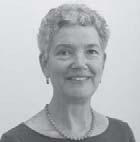
Plenary Session
Kathleen Graves is Associate Professor of Education Practice at the University of Michigan. She started her career as an English teacher in Taiwan and later taught in the US, Japan and Brazil. She has worked on curriculum renewal and language teacher education in the US, Algeria, Bahrain, Brazil, Japan and Korea. Her research focuses on the role of classroom practice in curriculum renewal and supporting teachers’ professional development as the key to successful educational reform. She is the editor/author of three books on curriculum design, series editor of the TESOLLanguageCurriculumDevelopmentseries and co-editor of the forthcoming book International Perspectives on Materials in ELT. She has also coauthored two coursebook series for English language learners.
Efficiency is the ability to do or produce something without wasting materials, time or energy. In a curriculum driven by efficiency, the aim is to get learners to learn as much as possible in as little time as possible with the fewest resources necessary. In ELT, the global role of English has made efficient delivery of English instruction a major concern of ministries of education, educational institutions and schools. This demand creates tremendous pressures on teachers and students to produce results quickly in the classroom. Unfortunately however, many educational efforts aimed at efficiency in classrooms often do not lead to the intended outcomes. So teachers are caught between needing to use time and resources efficiently and acknowledging that learning a language is a process that takes time.
In contrast, an ecological perspective on curriculum focuses on growth and development. These processes evolve through the interplay among learners, teacher, subject matter and the learning environment. Learning must take root and be nurtured; and teachers must focus on who the learners are, not only what they must learn. All of which takes time, and seems to be at odds with efficiency. Or is it? In the end, an approach to learning that seems inefficient may actually be efficient in terms of meeting educational goals in lasting ways.
In this talk, we will look at the ecology of one specific classroom and how a seemingly inefficient approach to teaching of language leads to learning outcomes that appear to be deeply embedded in students’ lives and experience. We will explore the implications of these ideas for teachers, teacher educators, and curriculum designers.
-93-
P l en ar y s e ss i o n b y K at h l ee n G r av e s
T he e f fi c i e n cy o f i ne f f i ci e nc y : a n e c o l o g i c a l pe rs p e ct i v e o n c u r ri c ul u m
-93THURSDAY
Thursday
Session 2.1 : 1025-1055
1025-1055
Bramham
90 audience
Talk
LT, LMCS
3 April
Session 2.1
In this session, I hope to show how bestsellers can be extensively used for increasing learners' motivation to read digitized versions of authentic reading matter (both fiction and professionally-oriented literature). An attempt is made to improve their online reading skills and increase their knowledge of English literature, culture and technology. Samples of reading activities will be shared.
Charter
75 audience
Talk LT,
Harewood 1
125 audience
Talk
LT,
D ay
This talk focuses on teaching social media writing skills to advanced learners. It will provide practical tips for teaching learners to write effectively and engagingly. The talk will also highlight important language points that can be focused on in social media writing lessons. The emphasis of this talk will be on language rather than technology.
Harewood 2
125 audience
Talk LAM, B BE S IG
D ay
Newby 30 audience
Talk RES, YLT
The challenge for designing our new blended cohort-based MA TESOL program lay in its needing to start online first, including peer mentoring. It was vital, therefore, to design the interaction such that genuine trust, connection and community developed before the students met face-to-face. We did it! This talk outlines the planning and execution that achieved this goal.
In this talk I shall propose a model for looking at international HR communication which covers language, professional communication, intercultural, interpersonal and leadership skills. I shall also present my work with one international HR team which involved both the diagnosis of the skills of each individual member and an analysis of the skills set of the whole team.
The main aim of this both theoretical and practical talk is to draw attention to the significance of personalisation in ELT, as well as its connection to motivation, which thus becomes more prominent. Through a technique of gathering and processing data, one comes to several conclusions, which show the necessity for the right choice and safe application of personalised activities.
This practical presentation focuses on a project that encourages university students to reflect on cultural values found in film. In this project, students learn about cultural values, analyze clips from the sample film Mr. Baseball to determine the cultural values at play, and finally prepare a presentation which highlights cultural values they discover in a film of their choice.
e = experienced audience p = primary teaching ie = inexperienced audience s = secondary teaching t = tertiary teaching a = adult teaching
prod prom = promoting a particular book or product
pub = speaker is representing or sponsored by a publisher but is not focussing on a particular book or product
-94-
U s i n g m od e r n f ic t i on f or on l i n e r e a d i n g d e v e l op me n t T at i a n a K oz h e v n i k o v a ( M os c o w T e c h n i c al Un i ve r s i t y of C om mu n i c at ion s an d
f or m at ic s
In
)
e, t
E E S ( O ) L S I G
T e ach in g wr it in g f or s oc ial me d ia: n o l ap t op r e q u ir e d Ge n e v ie v e W h it e ( A d u l t L e ar n in g , Sh e t l an d
D ay
)
e, a
S IG
T T T E d
T h e f l i p p e d c l a s sr o om : s c af f ol d in g c o m mu n it y on l in e S u s an B a r d u h n & Ja i me D u r h am ( S IT Gr ad u at e In s t i t u t e ) & K a t r i n a Bar a n ( A l
Y am a m ah Un i v e r s it y )
ie, t
in
e
s ou r c e s c om mu n i c at i on S t e v e F l in d e r s ( Y or k A ss o c ia t e s )
T h e in g r e d ie n t s of e f f e c t iv e
t
rn at ion a l h u man r e
a
P
HO L A R S H IP W IN NE R P e r son a l i s a t i on in E L T D a n i je l a B oj an ic ( S e c on d ar y T e c h n i ca l S c h o ol , V a l j e v o , S e r b i a)
IL GR IM S S C
e, ie, s
160 audience Talk LMCS E xp l or i n g cu l t u r al v a l u e s i n f il m S c ot
Be an & L i s a T h e is e n ( K an s a i Ga i d a i U n i ve r si t y)
Ripley
t
e, ie, t
P L EA SE C HE C K N OT I CE BOA RDS FOR CH A N GE S & CA N C E L LA T IO N S -94-
THURSDAY
Studley 20 audience
Talk
RES, YLT
Session 2.1 : 1025-1055
Why and how frequently do teachers give positive feedback? Does this differ across age groups? These focus questions informed this classroom-based research using stimulated recall. As well as discussing the unusual research methodology and findings, participants will be engaged in mini-research activities and pair-discussions, which will lead to reflection and key guidelines for giving more effective positive feedback.
Auditorium 570 audience
Talk LT S
Speech recognition has come of age. It is accurate and part of everyday life, and powering automatic translation and testing systems. What impact will this have on ELT and how should we develop an appropriate pedagogical model, and prepare teachers for the application of speech recognition to our classrooms? I will give a critical appraisal of its pedagogical uses and dangers.
King’s A
240 audience
Talk
LT
King’s B 100 audience
Talk
LA, RES
Hall Qa
100 audience
Talk
LT, YLT
Hall Qb
100 audience
Talk LT, MD
Too slow. Too difficult. Too heavy. These are the most common reasons we hear for students not wanting to use dictionaries. Dictionary apps are the perfect way to overcome all these objections, and to engage students into the bargain. This talk will suggest practical ways to capitalize on these advantages, with reference to dictionary apps published by OUP. prod prom
l op in
A n d re w O r r ( R e g e n t S cot l an d )
Is there such a thing as a natural-born linguist? How do our beliefs in the role of ability influence successful goal achievement? This talk will present research into these questions and outline steps taken to influence foreign language learners towards a positive frame of mind conducive to progress and success. e, ie, p, s, t, a
IW B s i n E L T : a r e al re v ol u t i on or ju st a m ak e ove r ?
B i l
IWBs became the main teaching tool in many EFL settings. They are used by teachers to assist and make the students’ learning process easier. This talk will be based on a research that was conducted to test the teachers’ beliefs; whether IWBs help to create a student-centred classroom environment or just quicken the flow of the lesson. e, ie, p
)
Lots of people are put off Moodle because they think they’ll have to start from scratch. This talk aims to show you how you can bring your existing lesson materials into Moodle. Once they’re there, you can improve them by taking advantage of multimedia and collaboration! What’s more, you can save time and energy.
AL = Applied Linguistics
BE = Business English
EAP = English for Academic Purposes
ESAP = English for Specific Academic Purposes
ES(O)L=English for Speakers of Other Languages
ESP = English for Specific Purposes
GEN = General
GI = Global Issues
LA = Learner Autonomy
LAM = Leadership & Management
LMCS = Literature, Media & Cultural Studies
LT = Learning Technologies
MaW = Materials Writing
MD = Materials Development
PRON = Pronunciation
RES = Research
TD = Teacher Development
TEA = Testing, Evaluation & Assessment
TTEd = Teacher Training & Education
YLT = Young Learners & Teenagers
-95-
Thursday 3 April
In v e s t i g at i n g p r a i s e an d p os i t i v e f e ed b a ck in c h i l d r e n ' s c l a s s r oo ms L e s l e y K e as t ( Br i t i s h C ou n ci l , M a d r i d Y ou n g L e a r n e r s)
e, ie, p, s
p e e c h r e c og n i t i on i n E L T : i t s i m p a c t on t e a c h e r s an d l e ar n e r s M ic h a e l C ar r i e r ( C a mb r i d g e E n g l i sh L an gu a g e A ss e s s m e n t )
e, s, t, a
D ic t i on a r y a p p s - a p e r f e ct pa rt n e r s h ip f or t h e cl as s r oo m a n d b e y on d
oa n n a T u rn b u l l ( O xf or d Un i v e r s it y
re ss
J
P
)
D e ve
g h el pf u l min d s e t s a n d p e r c ep t ion s of su c c e s s
g i n A l i ( F a t i h C ol l e ge P r iv a t e P r i mar y S c h o o l s )
S av e p a p e r an d e n e r gy – c on v e r t you r m at e r i al s t o M ood l e Je f f S t an f or d ( U n i ve r si t y of L e i c e
s t e r
ie, p, s, t, a
P l e as e n ot e t h a t s ome p r e s en t e r s h av e r e q u e s t ed a m a x i mu m au d ie n c e s ize T h e re f or e , p l e a s e ch e c k t h e a u d ie n ce siz e in t h e l e f t -h an d col u mn of e ac h e n t r y -95-
THURSDAY
Thursday 3 April
Session 2.1 : 1025-1055
Hall Qc
100 audience
Talk
LMCS
Hall Qd
100 audience
Talk ESAP, LT
For teachers who are looking for a change from conventional ELT themes, historical events offer an interesting and engaging alternative. However, transposing events from the past to the present can present a challenge. Using British Council Anniversaries resources as a template, this talk offers techniques to overcome these obstacles and add diversity and depth to any ELT classroom environment.
Hall Qe
100 audience
Talk
GI, LT
Hall Qf
200 audience
Talk
EAP, LA
EFL research often fails to filter down to learners, resulting in materials with little theoretical grounding. The 'Writing for a Purpose' EAP materials, free online, are based on an analysis of a new classification of the student assignments which make up the BAWE corpus. This talk will take you from the creation of the corpus to the finished materials.
In February 2013, British Council Chile launched a closed Facebook group as a complement to a 100% online, self-study English course for 60,000 low-income workers in Chile. By August, 5,000 learners were participating in the group. This talk presents a critical review of Facebook as a teaching/learning platform, based on this experience and extensive research carried out. e, ie, a
Language learning is challenging and, inevitably, students seek magic bullets to propel them forward. One such bullet is arguably academic skills. Looking for tools to become skilled researchers, exam takers and critical thinkers, there is a wealth of material available to develop these skills. Using examples from Skillful, we’ll consider how effective these materials are at helping students to progress. e, ie, t prod prom
Queen's 1
60 audience
Talk
EAP, RES
Queen's 2
68 audience
Talk
ESP, TEA
What are the challenges and opportunities for teachers and learners wishing to research their own practice? Taking a critical look at Exploratory Practice (EP) in an EAP context, I probe the EP principles for practitioner research: why promote puzzlement over problemsolving? Why integrate research and pedagogy? And what are the issues involved in ‘fully inclusive practitioner research’? ie, a
Only 15 years ago it would have been unthinkable to implement a bottom-up approach in language testing. How could it have been done? In times of an irreversible trend towards online language testing, it is necessary to reexamine this approach. The talk describes the possibilities and discusses the pros and cons. ie, a prod prom
e = experienced audience
p = primary teaching ie = inexperienced audience s = secondary teaching t = tertiary teaching a = adult teaching prod prom = promoting a particular book or product pub = speaker is representing or sponsored by a publisher but is not focussing on a particular book or product
-96-
B r i n g in g t h e p a st t o l i f e i n t h e E L T c l a s sr o o m T h
( Br i t i sh C ou n c il )
oma s L l oyd
e, ie, p, s, t, a
A c a d e m i c wr i t i n g m a t e r i a l s : f r o m r e se ar c h t o on l i n e d el iv e r y A d am K ig h t l e y ( Br it i s h C ou n c il ) & H i l ar y Ne s i & S h e en a Ga r d n e r ( C ov e n t ry U n iv e r s i t y )
e, ie,
prom
a prod
M as s i v e c l o se d on l i n e c ou r s e s f or l a n g u a g e l e a rn in g : d o t h e y wor k ? T h oma s C on n e l l y ( Br it i sh C o u n c i l , C h i l e )
T e
o s t u d y L ou i s
e r s
U n iv e r s i
a ch me t
R og
(
t y of R e ad in g)
R e se ar c h i n g e x p l or at or y p r a c t i c e i n E A P J u
s
U n i ve r s
e
d it h H an k
(
i t y of L
e d s )
" B ot t o m- u p " t e st s t o me e t th e nee d s of l e a r n e r s ? M ar t i n B e c k ( M O ND IA L E - T e s t i n g G mb H
)
P L EA SE C HE C K N O T I CE BOA RDS FO R CH A N GE S & CA N C E L LA T IO N S -96-
THURSDAY
Session 2.1 : 1025-1055
Queen's 3 180 audience
Talk
YLT
Queen's 5 110 audience
Talk
P R O NS IG D ay
J u d y W
This talk will present what I regard as essential elements for introducing English to the very young. The important features of routines, songs, practical activities, as well as phonemic awareness, will be discussed. The nursery book Say Hello (Delta Publishing) will be used to illustrate how these elements have been combined to help teachers introduce English. ie, p prod prom
The model of speech which dominates language teaching is one that is designed for clear intelligible pronunciation – the careful speech model (CSM). However, to help the learnerlistener, we need another model based on the evidence of spontaneous speech - the Spontaneous Speech Model (SSM). I will describe the SSM, and show how it can be operationalised for teaching listening.
Queen's 7 95 audience
Talk T D S I G D ay
Queen's 9 25 audience
Talk LA, RES
This talk discusses the implementation of teacher portfolios at an EFL school in Malta. Teacher portfolios are instrumental for professional development because they enable teachers to reflect on their practices and renew their ELT knowledge and skills. This talk considers the benefits of teacher portfolios, as well as the strategies that might be adopted for effective implementation.
I report on a study to identify the place of learner autonomy in learning portfolio written tasks from the perspective of upper-intermediate students at BUSEL. It focused on three dimensions of autonomy: monitoring progress, self-study skills, and reflection on learning by employing a mixed research method. The findings are discussed in relation to the recent literature, institutional beliefs and practices.
Room R
60 audience
Talk
LA
In the process of developing a program for promoting science-major students’ autonomy and improving their English proficiency, students’ essays were examined to explore their views and needs about English learning. I will show some examples taken from their essays and discuss what they inform us regarding promoting autonomy of science-major students in Japan as learners and users of English.
1055-1130 Coffee break
Exhibition hall A complimentary tea/coffee is available at the catering points in the exhibition hall.
AL = Applied Linguistics
BE = Business English
EAP = English for Academic Purposes
ESAP = English for Specific Academic Purposes
ES(O)L=English for Speakers of Other Languages
ESP = English for Specific Purposes
GEN = General
GI = Global Issues
LA = Learner Autonomy
LAM = Leadership & Management
LMCS = Literature, Media & Cultural Studies
LT = Learning Technologies
MaW = Materials Writing
MD = Materials Development
PRON = Pronunciation
RES = Research
TD = Teacher Development
TEA = Testing, Evaluation & Assessment
TTEd = Teacher Training & Education
YLT = Young Learners & Teenagers
THURSDAY
-97-
Thursday 3 April
E ss e n t i al e le me n t s f or n u r s e r y E n g l i s h t e a c h i n g
st
F r e e l
n
e
(
a
c e )
P r on u n c i a t i on a n d l is t e n i n g r e q u i r e d if f e re n t mod e l s of s p e e c h R i c h a rd C au l d w e l l ( S pe e c h i n A ct i on )
e, a
I mp l e me n t i n g t e a ch e r p or t f ol i o s f or p r of e s s i on al d e v e l op me n t D a n i e l Xe r r i ( U n i v e r s it y of M a l t a J u n i o r C ol l e ge ) & C a r ol i n e C a mp b e l l ( E A S Y S c h ool
a n g u ag e s
al l e t t a
M a l t a)
of L
, V
,
e, a
D e ve l op i n g a u t on o my t h r ou g h l e a r n i n g p or t f ol i o w r i t t e n ta sk s : st u d e n t s ' pe r c e p t i on s P i n a r S a g i r ( Bi l k e n t U n i v e r s i t y S c h o ol of E n g l i s h L a n g u a g e )
e, t
S t u d en t s ’ v oi c e s : s c i e n ce - ma j or s t u d e n t s l e a r n i n g E n gl i s h i n J a p a n F u mi k o M u r as e ( T ok y o U n i v e r si t y of A gr i cu l t u re a n d T e ch n ol ogy )
e, ie, t
P l e as e n ot e t h a t s ome p r e s en t e r s h av e r e q u e s t ed a m a x i mu m au d i e n c e s i ze T h e re f or e , p l e a s e ch e c k t h e a u d i e n ce si z e i n t h e l e f t -h an d col u mn of e ac h e n t r y . -97-
Thursday 3 April
Session 2.2 : 1130-1200
1130-1200 Session 2.2
Bramham
90 audience
Talk
EAP, TEA
Charter
75 audience
Talk
LA, E
D ay
Harewood 1
125 audience
Talk
IELTS and TOEFL are widely used as equivalent determinants of English language ability by higher education institutions. This talk reviews equivalency research, and draws on a contrastive analysis of the two exams, to suggest that the disparities between them mean we should avoid viewing them through the same lens, and questions using them for the same purpose.
Based on an ongoing Action Research project at the Macquarie University English Language Centre in Sydney, this session will explore the challenges facing adult English language learners and will provide practical suggestions for keeping students engaged in learning. Our activities for improving motivation include training the students to set appropriate goals and individualising lessons as much as possible.
Faced with the legal obligation to infuse home-school partnership issues within the existing EFL teacher preparation course, in early 2013 the author conducted a survey examining student-teachers’ knowledge and competencies in the area. The talk will discuss the development and implementation of a new 'Working With Parents' module that was guided by the survey results.
Harewood 2
125 audience
Talk
MaW, B BE S IG
SI G D a y
Newby
35 audience
Today, learners expect a more comprehensive development of business skills in Business English courses. However, traditional activities are designed to teach the language of business rather than address the performance of these abilities. This interactive talk aims to provide insight into the use of business skills and to describe innovative activities based on well-known management techniques.
Newspapers as a source of language teaching have been widely used in the ELT profession. Based on personal experience, I will demonstrate the use of different sections of English newspapers with EFL/ESL students of diverse language levels. Attendees will receive handouts and practical tips for using English newspapers to improve reading skills and develop the various language skill areas.
Whereas few teachers would argue that a language can be learned without practice, there is much intellectual confusion in the teaching community about what the role of practice in language learning may be. This talk unpacks the notion conceptually and shares some research findings about what experienced teachers do to shape their students’ beliefs and behaviors about language practice.
e = experienced audience p = primary teaching ie = inexperienced audience s = secondary teaching t = tertiary teaching a = adult teaching prod prom = promoting a particular book or product pub = speaker is representing or sponsored by a publisher but is not focussing on a particular book or product
-98-
C h al k an d c h e e se : e q u i v al e n cy i ss u e s w it h IE L T S a n d T O E F L D a v i d P e t r i e ( In t e r n a t i on al Hou s e C oi mb r a )
e, t, a
S ( O )
S IG
L
W h at d r iv e s t h e le ar n e r ? O r , h ow t o k e e p st ud e n t s m ot i v a t e d L e s l e y S p e e r ( M Q E L C )
e, ie, t, a
T
T r a i n i n g E F L t e ac h e r s t o w o rk w i t h p up i l s ’ p a r e n t s S yl wi a W i s n i e w sk a ( T h e S wi e c i e C ol l e ge of M od e r n F or e i g n L a n g u ag e s )
T E d S I G D ay
e, p
I A T E F L B U S IN E S S E NG L I S H S I G F A C IL IT A T O R S S C H O L A R S H I P W I N NE R A u t he nt i c b u s i n e ss sk il l s t e ch n i q u e s a d a p t e d t o b u s i n e s s E n gl is h c l a s se s D a n a P o k l e p ov i c ( D P L L an gu a ge C on s u l t i n g )
e, ie, a
GI U s i n g n e ws p a p e r s i n t h e cl as s r oo m : p e r s on a l e x p e r ie n c e M oh a m me d A b b a s A l i Is a ( N e w Y or k In s t i t u t e of T e ch n ol o gy )
Talk
ie, s Ripley 160 audience Talk LA L an g u a g e p r ac t i c e : w h a t i t me a n s t o e x p e r ie n c e d t e a ch e r s S t e p h e n Bre we r ( U n i v e r s it y of P ar i s E a s t C r e t e i l - V al d e M a r n e )
e, s, t, a
P L EA SE C HE C K N OT I CE BOA RDS FOR CH A N GE S & CA N C E L LA T IO N S -98-
THURSDAY
Studley
30 audience Talk AL
Auditorium
1 1 3 0 - 1 2 4 5
audience
Signature event
J on g g ab C h oi ( U n i v e r s it y of O x f or d )
Thursday 3 April
Session 2.2 : 1130-1200
This talk aims to explore learners’ attention to linguistic features during the L2 writing process. Based on the findings of a protocol-based study, the language problems Korean university learners notice while they are writing in L2 English, and the particular variables that are related to and affect learners’ noticing, will be discussed in the session. e, ie, t
To propose the motion: F F i on a C op
d (Aston University, UK)
To oppose: J J an e t E n e v e r (Umea University, Sweden)
Chair: G Gr ah a m H al l (ELTJournal)
The ongoing expansion of English language teaching into the primary sector has been a notable feature of ELT in recent years. Is it now time to call a halt to this trend and prevent any further damage to our children? Our two speakers will debate the issues surrounding primary level ELT. Please come along, have your say, ask questions - and join in the vote! King’s
1 1 3 0 - 1 2 4 5 240 audience Signature event

Learning Oriented Assessment seeks to maximise the value of the formative and summative feedback which classroom learning and testing tasks can generate. It helps teachers to target instruction and monitor progress, and learners to set goals and manage their progress towards achieving them. It is a framework for achieving measurably better learning. But how will LOA work in practice in the ELT classroom? In this session our panel will discuss the issues which might be encountered when introducing a learning oriented approach to assessment and the positive effect it can have on students’ progress if implemented effectively.
Speakers:
N i c k S av i l l e (Director, Research & Validation, Cambridge English Language Assessment)
M ir a n d a H a m i l t on (Consultant, Cambridge English Language Assessment)
S t
King’s B
100 audience
Talk
LT, YLT
Hall Qa
100 audience
Talk
GEN
(Teacher Training Programmes Manager, Bell International)
B a r k a n T e k d og an (Head of English Department, Terakki Foundation Middle School, Turkey)
W o od
)
The British Council's 'Ceibal en Ingles' project is a highly-innovative initiative using videoconferencing technology. It currently delivers 1,000 English lessons each week to primary schools in Uruguay, using remote teachers based in Uruguay itself and other countries including The Philippines. I will describe the main elements of the project, key issues, and report on recent test results.
In this session the author of the Real Lives, Real Listening series will examine the authentic listening needs of advanced learners, including decoding fast, unscripted spoken English, coping with NES and NNES accents, dealing with overlapping speech and listening effectively despite background noise. I will also demonstrate some exciting new listening training activities which really challenge learners at this level.
AL = Applied Linguistics
BE = Business English
EAP = English for Academic Purposes
ESAP = English for Specific Academic Purposes
ES(O)L=English for Speakers of Other Languages
ESP = English for Specific Purposes
GEN = General
GI = Global Issues
LA = Learner Autonomy
LAM = Leadership & Management
LMCS = Literature, Media & Cultural Studies
LT = Learning Technologies
MaW = Materials Writing
MD = Materials Development
PRON = Pronunciation
RES = Research
TD = Teacher Development
TEA = Testing, Evaluation & Assessment
TTEd = Teacher Training & Education
YLT = Young Learners & Teenagers
-99-
i
h
L e a r n e r s ’ n ot i c in g
n t
e p r oc e ss of L 2 w r i t i n g
570
ELTJ
E F L S I G NA
E E VE NT T h e mot i on
P r i m a r y E L T d o e s m or e h ar m t h a n g o od
/ IA T
T U R
:
l a
n
C A M BR ID GE E N GL IS H S IG N A T U R E E VE NT
A
Br i n g in g L e ar n i n g O r i e n t e d A ss e ss me n t in t o t h e E L T C l a s sr o
om
e p h a n i e D i m on d
a y ir
-B
re se n c e t e ac h i n g in Ur u g u a y an p r i m a r y s ch ool s : i s i t d e l i v e r i n g r e su l t s ?
a u l
B r i t i s h C ou n c i l , U r u g u a y
T e l e p
P
s (
p
ie,
A f re s h ap p r oa c h t o a d v an c e d l i s t e n i n g p ra c t i ce m at e r i a l s S h e i l a T h or n ( T h e L is t e n i n g Bu s i n e ss
)
e, ie, s, t, a prod prom
P l e as e n ot e t h a t s ome p r e s en t e r s h av e r e q u e s t ed a m a x i mu m au d i e n c e s i ze T h e re f or e , p l e a s e ch e c k t h e a u d i e n ce si z e i n t h e l e f t -h an d col u mn of e ac h e n t r y . -99THURSDAY
Thursday 3 April
Session 2.2 : 1130-1200
Hall Qb
100 audience
Talk
AL, GI
Hall Qc
100 audience
Talk GEN
Hall Qd
100 audience
Talk EAP
Hall Qe
100 audience
Talk GEN
Hall Qf
200 audience
Talk LT
S p ok e n g r a m m a r of E n g l is h an d id e n t it y
A d e m Sor u c ( F at ih Un ive r s it y )
I report on a quasi-experimental research that investigated what EFL learners feel about using native-speaker spoken grammar of English features (ellipsis, vague language, placeholders, etc.) in communicative tasks. The results revealed that those non-native speakers of English do not prefer to use spoken grammar features with other non-native speakers of English, but prefer to use them with native speakers of English. e, a
T h e l on g sh ad ow of L a t in
J on at h an M ar k s ( F r e e l an ce )
Do you introduce the term 'subjunctive' to your learners? Well, if I were you, I wouldn't bother. ELT reference materials continue to perpetuate terms, concepts and descriptions which are inherited from grammars of Latin but which no longer serve any useful purpose for learners of English. I will present some examples and suggest some improvements. e, ie, a
L e ar n e r en gage me n t in t h e EA P c l as s r oo m
C h r is He a d y ( IN T O Ne w c as t l e Un ive r s it y )
The EAP context has grown exponentially over the past 20 years. Many professional fora and some of the academic literature have witnessed a vigorous debate over the role of EFL methodology in these EAP classrooms. In the talk, I will share my view and experiences to support the principled use of EFL approaches to enhance EAP learner engagement. e, ie, t, a
I sp e a k me me ! N in a Je r on c ic ( S l ove n i a)
One does not simply understand the reference in this abstract without following the internet culture. Do you want to speak the English of your students like a boss? Do you want your students to stop trolling you, facepalming at you? Are you doubting the existance of these words? Your argument for not attending this talk is invalid: YOLO!
With the pace of change in education and educational publishing greater than it’s ever been, how do we separate the fads from the game-changers? In this talk, the team behind eltjam.com draws together some of the themes they’ve explored over the last 12 months, and offers their view on the EdTech and publishing trends that might really matter.
The CEFR descriptors are somewhat indefinite, which may lead to differences in level interpretations among raters, especially across languages. Cross-language benchmarking provides an approach to calibrate candidates' performances of different languages onto a single ordinal scale. In the course of a cross-language benchmarking study, target levels were discussed and cut-scores of telc English and German examinations examined.
-100-
IA
A C HE R D E V E L O P M E NT S I G M IC HA E L BE R M A N S C HO L A R S H IP W I NN E R
T E F L T E
e, ie, p,
t, a
s,
L e a r n i n g f r o m t h e l e a d i n g e d g e : wh a t E d T e c h me an s f or E L T N ic
L au r ie H a rr i s on & T i m Gif f
d
k R ob in s on ,
or
( e l t jam)
e, ie, s, t, a
1 60
Talk GEN C r o ss - l an g u a ge b e n c h ma r ki n g : t r i al an d re s u l t s of a c o mp ar at iv e a p p r oa ch L ou is e L a u p p e
Queen's
audience
e =
p =
teaching ie =
s = secondary teaching t = tertiary teaching a = adult teaching prod prom =
particular book
product pub =
representing
sponsored by a publisher but is not focussing on a particular book or product PL EA SE C HE C K N OT I CE BOA RDS FOR CH A N GE S & CA N C E L LA T IO N S -100THURSDAY
experienced audience
primary
inexperienced audience
promoting a
or
speaker is
or
Queen's 2
68 audience
Talk
RES, TEA
Queen's 3
180 audience
Talk
ESP
Queen's 5
110 audience
Thursday 3 April
Session 2.2 : 1130-1200
In some instructional contexts, students are expected to eventually communicate orally in English without exposure to purposeful skill development activities. This session explores the beliefs and experiences of English language students before and after skills preparation for standardized speaking exams. Do they believe these skills-development activities enhance their spoken language proficiency?
Do you need the students to prepare before your ESP classes? Do they overuse 'copy and paste' or do they produce a piece of something which does not correspond to the instructions? In my presentation, I will share several tips for activities that enhance students' efforts and thus their language practice. e, ie, t
Talk P R O NS IG D ay I NT E R NA T IO
Pronunciation training is a complex process, with students learning motor habits and gaining awareness of foreign sounds and intonation to get a new 'voice'. The adoption of an e-portfolio as a tool for registering student achievement in pronunciation enables each learner to become familiar with their 'voice', and assess and self-regulate their own process, and thus improve their self-esteem.
Queen's 7 95 audience
Talk LAM, T TD S IG D ay
Queen's 9 20 audience
Talk
ESP
Room R
60 audience
Talk
)
It is, relatively, a bigger challenge to set up and maintain teacher training and teacher development programmes in a language teaching context with experienced staff than with much less experienced staff. This talk focuses on the challenges and opportunities for maintaining CPD in a language school with highly-experienced staff.
In this talk, based on a project carried out at Moscow State Institute of International Relations (MGIMO), I give handy tips for using appropriate fiction in ESP classroom. The talk includes short videos in which Public Administration and Law students speak about further research of professional issues they embarked on, inspired by Thank You for Smokingby Ch. Buckley.
The purpose of this talk is to consider the potential use in EFL programs of computerautomated essay-scoring systems. After examining how computers actually go about rating students’ essays, key issues of reliability, validity, administration, ethics and backwash will be critically examined, and sufficient time will be allocated for a Q&A session.
AL = Applied Linguistics
BE = Business English
EAP = English for Academic Purposes
ESAP = English for Specific Academic Purposes
ES(O)L=English for Speakers of Other Languages
ESP = English for Specific Purposes
GEN = General
GI = Global Issues
LA = Learner Autonomy
LAM = Leadership & Management
LMCS = Literature, Media & Cultural Studies
LT = Learning Technologies
MaW = Materials Writing
MD = Materials Development
PRON = Pronunciation
RES = Research
TD = Teacher Development
TEA = Testing, Evaluation & Assessment
TTEd = Teacher Training & Education
YLT = Young Learners & Teenagers
-101-
C a n p r e p a r at i on ac t iv it ie s f or e x t e r n al e x a ms h e l p de v el op s p e ak in g p r of ic ie n c y? Il e an a F r a n c o Ur q u id i ( T h e A n gl o M e x ic a n F ou n d at ion A . C .)
e, ie, s, a
Ge t t i n g st u d e nt s m or e i n v ol v e d in t he t as ks S t e p an ka B il o v a ( M a s ar y k U n iv e r s it y , Br n o , C z e c h R e p u b l ic)
NA L H O USE BR IT A HA Y C RA F T B E TT ER S P OKE N E N GL IS H SC HOLA R S HI P W I N NE R P r on u n c i a t i on a n d e - p or t f ol i os : d e v e l op in g se l f - re gu l a t ory s k i l l s a n d s e l f- e st e e m
P D r J oa q u in V G on z al e z )
M ar in a N oe l i a C a n t a r u t t i ( IS
ie, s, t, a
Ch al l e n ge s of m a in t a in in g C P D w it h e x p e r ie n c ed s t af f
D e m i r e l
E a s t e r n M e d i t e r r an e an U
Hu s e yi n
(
n iv e rs i t y
e, t
M od e r n f ic t i on a s m ot iv a t i on b oo st e r in E SP c l a ss r oo m s L ar is a Z e l en sk ay a ( M o sc ow St a t e In s t it u t e of In t e r n at i on al R e l a t i on s - M G IM O )
e,
ie, t
c omp u t e rs r e a l l y r a t e s tu d en t s ' e ss a ys ? P e t e r D a vid s on ( Z ay e d Un iv e rs i t y )
LT, TEA C a n
e, t
P l e as e n ot e t h a t s ome p r e s en t e r s h av e r e q u e s t ed a m a x i mu m au d ie n c e s ize T h e re f or e , p l e a s e ch e c k t h e a u d ie n ce siz e in t h e l e f t -h an d col u mn of e ac h e n t r y . -101-
THURSDAY
Thursday 3 April
Session 2.3 : 1215-1245
1215-1245
Bramham
90 audience
Talk
YLT
Charter
75 audience
Talk
YLT, E S ( O ) L S IG
D ay
Harewood 1
125 audience
Talk
Session 2.3
Do you find it difficult to engage your whole class in productive independent activities during small-group teaching? Task boards can help you! In this talk, the presenter will share her experience of using a task board with primary school classes, in Qatar, to manage the time and class effectively.
Teens are energetic and most activities are welcomed with enthusiasm. However, it's not that simple with teenagers. Most are intelligent and perceptive kids, but this may not be the most talkative age group. Have you ever faced a class full of blank stares and been frustrated by their lack of interest? I will present tips and activities to keep them motivated.
This talk aims to outline some practical activities and tasks that pre-service teachers can implement immediately on starting to take the first teaching steps in the real world. All the activities are tried and tested over a variety of different teaching situations and will provide a package that will fit easily into a new teacher’s life and a suitcase. e, ie, a
Harewood 2
125 audience
Talk
ESAP, B B E S IG
D ay
Newby
35 audience
RES
F ro m a c a d e m ic c or p u s t o b u s i n e s s c l a s
)
Identifying the vocabulary needs of business students, and selecting suitable lexical items to teach, continues to be an important issue in EAP. This talk will report on a project aimed at improving the appropriate productive use of vocabulary of 3rd year international students doing a top-up degree in International Business.
This session will explore the practical ways to integrate moral and emotional education into EFL classrooms in order to develop positive social attitudes, democratic qualities, respect for moral and ethical values and culture, together with EFL education. The audience will be provided with sample activities and lesson plans based on the suggested approach. e, ie, t
Ripley
160 audience Talk GEN H o w d oe s t h e
When Caleb Gattegno invented the Silent Way, he introduced some innovative ideas about language teaching, and techniques for putting them into practice. The teacher's silence is certainly the best known of these but there are many others. This talk and demonstration will give participants an excellent opportunity to think about their teaching practice from a different perspective.
e = experienced audience p = primary teaching ie = inexperienced audience s = secondary teaching
tertiary teaching
adult teaching prod prom = promoting a particular book or product pub = speaker is representing or sponsored by a publisher but is not focussing on a particular book or product
-102-
U s i n g t a s k b oar d s t o m a n a g e Y L cl as s e s e f f e c t i v e l y A ma n y K a me l ( S u p r e me Edu ca t i on C ou n c i l , Q at ar )
ie, p
M ot i v at in g y ou n g E S O L l e a r n e rs O y a K a r ab e t c a ( C oHE N E L )
ie, t
T h e b ar e n e c e s si t ie s of E L T l i f e B
r e e l a n c e )
T T E d S I G D ay
a r b a ra Bu x t on ( F
s r oo m : t e a c h i n g a p p r op r i at e v oc a b u l ar y e f f e c t i v e l y
A n d re w P r e s h ou s ( C ov e n t r y U n i ve r s i t y
e, t
a
i
a n d e m ot
on
oo ms Y u l
A vs i u k e v i c h ( A ce s k i l l s L a n g u ag e T r a i n i n g )
Talk
T h e i n t e gr
t
on of m or a l
i on al e d u ca t i
in t o E F L cl as s r
ia
si l e n t w ay w or k i n t h e cl as s r oo m? R o sl y n Y ou n g ( U n e E d u c at i o n P ou r De m a i n , F r an c e )
e, ie, p, s, t, a
P L EA SE C HE C K N O T I CE BOA RDS FO R CH A NG E S & CA N C E L LA TI O N S -102-
t =
a =
THURSDAY
Studley
30 audience Talk
LA, LT
Auditorium
1 1 3 0 - 1 2 4 5
King’s A 1 1 3 0 - 1 2 4 5
King’s B
100 audience
Talk
Thursday 3 April
Session 2.3 : 1215-1245
This talk examines how effective an e-language learning software programme is in fostering autonomy in learners of English and to show its possible effects on autonomous learning. It is based on the research that the presenter has carried out at the University of Sunderland, UK, and the presenter reports on this completed study.
This session starts at 1130 (in session 2.2). See page 99 for details.
This session starts at 1130 (in session 2.2). See page 99 for details.
LT, YLT S u c ce ss f u l t e am- t e ac h in g in a b l e nd ed - le ar n i
Hall Qa
100 audience
Talk GEN
Hall Qb
100 audience Plenary follow-up session
Hall Qc
100 audience Talk AL
Hall Qd
100 audience
Talk
MD, YLT

'Ceibal en Ingles' is an initiative that is being implemented in Uruguay to teach English to state school kids. In this project, lessons are delivered by an English teacher via videoconferencing together with the school teacher who is physically present in the classroom. In this talk I will share some conclusions based on my experience coordinating a team of teachers.
Do you believe a sound grasp of grammar is vital in learning English? I believe attention to grammar impedes progress, based as it is on a fundamental misunderstanding of how to most effectively master a foreign language. Armed with telling accounts of alternative approaches and quotes from experts, I’d like to try to get you to change your mind. e, ie, p,
If you attended Kathleen Graves’ plenary session this morning on “The efficiency of inefficiency: an ecological perspective on curriculum”, you are welcome to attend this related session. This will allow participants to ask any questions or address any issues that have been raised by Kathleen’s plenary talk.
Forensic Linguistics is about more than profiling murderers and identifying hostile tweeters. I have found many opportunities to bring my MSc Forensic Linguistics (FL) training into the ESL classroom. This talk presents simple and practical activities I've used with learners that incorporate FL techniques and reflects on how doing this can stimulate a pedagogic rethink.
This talk relates our experience in presenting TV lessons for Palestinian refugee students in countries where The United Nations Relief and Development Agency provides education for them. It describes and illustrates practical content we incorporate in the programmes, including games, songs, animation and videos. Difficulties encountered and improvements made, based on feedback from students, teachers and parents, are discussed.
AL = Applied Linguistics
BE = Business English
EAP = English for Academic Purposes
ESAP = English for Specific Academic Purposes
ES(O)L=English for Speakers of Other Languages
ESP = English for Specific Purposes
GEN = General
GI = Global Issues
LA = Learner Autonomy
LAM = Leadership & Management
LMCS = Literature, Media & Cultural Studies
LT = Learning Technologies
MaW = Materials Writing
MD = Materials Development
PRON = Pronunciation
RES = Research
TD = Teacher Development
TEA = Testing, Evaluation & Assessment
TTEd = Teacher Training & Education
YLT = Young Learners & Teenagers
-103-
H o w e f f e ct iv e i s e - l a n g u ag e l e ar n in g s of t wa r e i n f o st e r i n g l e a rn e r au t on omy ? B u n y a m i n E r d og a n ( P r i v at e F a t i h S c h ool s , I s t an b u l , T u r ke y )
e, p, s
L S I G NA T U R E
VE NT
E L T J / IA T E F
E
C
B R ID G E E N G L I S H S I G N A T U R E
E NT
A M
E V
n g c on t e xt K e y i n g r e d i e n t s M e r c e de s V i ol a
4 D
on t e n t E n g l
h
(
C
is
)
e, p
D oe s c on c e n t r at in g on g r am m a r i mp e d e t h e e ff e c t i v e le ar n i n g of E n g l is h ? D e n n i s Ne w s on ( R e t i r e d . F or me r l y U n i v e r s i t y of O s n a b r u e ck , G e r ma n y )
s, t, a
Q u e s t i on & an s w e r s e s s i on r e l a t i n g t o K at h l e en G ra v e s ’ p le n ar y s e s si
on
U s i n g f or e n si c l i n g u is t i c s i n t h e E S L c l a s sr o om E
Br i t i sh S t u d y C e n t re s L on d on )
ss i e n P op ool a (
ie, a
E n g l is h T V l e ss on s f or P al e s t i n i an r e f u g ee s: d i f f ic u l t i e s an d d e v e l op me n t s R e d a T h a b e t ( U n i t e d Nat i on s R e l i e f a n d W or k s A g e n c y - G a z a , P a l e st in e )
e, ie, p, s
P l e as e n ot e t h a t s ome p r e s en t e r s h av e r e q u e s t ed a m a x i mu m au d i e n c e s i ze T h e re f or e , p l e a s e ch e c k t h e a u d i e n ce si z e i n t h e l e f t -h an d col u mn of e ac h e n t r y -103THURSDAY
Thursday 3 April
Session 2. 3 : 1215-1245
Hall Qe
100 audience
Talk
EAP, ESAP
Hall Qf
200 audience
Talk
AL, GI
Despite the popularity of English for Specific Academic Purposes courses, many EAP teaching contexts are English for General Academic Purposes (EGAP). This talk will help instructors bridge this gap through practical ideas for resources and activities for the EGAP classroom that allow students to delve into the genres, vocabulary and literacies of their specific domains of study.
The spread of English as a global language means that Englishes are now present in local ‘multimodal landscapes’, in co-existence with other languages, for example, in advertisements, on street signs and on shop signs. With examples from several countries, we will discuss reasons for the use of different languages and how such ‘landscapes’ can raise learners’ cultural awareness.
Queen's 1
60 audience
Talk
EAP, LMCS
Queen's 2
68 audience
Talk
RES, TEA
Ideal for both experienced and inexperienced EFL teachers, this presentation examines the effects of adapting film adaptations of literary works in the EFL classroom on firing up students’ motivation levels and on increasing their interaction with their peers and teachers. The talk focuses on research that mingles qualitative and quantitative research methods. The results proved very promising.
I report on a study that aims to develop learner awareness in academic writing by using diagnostic assessment, diagnostic workshops and providing face-to-face consultative feedback. In other words, the research focuses on encouraging learners to improve their metacognitive awareness and promoting self-reflection by creating constructive dialogues and autonomy to initiate the actions that will improve their academic writing.
Queen's 3 180 audience
Talk
EAP, MD
Queen's 5
110 audience
Talk P
Scholarship and plagiarism are positive and negative aspects of academic practice. Often the teaching focus is on plagiarism, assuming that weak skills and language deficit give rise to inappropriate use of sources. Access EAP: Frameworks focuses instead on demonstrating scholarship, viewing students as novice members of a community of practice, learning its norms of behaviour.
The talk explores the specific character of the sound schwa and its essential role in creating natural rhythmical patterns on word and sentence level. Both theoretical underpinnings and practical examples of a “schwa-centred” approach to pronunciation teaching will be presented, particularly easy-to-use ideas for enhancing students’ awareness of the target phenomenon and developing their perceptual sensitivity towards the reduced vowel.
e = experienced audience p = primary teaching ie = inexperienced audience s = secondary teaching t = tertiary teaching a = adult teaching prod prom = promoting a particular book or product pub = speaker is representing or sponsored by a publisher but is not focussing on a particular book or product
-104-
Ge t t in g d isc ip l in e - s p e c if ic in t h e ge ne r al E A P cl as s r o om Je n n i f e r
ac D on a l d ( D al h ou s ie Un iv e r s it y
M
)
e, ie, a
R a i s i n g c u l t u r a l a w a r e n e ss t h rou g h t h e gl ob a l d iv e r s i t y of E n g l is h e s C h r is K e n n e d y ( Un iv e r si t y of B i r m i n gh a m)
e,
ie, s, t, a
L it e r a ry f i l m a d a p t a t i on s t o c o mb a t d e m ot i v at ion a n d i n c r e a se cl as sr o om i n t e r ac t i on S ar a D ja m a a ( E l - T a r f Un iv e r s it y )
e, ie, a
E n h a n c in g l e ar n e r aw ar e n e s s in a c a d e m ic wr it in g : a n ac t i on re se ar
h
a yr a m
a
u ar ie
e
it
n gl ish L an g u a ge Ce n t re
c
Ga mz e S
( M
cq
U n iv
r s
y E
)
ie, t
A c q u is it i on ve r su s p e r f or m an ce : r e c on c e p t u al is in g p l ag ia r is m in En gl is h f or a c ad e m ic p u r p ose s O l wy n A l e x an d e r ( He r iot - W a t
n i
t U
v e r s it y )
e, t prod prom
R O NS
ay In c on sp ic u ou s y e t p o we r f u l : n e ut r al v o we l s ch w a a n d it s d i d a c t i c p ot e n t i al K r i s t y n a P oe s ov a ( F a cu l t y of E d u c a t i on , C h a r l e s U n i v e r s i t y i n P r a g u e )
IG D
e, ie, s, t, a
PL EA SE C HE C K N OT I CE BOA RDS FOR CH A N GE S & CA N C E L LA T IO N S -104THURSDAY
Queen's 7 95 audience
Talk
T D S I G D ay
Queen's 9 25 audience
Talk GEN
Thursday 3 April
Session 2. 3 : 1215-1245
What would happen if you sent a group of CertTESOL trainees (the week prior to their course) to teach a class with no tutor guidance or observation? How would the trainees react? How would the students react? What impact would it have on their experience of the course? Well, that’s exactly what we did. Come and find out what happened.
This talk will explore the different aspects of group dynamics, including how and why dynamics change, ideas based on theories of group psychology, and the psychology of learning a foreign language. Participants will also be provided with practical ideas about implementing theories of group dynamics in their classroom. This will ultimately help to improve the learning process.
The presentation focuses on peer language learning and assessment through the mobile testing system PeLe by HiST. It allows giving students immediate feedback on tests. The presenter undertakes a few models of post-test activities aimed at language practice and communicative skills development within formative assessment. The conclusions are based on the results of an ongoing Norwegian-Russian research project MobiLL.
AL = Applied Linguistics
BE = Business English
EAP = English for Academic Purposes
ESAP = English for Specific Academic Purposes
ES(O)L=English for Speakers of Other Languages
ESP = English for Specific Purposes
GEN = General
GI = Global Issues
LA = Learner Autonomy
LAM = Leadership & Management
LMCS = Literature, Media & Cultural Studies
LT = Learning Technologies
MaW = Materials Writing
MD = Materials Development
PRON = Pronunciation
RES = Research
TD = Teacher Development
TEA = Testing, Evaluation & Assessment
TTEd = Teacher Training & Education
YLT = Young Learners & Teenagers
-105-
T
h e
a f f a
d
h e h ol e i n t
cl as s r o om w al l S in e a d L
n ( O x f or
T E F L P r ag u e )
e, p, s, t, a
W h at r e al l y mat t e r s in g r ou p d y n a mi c s M ar i l i s G i u r a n i u c ( T h e L on d on S c h o ol of E n g l i s h )
e, ie, a Room
LT, TEA M ob i l e - a ss i st e d f or mat iv e a ss e ss me n t : m od e l s of p o st - t e s t a ct i v i t i e s A n n a A v r a me n k o ( L om on os ov M os c ow St a t e Un iv e rs i t y )
R 60 audience Talk
e, ie, t
P l e as e n ot e t h a t s ome p r e s en t e r s h av e r e q u e s t ed a m a x i mu m au d i e n c e s i ze T h e re f or e , p l e a s e ch e c k t h e a u d i e n ce si z e i n t h e l e f t -h an d col u mn of e ac h e n t r y . -105-
THURSDAY
Thursday 3 April
IATEFL AGM : 1255-1400
1245-1405 Lunch break
1255-1400 Annual General Meeting
1. 2.
Minutes of the AGM held in April 2013 at the ACC, Liverpool Matters arising
Treasurer’s report
Presentation and receipt of accounts for 2012-2013
Re-appointment of MHA MacIntyre Hudson as auditors
Presentation by the President and Executive Committee chairs on general issues, the work of the Board of Trustees and other committees, the SIG representative’s report, and Associates’ representative’s report
Recommendation and appointment of new Trustees
Thanks to out-going Trustees and welcome to new post holders and other new volunteers
Date of next meeting 12th April 2015 in Manchester, time and venue to be confirmed
By order of the Board
Zeynep Urkun

Company Secretary
IATEFL
2-3 The Foundry
Faversham, Kent
ME13 7FD, UK
Date: 20/2/14
A p p oin t me n t of p r oxie s
As a member of IATEFL, you are entitled to appoint a proxy to exercise all or any of your rights to attend, speak and vote at the meeting. A proxy does not need to be a member of IATEFL but must attend the meeting to represent you.
A proxy form and details of how to appoint a proxy is available in the members’ area of the IATEFL website at https://secure.iatefl.org/.You can only appoint a proxy using the procedures set out in the notes to the proxy form.
-106-
N ot ic e of A n n u al Ge n e r al M ee t in g Th e 20 14 A n n u al Ge n e r al M ee t in g of IA T EF L w il l b e he ld in A u d it or iu m, at t h e HIC , H a r rog at e , U K, on Th u r sd ay 3r d A p r il 20 14 f r om 12 55 t o 1 40 0. A l l me mb e r s a re in vit e d t o a t t en d A GE ND A 1. 2. 3. 4. 5. 6. 7. 8.
Auditorium
9.
-106-
THURSDAY
Thursday 3 April
Session 2.4 : 1405-1450
1405-1450 Session 2.4
Bramham
90 audience
Workshop LA, LT
Charter
1 4 0 5 - 1 4 3 5
75 audience
Talk
AL, RES
Harewood 1
125 audience Workshop
T T E d S I G D ay
u n i s i a )
A recent blended-learning course in southern Tunisia has resulted in spectacular English language level improvement and more confident and communicative learners. If you'd like to know how this was done and how you might achieve something similar, then join this workshop focusing on the ingredients of the blended British Council Learn English Pathwaysonline resources and face-to-face teaching.
This presentation focuses on code-switching practices of native-speaking and Japanese teachers of English at secondary and tertiary levels. Analysis includes frequency of the teachers’ use of both Japanese and English, and reported motivation related to language choice. Findings indicate the arguments for 'English only' and use of students’ L1 are complex and affected by a number of variables.
B r i on y B e av e n ( NI L E )
The roles of experience, practice and reflection in teacher educators’ development will be explored. The workshop arises from a survey of, and interviews with, experienced teacher educators from various geographical and educational contexts. Audience members will be invited to review their professional biographies to reveal the possible effects of their onthe-job learning on their teacher education work and vice versa.
Harewood 2
125 audience Workshop
B E S I G D a y L an g u a g e f or b u il d i n g b u s in e s s r e l a t i on s h i p
This session will raise awareness of the language strategies learners of business English should use in order to build better relationships in their daily communication. We will look at a variety of techniques for building rapport through language use and will demonstrate how effective active listening greatly improves professional communication. e, a
Newby 20 audience Workshop MD, YLT
2
As teachers, we are trying to encourage our students to develop 21st Century skills. What about ourselves? How can we, as teachers, achieve to think critically and communicate and collaborate more effectively? This session will provide you with some tips to be more efficient 21st Century teachers. It will also demonstrate some student-centred activities which will incorporate fun into your classroom.
AL = Applied Linguistics
BE = Business English
EAP = English for Academic Purposes
ESAP = English for Specific Academic Purposes
ES(O)L=English for Speakers of Other Languages
ESP = English for Specific Purposes
GEN = General
GI = Global Issues
LA = Learner Autonomy
LAM = Leadership & Management
LMCS = Literature, Media & Cultural Studies
LT = Learning Technologies
MaW = Materials Writing
MD = Materials Development
PRON = Pronunciation
RES = Research
TD = Teacher Development
TEA = Testing, Evaluation & Assessment
TTEd = Teacher Training & Education
YLT = Young Learners & Teenagers
THURSDAY
-107-
A b le n d e d le ar n in g m od e l t hat re al l y mad e a d if f e r e n c e K i r os L a n g s t on ( B r i t i sh C ou n ci l , T u n i s i a) & F e t h i a H a rr o u c h i ( I S G Un iv e r s i t y of G a b e s,
T
e, ie, t
E x a m in in g t e ac h e rs ’ p u r p os e s f or c od e - s w i t c h i n g i n t h e J ap an e s e E F L c on t e xt R i c h m on d S t r ou p e ( S ok a U n i ve r si t y
)
e, s
e ve l op i n g t e a ch e r ed u c at or s , d e v e l op i n g t e a c h e r e du c a t i on
D
e, a
s G a b r i e l le J on e s ( O ' C on n or L an g u a g e a n d C om mu n i c at i on f or Bu s i n e ss , U l m , G e
r m an y )
1 t i p s t o b e a 2 1 s t C e n t u r y t e ac h e r M e r v e O f l az ( O x f or d U n i ve r si t y P r e s s , T u r k e y)
e, ie,
p, s pub
P l e as e n ot e t h a t s o m e p r e s en t e r s h av e r e q u e s t ed a m a x i m u m au d i e n c e s i ze T h e re f or e , p l e a s e ch e c k t h e a u d i e n ce si z e i n t h e l e f t -h an d col u m n of e ac h e n t r y -107-
Thursday 3 April
Session 2. 4 : 1405-1450
Ripley
160 audience Workshop
E S ( O ) L S I G
D ay L
Studley
30 audience Workshop TEA
P
Research studies provide interesting insight into teaching methodology. In this workshop we review techniques that promote language learning. For example, listening to text with subtitles improves the understanding of English (Charles & Trenkic). Reading the same text multiple times promotes fluency (Day). We will explore why these techniques work and how we might use them in the classroom.
We will talk about the CEFR levels, especially the difference between C1 and C2, and try to agree on our expectations for level C2. Using video examples, and applying telc marking criteria, we will discuss how realistic it is for a non-native speaker to reach C2 level and what relevance this test has for non-native English language teachers.
Developed in the 90s and employed both in management and academic spheres, Open Space is a new format to the IATEFL conference this year. A mini-conference in itself, Open Space gives you the chance not only to flag up and explore the topics that matter to you, but also to discover a new conference tool for use elsewhere in your professional life.
Facilitated by Adrian Underhill, participants will be invited to convene a session on whatever is professionally significant or important to them at that moment. The whole point is to come without notes or preparation and work with what fires you up at that time. After a brief introduction to the Open Space format, those who wish to will write their proposed topic(s) on post-it notes and read them out. Then by a show of hands a number of parallel sessions are immediately formed, allocated a meeting space, and participants go to the one of their choice. Afterwards in plenary the convenors feed back to the rest of the group, and then a second round of new sessions begins, either growing out of a previous session or starting afresh. Again people go to their preference, and a plenary sharing follows. The convener can lead a session if they wish, or simply host a session, which might be an exchange of views, a collecting of ideas, a new idea, a sounding off… Whatever it is, the other participants will know and have chosen to attend.
This Open Space lasts for 2½ hours which includes an overview of the methodology; setting up the first round of sessions; conducting them; feedback to all; setting up and conducting the second round of sessions, feedback and close. It is set to be thetalk of Harrogate 2014. Because of the nature of the event, it is important to join the session from the beginning and stay until the end in order to appreciate how it develops and contribute to it. In order to preserve the integrity of this complete 'conference within a conference' it won't be possible to enter after it has begun.
So, come prepared to talk about the latest (or the oldest) burning issues for you in ELT – be that the future of mobile learning, the flipped classroom or teaching the phonetics of ELF, etc. – and leave having acquired new contacts, new perspectives and a new ELT conference methodology!
Storytelling is an art that people around the world share. When a story is told well, language and learning become intuitive while inhibitions fall by the wayside. An engaging example of such presentation is Kamishibai, or “paper theatre”, a Japanese form of storytelling with pictures. In this session, we will learn how to use this fascinating way of telling stories.
e = experienced audience p = primary teaching ie = inexperienced audience s = secondary teaching t = tertiary teaching a = adult teaching prod prom = promoting a particular book or product pub = speaker is representing or sponsored by a publisher but is not focussing on a particular book or product
-108-
an g u a g e t e a ch in g t e ch n i q u e s w h i c h w or k
h
i d a S ch e ll e k e n s
d
il
( L on
on U K )
e, ie, s, t, a
H o w c an C E F R L e v e l C 2 ( n at i v e s p e ak e r p r o f i c i e n c y) b e t e s t e d ? S u z an n e V e t t e r - M ' C aw ( t e l c G m b H , F r an k f u r t am M a i n , G e r m a n y )
s, t, a King’s A 1 4 0 5 - 1 6 3 5 8 0 au d i e n c e O p e n S p ac e e v en t
e, ie, p,
King’s B 100 audience Workshop YLT O I S E Y O U N G L E A R N E R S 2 0 1 3 S C H O L A R S H I P W I N N E R K a m is h i b a i : l e ar n in g on t h e s m al l s t a g e C on c h i M ar t in e z d e T e j ad a G on z al e z ( I E S F r a n c is c
o d e O re l l an a)
e, p
P L EA SE C HE C K N O T I CE B OA RDS FO R CH A N GE S & CA N C E L LA T IO N S -108-
THURSDAY
Hall Qa
100 audience Workshop LT, YLT
Hall Qb
100 audience Workshop LT
Hall Qc
100 audience Workshop GEN
Hall Qd
100 audience Workshop LT
Hall Qe
100 audience Workshop LA, LT
Hall Qf
200 audience Workshop LT, MaW
Session 2. 4 : 1405-1450
With dozens of items on their daily checklists, teachers often feel that there is no room in their syllabus for the development of 21st Century skills/competences. On closer look though, some of them can be easily developed without extra time or effort. A practical workshop on integrating presentation and critical thinking skills in primary and secondary education through PBL.
This workshop will show how the iPad can be used as a complete teaching aid for primary schoolchildren, with the aim of developing interaction and stimulating the language learning process. Teachers will be introduced to ways in which it can be incorporated into lessons and enhance both teaching and learning for young learners.
A n
As L2 learners store and retrieve language as prefabricated chunks, revision and practice activities should reflect this. This workshop will explore how teachers can adapt the tried and tested technique of using cut-up vocabulary cards to enable students to learn, store and retrieve lexical items as chunks. Participants will also have the opportunity to share and take home ideas.
T h e p ow e r of P ow e r P
Using the medium of PowerPoint, I will look at how a teacher can adapt it to their class. We will demonstrate how one can recreate some of these ideas. Over the course of the workshop I will present how to exploit PowerPoint in the class, covering 6 topics: efficiency, appearance, making lessons more engaging, grammar explanations, teaching vocabulary, and games. e, ie, p, s, t, a
E f f e ct
How many times have your students gone onto Facebook during a lesson or taken a photo of your whiteboard notes? For better or worse, mobile technology is changing the way our students manage their studies. In this workshop, we will explore the impact of these changes on learning and consider how and when mobile devices are most effectively used.
From the BBC’s crash course Follow Me in the 70s, through to the 90s' concept of 'Active Viewing' and today’s YouTube generation, how has the role of video changed in the last 50 years? This workshop traces how the moving image has moved on and analyses the part it may play in the decentralized classrooms of the future.
AL = Applied Linguistics
BE = Business English
EAP = English for Academic Purposes
ESAP = English for Specific Academic Purposes
ES(O)L=English for Speakers of Other Languages
ESP = English for Specific Purposes
GEN = General
GI = Global Issues
LA = Learner Autonomy
LAM = Leadership & Management
LMCS = Literature, Media & Cultural Studies
LT = Learning Technologies
MaW = Materials Writing
MD = Materials Development
PRON = Pronunciation
RES = Research
TD = Teacher Development
TEA = Testing, Evaluation & Assessment
TTEd = Teacher Training & Education
YLT = Young Learners & Teenagers
THURSDAY
-109-
Thursday 3 April
I n t e g r a t i n g 2 1 s t C e n t u ry s k i l l s e f fe c t i ve l y i n t o y ou r P B L s y l l a b u s C h r ys s an t t h e S ot i r i ou & D i m it ri o s P r i m al is ( D ou k a s S c h o ol )
e, ie, p, s
T e a ch e r i P ad - m a k i n g i t a c om p l e t e t e ac h i n g t o ol A l K h aw a j a h F a r a h ( M in is t r y of E d u c a t i on , K u w a i t
)
e, p
S t i l l c u t t i n g u p ca r d s ! A c t i v it ie s f or s t or i n g a n d r e t r i e v i n g c h u n k s
d re a B or s at o ( I n t e r n a t i on a l H ou se L on d on )
e, a
oi n t P h il i p W e i r ( E L C E d i n b u r g h )
iv e l e a r n i n g : t h e h ow a n d wh en of m ob i l e d e v i ce s L in d s ay W ar w ic k ( B e l l , C a m b r i d g e )
e, ie, a
T h e m o v i n g i m a g e : a h i s t o r y o f v id e o i n E L T B e n G ol d s t e i n ( F r ee l a n
c e )
e, ie, a pub
P l e as e n ot e t h a t s ome p r e s en t e r s h av e r e q u e s t ed a m a x i mu m au d i e n c e s i ze T h e re f or e , p l e a s e ch e c k t h e a u d i e n ce si z e i n t h e l e f t -h an d col u mn of e ac h e n t r y -109-
Thursday 3 April
Session 2.4 : 1405-1450
Queen's 1
60 audience Workshop LA, TEA
Queen's 2
68 audience Workshop EAP, YLT
In this workshop, you will experience different activities which help your learners practise their speaking skills in small groups and gain trust in their own abilities through peerassessment based on valid criteria. Thus they feel prepared and self-assured for an exam, be it a 'language village' or a final exam, as the examples from Lower Saxony in Germany can prove.
CLIL science can challenge teachers and learners. Success in some topics may be linked to the selection of input. This workshop focuses on one topic, energy, and explores how it can be made more understandable and relevant to primary school learners. Workshop participants explore the potential of ICT and 'hands on' input and share insights for science success.
Queen's 3 180 audience
Workshop MD, YLT
Queen's 5 110 audience
Workshop P R O NS IG D ay
Queen's 7 95 audience
Workshop
T D S I G D ay
This practical collaborative workshop gives you a 'flow-diagram recipe' to quickly create original language learning activities that are motivating, suit specific learning needs, and support a balanced language learning programme. Bring (or share) a wifi-enabled device (phone, tablet or laptop) so you can select an appropriate song and create the first of many classroom-ready lessons.
Rhythm and sentence stress are vital in creating meaning, yet they can be daunting and confusing for both teachers and students. In this workshop, I will suggest a simple pedagogical model of these aspects of pronunciation and we will try out and discuss a number of game-like tasks for focusing on them. ie, s, a
Preparing teachers for the Trinity Diploma in TESOL, I have observed that many take language aims as their starting point for lesson planning and can struggle to create effective communicative tasks around them. In this workshop, we will make conversations the starting point and explore a framework I have developed to help teachers create a conversation-based series of lessons.
Queen's 9 25 audience
Workshop
EAP, TEA
When asked, many students say that they find T/F/NG (Y/N/NG) and Matching Headings the most difficult of IELTS reading tasks. Unfortunately, for our students, these are also the most common question types. In this workshop, participants will work through a series of practical classroom activities, designed to help test-takers improve their ability to successfully deal with these tasks.
e = experienced audience p = primary teaching
inexperienced audience
secondary teaching
prod prom = promoting a particular book or product
adult teaching
pub = speaker is representing or sponsored by a publisher but is not focussing on a particular book or product
-110-
P r o m ot in g sp e a k i n g s k i l l s a n d l e a r n e r s ' se lf - ef f i ca c y S an j a W a g n e r ( L a n d e s sc h u l amt u n d L e h r k r a f t e a k a d e mi e , H e s se n , Ge r m an y) & S u s an n e Q u a n d t ( K GS Ha mb e r ge n & L o w e r S a x on y )
ie, s
C L IL s c ie n c e s u c ce s s : c o g n i t i on , l i t e r a cy , IC T a n d h an d s - on i n p u t M ic h e l e C Gu e r r i n i ( M C G C on t en t an d L a n g u ag e Ne t w or k )
e, p
C r e at e or i g i n a l l an g u a g e l e a r n i n g a ct iv i t i e s f r o m T op 4 0 s on g s J u l ie Byt h e wa y ( S a x i on U n i v e r s i t y of A p p l i e d S c ie n c e s )
e, ie, p, s
P r o n o u n c i n g m e a n i n g : r h y t h m a n d s t r e ss g a m e s
M ar k H an c oc k ( F re e l an ce )
T r y b e f or e y ou b u y A f ra me w or k f or c on ve r sa t i on - b a s e d le ar n i n g
r u m ( O xf or d T E F L
N i c ol a M e l d
)
e, ie, a
IE L T S r e a d i n g : t h o s e d i f f ic u l t q u e s t i on s! S ar a h P h i l p ot ( Br i t i s h C ou n c il , P a r i s )
e, ie, a
t =
a
ie =
s =
tertiary teaching
=
P L EA SE C HEC K N OT I CE B OA R DS F O R C H A NG E S & C A N C E L LA TI ON S -110-
THURSDAY
Room R
1505-1535
Bramham 90 audience
Charter
Harewood 1
125 audience Open Forum
T T E d S I G D ay
Harewood 2
125 audience
Talk
Thursday 3 April
Session 2.4 : 1405-1450
Session 2.5 : 1505-1535
This session will explore the current issues regarding creativity in education, especially for teaching and learning a language. What is creativity? Who can be considered creative? What are the barriers to creativity? We will debate this and I will share my experience of different tips and strategies for promoting creativity in the classroom with the help of web tools.
Session 2.5
The British Council, in partnership with the Premier League, has developed a course (Goal!) that uses football to motivate young people to learn English and develop study skills and skills for life. In this talk participants will hear about the course aims and the materials, and learn how it is being implemented on a project in Rio de Janeiro.
I will discuss the effects of ESOL policy in the UK on Pakistani and Indian immigrants for British nationality. My study looks at effects of ESOL citizenship material on immigrants’ identity and social integration. I will present my pilot study results and discuss the data collected from semi-structured interviews in three longitudinal case studies in North West England. e, a
The TTEdSIG supports English language teachers, teacher trainers and teacher educators on the aspects of pre- and in-service teacher education. Our Open Forum will provide the grounds for TTEd members and non-members to voice their expectations, criticisms and evaluations and to hear about the SIG’s conducted and future activities. We will also have a raffle at the end. Come and join us!
Most experts agree that over 80% of international encounters in which English is spoken take place in the absence of native speakers of English. What does this mean for the teaching of English? This workshop will address this issue in the light of current research and suggest practical ways to prepare learners for using English as the global lingua franca.
AL = Applied Linguistics
BE = Business English
EAP = English for Academic Purposes
ESAP = English for Specific Academic Purposes
ES(O)L=English for Speakers of Other Languages
ESP = English for Specific Purposes
GEN = General
GI = Global Issues
LA = Learner Autonomy
LAM = Leadership & Management
LMCS = Literature, Media & Cultural Studies
LT = Learning Technologies
MaW = Materials Writing
MD = Materials Development
PRON = Pronunciation
RES = Research
TD = Teacher Development
TEA = Testing, Evaluation & Assessment
TTEd = Teacher Training & Education
YLT = Young Learners & Teenagers
-111-
W a y s of p r om ot i n g c r e a t i v it y in t h e c l a ss r oo m M ar i a V i c t or i a S au me l l ( I n s t i t u t o S a n F r an c i s c o d e A s i s)
60 audience Workshop LT
e, ie, s
Talk YLT
s i n g f o ot b a l l t o h e lp E n g l is h t e ac h e r s r e ac h th e i r g oa l P a u l a B oy c e ( Br i t i s h C ou n c il , B r a z i l )
U
e, ie, s prod prom
S I
a
B e c o m i n g B r i t i sh : E S O L c i t i z e n s h i p ma t e r i al an d cl as s r o om p e d a g og y S u n d u s A me e r ( U n iv e r s i t y of C e n t r a l L a n c as h i r e )
75 audience Talk RES, E S ( O ) L
G d
y
I A T E F L T e ac h e r T r ai n i n g & E d u ca t i on S p e c i al In t e r e st G r ou p O p e n F or u m
E n g l is h a s a l i n g u a f r a n c a : h ow c a n w e t e ac h i t ? R u d i C a me r e r ( F r a n k f u r t a m M a i n , G e r man y)
B E S I G D a y
e, s, t, a
P l e as e n ot e t h a t s ome p r e s en t e r s h av e r e q u e s t ed a m a x i mu m au d i e n c e s i ze T h e re f or e , p l e a s e ch e c k t h e a u d i e n ce si z e i n t h e l e f t -h an d col u mn of e ac h e n t r y -111THURSDAY
Thursday 3 April
Session 2.5 : 1505-1535
Newby
Studley
30 audience
Talk YLT
Auditorium 570 audience
Essay writing is very relevant to learners of English as a foreign language. When taught in situations of large classes, teachers prefer to give group essay assignments meant for continuous assessment in order to cope with marking. Although the learners do not mind partaking in group essays, the practice was discovered to be less effective than individual essays.
A thought-provoking glimpse at the future of materials design and publishing for English language learning and teaching. There will be an emphasis on the role of new and emerging technologies, and the propensity for them to act as catalysts to disrupt the status quo. The relationship between authors and publishers will also be examined. We haven't seen anything yet.
Teachers complain that what they teach is not what students learn. Also, despite our collective efforts to make the outcomes of learning longer-lasting, students do not retain the linguistic knowledge or the skills they have developed when lessons are over. This session attempts to discuss the causes of this phenomenon and to suggest how it might be overcome.
Talk AL C ol l oc a t i on a n d
Learner vocabulary usually develops steadily in breadth (size), reaching thousands of words by CEFR C1 and C2 levels. While breadth typically increases, the development of depth (what’s known about the words) is more complex. I’ll use learner corpus evidence to examine three issues surrounding collocation: binomial ordering; tautological collocation; and delexical verb collocations, focusing on EnglishVocabularyinUseand Viewpoint
s
e, ie, t, a prod prom
King’s A
1 4 0 5 - 1 6 3 5
8 0 au d i e n c e
King’s B
100 audience
Talk ESP, LT
Hall Qa
100 audience
Talk
MD, MaW
O p
This session started at 1405 (in session 2.4)
Late arrival is not permitted.
The aim of this talk is to introduce teachers of engineering students to the language learning program TechnoPlus English. The talk will also show how this program is currently being extended using e&mLearning Publisher, which also allows teachers to create their own content and publish it for use on various output devices, such as PCs, tablets and smartphones. e, ie, t, a prod prom
ELT textbook/coursebook research is criticized for its lack of rigour. I present examples of three types of textbook research to be found in a new book, English Language Teaching Textbooks: Content, Consumption, Production. Content studies focus on what textbooks include and exclude; consumption studies examine how teachers and learners use textbooks; and production studies investigate how textbooks are written.
e = experienced audience p = primary teaching ie = inexperienced audience s = secondary teaching t = tertiary teaching
= adult teaching prod prom = promoting a particular book or product pub = speaker is representing or sponsored by a publisher but is not focussing on a particular book or product
-112-
RES Gr ou p or in d i v i d u al e ss a y as s i gn me n t in En g l is h : t h e s t u d e n t s ' c h o ic e M ar t h a A d a O n j e w u ( K ad u n a P ol y t e c h n ic ) & C h i n e l o N w ok ol o ( F e d e r a l U n iv e r s i t y of P e t r ol e u m S t u d ie s )
35 audience Talk
e, t
Talk LT, MD W h at i s t h e f u t u re of E L T m a t e r i al s d e s i gn a n d d e v e l op me n t ? M ar k O s b
n e ( L 2
j
Ripley 160 audience
or
&
on M o at )
e, ie, p, s, t, a
T e a ch in g an d l e ar n i n g: c a u s e an d ef f e c t or p r oc e
n t e r ac t i on ? M ar i a A r a x i S ac h p az i an ( In p u t on E d u c at i on )
s s of i
e,
t h e le ar n e r : w ad in g i n t o t h e d ep th s M ic h a e l M cC a r t h y ( Un iv e r s i t y of N ot t i n g h a m)
e n S p ac e e v en t
TechnoPlus English g oe s m o b il e – e &mL e a rn in g f or e n g i n e e ri n g st u d e nt s C h r is t i n e S i ck ( h t w s a a r ( U n i v e r si t y of A p p l ie d S c i e n c e s) , S a ar b r u e c k e n , G e r ma n y )
C on t e n
mp t i on a n d p r od u c t i on : t h r e e t yp e s of E L T t e x t b ook r e s e a r c h N i ge l H ar w ood ( U n i v e r s it y of Es se x )
t , c on su
e, a prod prom
P L EA SE C HEC K N OT I CE B OA R DS F OR C H A NG E S & C A N C E L LA TI ON S -112THURSDAY
a
Hall Qb
100 audience
Talk
ESAP, TEA
Hall Qc
100 audience
Talk
RES
a n M
)
Thursday 3 April
Session 2.5 : 1505-1535
This talk discusses some key issues surrounding the testing of English for Specific Purposes (ESP), a wide-ranging field which has now been established as an integral part of English language testing, and perceived as an independent activity within the ESP process. To what extent can we differentiate between ‘general’ English and ESP, and still be fair?
In this talk, the presenter will outline the findings of a case study research which examines teachers’ use of mobile technologies in seven EFL classrooms. The participants will gain some insight into how they can use mobile technologies in teaching, and will be provided with a list of educational apps that proved to be useful for the research participants.
ie, p, s, t
THURSDAY
Hall Qd
100 audience
Talk LA, LT M ot i v at in g l a n g u ag e l
busuu is the largest online language learning community, with over 35 million signed-up users. We have developed a methodology that aims to increase motivation and activity levels in our users and therefore maximise language acquisition, both on web and mobile. This talk will outline some features of the site and some related theory behind motivation and online learning. e, a prod prom
Hall Qe
100 audience
Talk ESAP, ESP E M I f or E M U s
This talk describes the outcomes of developing a course for non-native English-speaking academics who teach their subjects through English: EMI (English Medium Instruction). We will illustrate, through videos and participants’ comments, the impact the course has had on academics in Europe. We will also discuss some of the issues surrounding EMI which have arisen during these courses.
Hall Qf
200 audience
Talk
YLT
Queen's 1
60 audience
Talk
TEA, YLT
LearnEnglish Teens:
J oa n n a
LearnEnglish Teens is the British Council’s website for teenage learners. This talk will examine how and why teenagers interact and exchange ideas on the website. We will explore the language learning opportunities this provides. We will also look at what else the teenagers are learning, apart from English, by communicating with their peers from around the world.
I will discuss a study that mainly adopted a classroom observation method to explore what kind of effects and consequences Cambridge English for Schools exams have exerted on classroom teaching processes in four teachers’ classes at two private language schools in Beijing, China. The findings are discussed and the implications for English teaching, learning and assessment in China are considered.
AL = Applied Linguistics
BE = Business English
EAP = English for Academic Purposes
ESAP = English for Specific Academic Purposes
ES(O)L=English for Speakers of Other Languages
ESP = English for Specific Purposes
GEN = General
GI = Global Issues
LA = Learner Autonomy
LAM = Leadership & Management
LMCS = Literature, Media & Cultural Studies
LT = Learning Technologies
MaW = Materials Writing
MD = Materials Development
PRON = Pronunciation
RES = Research
TD = Teacher Development
TEA = Testing, Evaluation & Assessment
TTEd = Teacher Training & Education
YLT = Young Learners & Teenagers
-113-
e l s a
C o mp a r i s on of l an g u a ge l e v
c r os s d i f f e r e nt l an g u a ge s
S e
c D on a l d ( t e l c - l an gua ge t e s t s
ie, t, a
ob i l e t e c hn ol o gi e s i n e d u c at i on - m i n d t h e
i l g ri m s T e a c h e r T r a
LT,
T h e u se of m
gap I s il B o y ( P
in in g)
e,
e ar n e rs in on l in e c ou r s e s
on at h
ay e rs ( b u s u u )
J
an S
? E n g l i s h f or u n i ve r si t y l e c t u r e rs : w h y an d h ow A n n e W i s e ma n ( Br i t i sh C ou n ci l )
a g l ob a l on l i n e l e a r n i n g c o mmu n i t y f or t e e n ag e r s
Bu d d e n ( Br it i s h C ou n c i l )
e, ie,
s
A n imp a c t s t u d y of C a mb r id g e E n gl is h on t e a c h i n g i n C h i n a X i a n g d on g Gu ( C a mb r i d g e E n g l i s h L a n gu ag e A s s e ss me n t / C h on g q i n g U n i v e r s i t y
)
e, ie, p
P l e as e n ot e t h a t s ome p r e s en t e r s h av e r e q u e s t ed a m a x i mu m au d i e n c e s i ze T h e re f or e , p l e a s e ch e c k t h e a u d i e n ce si z e i n t h e l e f t -h an d col u mn of e ac h e n t r y -113-
Thursday 3 April
Session 2.5 : 1505-1535
Queen's 2
68 audience
Talk
TEA
Queen's 3
180 audience
Talk
AL, TEA
This presentation compares test scores as well as questionnaire responses (both n>=2000) of Austrian secondary grammar and vocational school students to investigate the appropriacy of using the same tasks across school types in the national school-leaving examination. The talk will end with recommendations for school policy and teacher training. e, ie, s
Two recent developments require us to rethink traditional assumptions about the testing and teaching of listening: the improved quality of computer delivery of listening material and the growing recognition that listening is a complex skill operating at several levels. The implications for testing and teaching will be discussed, supported partly by examples of innovation in the Oxford Test of English.
Queen's 5 110 audience
Talk
P R O NS IG D ay
Queen's 7 95 audience
Talk
T D S I G D ay
Do your students use English to communicate with speakers of different languages? Are you looking for practical ideas to develop pronunciation and listening skills in an ELF context (English as a lingua franca)? Teachers will come away from this talk with suggestions for adapting coursebook activities and using authentic materials in a way that acknowledges the needs of ELF speakers.
(
Most of us monitor our Teacher Talk Time (TTT), but what about our accents? To what extent can and should we modify our ways of speaking to ensure we're intelligible to our students? What if we're unable to? This talk explores the implications of Accommodation Theory for EFL teachers, and explores ways of converging towards our learners beyond accent alone. e, ie, s, a
Queen's 9 25 audience
Talk
GEN
This research-based presentation examines the key term in Albert Bandura's social cognitive theory: self-efficacy, which is our perceived ability to tackle certain tasks. Students who have a high sense of self-efficacy will often outperform peers who might be just as capable, but are lacking in self-efficacy. Through classroom interventions teachers can foster perceptions of competence among their learners.
English has a strong presence in the ‘linguistic landscape’ (LL) of Mexico, a country of 112 million people, primarily monolingual speakers of Spanish. Why is English so prominent in the LL? Who uses it? What for? This talk will report on a project conducted in Mexico City, using billboards and store names to analyse the social meanings attributed to English.
experienced audience
-114-
U s i n g t e st - t a sk s a cr os s g e n e r a l a n d v oc a t i on a l s ch ool t y p e s: a c h a l l en g e ?
oe t s ch e r
I E V i e
D or i s F r
( BI F
n n a)
Ne w h or i z on s i n t h e t e st in g an d t e ac h i n g of l i s t e n i n g J oh n F i e l d ( U n iv e r s i t y of Be d f or d s h i r e
)
e, a prod prom
P
a
i c a l p r on u n ci a t i on i d e a s f or t e a ch in g in an E L F c on t e x t K a t y D av i e s ( Br it is h C ou n c i l D u b a i ) & L au r a P at sk o ( S t G e org e I n t e r n at i on a l , L on d on
r
c t
)
ie, a
T h e a cc o mm od a t i n g t e a ch e r : a r e y ou i n t e l l i g i b l e t o y ou r s t u d en t s?
z og
t e r n a t i on al Ho u s e D u b ai)
C h r is O
In
Y e s , I ca n - f o st e r i n g s e l f - e f fi c ac y in l an g u a g e l e a r n e r s He d i W i n d ga s s e n ( HA N U n i v e r s i t y of A p p l i e d S c ie n c e s , N i jme ge n )
Room R 60 audience Talk RES L in gu i s t i c l an d s ca p i n g : a l oo k at M e x ic o C i t y P i l ar A r a ma y o P r u d e n c i o ( Br i t i sh C ou n ci l M e x ic o)
e, ie, p, s, t, a
=
p = primary
ie =
s = secondary teaching t = tertiary teaching a = adult teaching prod prom = promoting a particular book or product pub = speaker is representing or sponsored by a publisher but is not focussing on a particular book or product P L EA SE C HE C K N O T I CE BOA RDS FO R CH A N GE S & CA N C E L LA T IO N S -114THURSDAY
e
teaching
inexperienced audience
1550-1635 Session 2.6
Bramham
90 audience Workshop MD
Charter 1550-1620
75 audience
Talk
Charter 1620-1635
75 audience
Open Forum
E S ( O ) L S IG
D ay
Harewood 1
125 audience
Workshop MD, TEA
Thursday 3 April
Session 2.6 : 1550-1635
This session will introduce participants to the theory of coursebook selection, and selection tools, and give them an opportunity to discuss practical ways to put theory into practice. Participants will then have the opportunity to create coursebook selection checklists and criteria, which can then be applied in their area of work.
College and community partnerships are essential to the efficient and successful provision of ESOL classes. This talk will provide examples and practical suggestions for successful partnership working and collaborative provision of ESOL services, such as classes, initial assessments, training and networking events. It will discuss how to set up and manage successful partnerships and how best to promote provision.
The ES(O)LSIG Open Forum is an excellent opportunity for current and prospective members to meet the ES(O)LSIG committee. The ES(O)LSIG Coordinator will present an account of the SIG’s activities over the past year and participants will be encouraged to discuss plans for the future of the SIG.
English Profile is a ground-breaking programme that is shaping the future of language learning, teaching and assessment. This practical session will explore recent EP research findings for grammar and vocabulary at B2 and C1, in order to define the language known at these levels more closely. The workshop will also focus on suitable material for vocabulary and writing skills development. e, ie, s, t, a pub
Harewood 2
125 audience
Workshop
BES I G D a y
Newby 1550-1620
25 audience
Talk
EAP, ESP
This session will present some practical examples of how a combination of traditional storytelling and digital/web tools can be used to facilitate learning and teacher-student interaction and to enhance learners' business skills. The workshop will make use of the participants’ own stories and will reflect on the use of storytelling as a teaching tool in business English.
While it is customary for ESP courses to be based on the analysis of the students’ future needs, course design can be made even more effective by surveying the experience of recent graduates. The presentation documents some changes in a legal English syllabus and shares materials and activities developed on the basis of such a ‘transferred’ needs analysis survey.
AL = Applied Linguistics
BE = Business English
EAP = English for Academic Purposes
ESAP = English for Specific Academic Purposes
ES(O)L=English for Speakers of Other Languages
ESP = English for Specific Purposes
GEN = General
GI = Global Issues
LA = Learner Autonomy
LAM = Leadership & Management
LMCS = Literature, Media & Cultural Studies
LT = Learning Technologies
MaW = Materials Writing
MD = Materials Development
PRON = Pronunciation
RES = Research
TD = Teacher Development
TEA = Testing, Evaluation & Assessment
TTEd = Teacher Training & Education
YLT = Young Learners & Teenagers
-115-
H o w t o ch oos e y ou r c ou r s e b o ok - p u t t in g p r i n c i p l e s i n t o p r a c t i ce Ga y n or E v a n s ( Br it is h C ou n c i l P or t o)
e, p, s, t, a
O
S IG
C ol l e g e an d c om mu n it y p ar t n e r s h i p s – p oin t e r s f or s u c c e s s E mi l y Br y s on & He l e n Ja c k s on ( C it y of Gl a sg ow C ol l e ge )
E S (
) L
D ay
e, ie, a
IA TE F L ES( O ) L S p e c i al In t e re s t Gr ou p Op e n F or u m
M ov i n g u p : B 2 a n d C 1 l e a r n e r p r of il e s A n n et te C a p e l ( F r ee l a n c e )
I A T E F L B U S IN E S S E NG L I S H S I G F A C IL IT A T O R S S C H O L A R S H I P W I N NE R T e c h - e n h a n c e d t r ad i t i o n a l st or y t e l l in g i n b u s i n e s s E n g l i sh Ju s t in e A re n a ( F r e el a n c e )
e, ie, a
A l aw u n t o i t se l f : c ou rs e d e s i gn f or l e g al E n g l i sh u n d e r gr a d u a t e s B a r b or a C h ov a n c ov a ( M a s a r yk Un i v e rs i t y L a n g u a g e C e n t r e )
e, ie, t, a
P l e as e n ot e t h a t s ome p r e s en t e r s h av e r e q u e s t ed a m a x i mu m au d i e n c e s i ze T h e re f or e , p l e a s e ch e c k t h e a u d i e n ce si z e i n t h e l e f t -h an d col u mn of e ac h e n t r y -115-
THURSDAY
Thursday 3 April
Session 2.6 : 1550-1635
Ripley
160 audience Workshop GEN
Studley
30 audience Workshop
B o os t y ou r b ra i n w i t h Readers!
J ac k S ch ol e s ( He l bl i n g L a n g u a ge s )
There is a substantial body of research which supports the claims that extensive reading not only improves all language skills and fluency, but also leads to improvement in cognitive processes in general and enhances memory. This workshop explores ways to enliven and enrich your classroom with a variety of practical, brain-stimulating activities for readers, exemplified with the HelblingReadersseries. e, ie, s, a prod prom
D e b ora h Bu l l ock ( F r e e l an c e E L T C on su l t an t , W
TEA, YLT M ot i v at in g t e e n a ge r s b y i n v ol v in g t h e m in a s se ss me n t
e r, T r a i n e r )
Involving teenagers in assessment is a good idea in theory. However, for many practitioners it’s difficult to know where to start. During this workshop we will consider the benefits and challenges and take a look at a practical approach which addresses these. If you’re looking for ideas, resources and tips to get started, this session is for you.
Auditorium 570 audience Workshop
T T E d S I G D ay
King’s A
1 4 0 5 - 1 6 3 5
8 0 au d i e n c e
King’s B 100 audience Workshop LT, YLT
J i m S cr i v e n e r ( Be l l)
It IS ok to teach grammar. Ignore those voices that tell you that you have to communicate the whole time. It really is ok to do 'traditional' exercises and drills. Students want them, need them and learn from them. The question is: how do we make them genuinely engaging, challenging and valuable? The answer? Demand high. Aim for 'upgrade'. e, ie, s, t, a pub
O p e n S p ac e e v en t
This session started at 1405 (in session 2.4) Late arrival is not permitted.
D a v i d G a t r e l l ( Bri t is h C ou n c i l H on g K on g )
Interested in integrating tablets into your classroom? In this highly practical workshop, you’ll explore tried-and-tested classroom activities that exploit and repurpose free, easyto-use apps in ways that not only develop students’ language skills but also cultivate collaboration, communication, creativity, critical-thinking and problem-solving skills, moving us beyond the mere enhancement of existing practice to redefine what we do in the classroom.
Hall Qa
100 audience Workshop LT
Hall Qb
100 audience Workshop MaW, YLT
S t e v e n Bu kin ( S c h ool of En g l ish St u d ie s )
Could your students benefit from developing their Critical Thinking skills? Do they need to analyse and assess knowledge rather than accept it on face-value? Using practical and fun ideas, I will show how apps and online tools, such as Flipgrid and others, can be used to develop higher-order thinking skills and spontaneous speaking.
This workshop will be a chance for teachers and materials writers to get together to discuss the challenges faced by teachers of large classes. Strategies for overcoming these challenges and turning them into opportunities will be examined. Finally, with brief reference to Collins Grammar in Action, ideas for transforming proposed techniques into effective classroom materials will be put forward.
e = experienced audience p = primary teaching ie = inexperienced audience s = secondary teaching t = tertiary teaching a = adult teaching prod prom = promoting a particular book or product pub = speaker is representing or sponsored by a publisher but is not focussing on a particular book or product
ie, p, s
-116-
r i t
e, ie, s
U p g r ad e ! D e m an d h i g h t o b r i n g a g r a m m a r l e s s on a l i v e
e a r n i
e g r at in g t a b l e t s in t he
a ss r oo
R e d e f i n i n g l
n g: in t
Y L c l
m
e,
c h t o ol s t o p r o mo t e cr i t i c a l t h i n k i n g sk il l s i n E L T
T e
ie, a
L ar g e cl as s e s : i mp l ic at i on s f or t e a c h e r s a n d ma t e ri a l s d e s i g n e r s P e
s ( F r e e l a n c e
n n y Han d
)
e, ie, p, s
P L EA SE C HE C K N O T I CE BOA RDS FO R CH A N GE S & CA N C E L LA T IO N S -116-
THURSDAY
Hall Qc
100 audience Workshop TEA, YLT
Hall Qd
100 audience Workshop LT
V al e r ie Be c ke r ( E d u c at i on al T e s t in g Se r v i ce )
Thursday 3 April
Session 2.6 : 1550-1635
Classroom activities that develop the productive skills of young learners can be challenging to implement. This workshop provides teachers of young learners with a framework for planning, implementing and assessing manageable and engaging productive skills activities that can be adapted for various ability levels. TOEFL Junior Comprehensive test tasks and scoring guidelines are used as models throughout the workshop.
or min
S op h ia M a vr id i
Have you ever wondered how students can use digital and mobile technologies safely, responsibly and ethically as technology is integrated into the ELT classroom? In this interactive and experiential workshop, we will look into the skills your students need to be effective participants in an increasingly digital and interconnected world and explore practical ways this can be achieved.
Hall Qe
100 audience Workshop EAP, TEA
Hall Qf
200 audience Workshop LT
In this interactive and research-based workshop, participants listen to a 10-minute lecture for EAP students on preparatory courses at the University of Sussex ISC, while taking notes. After completing sample questions, they join us in analysing the type and level of skills tested. Finally, we present some of our research findings and discuss how to create effective benchmarked EAP listening.
D
Video is a multi-modal medium - a dynamic interplay of audio and images which come together to co-construct meaning. In this workshop, we are going to examine the anatomy of a video and consider ways of maximising student interaction with its constituent components. Some ideas will be taken from my new OUP title, BringingOnlineVideointo theClassroom. e, ie, p, s, t, a prod prom
Queen's 1 60 audience Workshop ESP, MD
Queen's 2 68 audience Workshop YLT
This lively, interactive workshop explores ideas regarding the development and implementation of materials aimed specifically at those involved in the music world. It provokes thought about the design of materials directly related to the communicative needs of those users, whilst offering guidance and providing prospective teachers with sample materials to take away and integrate into their courses.
Come and see the wonder of fairy tales. From the early age of two-and-a-half years onwards, students practise the topics learnt by having a role in a play. They learn English with fun, telling stories, singing songs from their coursebooks, Abba or others, playing, dancing and acting. They have a chance to be stars in a short film.
AL = Applied Linguistics
BE = Business English
EAP = English for Academic Purposes
ESAP = English for Specific Academic Purposes
ES(O)L=English for Speakers of Other Languages
ESP = English for Specific Purposes
GEN = General
GI = Global Issues
LA = Learner Autonomy
LAM = Leadership & Management
LMCS = Literature, Media & Cultural Studies
LT = Learning Technologies
MaW = Materials Writing
MD = Materials Development
PRON = Pronunciation
RES = Research
TD = Teacher Development
TEA = Testing, Evaluation & Assessment
TTEd = Teacher Training & Education
YLT = Young Learners & Teenagers
-117-
P r o m ot in g an d e v al u a t in g p r od u ct iv e s k il l s in y ou n g l e a r n e rs
e, ie, p, s
T
o
ig it al
ze
s
r an s f
g in t e r n et u s e r s in t
d
c it i
n
e, p, s, t
Ne w
P l is t e n in g b l u e p r in t ( ju st d on ’t me n t i on IE L T S!
T
t t w a y & P e t e r R y l e y ( U n i v e r s i t y of S u ss e x IS C )
E A
)
om O
e, t
e con s t r u c t in g vid e o J a mie K e d d ie ( F r e e l a n c e )
M at e r ia l s f or t e a ch in g E n g l i s h t o mu s ic ia n s E we l in a N ow ak
R e g e n t
am b
(
C
r id ge )
e, ie, s, t, a
R e cr e at in g t h e f a ir y t a l e s in t h e E n gl ish cl as s r o om M ar ia E s t e l a R ib e ir o Ja r d i m R on d on ( F r e e l a n c e )
e, ie, p, s, a
P l e as e n ot e t h a t s ome p r e s en t e r s h av e r e q u e s t ed a m a x i mu m au d ie n c e s ize T h e re f or e , p l e a s e ch e c k t h e a u d ie n ce siz e in t h e l e f t -h an d col u mn of e ac h e n t r y -117THURSDAY
THURSDAY
Thursday 3 April
Session 2.6 : 1550-1635
Queen's 3
180 audience
Workshop
GEN
Queen's 5
1 5 5 0 - 1 6 2 0
110 audience
Talk
TD, P P R O N S IG
D ay
Queen's 7 95 audience
Workshop
Queen's 9 20 audience
Workshop MaW, YLT
Room
Hu n g ar y )
We all speak, tell stories and give presentations. Can we speak more effectively? In this workshop, we will go through ways of using the voice and the body to tell stories and to give presentations more effectively. The ideas are based on my work in over 40 countries as a storyteller and public speaker.
The teaching of pronunciation has often been neglected in English lessons. Often, this is due to the teacher's lack of confidence to deal with pronunciation in class, or simply because they don’t know how to go about it. This session will share the rationale underlying PEPFT (Practical English Pronunciation for Teachers), as well as some of its results.
Improvisation in class is a great way to get students to speak and, if done properly, it is a source of laughter as well as learning. Come and try improvisation exercises, and face one of the most dreaded situations in our profession: standing in front of a group of people not knowing what you are going to say next.
An action song is arguably the most effective way of presenting new language to young learners. If you learn new chunks in a song you act out, you'll never forget them and you will experience PMA. I will share and experiment a series of tested techniques for creating new action songs that teachers can adapt to their own teaching situations.
Against the backdrop of local linguistics complexity, in 2006, Indonesia introduced English-medium instruction (EMI) in public schools. This policy shift attracted considerable controversy which led to EMI being discontinued in 2013. In this talk, based on my professional reflections and ongoing doctoral research, I will outline the process of English Language Policy Reform and its practical implications for Indonesian ELT.
1635-1710 Coffee break
Exhibition hall A complimentary tea/coffee is available at the catering points in the exhibition hall.
e = experienced audience p = primary teaching ie = inexperienced audience s = secondary teaching t = tertiary teaching a = adult teaching
prod prom = promoting a particular book or product pub = speaker is representing or sponsored by a publisher but is not focussing on a particular book or product
-118-
T h e c r af t of sp e a k i n g m or e e f f e c t i v e l y : f or t e a c h e r s an d s t u de n t s A n d re w W r i g h t ( IL I In t e rn at ion a l L a n gu ag e s In s t i t u t e ,
ie, p, s, t, a
P E P F T - a p r on u n ci a t i on c ou r se f or t e ac h e r s C a t a r in a K r u p p a ( A ss oc i a c a o C u l t u r a In g l e sa S a o P au l o)
e, a
D
G D ay I mp r ov i s at i on : w h e r e te ac h e rs f e ar t o t r e a d M oj ca Be l ak ( U n i ve r s i t y of L j u bl ja n a , S l ov e n i a)
T
S I
e, ie, s, t, a
H
t o wr i t e a l a n gu ag e - l e ar n in g ac t i on s on g C h ar l e s G o od ge r ( B ol og n a U n i v e r s it y )
o w
e, p
R
5 5 0 - 1 6 2 0
audience
GI I n d on e si a n E n g l i s h - m e d iu m i n s t r u c t i o n : p ol ic y , c on t r ov e r sy an d p r a ct ic al i t i e s S it i M a sr i f a t u l F i t r i y ah ( Un i v e r s i t y of J e m b e r , In d on e s i a )
1
60
Talk
e, ie, p, s
P L EA SE C HE C K N O T I CE BOA RDS FO R CH A N GE S & CA N C E L LA T IO N S -118-
Thursday 3 April
Session 2.7 : 1710-1815
1710-1815 Session 2.7
Bramham 1710-1740
90 audience Talk LA
Bramham 1745-1815
90 audience Talk GEN
Charter 1710-1740
75 audience
Talk GEN
An excellent choice for teachers who wish to move instruction from delivery to discovery of a text, Reciprocal Teaching is a strategy that increases comprehension, achievement and test scores. It has also been an effective strategy for students who struggle to read, especially in multicultural classrooms, as diverse viewpoints are considered and made part of the discovery of the text.
The presenter taught reading skills to Grade 6 students, helped them develop positive attitudes to learning, and foster a sense of independence, while implementing TheHandin Hand to Promote Reading volunteer project. The presenter will describe the implementation process, the basic skills taught and the activities done until students completed their community service project.
Charter 1745-1815
75 audience
Talk GI, RES
Harewood 1 1710-1740
125 audience
Talk LT
International student exchange projects require from all the participants the mastery of multilayered skills, the knowledge of opportunities and the awareness of possible standstills. We will consider those activities which implement the students’ language abilities, activate their intercultural competences and exploit the digital skills and social media, also for documentary purposes. Future improvements and new needs will be explored.
E l le n R an a ( K ob
Getting students to believe in their own ability to cope with spending time abroad is achievable in the language classroom. I will discuss a university project which adopted the ALTE Can Do statements and the Cultural Intelligence Questionnaire to allow students to assess their progress in language acquisition and intercultural competence throughout an online exchange. Motivation to go abroad increased.
Insufficient vocabulary is the major flaw of communication for EFL learners. This presentation reports on studies conducted by Aldera and Mohsen(2013) and Mohsen (under review) on the effects of help options in multimedia listening environments on L2 vocabulary acquisition. Results indicate positive effects of the help options to facilitate vocabulary learning. The presentation suggests several pedagogical implications for EFL teachers.
AL = Applied Linguistics
BE = Business English
EAP = English for Academic Purposes
ESAP = English for Specific Academic Purposes
ES(O)L=English for Speakers of Other Languages
ESP = English for Specific Purposes
GEN = General
GI = Global Issues
LA = Learner Autonomy
LAM = Leadership & Management
LMCS = Literature, Media & Cultural Studies
LT = Learning Technologies
MaW = Materials Writing
MD = Materials Development
PRON = Pronunciation
RES = Research
TD = Teacher Development
TEA = Testing, Evaluation & Assessment
TTEd = Teacher Training & Education
YLT = Young Learners & Teenagers
-119-
R e cip r oc al t e a ch in g: g r ou p w or k w it h a n in t e r ac t iv e s t r u c t u re S h ah in Um me r K u t t y ( Q a t a r Un iv e r s it y )
e, ie, p, s
E n h a n c in g l e ar n in g t h r ou g h p r oje ct b as e d l e a r n in g D i ma H as s an ( H ar ir i B ah a a S ch ool )
e, p, s
M an a g in g d
e r sit y : b u il d in g ke y c o mp e t e n c e s f or in t e r n at ion a l st u d e nt e xc h a n ge p r oje c t s
c i e n t i f ic o - Z n an st ve n i l ice j ' F r a n c e P r e s e r e n '
iv
B a r b a r a L a p or n ik ( L i c e o s
)
e, ie, s
in g s t u d e n
s t o g o ab r oa d - t h e l an gu a ge cl as
e
l e n z Un iv e r s it y of A p p l ie d Sc ie n c e s
E n c ou r a g
t
s r o om ’ s r ol
)
e,
ie, t
E f f e ct s of mu l t i me d ia h e l p op t ion s on L 2 v oc a b u l ar y a c q u is it i on M oh a m me d M oh s e n ( N a jr an Un iv e rs it y , S au d i A r a b i a)
ie, a
P l e as e n ot e t h a t s ome p r e s en t e r s h av e r e q u e s t ed a m a x i mu m au d ie n c e s ize . T h e re f or e , p l e a s e ch e c k t h e a u d ie n ce siz e in t h e l e f t -h an d col u mn of e ac h e n t r y -119-
THURSDAY
Thursday 3 April
Session 2.7 : 1710-1815
Harewood 1
1745-1815
125 audience
Talk
ESP, LT
Harewood 2
1710-1740
125 audience
Talk
Harewood 2 1745-1815
125 audience
Open Forum
BES I G D a y
Newby 1710-1740
20 audience
Talk
EAP, TEA
Newby 1745-1815
30 audience
Talk
EAP, TEA
Ripley
1710-1740
160 audience
Talk
MD, MaW
Given the choice, would today’s tech-savvy students opt for blended learning, technologymediated communication or teacher-fronted f2f classes? Which media do they use independently to balance constraints of a formal learning environment? Based on an empirical survey of 175 Austrian university students, this talk aims to separate myths from reality by providing some answers to these and related questions.
Research in corpus linguistics, genre analysis and English as a lingua franca is providing fresh insights into how we approach business English. I will first look at the characteristics of business discourse, and follow up with a brief discussion about the limitations of coursebooks and testing. I will argue that we, as a profession, could do better.
The Open Forum (sponsored by Cambridge University Press) is your chance to have your voice heard and find out about SIG activities. We will introduce the 2014 BESIG Facilitator Scholarship winner and announce the winners of the writing competition, as well as inform you about upcoming events and awards. Take this opportunity to meet the committee and other SIG members while mingling over refreshments!
Learning from learning is a skill that can be manifested in reflective journals. Students’ metacognitive strategies to reflect on their learning were examined. I report on the study that explored whether students reflect better towards the end of the term, rather than at the beginning, making the timing of the task an added variable to examine for future curriculum design and assessment.
This presentation includes a brief overview of the literature on portfolio assessment of writing, its advantages, challenges and the best ways to utilize it. It will report on the results of a survey given to first-year students and teachers at an English-medium university regarding their experience with and attitudes toward portfolio assessment. This will be followed by conclusions and recommendations.
This talk explores the extent to which current ELT textbooks address recent findings from research regarding the listening pedagogy. A comparison is made between the listening tasks presented in a set of textbooks designed for the global market and the ones in textbooks produced for a Brazilian context. Implications of those findings for teachers, materials writers and researchers are discussed.
experienced audience
primary
inexperienced audience
-120-
T h e p ot e n t ia l of t e c h n ol og y f or l a n g u ag e l e ar n in g: t h e s t u d en t s ’ p e r s p e c t iv e R u t h T r in d e r & M ar t in He r l es ( W U Vie n n a Un iv e r s it y of E c on om i cs an d Bu s in e s s)
e, ie, t
IG
ESP, B BE S
T e a ch in g b u sin e ss E n g l is h - a r e w e d o in g it r ig h t ? E va n F r e n d o ( F r e e l
D ay
a n c e )
e, ie, a
IA TE F L Bu s in e s s En gl is h Sp e c ial In t e r e s t Gr ou p Op e n F or u m
L e a r n in g f r o m l e a r n in g : e x p l or in g s t u d e n t s ' s t r a t e gie s u se d f or r e f l e c t iv e w r it in g S an a a A b d e l Had y M a kh l ou f ( T h e A me r ic a n Un iv e r s it y in C a ir o)
e, a
P or t f ol i o : s t u d e nt –t e ac h e r in vol v e me n t in l e a r n in g a n d a s s e s s me n t of w r it in g A f af M is h r i k i & A m a n i D e m i a n ( T he A me r i c a n U n i v e r s it y i n C ai r o)
e, t
T h e t e a ch in g of l ist e n i n g in g l ob a l a n d l o c al t e x t b o ok s D e n ise San t os ( F re e l an ce )
e,
s
PL EA SE C HE C K N OT ICE BOA RDS FOR CH A N GE S & CA N C E L LA T IO N S -120THURSDAY
e =
p =
teaching ie =
s = secondary teaching t = tertiary teaching a = adult teaching prod prom = promoting a particular book or product pub = speaker is representing or sponsored by a publisher but is not focussing on a particular book or product
Ripley 1745-1815
160 audience
Talk
LA, LT
Studley 1710-1740
30 audience
Talk
GI, RES
Studley
1745-1815
20 audience
Talk
LMCS, RES
Auditorium 1710-1815
570 audience
Forum
RES, T T T E d S IG
D ay
Thursday 3 April
Session 2.7 : 1710-1815
Whilst extensive reading programmes enjoy a well-established reputation among EFL practitioners, research into extensive listening has often been neglected. This presentation will focus on how to incorporate extensive listening into a language programme. It will also present results of a study into the efficacy of extensive listening in improving students’ language skills.
The sudden consecutive emergence of foreign universities in Egypt has fueled a debate about the internationalization of education and its potential threat to students' cultural identities. The Egyptian Revolution, and ensuing dispute about post-revolution Egypt's identity, have given additional value to the research that investigates the effects of these universities on their students’ national, religious and linguistic identities.
What does identity have to do with ELT? How can a teacher help students express who they are in English? The talk focuses on how exploring identity issues in English can help EFL students enhance their intercultural competence. It contains a theoretical framework for exploring identity in a language class, a creative writing course description and the course data analysis. e, a
i g at i n g s ou r c e s of f a m i l i ar i t y i n d e v e l op i n g p rof e ss i on al k n o wl e d g e
A n n e Bu r n s ( A st on
In the global enterprise of teaching English, quality is an important factor. A key aspect is the nature of professional knowledge teachers bring to the classroom. Successful professional knowledge development means building from what is known or familiar. The presenter discusses how the concept of familiarity was operationalised and tested in the development of a new online professional development programme. e, ie, p, s, t
In v e s t i g at i n
A n n e K a t z ( T h e Ne w S ch ool )
This presentation examines a new framework for describing teacher English proficiency in the classroom. ‘English-for-teaching’ is based on a language competence model that supports teachers in building confidence in using English. The presenter discusses how this framework informed the design of online learning materials, drawing on pilot survey data to illustrate its effectiveness.
The presentation introduces concepts of professional confidence, along with knowledgefor-teaching and teacher agency, as different ways to conceptualize teacher learning. It outlines the operationalization of these ideas in self-access teacher education materials and assessments, and discusses a global trial of the materials and assessments with 4,000 teachers in 10 countries.
AL = Applied Linguistics
BE = Business English
EAP = English for Academic Purposes
ESAP = English for Specific Academic Purposes
ES(O)L=English for Speakers of Other Languages
ESP = English for Specific Purposes
GEN = General
GI = Global Issues
LA = Learner Autonomy
LAM = Leadership & Management
LMCS = Literature, Media & Cultural Studies
LT = Learning Technologies
MaW = Materials Writing
MD = Materials Development
PRON = Pronunciation
RES = Research
TD = Teacher Development
TEA = Testing, Evaluation & Assessment
TTEd = Teacher Training & Education
YLT = Young Learners & Teenagers
-121-
D e ve l op i n g s t u d e n t s ' e xt e n si v e l i s t e n i n g s k i l l s
ab i n a O st r ow sk a ( E xe t e r U n i v e r s it y )
S
e, ie, s, t, a
Id e n t i t y a n d i n t e r n a t i on a l i z a t i on of e d u ca t i on : T h e A me r i c an U n iv e r s i t y in C a i r o S an a a K h a b b ar ( T h e A me r ic a n U n i ve r s i t y i n C a i r o)
ie, t
L e a r n e r s ’ i d e n t i t y i n L 2 m i r r or : cl as s r o om e xp l or a t i on f or s t u d en t s/ te a c h e r s
i n a
t ol ya
a
Bu r y at S t at e U n i v e r s it y)
Ir
S
r ov
(
F or u m on In ve st ig at in g n e w k n ow l e d ge con s t r u c t s i n t e a c h e r e d u c at i on In v e s t
n i v e r s
y a n d U n i v e rs
U
i t
i t y of Ne w S ou t h W a l e s)
g p r of e s si on al c on f id e n c e i n d e v el op in g t e ac h e r c l a s sr o om l a n gu ag e
e, ie, p, s In v e s t i g at i n g p r of e s si on al c on f id e n c e i n t e ac h e r le ar n i n g an d d e v e l op me n t D on a l d F r e e ma n ( U n i v e r s i t y of M i c h i ga n )
e, a
P l e as e n ot e t h a t s ome p r e s en t e r s h av e r e q u e s t ed a m a x i mu m au d i e n c e s i ze T h e re f or e , p l e a s e ch e c k t h e a u d i e n ce si z e i n t h e l e f t -h an d col u mn of e ac h e n t r y . -121THURSDAY
Thursday 3 April
Session 2.7 : 1710-1815
King’s A 1710-1740
240 audience
Talk ESP, LT
King’s A 1745-1815
240 audience
Talk
LT, MaW
King’s B 1710-1815
100 audience Forum EAP, TEA
This session presents a case study of a 7-college business and vocational English program in Saudi Arabia that will be of interest to ELT and ESP professionals who work with program design, curriculum development, language teaching technology, and teacherdriven platforms. Highlights include the two main program themes: content as a process; and the adaptive learning potential of teacher-driven open platforms.
This presentation will share a journey from Rabigh to Al-Karj, from Jeddah to Riyadh, a journey across deserts, cultures and content curation. It will describe a real-world example of setting up and supporting a growing community of curators as part of a vocational project in Saudi Arabia. It will provide you with ideas on setting up a similar network.
Hall Qa 1710-1815
This talk presents a study into the effectiveness and usability of an innovative approach to giving feedback on essays, which addresses learners’ preferences, includes various delivery formats, and helps students develop into independent academic writers. It highlights compelling reasons for adopting learner-directed feedback on EAP writing courses; many of which also justify implementing the approach in other ELT classrooms.
J an e M a n d a
Peer assessment and peer review are now common practices in student-centred classrooms. This session profiles peer feedback, an approach aiming to focus on dialogue and interaction between learners. But are such student-directed approaches actually what students want? This session reports on a qualitative research study exploring answers to this question.
P e e r fe ed b a ck : f r om f oe
Introducing peer feedback to students with limited experience in multiple drafting tasks can be a challenging experience for teachers and learners. This presentation will share findings from a longitudinal study with undergraduate English major students who initially resisted peer feedback, viewing it as impractical practice, but changed their perceptions over time due to continuous practice and modelling from the teacher. e, t
100 audience T r ib u t e S e s s i on
The tribute session is an opportunity to remember colleagues who've died during the year since the last conference. If you've lost a colleague or former colleague, you'll have an opportunity to say a few words in their memory and, if you wish, to bring along a memento (book, teaching materials, etc.) Or you may just want to come to the session to hear about colleagues who are no longer with us, and perhaps to add any memories you may have.
e = experienced audience p = primary teaching ie = inexperienced audience s = secondary teaching t = tertiary teaching a = adult teaching prod prom = promoting a particular book or product pub = speaker is representing or sponsored by a publisher but is not focussing on a particular book or product P L
-122-
P u t t i n g t e a c h e r s f i r st : a n ad a p t iv e l e a r n i n g p l a t f or m f or t e r t i ar y E S P C l e v e M
r
En g l
s
i l l e
(
i
h 3 6 0)
e,
t, a
G i r l s of R i y ad h , Bo y s f r o m Je dd a h : a c om mu n it y of c u r at or s V al e n t in a D od ge
E n g l i s h
6 0
(
3
)
e, ie
F or u m on F e e db ac k L e a r n e r - d i r e ct ed f e e d b a c k : a u s e f u l t ool f or d e v e l op i n g E A P wr i t i n g s k i l l s C l ar e F ie l d e r
r ie r U n iv e rs i t y
( T
, Ge r m an y )
e, ie, t, a
e
l f e e d b a ck on s t u d en t wr i t i n g : w h at d o s t u d e n t s t h i n k
P
e r or a
?
l i os ( A me r i ca n C ol l e ge of Gr e e c e ( D E R E E ) , A t h e n s , Gr e e ce
)
e,
s, t, a
t o a f r i e n d Bl e r t a M u s t a f a
U n iv e r s i t y o f
r is h t
(
P
in a)
OT I CE BOA RDS FOR CH A NG E S & CA N C E L LA TI O N S -122-
EA SE C HE C K N
THURSDAY
Hall Qb
1710-1740
100 audience
Talk TTEd
Hall Qb
1745-1815
100 audience
Talk
GI, RES
Hall Qc
1710-1740
100 audience
Talk RES, YLT
Hall Qc
1745-1815
100 audience
Talk
RES, YLT
Hall Qd
1710-1740
100 audience
Talk ES(O)L, LT
R o s i e T an n
( A me r sf oor
Thursday 3 April
Session 2.7 : 1710-1815
Trainers and teachers in Bihar (north-east India) often work in hot rural schools with large classes and minimal resources. In the BLISS (Bihar Language Initiative in Secondary Schools) project, I am supporting a team of Indian trainer-writers in developing teacher education and train-the-trainer materials. I talk about our pilot and the delights and lessons we are learning about working BLISSfully.
Assam’s poorest parents are taking their children out of free, state education and sending them to unrecognised fee-paying English medium schools at great financial sacrifice. This research, the first of its kind in India, will throw light on a great conundrum that is undermining the world's largest state school education programme.
This talk provides insights into 4th grade children’s views about their English language lessons. The data were collected from five Chilean EFL classes from different primary schools in the form of group interviews. The relevance of this kind of data to classroom research, as well as teachers’ practice, is explored.
Do primary school children achieve better listening and reading skills when they start learning EFL in year 1 instead of year 3? In this talk the design and results of the empirical GanzIn-study, relating to the EFL achievements of more than 6,000 primary school children in Germany, will be presented to find an answer to this research question.
The Malaysian polytechnic education system acknowledges the advantages of a blended learning approach in empowering its staff with high competency and to provide students with opportunities and access to quality learning experiences. However, the acceptance by L2 lecturers in Malaysian polytechnics is not encouraging. A critical analysis of the literature indicated instructors’ own beliefs as fundamental in understanding the puzzling phenomenon.
Hall Qd 1745-1815
100 audience
Talk TTEd
The Ministry of Education Malaysia and British Council Malaysia are collaborating on ProELT, a nationwide English language teacher development project, targeting 5,000 English language school teachers. This presentation describes the multi-stakeholder project and discusses how the two partners work together to implement the project, identify and realise project quality initiatives, address challenges and conduct evaluation and assessment against objectives.
AL = Applied Linguistics
BE = Business English
EAP = English for Academic Purposes
ESAP = English for Specific Academic Purposes
ES(O)L=English for Speakers of Other Languages
ESP = English for Specific Purposes
GEN = General
GI = Global Issues
LA = Learner Autonomy
LAM = Leadership & Management
LMCS = Literature, Media & Cultural Studies
LT = Learning Technologies
MaW = Materials Writing
MD = Materials Development
PRON = Pronunciation
RES = Research
TD = Teacher Development
TEA = Testing, Evaluation & Assessment
TTEd = Teacher Training & Education
YLT = Young Learners & Teenagers
-123-
BL IS S f u l l y d e ve l op i n g b as i c t e ac h e r ed u ca t i on ma t e r i a l s
e r
t )
e, ie, s
P a r e n t al at t i t u d e s t ow ar d s E n gl i s h i n st at e p r i mar y sc h o ol s , A s s a m, In d i a D e b a n j an C h ak r a b a r t i ( B r it i s h C o u n c i l ) & P h i l i p B e b b ( T h e B r i t i s h C ou n c i l , I n d i a )
e, ie, p
C h il e a n y ou n g l e ar n e r s ’ p e rs p e c t i v e s on t h e i r E F L l e s s on M ar i a J e s u s In o st r oz a ( Un iv e r si t y of S h e f f i e l d )
e, p
T h e e ar l ie r t he b e t te r ? E mp i r ic a l r e s u l t s on p r i m ar y E F L i n s t r u ct i on E va W il d e n ( R u h r -U n iv e rs i t a e t Bo ch u m, Ge r m an y )
e, p,
s
W h y d o M a l a ys i an L 2 l e ct u r er s r e j e c t b l en de d ap p r oa c h ? A r e v i e w D i an a A h m a d Bu s r a ( P or t D i ck s on P ol y t e ch n i c, M i n i st r y of E d u c a t i on , M a l a y s i a)
ie, t
T w o t e a ms , on e g oal : P r o- E L T E n g l i sh l an gu a ge t e a c h i n g i n M a l a y s i a A n n et te Z a mm it ( P r o- E L T , Br i t i sh C ou n c il , Ku al a L u mp u r ) & K au r K al m i n d e r j i t ( M i n i st r y of E d u ca t i on , M a l a y si a)
e, a
P l e as e n ot e t h a t s ome p r e s en t e r s h av e r e q u e s t ed a m a x i mu m au d i e n c e s i ze T h e re f or e , p l e a s e ch e c k t h e a u d i e n ce si z e i n t h e l e f t -h an d col u mn of e ac h e n t r y -123THURSDAY
Thursday 3 April
Session 2.7 : 1710-1815
Hall Qe
1710-1740
100 audience
Talk RES, TEA
Hall Qe
1745-1815
100 audience
Talk ESP
Hall Qf
1710-1740
200 audience
Talk TD, TTEd
Hall Qf
1745-1815
200 audience
Successfully presenting an oral presentation is a fundamental component for a majority of English language courses. This session will explore how ESL/EFL teachers can best equip their students for an assessed academic presentation within a restricted time frame and without heavily relying on technology. These findings are based on an action research project completed by ESL teachers in Australia.
Sometimes students and teachers question the purpose of in-class presentations, as they usually turn out to be boring and hardly entertaining. Especially, project presentations seem likely to fulfil these two characteristic features. My talk, therefore, aims to present materials and techniques especially designed for these purposes, in order to bring students’ presentations back to life. ie, t, a
This talk asks: how have teachers changed our ideas about what does and doesn't work in language classrooms? It will share case study examples, from teachers worldwide in different teaching contexts, to show that our understanding of what does/doesn't work needs to come from teachers themselves, and their experience with learners. Reference will be made to ChangingMethodologiesinTESOL
Talk LT F ro m cu r at i on t
Curation of digital assets is a first step to discovering and organizing great content, making sense of the avalanche of information on the web and getting connected. A case will be made for curation as a first important step to content creation for teachers in pursuit of their own development or learners on their path to autonomous language development.
Queen's 1 1710-1740
60 audience
Talk EAP, LT
Queen's 1 1745-1815
60 audience
Talk
GEN
Although blended learning is used in many teaching contexts worldwide, there has been little research into whether the actual tasks successfully promote student learning. This talk presents the findings of a study, conducted on the role of online tools in helping learners practise speaking, and suggests some practical ideas for teachers to use in their own context.
Increasing use of laptops, mobile devices and webtools presents a new set of realities for developing learners’ speaking skills. Technology places powerful voice recorders in learners’ hands, allowing us to extend our classrooms, set speaking for homework and hone skills on an individual level. This talk looks at apps, activities and ideas to harness this online speaking world.
e = experienced audience p = primary teaching ie = inexperienced audience s = secondary teaching
tertiary teaching
adult teaching prod prom = promoting a particular book or product pub = speaker is representing or sponsored by a publisher but is not focussing on a particular book or product
-124-
P r e p a r in g st u d e n t s f or an a c a d e mi c p r e se n t a t i on : ma x i m is i n g c l a ss t i me A k i l e N az i m ( U N S W I n s t i t u t e o f L a n gu ag e s )
ie, t
Br e at h i n g l i f e i n t o p r e s e n t at i on s P e t r a K l e t ze n b a u e r ( F H J O A N N E U M & Gr az U n i v e r s it y)
T e a ch e r s c h a n g e l e ar n e r s , l e ar n e r s c h a n g e t e ac h e r s: ch an g i n g me t h od ol og i e s J an e S p ir o ( O x f or d Br o ok e s U n iv e rs i t y
)
e, ie, a prod prom
o c r e a t i on M ar i s a C on s t a n t in id e s ( C E L T A t h e n s )
n g l i sh l an gu a ge l e a r n e rs ' sp e a k i n g s k i l l s t h rou gh W e b 2 . 0 O z l e m Z e n gi n U n a l ( Bi l k e n t U n i v e r s it y S c h o ol of E n g l i s h L a n g u ag e )
I mp r ov i n g E
e, ie, t
Y ou k n o w w h at y ou c a n d o w i t h y ou r m ic r op h on e ? ! N i k ol a F or t ov a ( M a s ar y k U n i v e r s it y, Br n o, C z e c h R e p ub l ic)
e, ie, s, t, a
t
a
P L EA SE C HE C K N OT I CE BOA RDS FOR CH A N GE S & CA N C E L LA T IO N S -124THURSDAY
=
=
Queen's 2
1710-1740
68 audience
Talk AL, RES
Queen's 2 1745-1815
68 audience
Talk
LMCS, RES
Queen's 3 1710-1740
180 audience
Talk LA
Queen's 3 1745-1815
180 audience
Talk MD
Queen's 5 1710-1740
110 audience
Talk
P R O NS IG D ay
Queen's 5 1745-1815
110 audience
Open Forum
P R O NS IG D ay
Session 2.7 : 1710-1815
EFL users often face potentially rude or impolite situations and consequently have to quickly formulate an appropriate response. Through examining past specific experiences of Mexican EFL users, I evaluate the pragmatic choices made (in terms of using pragmalinguistic and sociopragmatic resources) and discuss whether experienced EFL teachers can help students to respond in more appropriate, effective and practical ways.
The talk will view the results of the research of the language representation of the British ethical value 'self-control'. It will focus on the interrelations of the concept 'self-control' with the other dominant concepts making up the British ethical concept sphere. I will introduce a new approach to the cultural concept structure adding to the modern conceptions existing in linguistics.
Language teachers around the world are being urged to move away from the rote learning of 'imposed' vocabulary and encourage students instead to construct their own records. This situation raises two questions: what vocabulary should learners (at all levels) select, and how can teachers help students select and acquire vocabulary? This talk offers some practical answers to these questions.
Private language schools often send their learners out to interview people in the streets, but could these learners get more out of this activity? This talk explores how task-based learning and an intercultural approach can be combined to develop materials that enable learners to benefit more fully from a potentially rich learning opportunity and develop their intercultural communication skills.
Stress and reduction in English are like two sides of a coin, working together to make selected syllables in speech prominent. Since pronunciation is a motor skill, we should teach the articulations that create stress and also those that underlie vowel reduction. These muscular actions are not well known. I will describe them and then demonstrate how to teach them.
Our Open Forum rounds off a full day of pronunciation sessions showcasing the SIG. There will be information about what PronSIG does but the real purpose is for us to meet you, find out what you want from the SIG and discuss pronunciation issues in a relaxed and informal environment.
AL = Applied Linguistics
BE = Business English
EAP = English for Academic Purposes
ESAP = English for Specific Academic Purposes
ES(O)L=English for Speakers of Other Languages
ESP = English for Specific Purposes
GEN = General
GI = Global Issues
LA = Learner Autonomy
LAM = Leadership & Management
LMCS = Literature, Media & Cultural Studies
LT = Learning Technologies
MaW = Materials Writing
MD = Materials Development
PRON = Pronunciation
RES = Research
TD = Teacher Development
TEA = Testing, Evaluation & Assessment
TTEd = Teacher Training & Education
YLT = Young Learners & Teenagers
-125-
Thursday 3 April
H e l p i n g E F L l e a rn e r s con f r o n t a n d r e ac t t o p ot e n t i al r u d e n e s s/ imp ol it e n e ss Ge r r ar d M u gf or d ( Un i v e rs i d a d d e Gu ad al a j ar a , M e x i c o)
e, t, a
T h e l an g u a g e r e p re se n t a t i on of t h e Br i t i sh e t h i c al va l u e “ se l f - con t r ol ” In n a K on on ov a ( S a i n t - P e t e rsb u r g S t a t e Un iv e r si t y of E c o n o m ic s )
e, t
E v ok i n g v o c a b u l ar y Gu y W a l k e r ( U n i v e r s i t e d e L au s a n n e )
ie,
t,
s,
a
Br i d g in g t h e ga p b e t w ee n l e ar n i n g m a t e r ia l s an d an E n g l is h
p e ak in g e n vi r
z i e P i n ar d
p r i v at e l a n g u ag e s ch ool
- s
on me n t L iz
(
)
e, ie, a
S t r e s s A ND r e d u ct i on : b ot h ar e e s se n t i a l f or E n g l i s h p r on u n c ia t i on P i e rs
e ss u m ( P r on u n ci a t i o n S c i e n ce
t d
M
L
)
e, ie, p, s, t, a
IA T E F L P r on u n c i at i on S p e c i a l In t e re s t Gr ou p O p e n F or u m
P l e as e n ot e t h a t s ome p r e s en t e r s h av e r e q u e s t ed a m a x i mu m au d i e n c e s i ze . T h e re f or e , p l e a s e ch e c k t h e a u d i e n ce si z e i n t h e l e f t -h an d col u mn of e ac h e n t r y -125-
THURSDAY
Thursday 3 April
Session 2.7 : 1710-1815
Poster presentations : 1830-1900
Queen's 7
1710-1740
95 audience
Talk
RES, T T D S IG
D ay
Queen's 7
1745-1815
95 audience
Open Forum
T D S I G D ay
Queen's 9 1710-1740
25 audience
Talk EAP, RES
Queen's 9 1745-1815
25 audience Talk GEN
Room R 1710-1740
60 audience
This session reports on the findings of a qualitative inquiry that shed light on EFL teachers’ need for recognition. Whether or not this need is fulfilled, may not only influence how non-native EFL teachers construe their professional identities, but also their teaching practice. Thus, this need should be taken into consideration in both their micro and macro educational contexts.
The TDSIG open forum is an opportunity for all members to meet, discuss the work of the SIG, and create plans for the future. The committee will present its work over the past year, some committee members will be stepping down and others will be taking on new roles. If you would like to volunteer, come along and introduce yourself!
Teaching at many German universities includes German-English translation courses, although translation is often seen as inappropriate for the ‘modern’ classroom. This talk focusses on research data that provides insight into the question of whether a monolingual group of learners can improve their grammar and interference mistakes via translation, and answer the question of whether translation classes are worthwhile.
The presenter will argue that prohibiting translation software in the language classroom is counter-productive. Focusing specifically on problems arising from Japanese to English translations in English classes at a Japanese university, the presenter will examine the most common errors produced by the technology and suggest ways teachers might coach students through effective self-editing exercises.
Talk LT, TEA E -p or t f ol i os : E- n g @g in g
This talk gives an overview of my experience implementing an e-portfolio assessment instrument with young leaners at Cultura Inglesa Rio, Brasilia, Goiania, Espirito Santo and Rio Grande do Sul. I will share with participants information about different phases of the project, ranging from the choice of tools and design of components to issues regarding assessment, fostering autonomy and developing authoring skills.
Room R 1745-1815
60 audience
Talk MD, RES
This talk will share the preliminary findings of an ongoing piece of research aiming to shed light on the use of coursebooks and their components by teachers and students in language classrooms. It will also focus on teachers' and learners' different attitudes towards certain materials and the influence of those attitudes on the use of materials.
1830-1900 Poster presentations
-126-
E F L t e ac h e rs ’ n e e d f or r e c og n i t i on B a r b a ra G on z a l e z ( U n i ve r s i d a d Ve r ac r u z an a)
ie, a
IA T E F L T e ac h e r D e ve l op me n t S p e c i al In t e r e s t Gr ou p O p e n F or u m
C a n t r a n s l a t i on c l a s se s i mp r o ve st u d e n t s ' E n gl i sh s k i l l s ? C a r ol E b b e r t ( U n iv e r s i t y of T r ie r , Ge r ma n y )
e, ie, s, t, a
g
r an
a r e in
h
a g e cl
e P a r k i n s on ( F u k u ok a U n iv e r s i t y )
M an a g i n
t
sl at i on s of t w
t
e l an g u
as s r oo m K a t
ie,
t
y ou n g l e ar n e r s in a s se ss me n t R a q u e l C a r l os ( C u l t u r a In g l e s a S A )
e, p
W h at l ie s b e ne at h t h e su r f a ce ? C ou r s e b o ok s a n d t h e i r cl as s r o om u s e S e y i t O me r G ok ( Iz m i r Ge d i z U n iv e rs i t y )
e, ie, p
Hall D P l e a se se e p a ge s 51 - 5 7 t o s e e w h i ch p os t e r p r e s en t e r s w i l l b e a t t he ir p ost e r f or y o u t o d i s cu s s t h e p re s e n t a t i on a n d a sk q u e st i on s . -126THURSDAY
Thursday 3 April
Evening events: 1830-0000
1830-0000 Evening events
Macmillan Come Dancing
1830-2130
in The Royal Hall
The venue is a really grand old theatre, so it fits the theme really well. There will be dancing performances from four ballroom/latin professionals throughout the evening, with an informal workshop for everyone to join in with and learn some steps. Drinks and nibbles will be provided.
£5 per ticket, which will be available to buy on Wednesday 2nd and Thursday 3rd from our stand. All proceeds will go to charity (to be split between three charities (one will be IATEFL, then one UK and one international charity tbc).
The Cambridge English Party
1830-0000
in The Crown Hotel
Unwind after a busy conference day at The Cambridge English Party on. Join us straight after the last session for drinks and entertainment at The Crown Hotel, only 5 minutes from the conference. Visit stand 19–24 to collect your invitation.
The Fair List UK
1900-2000
in Queen’s 3
Come and learn about TheFairList, the new award for excellence of gender balance in plenary and key note speakers and panelists at UK, ELT conferences and events. Find out who is on the list for the year 2013. Come and cheer them as they get their playful certificates. To find out more about The Fair List , please take a look at www.thefairlist.org. There you will find loads of ideas for conference organizers, speakers and also for participants interested in gender parity in UK, ELT events. All delegates welcome!
Speaking a World of Words 1930-2100 in Harewood 1 & 2
with Wordsmith Rakesh Bhanot and Storyteller David Heathfield

Tonight let's take a spin round the wonderful world of words. We invite you to share the words that mean most to you. Come and join us performing poems, telling stories and reading aloud short passages of prose from all cultures and languages! Individual or joint performers welcome - contributions can be anywhere between 1-7 minutes in length. Please let us know in advance if you wish to contribute or just turn up and 'do your thing'.
Rakesh has been involved in many aspects of ELT for over 40 years and has helped to organise Open Mic events in several countries. More recently, he has started sharing some of his own scribblings at such gatherings. David is a storyteller, teacher and teacher trainer and is the author of the brand new teacher development book Storytelling WithOurStudents: Techniquesfortellingtalesfromaroundtheworld(DELTA).
International Quiz
2000-2200 in King’s A
Back for yet another year ... the now somewhat infamous IATEFL International Quiz. If you've been before you know what to expect, if you haven't come along and see what everyone is talking about. Last time in Harrogate it was mayhem - over 150 people, questions to get you scratching your head and friends new and old. So, join your host - Adrian Tennant - for an evening of fun, entertainment and intellectual stimulus.
-127-
-127-
THURSDAY







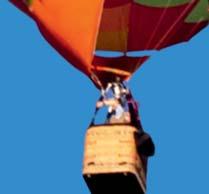





















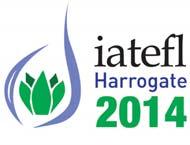

























DEVELOPED BY OXFORD UNIVERSITY PRESS ENDORSED BY THE UNIVERSITY OF OXFORD A NEW, GENERAL ENGLISH PROFICIENCY FROM OXFORD UNIVERSITY PRESS BECOME AN APPROVED TEST CENTRE VISIT THE OXFORD UNIVERSITY PRESS STANDTO FIND OUT ABOUT THE TEST AND HOW TO APPLY. WWW.OXFORDTESTOFENGLISH.COM O OF TH BY Y PRE O Y E SS DOXFOR -128-
0800-1730: Registration Open
0815-0845: How To... Track
0800-1730 Registration open
0815-0845 IATEFL How to ... Track
King’s A H
M
Friday 4 April
0830-1730: Exhibition Open 0900-1010: Plenary Session
In this session, we will review the criteria that are used to decide if a conference proposal is accepted for the IATEFL Annual Conference programme. We will discuss what makes a successful proposal, both in terms of the abstract and the summary, and how to ensure that your proposal is accepted.
Queen’s 3 Ho w
Are you a teacher interested in expanding your teacher network locally? Join us for tips on how to get your own teacher association started. IATEFL’s Associates’ Committee will give you practical tips gleaned from experience gathered from its over 100 associate members from all over the world.
Queen’s 5 Ho w
This session will look at starting the transition from teacher to manager - including reasons why you might think about making that move, ways of developing to prepare yourself to take on new responsibilities, and issues that you might want to be aware of. Come and see what is involved.
0830-1730 Exhibition open
0900-1010 Plenary Session
Auditorium (1970 audience)
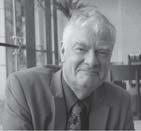
Michael Hoey is Baines Professor of English Language at the University of Liverpool, where he is currently also a Pro-Vice-Chancellor. He was responsible for the University’s English language provision for overseas students between 1993 and 2003. He is Director of the Liverpool Confucius Institute. He is an academician of the Academy of Social Sciences and was for many years a member of the AQA’s Education and Training Committee and Chair of their English Advisory Committee. As a linguist he has published in the fields of discourse analysis, applied linguistics, language teaching and corpus linguistics. One of his books won the Duke of Edinburgh English Speaking Union Award for best book in applied linguistics (1991) and another was shortlisted for the BAAL best book in applied linguistics (2005). He was chief consultant to Macmillan's Dictionaries, one of which also won a Duke of Edinburgh English Speaking Union Award. He has lectured in over 40 countries. Ol
Two major figures in English Language Teaching are Michael Lewis and Stephen Krashen, but both have come under heavy criticism. I shall briefly describe the major claims of both as well as outlining some of the criticisms that have been levelled against them. I shall then seek to demonstrate that their claims are compatible with current corpus-linguistic research, which is itself supported by long-standing and robust psychological research. What corpus-linguistic and psychological studies in fact suggest is that we need a very different model of the way language is organised; Lexical Priming theory is an attempt to provide such a model of language. I shall describe the main claims of the theory and provide evidence for these claims. Finally, the talk will offer provisional evidence to support the view that Chinese has the same lexical properties as English. This is important because it suggests that my own work and that of Lewis and Krashen are as likely to be relevant to the learning and teaching of Chinese as they are to English. Perhaps more importantly, it also suggests that two apparently very different languages like Chinese and English are more alike in major ways than is usually assumed; this has important implications for the teaching of English, some of which will be discussed.
-129-
H o w t o s u b m i t a s p e ak e r p r o p os a l
ad e l e i ne d u Vi v i e r
t o
e t u p a T e ac h e r ' s A s s oc i at i on
e s
i rk h a m & A my
os t
s
L
K
J
o m ov e
t
l a n g u ag e s ch ool man ag e me n t A n d y Hoc k l e y
t
i n
o
P l e n ar y s e ss i o n b y M i c h a e l H o e y
d a p p r o a c h e s , n e w p e rs p e c t i v e s : t h e i m p l i c a t i o n s o f a c o r p u s l i n g u i s t i c t h e o r y f o r l e a r n i n g t h e E n g l i s h l a n g u a g e
-129FRIDAY
Friday 4 April
Session 3.1 : 1025-1055
1025-1055 Session 3.1
Bramham
90 audience
Talk
LAM
Charter
75 audience
Talk
LT,
D ay
Last year I became an academic manager of a summer school for the first time in the UK. In this talk I will outline the effective resources I used to learn quickly, including induction, a handbook, mentoring, deliberate practice, checklists and self-reflection. Participants will learn how to pick up new skills quickly using the latest learning theories.
This talk showcases tasks and activities, based on digital technologies, implemented in literature classes in pre-service teacher education in Rosario, Argentina, and the selfassessment of online performance through criterion-referenced instruments. It also invites reflection on the contextualised development of e-competencies in new learning environments as a means to contribute to learner autonomy.
Harewood 1
125 audience
Talk
Harewood 2
125 audience
Talk TTEd
Newby
30 audience
Talk
LT
Ripley
160 audience
Talk EAP,
D ay
Live online classes pose unique challenges to teachers who are not used to this new environment. Therefore, a new set of skills and techniques need to be developed. We will examine these challenges and the strategies which we can use in order to succeed in the live online learning environment.
We look at how we integrate the Cambridge English CELTA qualification into an undergraduate module in TEFL at UCL. Our focus is on how we handle the different modes of assessment that the two schemes require: teaching practice, written assignments and university examinations. Participants will have opportunities to discuss how our assessment procedures can be adapted to their own contexts.
I will discuss whether use of mobile devices and applications in the language classroom causes distraction or creates opportunities for collaborative and interactive learning. I will present ways teachers and teacher trainers may use them to engage learners and reduce in-class distractions. Finally, I will discuss how they can reflect on their instructional approach to bring changes in pedagogical strategies.
The reality of many EAP classes is a mix of students from different disciplines, which can make it feel difficult to please everyone. In this talk, I look at some practical tasks, from Oxford EAP Advanced, to help students, especially at higher levels, transfer academic and language skills learnt in class to their own academic discipline.
e = experienced audience
p = primary teaching ie = inexperienced audience s = secondary teaching t = tertiary teaching
adult teaching prod prom = promoting a particular book or product pub = speaker is representing or sponsored by a publisher but is not focussing on a particular book or product
-130-
H o w d o y ou b e c ome a n e f fe c t i v e a ca d e m ic m an ag e r ov e r n i g h t ? X i a ob in g W an g ( F re el an ce )
e, ie
L L M C S S I G
I A T E F L L A T IN A M E R I C A S C H O L A R S H IP W I N N E R L it e r a t u r e a n d l e a r n i n g t e c hn ol og i e s : a n e x p e r ie n c e i n p r e - se r vi c e t e ac h e r e d u ca t i on M ar i e l R o xa n a A me z ( IE S O C o ss e t t i n i - I S P I S an Ba r t ol ome , R os a r i o , A r ge n t i n a )
e, ie, t
L T S I G D a y IA T E F L L E A R N IN G T E C H N O L O G I E S S I G T R A V E L S C HO L A R S H IP W IN N E R S t r at e g ie s f or e f f e c t i v e l iv e on l in e t e ac h i n g a n d l e a r n i n g
e
il
a
NE T W O R K I d i om a s & A P I BA )
C
c
i
C ic ol i n i (
ie, a
In t e gr a t i n g C E L T A a ss e s s me n t r e q u i r e me n t s i n t o a u n i v e r s i t y u n d e r gr a d u a t e mod u l e C a t h y M or an d & R a ch e l Cl ar k ( U n i ve r s i t y C ol l e ge L on d on )
e, a
M ob i l e de vi c e s an d ap p s f or l a n g u a g e l e a rn in g: su p p or t or d i s t r a c t i on ? K a l y a n C h a t t op a d h y a y ( Ba n k i m S a r d a r C ol l e g e )
e, ie, s, t, a
E E S P S I G
H o w d o e n g in e e r s s ay t h a t ? E n c ou ra g i n g ac ad e mi c i n d e pe n d e n c e i n E A P Ju l ie M oor e ( F r e el an ce )
e, t prod prom
P L EA SE C HEC K N O T I CE B OA R DS F O R C H A NG E S & C A N C E L LA TI ON S -130FRIDAY
a =
Studley 30 audience
Talk
RES, TTEd
Talk
King’s A
240 audience
Talk YLT
King’s B
100 audience
Talk
TEA
Session 3.1 : 1025-1055
The result of the previous 20 years of Communicative Approach(es) has led us to a time of ambiguity. In this session we will look at some initial research I recently conducted in my own classes and look at how this might feed into a redefined, contemporary view of communicative language teaching (CLT) for the 21st Century.
The use of English by non-native speakers to highlight global issues is increasing, often involving the clever use of social media. Should English teachers focus more on this wider use of English and pay less attention to native speaker socio-cultural aspects of the language? This talk will look at the arguments for and against and provide some practical classroom suggestions.
In today’s changing world, secondary materials need to reflect the students’ lives and prepare them for life beyond the classroom. Beyond is a new 6-level international secondary course that develops both linguistic and life skills. In this talk we’ll present the course, its unique subskills syllabus, and the videos that bring its pages to life.
Many teachers will soon start preparing learners for the revised Cambridge English: Advanced exam, which is being introduced in 2015. Are you ready? This talk outlines the changes to the exam specifications and explores how best to prepare for them, providing some practical exercises and ideas for the classroom. Examples and activities will be shared from ObjectiveAdvanced4th ed.
Hall Qa
100 audience
Talk
TEA T e a ch in g s t
This talk introduces a series of teaching strategies for teachers working with IELTS students, and a coursebook, Mission IELTS 2 , to help them apply these strategies. The strategies centre round responding to learners’ needs, rather than exam needs, suggesting how developing language proficiency can be customised to the exam and the learner, and provide an essential IELTS course component.
e, ie, s, t prod prom
Hall Qb
100 audience
Talk
TD, TTEd
This talk will focus on the development of Cambridge English’s new Teaching Framework and demonstrate how the framework will: a) help teachers, employers and ministries of education describe teacher competency profiles and b) enable employers to guide teachers in thinking about their professional development needs. This session will be of particular interest to those responsible for the training and professional development of teachers.
AL = Applied Linguistics
BE = Business English
EAP = English for Academic Purposes
ESAP = English for Specific Academic Purposes
ES(O)L=English for Speakers of Other Languages
ESP = English for Specific Purposes
GEN = General
GI = Global Issues
LA = Learner Autonomy
LAM = Leadership & Management
LMCS = Literature, Media & Cultural Studies
LT = Learning Technologies
MaW = Materials Writing
MD = Materials Development
PRON = Pronunciation
RES = Research
TD = Teacher Development
TEA = Testing, Evaluation & Assessment
TTEd = Teacher Training & Education
YLT = Young Learners & Teenagers
-131-
Friday 4 April
I NT E R NA T I O NA L H O U S E J O H N H A Y C R A F T C L A S S R O O M E X P L O R A T I O N S C H O L A R S H I P W I N NE R R e t h i n k i n g c ommu n i c a t i ve l a n gu ag e t e ac h i n g J a me s P e n ge ll e y ( Br i t i s h C ou n ci l , H on g K on g)
e, a Auditorium 570
audience
G IS IG D ay C a n g l ob al is s u e s p r o v i d e au t h en t i c it y a n d c on t e x t i n E n g l i s h t e ac h i n g ? K e n W i l s on ( F r e e l a n c e )
e, ie, s, t, a
T e a ch Beyond – a n e w c ou r s e f or s e c on d a r y R ob e r t C a mp b e l l , R eb e c ca R ob b Be n n e & R ob M e t c al f ( F re el an c e )
e, ie,
s prod prom
E
e
iv e p r ep ar a
i on f or t h e r e v is e d C a mb ri d ge
A d v an ce d e x a m A n n i e Br oa d h e ad ( F r e el an c e )
f f
ct
t
E n gl is h :
r at e gi e s f or me e t i n g l e ar n e r ne e d s i n IE L T S
ar y
p r a t t ( F r
M
S
e e l an ce )
e, ie, s, t, a
prod prom
D e ve l op i n g c o mp e t en c e s: a f r a me w or k f or t e ac h e r p rof e ss i on al d e v e l op me n t A n d re w Ny e
amb r id ge E n gl
( C
ish )
e,
ie, p, s, t, a prod prom
P l e as e n ot e t h a t s ome p r e s en t e r s h av e r e q u e s t ed a m a x i mu m au d i e n c e s i ze T h e re f or e , p l e a s e ch e c k t h e a u d i e n ce si z e i n t h e l e f t -h an d col u mn of e ac h e n t r y . -131FRIDAY
Friday 4 April
Session 3.1 : 1025-1055
Hall Qc
100 audience
Talk
RES, TTEd
Hall Qd
100 audience
Talk
AL, MaW
Hall Qe
100 audience
Talk TD
Hall Qf
200 audience
Talk RES
Queen's 1
60 audience
Talk
TD, YLT
, Be
g
ad
, S e r b ia )
Educational action research in a small international school in Belgrade, Serbia, was conducted with an aim to bring about change in teachers’ perceptions of their pedagogical practice in the classroom. The teachers were introduced into reciprocal coaching schemata in order to support each other in their professional growth, which positively affected their self-assessment.
J i m Ur e e l ( U n ive r sit y of A n t w e r p , Be l giu m)
As language users, we constantly have to make choices about the varieties of languages that we use in various contexts. An important form of such language variation is related to the degree of formality of the communicative setting. This presentation sheds light on how contemporary ESL/EFL grammars address formality and on how challenging addressing and describing grammatical formality can be.
n gl is h A
E l le n D ar l in g ( Br it is h C ou n c il )
In order to stay fresh in our profession, we need to be aware of recent developments and try out new ideas. In this talk, I present materials from the British Council’s EnglishAgenda website (http://englishagenda.britishcouncil.org), which aims to share best practice in ELT. Participants will take away practical strategies for initiating their own professional development and action research.
A n d th e p r a gm a t i cs of and P e t e r Gr u n d y ( D u rh am Un iv e r s it y)
Pragmatics, and especially neo-Gricean pragmatics, focuses principally on optimality (the best correspondence of form and meaning). One aspect of form that we need to teach carefully is phonetic realization because of its effect on pragmatic meaning. After illustrating how the different realizations of and , you, was and were affect meaning, I’ll discuss ways of achieving more pragmatically sensitive classroom practice. e, ie, s, t, a
Ga il E l l is ( Br it is h
Queen's 2
68 audience
Talk
TEA
in in g c ou r
, Sp a in )
This talk reports on the long-term impact study of a one-week primary teacher training course, using an evaluation framework that explores five perspectives: relevance, scale, learning, action and wider benefit. We will present findings and discuss quantitative and qualitative data that shows what makes the course successful, aspects that could be improved, and conditions needed to replicate it elsewhere.
I present a research project that compares novice vs. experienced native raters and novice vs. experienced non-native raters, while grading paragraphs with different cultural rhetorical patterns in an EFL university context. This talk will be a great opportunity for you to discover the details of the project, discuss pivotal issues like world Englishes, inter-rater reliability and writing teacher training.
e = experienced audience p = primary teaching ie = inexperienced audience s = secondary teaching t = tertiary teaching a = adult teaching prod prom = promoting a particular book or product pub = speaker is representing or sponsored by a publisher but is not focussing on a particular book or product
-132-
I NT E R NA T IO NA L HO USE J O HN HA Y C R A F T C L A SSR O O M EXP L O R A T IO N SC HOLA R S HI P
e cip r oc al c oa c h in g a s t e a c h e r s ’ p r of e s s i on a l d e v el op m e n t S ve t l an a Be l ic M al in ic ( C r n j a n s ki E d u c a t i on al C e n t re
W I N NE R R
l
r
e
e, p, s
W
a n E SL / E F L gr a m m ar s t e a ch u s a b ou t f or m al it y in
n
h at c
E
gl is h ?
e,
ie, p, s, t, a
E
g e n d a: a w e b r e sou r c e f or c on t in u in g p r of e s s io n a l d e v el op me n t
e prod prom
e l on g-
e r m im p ac t of a p r
ar
e ac h e
C ou n c il F r an ce ) & C a r ol Re ad ( F r e el an c e , M a d r id
E va l u at in g t h
t
i m
y t
r t ra
se
e, p
R h e t or ic , b a c k gr ou n d a n d e xp e r ie n c e in w r it in g as s e s s m e n t : a c omp ar at iv e s t u d y Gu l K ar a a g a c ( M i d d l e E as t T e ch n i ca l U n i v e r s i t y N o rt h e rn C yp r u s C a mp u s)
e, ie, a
P LE A SE C H EC K N O T IC E B O A RD S F OR CH A NGE S & CA N CE LLA T I O N S -132FRIDAY
Queen's 3 180 audience
Talk
LAM W h at m a k e s t e ac h e r s t i c k ?
J e n n y J o h n s on ( E a st
Queen's 5 110 audience
Talk
L A S I G D ay
Queen's 7 95 audience
Workshop
TD, TTEd
Session 3.1 : 1025-1055
)
Why do teachers teach? What do teachers want? I asked a small sample of teachers what keeps them in ELT, and what in their view would improve their jobs and their schools. I briefly map my data to motivation theories and then propose, using Argyris and Schein's 'Psychological Contract' as a basis, for a way forward.
Linguistic landscapes is concerned with the language that we see every day of the week in signs, advertising and leaflets. This talk will show how, by encouraging students to explore and record their own linguistic landscape, we can also boost motivation, encourage them to be more independent learners and foster critical thinking skills.
There are many variables that affect whether or not students learn. As learning is a complex process, teacher, context and learner-related factors contribute to it. This highly interactive session will invite the audience to personalize relevant research and discuss what factors influence their students' learning/not learning English well and what could be done to enhance learning in their contexts.
Queen's 9 25 audience
Talk TD, TTEd
Room R
60 audience
Talk PRON
This sesson is based on my research on attitudes to CPD and lack of awareness about strategies like Personal Development Plan (PDP) in teachers at tertiary level across India. A two-pronged enquiry using a triangulation method, it investigates teacher perceptions about CPD and PDP through questionnaire, teacher narratives and analysis of websites of two leading universities.
There are educational contexts in which all traditional techniques of teaching foreign pronunciation fail: lack of time, not enough theoretical knowledge, collision of contacting languages. An appeal to sensory perception and cross-linguistic phonosemantic features may help. The method is favorable for teaching young learners, speakers of ideographic languages, and people with audial sensory preferences. Tips for doing it will be presented.
1055-1130 Coffee break
Exhibition hall A complimentary tea/coffee is available at the catering points in the exhibition hall.
AL = Applied Linguistics
BE = Business English
EAP = English for Academic Purposes
ESAP = English for Specific Academic Purposes
ES(O)L=English for Speakers of Other Languages
ESP = English for Specific Purposes
GEN = General
GI = Global Issues
LA = Learner Autonomy
LAM = Leadership & Management
LMCS = Literature, Media & Cultural Studies
LT = Learning Technologies
MaW = Materials Writing
MD = Materials Development
PRON = Pronunciation
RES = Research
TD = Teacher Development
TEA = Testing, Evaluation & Assessment
TTEd = Teacher Training & Education
YLT = Young Learners & Teenagers
-133-
Friday 4 April
b o u r n e S ch o o l of E n g l i s h
e, a
L in g u i s
i c l an d s ca p e s : l e a r n i n g f r om t h e l a n g u ag e a l l a r ou n d u s
t e p h e n G r e e n e ( T M E n g l i s h or g
t
S
)
e, a
L e a r n i n g d y n am i cs an d E n g li s h l a n g u ag e t e ac h i n g B u rc u T e z c an U n a l ( Z ay e d U n i v e r s it y)
e, ie, s, t, a
C A M BR ID G E E N G L I S H : T E A C H E R T RA I N I N G S C H O L A R S H I P W I N N E R L oc at in g C P D i n E n g l is h t e a c h e r s i n t e r t i ar y e d u c at i on i n I n d ia
ab i n a P i l l a i ( D e l h i Un i v e rs i t y
S
)
e, t
M u l t i- s e n sor y a n d p h on os e m a n t i c t e c h n i q u e s i n t e ac h i n g p r on u n c i at i on I r i n a Y P a v l ov s k a y a ( S t P e t e r sb u r g S t at e U n i ve r s i t y )
e, ie, p, s, t, a
P l e as e n ot e t h a t s ome p r e s en t e r s h av e r e q u e s t ed a m a x i mu m au d i e n c e s i ze T h e re f or e , p l e a se ch e c k t h e a u d i e n ce si z e i n t h e l e f t -h an d col u mn of e ac h e n t r y -133-
FRIDAY
Friday 4 April
Session 3.2 : 1130-1235
1130-1235 Session 3.2
Bramham 1130-1200
90 audience
Talk
ES(O)L, MD
Bramham 1205-1235
90 audience
Talk
LAM, TTEd
Charter 1130-1200
75 audience
Talk
YLT, L L M C S S I G D a
Charter 1205-1235
75 audience
Open Forum
L M C S S IG
D ay
Harewood 1 1130-1200
125 audience
Talk
L T S I G D a
Harewood 1
1205-1235
125 audience
Talk
This talk will present the findings from a research project which examined how 75 Japanese EFL learners have benefitted from a learner-centred reflective approach by participating in a 12-week speaking class to raise self-awareness of interactional skills in L2, while deepening understanding of related cultural norms. Useful pedagogical approaches, types of activity and assessment procedure will also be presented.
Use your circle of influence to help solve persistent underperformance in English by pupils in secondary education. Leaders and teachers can be proactive, starting cooperation with all relevant stakeholders in primary and secondary teacher education. This is a Dutch story on its way to success and how we got there.
The traditional skills that can be exercised with literary texts include text analysis, literary interpretation and learning to change perspective. Brian Selznick’s TheInventionofHugo Cabret, remediated as Scorsese’s prize-winning film Hugo, offers the EFL classroom more. I will discuss the narrative and cinematic devices employed in the book, and how and why they appeal to the EFL student.
Come and join us to find out what the LMCS SIG has been doing and is planning to do. It’s your chance to meet the committee, ask questions and make suggestions about what you would like us to do. As usual, committee members will be reading a favourite poem for you to enjoy as we go along.
MOOCs (Massive Open Online Courses) have been lauded within higher education as a means of democratising education and have led to many big university players jumping on the bandwagon. This presentation looks at the pedagogical and practical considerations of applying MOOC concepts to a language learning course that was run in 2013 and some of the lessons that were learned.
Mobile technology increases accessibility to English in low-resource environments. How do ELT practitioners ensure content is pedagogically sound and relevant for learners in these contexts? In this practical talk, we examine how to create effective materials using IVR (voice) and SMS, through case studies from South Asia. We outline key learning points and content design for replication in similar settings.
e = experienced audience p = primary teaching ie = inexperienced audience s = secondary teaching t = tertiary teaching a = adult teaching prod prom = promoting a particular book or product pub = speaker is representing or sponsored by a publisher but is not focussing on a particular book or product
-134-
R a i s i n g a w a r e n e s s on cl a s s r o om t a l k an d s i l e n c e S e i k o H a r u m i ( C ar d if f U n i v e r s it y)
ie, t
E n gl is h ou t r e ac h : u se y ou r i n f l u e n c e t o i mp a c t y ou r w id e r c om mu n it y P i e t M u r r e ( D ri e st ar E d u ca t i e f Un iv e r si t y f or T e a ch e r E du ca t i on )
e, ie, p, s, t, a
y Gr a p h i c n ar r a t i v e s : i d e a l c h o i c e f or b ot h r e lu c t a n t a n d a mb i t i ou s r e ad e r s J an i c e Bl an d ( U n i v e r s i t y of V e c h t a )
e, ie, s
IA T E F L L i t e r at u r e , M e d i a & C u l tu r a l S t u d i e s S p e c ia l In t e r e s t Gr ou p O p e n F or u m
y L e s s on l e ar n e d f rom a ‘ l a n g u ag e M O O C ’ p i l ot N i c k T u r n e r
Be l l E d u c at i on a l S e rv i c e s )
(
e, s, a
IG
ay C r e at in g an d d i s t r i b u t i n g m ob il e le ar n in g m at e r i al s i n r e s ou r ce - p oor e n v i r on me n t s A my L i gh t f o ot ( Br it is h C ou n c i l In d i a )
MD, L L T S
D
e, s, t, a
P LE A SE C H EC K N O T IC E B O A RD S F OR CH A NGE S & CA N CE LLA T I O N S -134FRIDAY
Harewood 2
1130-1200
125 audience
Talk
LAM, TTEd
Harewood 2
1205-1235
125 audience
Talk
TD, TTEd
Newby 1130-1200
35 audience
Talk
TTEd, YLT
Newby 1205-1235
35 audience
Talk
GEN
Ripley
1130-1215
160 audience
Workshop
TD, E S PS I G
D ay
Ripley 1215-1235
160 audience
Open Forum
ESPS IG D ay
Friday 4 April Session 3.2 : 1130-1235
Projects change over time, but why and how? Using the case study of the Punjab Education and English Language Initiative (PEELI), British Council’s largest single investment, factors influencing changes to project design and components are explicated and assumptions explored. Lessons learned and recommendations for building in design flexibility will be shared.
This session reports on research into how a teacher training project blends 'dialogue journal' and 'reflective journal' to develop limited-English-proficient teachers' linguistic ability as well as the transferability of gained knowledge from training to the real classroom. Additionally, this talk will demonstrate the results of how the gap between theory and practice are met for adapting professional skill development.
This talk will describe the implementation process of two public bilingual schools in Rio de Janeiro, Brazil. Details related to the curriculum development and teachers' and students' profiles and objectives of the program will be described. Also, challenges and results achieved so far will be presented, as well as how they may affect the future of the program.
This presentation tries to revitalise pattern practice methodology with concrete examples taken from various classrooms. Bilingual pattern drills are given a new foundation of construction grammar and usage-based linguistics. They focus on both fluency and content and are seen as sense variations rather than syntactical manipulations. Although pattern drills work with disconnected sentences, they can lead right into communication.
This session presents some practical recommendations growing out of a feedback questionnaire completed by participants, as well as my own reflections on teaching an advanced academic English course. Most of the session will be devoted to open discussion, during which it is hoped that participants in the session will also contribute insights from their own EAP experiences.
The ESPSIG Open Forum provides an opportunity for members and prospective members to meet the ESPSIG committee and to get a full account of the ESPSIG's activities, events and future plans. The open forum is also a chance to meet other ESP and EAP practitioners and to take part in shaping the future of the ESPSIG.
AL = Applied Linguistics
BE = Business English
EAP = English for Academic Purposes
ESAP = English for Specific Academic Purposes
ES(O)L=English for Speakers of Other Languages
ESP = English for Specific Purposes
GEN = General
GI = Global Issues
LA = Learner Autonomy
LAM = Leadership & Management
LMCS = Literature, Media & Cultural Studies
LT = Learning Technologies
MaW = Materials Writing
MD = Materials Development
PRON = Pronunciation
RES = Research
TD = Teacher Development
TEA = Testing, Evaluation & Assessment
TTEd = Teacher Training & Education
YLT = Young Learners & Teenagers
-135-
P E E L In g b ac k t h e l a y e r s : P r oje c t m a n a ge me n t a s a n e v ol u t ion a ry p r oc e s s A l an M ac ke n z ie ( Br it i sh C ou n cil P a k i s t a n )
e, p
Bl e n d in g r ef le ct ive an d d ial ogu e jou rn al t o l e v e r a ge p r of e s si on al s k il l de ve l op me n t M oh a m m ad A m in u l Isl a m ( B R A C In s t it u t e of L an gu a ge s,
r s
BR A C Un iv e
it y )
e, p, a
I mp l e me n t in g p ub l ic b il in gu a l e d u c a t i on in Br a z il A n d re ia F e r n a n d e s ( C u l t u r a In g l e sa / L e ar n in g F a
ct or y )
e, p
B il in g u a l p a t t e r n d r ill s : s e n t e n c e v a r ia t i on s a s s e n s e v ar i a t i on s P a we l Sc h e ff le r ( Ad a m M ic k i e wic z Un iv e r s it y in P o zn an )
ie, s
T e a ch in g E n g l i s h f or A c a d e m ic P u r p ose s : in s igh t s f r om e x p e r ie n c e P e n n y Ur ( Or an im A c ad e m ic C ol l e g e of Ed u c a t i on )
e, t, a
IA T E F L E n g l is h f or S p e c if i c P u r p os e s Sp e c ia l In t e r e s t Gr ou p Op e n F or u m
P l e as e n ot e t h a t s ome p r e s en t e r s h av e r e q u e s t ed a m a x i mu m au d ie n c e s ize . T h e re f or e , p l e a s e ch e c k t h e a u d ie n ce siz e in t h e l e f t -h an d col u mn of e ac h e n t r y -135-
FRIDAY
Friday 4 April
Session 3.2 : 1130-1235
Studley
1130-1200
30 audience
Talk MD, TTEd
Studley
1205-1235
30 audience
Talk MD
Auditorium 1130-1235
570 audience
Us in g c r e a t iv it y an d h u man i s m in EL T
N a m- J oon K an g
This presentation will discuss the result of two small-scale researches that examined the effect of using creativity and humanism approaches in ELT on Korean primary and secondary school learners’ English language skills improvement and creative thinking skills development. Theoretical rationales for using creativity in TEFL and various kinds of activities will be introduced. e, p, s
at iv i t y in E
T an Be e T in ( T h e U n iv e rs it y of A u c kl a n d )
‘Creativity’, i.e. the human ability and need to make new meaning, can help learners to destabilise, explore and transform their language, a desirable goal in language teaching. I will illustrate creative tasks and will discuss how creative tasks differ from communicative tasks, which have dominated language teaching in current years. e, ie, t, a
Speakers:
S c ot t T h or n b u r y ( T h e Ne w Sc h ool )
The Communicative Approach is so well-established it’s more or less the default methodology for second language teaching. But where did it come from? How has it evolved? Where does it work? What are its strengths and its weaknesses? In this wideranging conversation (in which Scott interviews Jeremy and Jeremy interviews Scott), we address these questions from the point of view of our own experience, convictions and doubts – and we invite you to do the same!
King’s A 1130-1215
240 audience Workshop MD
What kind of pre-task activities can help learners to engage with the target task and accomplish the task goals? I will illustrate a range of priming activities for different types of task, showing how a sequence of meaning-focused mini-tasks can lead into the target task and prepare learners linguistically for it. ie, t, a e = experienced audience p = primary teaching ie = inexperienced audience
J an e W il l is ( F r e e l an ce )
-136-
C r e
L T : f r om c om mu n ic a t i ve t o c r e a t i v e t a sk s
E L T C O NV E R S A T IO N C o m mu n i c at iv e L an g u a ge T e a ch in g : w h a t h a v e we g a in e d ( or l ost ?)
t e r n a t
on al G o od
d
Je r e my Ha r me r ( IA T E F L In
i
wil l a mb a s s a
or/ T h e Ne w Sc h o ol )
d i n g t o t a sk : p r i m i n g a n d p r e p a ra t i on a c t i v it ie s f
T as k l e a
or T BL
book
product P LE A SE C HE C K N O TI C E BOA RDS FO R CH A NGE S & CA N CE LLA T I ON S -136FRIDAY
s = secondary teaching t = tertiary teaching a = adult teaching prod prom = promoting a particular book or product pub = speaker is representing or sponsored by a publisher but is not focussing on a particular
or
King’s B 1130-1235
100 audience Forum YLT
Hall Qa
1130-1200
100 audience
Talk TD
Hall Qa
1205-1235
100 audience
Talk TD, TTEd
Hall Qb
1130-1200
100 audience
Talk
AL, TEA
Friday 4 April
Session 3.2 : 1130-1235
Recently, there has been a major trend for developing countries to introduce English at primary level. Between 2005 and 2013, the speakers provided primary curriculum design and coursebook writing and training to large and small-scale primary reform projects in Asia, the Middle East, Africa and South America. This talk argues for a joined-up approach to primary curriculum reform.
)
Early language learning (ELL) seems to be the latest trend in education. Is it a right for all children or a privilege of the few? This presentation is about how the Cyprus educational system lowered the starting age of foreign language learning to begin in preprimary education. The talk discusses the why, the how and the results of this innovation.
T e a ch e r s ' A s s oc ia t i on )
We face a dilemma if an Education Ministry requests support for introducing primary English but our judgement suggests this is inappropriate. Research in primary schools in Gabon, Central Africa, has revealed many problems requiring urgent attention but no apparent need for English that is not already being met in secondary schools. The audience will discuss how to address this dilemma.
y ou
R u b en s H
The question that composes the title is often heard by EFL teachers, but many of us are still in the dark regarding career perspectives. The aim of this talk is to shed some light on the different routes that a career in EFL may take, inside and outside the classroom, as well as the skills which may assist professional development.
What we sometimes consider as learners’ deficiencies could be a matter of their type and style. Sometimes, changing something small can make a big difference in helping them succeed. This talk will look at learners’ personality type concepts, based on the MyersBriggs Type Indicator, and provide type-specific strategies to create a motivating environment in the classroom that enhances learning.
This session attempts to examine and analyse the common problems on various subtypes of collocations encountered by Chinese EFL learners in Macao. Then, it continues to discuss and evaluate the effectiveness of consciousness-raising measures and practice adopted in a secondary English classroom. Finally, some implications are to be drawn for teaching collocations to Chinese EFL learners.
AL = Applied Linguistics
BE = Business English
EAP = English for Academic Purposes
ESAP = English for Specific Academic Purposes
ES(O)L=English for Speakers of Other Languages
ESP = English for Specific Purposes
GEN = General
GI = Global Issues
LA = Learner Autonomy
LAM = Leadership & Management
LMCS = Literature, Media & Cultural Studies
LT = Learning Technologies
MaW = Materials Writing
MD = Materials Development
PRON = Pronunciation
RES = Research
TD = Teacher Development
TEA = Testing, Evaluation & Assessment
TTEd = Teacher Training & Education
YLT = Young Learners & Teenagers
-137-
g
P r i m ar y c u r r i c u l u m r e f or m : t h e n ee d f or j oi n e d u p th i n k i n g W e n d y A r n ol d & C or a l y n B r a d sh aw ( F r e e l an c e
F or u m on P r im a r y E n
l i s h
)
e, ie, p
ar l y l a n g u a g e l e a rn i n g f or al l : m a k i n g i t h ap p e n
op h ie I o an n ou - Ge or g i ou ( C yp r u s M in is t r y of E d u c at i on a n d C u l tu re
E
S
e, ie, p T h e d il e m m a o f E n g l i s h i n p r i mar y sc h o ol s H y we l C ol e m a n ( U n i v e r s i t y of L e e d s ) & Y v e s R og e r M ou a n a mb at s i ( G a b on e s e E n g l i s h
e,
p
D o
w or k or j u s t t e ac h ? C ar e e r p e r sp e c t i ve s i n E F L
e r e d i a
u l t u r a I n g l e s a
a o
a u l o)
( C
S
P
e, ie, a
“ W h a t ’ s w r on g w i t h h i m? ” A ma t t e r of t y p e a n d s t y le ! B i t a R e z ae i ( He r me s In s t i t u t e of S c i e n c e a n d T e c h n ol og y
)
e, ie, s, t, a
U n d e r s t a n d i n g an d t a ck l i n g C h in e s e E F L l e a r ne rs ' c o m m on c ol l o c at i on p r ob l e ms U T e n g H o ( In st it u t e f or T ou r i s m S t u d ie s, M a c a o)
e, ie, s, t
P l e as e n ot e t h a t s ome p r e s en t e r s h av e r e q u e s t ed a m a x i mu m au d i e n c e s i ze T h e re f or e , p l e a s e ch e c k t h e a u d i e n ce si z e i n t h e l e f t -h an d col u mn of e ac h e n t r y . -137-
FRIDAY
Friday 4 April
Session 3.2 : 1130-1235
Hall Qb
1205-1235
100 audience
Talk
YLT
Hall Qc
1130-1200
100 audience
Talk
RES, TD
Hall Qc
1205-1235
100 audience
Talk
LAM, TD
Hall Qd
1130-1200
100 audience
Talk
LT, TEA
Hall Qd
1205-1235
100 audience
Talk PRON
Hall Qe
1130-1200
100 audience
Talk TD, YLT
The talk is about using stories and books for children in teaching young and very young learners to build a stock of whole phrases. Activities with children's books (Goodnight Moon and others) will be demonstrated, aiming at the acquisition of chunks of language and then at building a story. These activities can be adapted to any children's book.
This story of the inner journey of an English teacher will highlight the ways she uses to challenge herself, explore new areas, and further her professional development. They include a reflective diary/blog, class recordings, peer networking, and regular sessions with a teacher educator/coach. I will share experiences from her journey which may inspire you to embark on your own venture.
How do we invite teachers to be more active players in the observation process? Quite often teachers are relatively passive participants in the feedback process. Could the teacher be invited to be an observer as well as the observed? What implications might this have? How might this affect individual, school and organisational learning? What role might technology play in facilitating this?
This session introduces The Institute for Automated Language Teaching and Assessment (ALTA), which draws together teams from across the University of Cambridge. I will give an overview of research undertaken into automated assessment. I will then demonstrate how this research illustrates that automated assessment is essentially indistinguishable from a human examiner at the B1/B2 levels of the CEFR.
This talk will discuss whether or not it is important for EFL teachers to try and achieve a near-native generally-accepted accent for their students. The focus will be on the credibility of non-native speakers of English while speaking English in a globalising world, with a heavy or mild foreign accent.
Teachers might view teaching as the ability to pass on knowledge to others. However, teaching also calls for one’s ability to establish mutual respect and become their mentor and role model. This insightful, practical talk highlights some simple procedures and techniques that help build rapport and create a harmonious learning atmosphere, even with difficult teenage classes.
e = experienced audience p = primary teaching
= inexperienced audience s = secondary teaching
tertiary teaching
adult teaching prod prom = promoting a particular book or product pub = speaker is representing or sponsored by a publisher but is not focussing on a particular book or product
-138-
L e x i c a l ap p r oa c h w i t h y ou n g l e a r n e r s Z h i v k a I l i e v a ( D ob r i c h C ol l e ge , S h u me n U n i ve r si t y )
e, ie, p
O n e t e ac h e r ' s j ou r n e y t ow ar d s s e l f -e f f i c ac y a n d p r of e s s i on al d e v el op me n t S a mu e l L e f e ve r ( U n i v e r s it y of Ice l a n d )
e, ie, p
L e s s on ob se r v at i on u s in g 2 1 st C e n t u r y t e c hn ol og y M ic h a e l W ar d ( E mb a s s y E n g l is h )
e, t, a
A u t oma t e d as s e s s me n t r e se ar c h an d b e n c h ma rk i n g t o t h e C E F R at B 1 / B 2
T e d Br is c oe ( U n iv e r s it y of C a mb r i d ge )
e,
a
s, t,
e
a n e ar - n a t i v e p r on u n c i at i on
s U n i v e r s it y of A p p l i e d S ci e n c e s , T h e Ne t he rl an d s )
T h e i mp or t a n c
of
F ra n s He r m an s ( F on t y
e,
s, t
F ro m b e in g a t e a c h e r t o b e i n g a r ol e m o d e l T e r e s a C ri s t i n a G o me s D e C ar v al h o ( C u l t u r a In gl e s a)
e, ie, p, s
t
P LE A SE C H EC K N O T IC E B O A RD S F OR CH A NGE S & CA N CE LLA T I O N S -138FRIDAY
ie
=
a =
Hall Qe
1205-1235
100 audience Talk TTEd, YLT
Hall Qf
1130-1200
200 audience Talk AL
Hall Qf
1205-1235
200 audience Talk RES
Queen's 1 1130-1235
60 audience Forum GEN
Session 3.2 : 1130-1235
Are teenagers different today? Do they behave the same way in different social and cultural contexts? In this talk we’ll address some aspects related to the behaviour and the identity of teenagers nowadays, as they can be useful for understanding these 'typical' English students. The focus of this session is a combination of theory and practice for experienced teachers.
The talk will describe four theories of writing, represented by the product, process genre and literacy approaches, and will examine how far these theories of writing can be used as a way of diagnosing learners' needs. The talk is intended to support teachers of writing and also to address the gap between theory and practice. e
Is the teaching of writing skills being left behind in this age of innovation and technology? This talk will attempt to address this issue through the presentation of results from feedback from both teachers and students, in order to ascertain whether writing is still seen as being important when learning a language.
This talk reports on an action research study that was carried out to increase learner involvement in a large English class held under difficult circumstances in a university in Pakistan. Findings of the study show that engaging students both cognitively and affectively in a large class increase their involvement. The study has important implications for teachers working in similar circumstances.
The aim of this talk is to clearly paint a vivid picture of challenges and 'frustrations' that Ghanaian teachers encounter in secondary schools. The speaker will discuss benefits of an 'ideal' class size, suggest some effective strategies to deal with the problems, and make cross-capital comparisons for statistical purposes. e, s T e a ch in g s p e a k in g sk
This session will be mainly theoretical, about teaching speaking in large classes in Angola through communicative language teaching. But there are some challenges, like the Portuguese language, because in most cases, the pupils only have two to three hours of lessons in English. Their English talking time is therefore not enough for effective learning. e, s, t
AL = Applied Linguistics
BE = Business English
EAP = English for Academic Purposes
ESAP = English for Specific Academic Purposes
ES(O)L=English for Speakers of Other Languages
ESP = English for Specific Purposes
GEN = General
GI = Global Issues
LA = Learner Autonomy
LAM = Leadership & Management
LMCS = Literature, Media & Cultural Studies
LT = Learning Technologies
MaW = Materials Writing
MD = Materials Development
PRON = Pronunciation
RES = Research
TD = Teacher Development
TEA = Testing, Evaluation & Assessment
TTEd = Teacher Training & Education
YLT = Young Learners & Teenagers
-139-
Friday 4 April
W h at t h e t e en ag e c l a ss r oo m c a n t e ac h u s ab ou t c on t e mp or a r y s oc i e t y L u c i a n a L oc k s L i m a & J ai me C a r a J u n i or ( E d i t or a C NA C u l t u r al Nor t e - A me r ic a n o)
e, t
W r i t i n g t h e or y a s p r ac t i c e R i c h a rd Ba d g e r ( U n iv e r s i t y of L e ed s)
s an y on e c ar e ab o u t w r i t i n g s k i l l s a n y m or e ? N i al l L l oy d ( T h e A n gl o M e xi c an F ou n d a t i on A . C .
D oe
)
e, ie, p, s, t, a
F or u m on T e a c h i n g E n gl is h t o l a r g e c l a s s e s E n ga g i n g s t u d e n t s in a l a r ge E S L u n i v e r s i t y l e v e l cl a ss Bu sh ra A h me d K h u r r a m ( D e p a r t me n t of E n g l i s h , U n i v e r s i t y of K a ra c h i , P a k i st an
)
e, ie, s, t
g e cl as s e s on l e a r n i n g E n gl i s h i n Gh an a I s a i ah A d z ig od ie ( Gh a n a E d u c at ion S e r vi c e )
I mp a ct of l ar
il l s in l ar g e c l a s s e s in A n gol a C a e t an o C ap it a o ( IS C E D - L u a n d a )
P l e as e n ot e t h a t s ome p r e s en t e r s h av e r e q u e s t ed a m a x i mu m au d i e n c e s i ze . T h e re f or e , p l e a s e ch e c k t h e a u d ie n ce siz e in t h e l e f t -h an d col u mn of e ac h e n t r y -139FRIDAY
Friday 4 April
Session 3.2 : 1130-1235
Queen's 2 1130-1200
68 audience Talk RES
Queen's 3 1130-1200
180 audience
Talk
ES(O)L, PRON
Queen's 3 1205-1235
180 audience
Talk AL
Queen's 5 1130-1200
110 audience
Talk
L A S I G D ay
Queen's 5 1205-1235
110 audience
Talk
TD, L L A S IG D ay
Queen's 7 1130-1235
95 audience
Open Forum
G IS I G D ay
Queen's 9 1130-1200
25 audience
Talk AL, RES
In this presentation, the experience and perception of a group of adult students, who had been assigned to use fictional graded reading materials as extensive reading, will be reported. One particular area investigated was whether after this assignment the learners had been triggered to read in English for pleasure and without the need to be encouraged by the teachers.
Do your students feel uncomfortable when testing their spelling and pronunciation? Are your students confused because the spelling of a word is not enough to tell them how to pronounce it? This has caused students to misspell and mispronounce words. Come and help provide them with certain guidelines and spelling & pronunciation rules to improve. A detailed handout will be available.
In the EFL classroom, Arabic learners are a unique group of students whose needs differ from other EFL learners. This talk will focus on one of their most persistent difficultiesspelling - and highlight the principal reasons for this (such as Arabic being a consonantal language with an absence of vowels) before providing practical solutions for teachers.
This talk describes the initial results of action research that analysed the academic and emotional issues raised in the reflective learner journals of upper-intermediate EAP students. This research, which considered both student writing and teacher responses to the issues raised in these journals, suggests that use of student learner journals can be a catalyst for change in the classroom.
This talk describes and discusses a project aimed at involving teachers in the design and development of a student learning diary that helps learners gauge their own progress and develop their learning aims within the context of a UK language school with multilingual classes and a policy of continuous weekly enrolment. e, a
Is it possible to just focus on teaching the language and leave politics outside the classroom? In this 4Corners Dialogue Lindsay Clandfield (Canada), Cecilia Lemos (Brazil), Christina Rebuffet-Broadus (France) and Xiaobing Wang (China) will challenge your thinking by presenting four brief perspectives on this issue. You will then be invited to join the Dialogue facilitated by Margit Szesztay. Come and find out what our SIG is all about!
This talk discusses part of the data of a research in progress carried out in Mexico. The participants were in-service English language teachers working in Mexico. EFL teachers narrate the complex construction of their identities. Qualitative research and specifically narrative inquiry (Clandinin and Connelly, 2000; Barkhuizen, 2013) were the basis for this project.
e = experienced audience
p = primary teaching ie = inexperienced audience s = secondary teaching t = tertiary teaching a = adult teaching
prod prom = promoting a particular book or product pub = speaker is representing or sponsored by a publisher but is not focussing on a particular book or product
-140-
L an g u a g e l e a r n e r s ' e x p e r i e n ce wi t h , a n d v i e w s on , g r a d e d re a d i n g M an d an a A r f a K a b o od va n d ( I s l am i c A z a d U n i ve r si t y , T e h r an C e n t r a l B r an ch )
e, ie, a
I n v e s t i g at i n g t h e s p e l l i n g & p r on u n c i at i on l i n k S al l y A l i ( U A E U n i v e r s it y)
e, ie, s, t, a
S p i l l in g or s p e l l i n g ? W h y d o A r ab ic E F L l e a r n e r s st an d ou t ? E mi n a T u z o v i c ( T h e L on d on S c h o ol of E n g l i s h )
e,
ie, t, a
I mp r ov i n g cl a s s r o om p r a c t i c e t h r ou g h t h e e f f e c t i v e u s e of st u de n t j ou r n al s M ic h e l l e T a m al a ( L at rob e M e l b ou r n e
)
e, ie, t
D e ve l op i n g a l e ar n i n g d i ar y - g e t t i n g t e ac h e r s i n v ol v e d A n d re w D av e n t r y & S a r ah H ay h u r st ( B r i t i sh S t u d y C e n t re s, L on d on )
G l ob al I s su e s S I G O p e n F or u m : I s t e ac h i n g a p ol i t i c al a c t ?
C on s t r u c t i n g b i l i n g u a l id e n t i t i e s t h r ou g h a n a rr a t i v e ap p r oa c h N or a M B as u r t o S an t os ( U n i v e r s i d ad Ve r a c ru za n a , M e x i c o)
a
e,
P LE A SE C H EC K N O T IC E B O A RD S F O R CH A NGE S & CA N CE LLA T I O N S -140FRIDAY
Queen's 9 1205-1235
25 audience Talk TD, TTEd
Room R 1130-1235
60 audience Forum TD
Friday 4 April
Session 3.2 : 1130-1235
Session 3.3 : 1335-1420
Teaching practicum is a strategic place where pre-service teachers transform themselves from being student-teachers to become novice teachers. Data from a case study on how a group of student-teachers experience this identity transition in an Indonesian context shows that their journey is not linear - comprising a complex process, colored by conflict and tensions before they become novice teachers.
This presentation reports on original research exploring teachers’ perceptions about the effectiveness of a professional development scheme on educational quality at an English preparatory school. The research also sheds light on the link between the perceptions and actual performance of teachers after involvement in developmental activities. The findings from surveys, interviews and classroom observations will be discussed in detail.
In this talk, I will present our ongoing training programme at Cultura Inglesa Duque de Caxias - a private English school in Brazil. I will consider some of the challenges faced and how we responded to such challenges. I will also show templates created, how the data was organised and used for devising further training and paths for professional development.
There are many types of CPD, which can help teachers at every stage of their career, and suit their own interests and availability of time. One of the main goals of our Center is to guide teachers to access the right activity for their development, considering how they can use their professional development experience to affect learning in their classes.
1235-1335 Lunch break
1335-1420
Bramham 90 audience Workshop TEA
Session 3.3
Working with test tasks is an increasingly important role for many teachers, either creating them for use within a class or institution, or using them to help students prepare for high-stakes assessments. This workshop will help participants learn some of the important techniques professional item writers (should) employ to ensure test tasks “do what they say on the tin”.
AL = Applied Linguistics
BE = Business English
EAP = English for Academic Purposes
ESAP = English for Specific Academic Purposes
ES(O)L=English for Speakers of Other Languages
ESP = English for Specific Purposes
GEN = General
GI = Global Issues
LA = Learner Autonomy
LAM = Leadership & Management
LMCS = Literature, Media & Cultural Studies
LT = Learning Technologies
MaW = Materials Writing
MD = Materials Development
PRON = Pronunciation
RES = Research
TD = Teacher Development
TEA = Testing, Evaluation & Assessment
TTEd = Teacher Training & Education
YLT = Young Learners & Teenagers
-141-
P r e - se r vi c e E n g l i s h t e ac h e r s ' id e n t i t y con s t r u c t i on d u r i n g t e a ch in g p r a ct i c u m A f r ia n t o A f r i an t o ( R i a u U n i v e r s it y, In d on e s i a)
ie, t
F or u m on C P D F as t al on e , f ar t og e t h e r : a t e a ch e r d e ve l op me n t s ch e me H a n d a n B i l i r & M e l t e m A k b u l u t Y i ld ir m i s ( Is t a n b u l S e h i r U n iv e rs i t y )
e, t D e vi s i n g p r of e ss i on a l d e v e l op me n t f or t e ac h e r s: ch al l e n g e s a n d s t r at e g ie s A l e x s an d r o S i l v a ( C u l t u r a In g l e sa d e D u q ue de C a x i a s)
C on t in u ou s p r of e ss i on a l d e v e l op me n t i n G e or g i a : c h a l l e n g e s a n d f u t u r e p l an s N on a P op i a s h v il i ( Na t i on al C e n te r f or T e a c h e r P r of e s s i o n a l De v el op me n t , M i n i st r y of
S c i e n ce an d E d u c a t i on of G e or g i a)
e, ie, p, s
T e s t t a sk s t h at w ork an d h ow t o ma k e t h e m J a mi e D u n l e a ( L on d on )
K e v in R u t h e r f ord ( W a rs a w)
&
ie, s, t, a
P l e as e n ot e t h a t s ome p r e s en t e r s h av e r e q u e s t ed a m a x i mu m au d i e n c e s i ze . T h e re f or e , p l e a s e ch e c k t h e a u d i e n ce si z e i n t h e l e f t -h an d col u mn of e ac h e n t r y -141FRIDAY
Friday 4 April
Session 3.3 : 1335-1420
Charter
75 audience Workshop
L M C S S I G
D ay
Harewood 1
125 audience Workshop
MD, L L T S IG
D ay
Harewood 2
V e r s at il e b e g i n n i n g s
E l s b e t h M a d e r ( P r iv a t e S c h o ol , S w i t z e r l an d )
In this hands-on interactive workshop, you will tap into your own creative potential and find out how the beginnings of novels can help you to exploit your students' imaginations, while providing them with practice in all four skills and raising their language awareness. A handout will be provided and word documents with beginnings of novels will be available by email. e, ie, s, a
M ak i n g t h e mos t of e - b o ok r e ad e r s
V i c t or ia B oob y e r ( E L T c r e a t i v e )
As ELT publishers are creating more and more e-book reader resources, opportunities open up for their creative use by teachers and students. This workshop outlines a number of tried and tested practical activities for students inside and outside the classroom. These activities incorporate listening, speaking, writing and reading skills, alongside a focus on developing digital literacy.
125 audience Workshop BE S or r y , w h at d i d y ou s ay ? E ve l i n a M i s c i n ( C ol l e g e of B u s i n e ss & E
Are your students good listeners? Do you have to repeat your instructions several times? Do they need to listen to some listening practice several times before they get it right? This workshop, which includes easy to prepare activities, will try to help you by showing some of the ways to enhance your students' listening skills.
Newby
35 audience Workshop YLT
Ripley
160 audience
Workshop
EAP, E E S P S I G
D ay
Studley
20 audience Workshop YLT
Auditorium 570 audience Workshop YLT
A s p a ce f or s t or ie s i n t h e c l a ss r oo m
V al
This workshop will show how we can stimulate the development of learners’ linguistic abilities, the expansion of their knowledge and use of the target language by using varied storytelling activities and storybuilding techniques in the classroom. By encouraging learners of different ages and levels to work with stories, we foster a level of engagement and motivation which amplifies learning opportunities. ie, p, s
E A P t e a
What makes the experience of teaching EAP different from teaching more general ELT?
Using examples of teaching materials and illustrations from both classroom practice and teacher interviews, participants in this workshop will explore the pedagogical practices that EAP professionals use to bring materials to life, thereby shedding light on the ways in which teachers enable EAP learning to happen. ie, t, a
During this workshop, we will look at some of the potential problems within mixed-ability groups. We'll develop a maximum number of ideas to accommodate different levels and learning styles, in order to deliver a successful lesson to every student, while at the same time avoiding adding to the teacher's workload. ie, s
Memory is of course crucial in ELT. Using examples from teenage classrooms, we explore what makes memory and cognitive strategies efficient or a waste of time, and you will be able to try out their effects for yourself. Find out why self-testing is useful, what interleaved practice is, and why highlighting words in a text doesn’t work – well, unless ...
e = experienced audience p = primary teaching ie = inexperienced audience s = secondary teaching t = tertiary teaching a = adult teaching prod prom = promoting a particular book or product pub = speaker is representing or sponsored by a publisher but is not focussing on a particular book or product
-142-
e, ie, s, t,
a
d u c at i on
Z ap r e s ic
C r o
,
,
at i a )
e, ie,
s, t
e r i a F r a n c a ( C u l t u r a I n g l e s a S A
)
ch e r p r a ct ic e : m ak in g i t v i s i b l e
t e v e
i r k
h am U n i v e r
S
K
( Du r
s i t y )
D i f f e r e n t i at i on : wh a t t o d o w i t h f a s t f i n i sh e r s an d sl ow s t a r t e rs R a c h ae l H ar r i s ( L y ce e P r i v e R od ol p h e T oe p f f e r , Ge n e v a, S w i t z e r l a n d )
R e m e m b e r i n g n e w l an g u a g e : s t r at e g i e s t h at w or k – an d st r at e g i e s t h at d on ' t H e rb e r t P u ch t a ( F r e e l a n c e )
e, p, s, a pub
P L EA SE C HEC K N O T I CE B OA R DS F O R C H A NG E S & C A N C E L LA TI ON S -142FRIDAY
King’s A 1 13 35- 15 35 100 audience
Session 3.3 : 1335-1420
The area of ESP teacher education has witnessed a dramatic decline of interest under the assumption that ESP is not significantly different from General TESOL teacher training. However, ESP practitioners may have a different say. This talk presents findings of study into some Yemeni ESP teachers’ perceptions about their job’s demands and training needs. How different are they from General TESOL teachers training needs?
This talk highlights the challenges and processes involved in developing Business English teaching competences in a primarily francophone environment. Participants will explore ways of fine-tuning blended teacher training for trainees with little prior teaching experience. Reference will be made to a British Council/Algerian Chamber of Commerce and Industry project which culminated in setting up quality language centres in Algeria.
Teaching writing can be an arduous task for English language teachers. This discussion will present a teaching method that gives the students an opportunity to tell their own immigration experience, while conferencing with the teacher about errors in syntax or spelling. This result is a powerful connection for the students with their writing and a personal connection with the teacher. ie, a
AL T e a ch in g s e n t e n c e -l e v e l s yn t a x t h r ou g h r e f or
Teaching writing as a process has been the dominant approach used in Libya. Investigating the impact of feedback on students’ sentence-level grammar in their composition has been the focus of a research. Results show that teachers’ feedback is an important way to address the needs of L2 writers to increase vocabulary and learn the syntax of the language they learn. e, t
GEN A d ar in g
E
u c at ion , Q at ar Un i ve r sit y )
This presentation focuses on the concept of active reading strategies. It introduces participants to various ways to train students on going beyond passively retrieving information from a reading passage, and moving towards interacting with the text, using more advanced reading skills such as summarizing, interpreting, comparing and analysing. Needless to say, becoming an active reader requires a daring effort.
AL = Applied Linguistics
BE = Business English
EAP = English for Academic Purposes
ESAP = English for Specific Academic Purposes
ES(O)L=English for Speakers of Other Languages
ESP = English for Specific Purposes
GEN = General
GI = Global Issues
LA = Learner Autonomy
LAM = Leadership & Management
LMCS = Literature, Media & Cultural Studies
LT = Learning Technologies
MaW = Materials Writing
MD = Materials Development
PRON = Pronunciation
RES = Research
TD = Teacher Development
TEA = Testing, Evaluation & Assessment
TTEd = Teacher Training & Education
YLT = Young Learners & Teenagers
-143-
Friday 4 April
I NT E R A C T IVE L A NG UA GE F A IR ESP, TD R e vis it in g t h e t re nd s t ow a r d s s p e c if ie d t r a in in g t o E SP t e ac h e rs F ad h el M oh a m me d A h me d A b d u ll ah ( M in ist r y of E d u ca t i on )
ie, t BE T ow ar d s q u al it y b u s in e s s E n gl is h t e ac h in g in A l ge r ia M oh a me d T ah ar A s se s ( Un iv e rs it y of S k ikd a)
e, a
Us in g ou r im m igr an t s ' e x p e r ie n ce in t e ach in g wr it in g
ic h e l l e
gin i a T e c h L a n gu ag e an d C u l tu r e
s t it u t e
ES(O)L
M
Bag we l l ( Vir
In
)
mu l at ion a s a c omp os it ion f e e d b ac k
J al al A l i Be l sh e k ( Un ive r sit y of Tr ip ol i)
s t e p t o wa r d s a c t ive r e ad in g s t r a t e g ie s A b de l ka r im C h a ab e n ( Nat ion a l C e n t e r f or E d u c at or D e v e l op me n t , C ol l e ge of
d
e, ie, p, s c on t in u e d
P l e as e n ot e t h a t s ome p r e s en t e r s h av e r e q u e s t ed a m a x i mu m au d ie n c e s ize T h e re f or e , p l e a s e ch e c k t h e a u d ie n ce siz e in t h e l e f t -h an d col u mn of e ac h e n t r y . -143FRIDAY
Session 3.3 : 1335-1420
The evaluation of implementing this ESP course is a complex task with many academic and administrative factors to consider. This presentation will describe the process carried out in order to obtain data that could guide the improvement of both the quality of the teaching and the contents of such a program currently being developed in the University of Sonora.
This presentation will address the psycholinguistic topic of anxiety that some experienced ESL teachers face within that classroom environment. Participants will be given the opportunity to learn about the two main causes of classroom anxiety that ESL teachers experience, uncovered through qualitative research. Additionally, ways in which to overcome this anxiety will be discussed.
RES, YLT Id e n t it y in E n g l is h cl a s s r o o ms : c h il d r e
)
Many children live and study in bi/multilingual environments, which have a lasting impact on their sense of self as they construct their identities across different languages, cultures and literate experiences. A study, based on interviews with children and parents at an after-school English literacy programme, suggests that children mediate their identity construction by associating language with person, place or experience.
t
A presentation on how teachers in a Singapore secondary school promote learner autonomy in English lessons and help learners co-construct their understanding of English language usage by infusing self-directed and collaborative learning in the curriculum through a combination of online social networking, a specially-curated webbased reference tool, and online scaffolding techniques. e, ie, s
LT T h e u se of t e c hn ol ogy f or E n
This presentation has two main aims. Firstly, to present a report on how the Ivorian teachers of the English language and students use technology in learning and teaching contexts. Secondly, to discuss practical and cost-effective ways to use technology to enhance English teaching and learning in a country where French is the official language.
This presentation is based on research into teachers' and students' reflections on feedback on writing throughout an Academic Writing course. It was conducted with groups of MA students in Ukraine and Poland. Qualitative and quantitative methods were applied to analyse the reasons for students’ preferences of certain types of feedback, direct and indirect, to identify measures of their effectiveness.
-144-
Friday 4 April
I NT E R A C T IVE L A NG UA GE F A IR ( c on t in u e d ) BE, ESP E va l u at in g an E S P c ou r s e im p le me n t at ion in a M e xi c an p u bl ic u n iv e rs it y L il i a G on za l e z G o me z & Ga b r ie l L e on F on t e s ( Un i v e r s it y of S on or a)
e, a TD,
In - c l a s s an x ie t y e xp e r ie n ce d b y E SL t e a ch e r s Kat h e r in e Hal e t ( So jo Un iv e rs it y )
TTEd
e,
n ’ s n ar r a t iv e s on p e r son , p l a c e , e x p e r ie n c e
N a yr Ib r ah im ( Br it i s h C ou n c il , F r a n c e
e, ie, p,
LA,
oo k an d E v e r n ot e : S d L an d C oL a f f or d a n c e s f
l an gu a g e l e a r n e r s
s
LT F ac e b
or
A n ik Ne og i ( E d u c a t or , Sin g a p or e )
gl is h l e a rn in g: t h e Iv or i an e x p e r ie n ce M ar c os K of f i Ng or an ( V o ca t i on a l T r a in in g D e p a rt me n t ,
e d
C ot
'I v oir e )
ie, s, t EAP V ar i ou s d ime n s i on s of f e e d ba ck in ac ad e mic wr it in g : a r e f l e c t iv e ap p r oac h L ar y s a S a n ot sk a ( L v i v Na t i on al F r an k o Un iv e r s it y)
e,
e, t c on t in u e d … e
p =
ie =
s = secondary teaching t = tertiary teaching a = adult teaching
particular book
representing
publisher
is
focussing on a particular book or product P LE A SE C H EC K N O T IC E B O A RD S F OR CH A NGE S & CA N CE LLA T I O N S -144FRIDAY
= experienced audience
primary teaching
inexperienced audience
prod prom = promoting a
or product pub = speaker is
or sponsored by a
but
not
TD, TTEd
TTEd
Session 3.3 : 1335-1420
This presentation explores the cognitions of non-native English-speaking teachers. A research study mainly involved a qualitative exploration of the cognitions of 10 Japanese teachers. The study was set against the background of complexity theory that allowed each teacher’s cognitions to be understood as forming part of a complex adaptive system.
A research-based presentation investigating the relationship between novice and experienced EFL teachers’ self-efficacy and self-reflection. Also the difference between their reflective practices and self-efficacy beliefs. Both theoretical and practical issues were focused on. 1,400 teachers (700 novice; 700 experienced) were evaluated on their reflection and efficacy and the results were correlated. This can have implications for teachers and teacher trainers.
LAM, TTEd
A framework for implementing tiered university CLIL programs will be presented. Based on results from an ongoing interdepartmental mixed-methods study, carried out at Universidad Europea de Madrid, strategies at institutional, departmental and individual level will be proposed, including a university-wide language policy, curricular design, teacher training, and student performance and objectives.
A greeting card writing activity is an effective way of teaching phatic communication as an important social function, facilitating the management of interpersonal relationships in everyday interactions. Apart from being entertaining and stimulating, this activity provides an excellent opportunity to raise socio-cultural awareness in EFL learners and develop their pragmatic competence.
An empirical study investigating literary reading has identified a set of dominant reading processes in language learners. These focus on their creative abilities while engaging with texts in a specific literary-focussed classroom context. I will refer to the findings of this empirical study and the design of a pedagogical framework which addresses creativity in ELT.
AL = Applied Linguistics
BE = Business English
EAP = English for Academic Purposes
ESAP = English for Specific Academic Purposes
ES(O)L=English for Speakers of Other Languages
ESP = English for Specific Purposes
GEN = General
GI = Global Issues
LA = Learner Autonomy
LAM = Leadership & Management
LMCS = Literature, Media & Cultural Studies
LT = Learning Technologies
MaW = Materials Writing
MD = Materials Development
PRON = Pronunciation
RES = Research
TD = Teacher Development
TEA = Testing, Evaluation & Assessment
TTEd = Teacher Training & Education
YLT = Young Learners & Teenagers
-145-
Friday 4 April
I NT E R A C T IVE L A NG UA GE F A IR ( c on t i n u e d )
N on - n a t i ve E n g l i sh - sp e a k i n g t e ac h e r s ’ c og n i t i on s a s a c omp l e x ad ap t i ve sy s t e m S h i ge r u S as a j i ma ( S a i t a m a M e d i ca l U n i v e r s it y )
e, s TD,
N ov i c e an d e x p e r ie n c e d t e a ch e r s ’ r e fle c t i on a n d e f f i c ac y : r e l at i on s h i p a n d d if f e r e n c e N a s i m S h a n g a r f f a m ( Isl a m i c A z a d U n i v e r s it y, T e h r an C e nt r al Br a n c h )
e, ie, a
S t r at e g ie s f or imp l e me n t in g C L IL at t e r t i a r y l e v e l B i r g i t S t r ot m a n n , V i ct or i a B a m on d & Jo se M ar i a L op e z L a g o ( U n i v e r s i d ad E u r op e a de
ad r
M
i d )
e, ie, t GEN G r e e t i n g ca r d w r i t i n g a c t i v it i e s: d e ve l op i n g p r ag m at i c c o m p e t e n ce i n E F L c l a s s r o o m s
a
V o r on e zh
t a t e Un iv e r s it
u s s
L u b ov T su r ik ov
(
S
y , R
ia )
e, ie, s, t, a AL, LMCS M a x i m i s e c r e at i ve l i t e r a r y r e ad in g i n E L T O d e t t e Va s s a l l o ( U n iv e r s i t y of M a l t a)
e, s, t c on t i n u e d
P l e as e n ot e t h a t s ome p r e s en t e r s h av e r e q u e s t ed a m a x i mu m au d i e n c e s i ze . T h e re f or e , p l e a s e ch e c k t h e a u d i e n ce si z e i n t h e l e f t -h an d col u mn of e ac h e n t r y -145-
FRIDAY
Friday 4 April
Session 3.3 : 1335-1420
The purpose of this presentation is to share experience of teaching ESP at tertiary level. We will focus on the analysis of traditional methods of teaching English at an economic university in Russia, needs analysis and the analysis of a mix of activities and techniques to enhance students' professional communication skills, which they continue to develop after the ESP course.
If you’re a teacher and have a Twitter account, why not make use of this popular social media platform and help your students learn English on their own? But what are the tips & tricks of using Twitter with English learners? That’s what this presentation will uncover, based on the experience of managing the British Council’s regional (MENA) Twitter account.
I will present the findings from a case study undertaken to ascertain how Japanese university students perceive and use PEDs in Japanese monolingual classrooms, as well as teachers' perceptions of PEDs. I will highlight the need for ELT practitioners to become more effective researchers of their own classrooms, based on the research findings, and discuss areas for further research.


Cambridge: English 2015 Global ELT



● CAMBRIDGE First (FCE) Exam Guide
● Writing Supplement with model Compositions ● JUSTIFICATION of the Answers

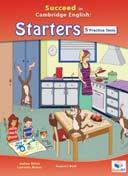





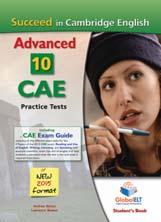


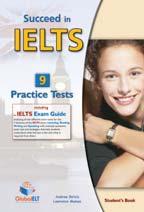
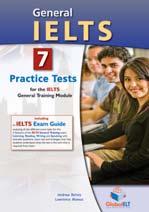


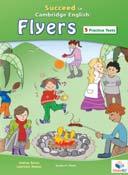

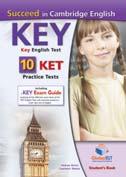


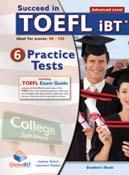



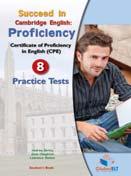










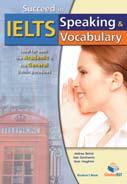
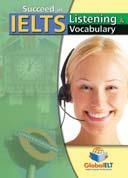




-146-
I NT E R A C T IVE L A NG UA GE F A IR ( c on t i n u e d )
T e a ch in g ES P a t an e c on om ic u n iv e r s i t y : l ook in g f or n e w t e ch n i q ue s E l e n a Ve l i k a y a ( N a t i on a l R e s e ar c h U n i ve r si t y H i gh e r S ch ool of E c on o mi c s )
ESAP
e, t GEN T w i t t e r : h ow t o b e st u s e i t w i t h E n g l is h l e a r n e r s N oh a W a l e e d ( Br i t i s h C ou n c i l )
ie, a LT, RES T e a ch e r s ' an d J ap an e se s t u d en t s ' p e r c ep t i on s of P oc k e t E l e c t r on i c D ic t i on ar i e s ( P E D s ) A n d re w W i mh u r s t ( C h au c e r C ol l e g e C an t e rb u r y )
e, ie, t, a
PET 10 New Format 8 NEW 2015 F ormat NEW 2015 F ormat
2015 Format
● 10 FCE Practice Tests for the
● 10 CAE Tests for the 2015 Format ●
●
Tests IELTS Academic & IELTS General Reading Listening Speaking 9 IELTS Skills IELTS ● 10 TOEIC Tests (Listening & Reading) ● Self-Study Edition with a Self-study Guide with detailed explanations for all the exam items ● 6 Practice Tests for the TOEFL iBT exam ● Self-Study Edition with a Self-study Guide that includes detailed explanations for all the exam items Global ELT BRIGHTON, EAST SUSSEX, UK tel: (01273) 251907 fax: (01273) 688232 email: orders@globalelt.co.uk 10 Practice Tests -146FRIDAY
Writing Supplement with model Compositions ● JUSTIFICATION of the Answers
Progress
Session 3.3 : 1335-1420
King’s B
100 audience Workshop TD
Hall Qa
100 audience Workshop TEA
( T a r ge t T r ain in g )
Part of professional development involves experimenting with our teaching. In this interactive workshop, you’ll first discover how experimental you really are. Then you’ll try out various experimental practice options taken from ExperimentalPracticeinELT:Walk on the Wild Side , published by the round. Finally, you’ll get tips on how to successfully traverse the experimental practice jungle.
Through watching videoed samples of the Subtest Speaking of telc English B2-C1 Dual Level, you will learn about the validity of the test construct of this examination. You'll analyse the role of the examiner and then try out for yourself, in real time, the assessing of candidates' performances following telc's CEFR-referenced marking criteria. We'll end by discussing any differing results.
Hall Qb
100 audience Workshop MD, PRON
Hall Qc
100 audience
Workshop GEN
The presenters apply theoretical concepts to speaking/writing activities for advanced learners. Participants will use lists of already grammatically accurate and orally linked skeletal phrases and verbal stratagems. They role-play students to experience how memorization can be a positive strategy in pronunciation (controlling articulation, speech rate, linking and stress placement) and writing (controlling word form, word choice and word order).
We expect our conversations to be clear, relevant, truthful and informative. But what happens when others upset that expectation? This workshop looks at how, when and why the tacit rules of intercommunication are broken and shares original activities, for both experienced and novice teachers, to help adult learners understand the implications in social and business contexts. e, ie, a
Hall Qd
100 audience Workshop TD, YLT
Hall Qe
100 audience Workshop MD
Creating effective classroom communities is key to a safe and productive learning environment for primary students. This session will help primary teachers to foster positive student collaborative working patterns in English in the classroom. It will take a fresh approach to classroom management. I will share practical activities and models, using both traditional methods and new learning technologies.
In a context where EFL students’ learning experiences emphasize lower order thinking skills, how can teachers develop, modify and use teaching materials that nurture learners’ critical thinking skills? This session will engage the audience in modifying a sample of teaching material that targets developing students' language and critical thinking skills.
AL = Applied Linguistics
BE = Business English
EAP = English for Academic Purposes
ESAP = English for Specific Academic Purposes
ES(O)L=English for Speakers of Other Languages
ESP = English for Specific Purposes
GEN = General
GI = Global Issues
LA = Learner Autonomy
LAM = Leadership & Management
LMCS = Literature, Media & Cultural Studies
LT = Learning Technologies
MaW = Materials Writing
MD = Materials Development
PRON = Pronunciation
RES = Research
TD = Teacher Development
TEA = Testing, Evaluation & Assessment
TTEd = Teacher Training & Education
YLT = Young Learners & Teenagers
-147-
Friday 4 April
P r of e ss i on a l d e v el op me n t in t h e e xp e r i me n t al p r ac t i c e j u n g le C h r is t in a R e b u f f e t - Br o ad u s ( In d e pe n de nt t r ain e r an d t e ac h e r ) & Je n n ie W r igh t
ie, a prod prom
S o y ou w an t t o b e c ome a p e r f e c t or al e x a m i n e r ?
i an a M e t z n e r ( te l c
l an gu a ge t e s t s
D
-
)
ie, t, a
L an g u a ge c h u n ks t h at i mp r ov e s p e ak in g a n d w r it in g M ar ia P ar k e r ( D u ke U n i v e r s it y , U S A ) , C ar s on M a yn ar d ( U n iv e rs i t y o f M i ch ig an , U S A ) , Br e n d
e r
n gl is h L a n g u ag e In st it u t e
n
s it y
a Imb
( E
, U
iv e r
of M ic h ig a n )
e, ie, t, a
in k,
in
–
l a ss r oo m a c t iv it ie s f or in t r od
ir e c t n e s s
u n d t vig
C a mb r id ge E x a m in at i on s C e n t r e Ha mb
g
Nu d ge , n u d ge , w
w
k
c
u c in g in d
A n d re a s Gr
(
u r
)
il d in g c o m mu n it ie s in y ou n g l e ar n e r c l a ss r oo m s: r e d e f in in g c l a s sr o om
t R a c h ae l Jan e L a w s on ( Br it is h C ou n c il , H on g K on g)
Bu
m a n a ge me n
ie, p
C r it i c al t h in k in g an d E F L : t e ac h in g a p e rf e c t bl en d W a l e e d Nu r e l d e e n ( M e n ou f i y a Un iv e r s it y, E gy p t )
e, t
P l e as e n ot e t h a t s ome p r e s en t e r s h av e r e q u e s t ed a m a x i mu m au d ie n c e s ize T h e re f or e , p l e a s e ch e c k t h e a u d ie n ce siz e in t h e l e f t -h an d col u mn of e ac h e n t r y -147-
FRIDAY
Friday 4 April
Session 3.3 : 1335-1420
Hall Qf
1 3 3 5 - 1 6 0 5
200 audience Symposium MaW
S ymp os iu m on C r e at iv it y – f or a ch an g e
C r e at iv it y - f or a c h a n g e
A l an M al e y ( F r e el an ce )
Creativity is much proclaimed but little practised. Teachers suffer from the twin plagues of routine and institutional control. In my presentation, I shall suggest that more creative forms of learning and teaching are possible. I shall focus on constraints, heuristics, improvisation and the random principle as ways of rendering our teaching more creative. e, s, t, a
Ge t t in g ou r s t u d en t s in f l ow : t h e c re a t iv e t e ac h e r ' s u l t ima t e ch al l en ge
C h az P u g l ie s e ( F r e e l a n c e )
We're in a state of flow when we’re so immersed in what we’re doing that we become oblivious to anything and anyone around. But what can a teacher do to promote flow? In this session, we'll analyse a few useful strategies to design activities that are rich, enjoyable and may help the students pay attention and stay focused. e, ie, s, a
h y d
H a n n a K
m a g a z in e )
?
Humanism and other schools of thought considered creativity a vital component of learning and teaching. At present, creativity seems to be less prominent. Has it become obsolete? This talk focuses on reasons for and ways of promoting creativity in EFL in the 21st Century, with reference to Gardner's recent theory of education (Five Minds for the Future). ie
P u t t in g t he h u ma n ce n t re st ag e M ar k A l m on d ( C a n t e r b u r y Ch r ist C h u r c h Un iv e r s it y)
I will talk about how the focus in language classrooms around the world has moved from person-to-person interaction to person-to-screen interaction. I will argue that, though much of the new technology available to teachers is quite staggering in its innovation, more meaningful, richer and creative communication should be going on between the people in the room. e, ie, s, t, a
C r e at iv e r e ad in g in t e a c h e r d e v el op me n t
C h r is L i ma ( U n i v e r s i t y of L e i ce s t e r )
In this talk, I will discuss how integrating the reading of literary and creative material into teacher education and development programmes can give ELT professionals the opportunity to better understand the role of literature in language learning, participate in discussions of relevant issues, engage with different points of view, and develop their own language skills. e, s, t, a
C r e at iv e u se of t h e c ou rs e b ook
Br ian T oml in s on ( A n ah e i m U n iv e rs it y )
I will be demonstrating how teachers can stimulate their learners to be creative by using their coursebooks in creative ways. I will be showing how consciously articulating principles of creativity can generate a menu of creative activities which can help the teacher and the students to come up with ideas for using each coursebook unit in novel ways. e
e = experienced audience p = primary teaching ie = inexperienced audience s = secondary teaching t = tertiary teaching a = adult teaching prod prom = promoting a particular book or product pub = speaker is representing or sponsored by a publisher but is not focussing on a particular book or product
-148-
r e a t i v i t y
n a l a n gu a ge cl
W
o we st il l n e e d c
i
as s
r y
z e
il gr i ms
an gu a
ou r s e s
n g
an gu a ge
g
s
ws k a ( P
L
ge C
, Hu m an i s i
L
T e a ch i n
P LE A SE C H EC K N O T IC E B O A RD S F OR CH A NGE S & CA N CE LLA T I O N S -148FRIDAY
Queen's 1 60 audience Workshop YLT
Queen's 2 68 audience Workshop MaW, TD
Queen's 3 180 audience Workshop TTEd
Queen's 5 110 audience
Workshop
A
Friday 4 April
Session 3.3 : 1335-1420
of
The session will focus on disabled learners who face a big problem in dealing with their teachers in school and with parents at home. It will give a clear idea about who students with learning disabilities are, their signs and the main causes for their disabilities. There will be practical ideas for teachers and parents to deal with them easily.
What competences are required for educational authors and what is it like to develop materials suitable for publication? Come have a look at the organisation and materials of this very practical course for our fourth-year student teachers and familiarise yourself with tasks in the programme by trying them out yourself. Do you have what it takes?
Many student books have audio script at the back, but teachers often make limited use of these. In this workshop, we will be working with a range of activities that use audio scripts. We will see how they can be used for a number of different purposes, and we will identify the pedagogical advantages they offer. ie, s, a
L A S IG D ay D og me i n t h e c l a
This workshop demonstrates ways of effective integration of theatrical performance elements created by teenage and adult students into a General English language course. The participants will try out a number of activities illustrating certain advantages of individual theatre techniques and of a complex syllabus centred around theatre and fully based on students' ideas.
Queen's 7 95 audience Workshop
G IS I G D ay
Queen's 9 20 audience Workshop TD, YLT
The session will focus on ways of exploiting YouTube videos in the classroom. The aim will be to show how clips which raise real world issues can be used to inspire, motivate, encourage reflection and trigger meaningful interaction. We will try out pre- and postviewing activities which involve active exploration and critical thinking. e, ie, s, t
C h al l e n g e d b y th e 21 s t C e
Many teachers feel threatened by today's digital natives, partly because of their lack of IT skills and partly trying to keep up with technology. In this workshop, we will address some challenges teachers face, suggest solutions and discover how British Council Macedonia has assisted YL teachers in overcoming obstacles through the publication Digital resourcesforteachersfromgrade1-5 e, ie, p
AL = Applied Linguistics
BE = Business English
EAP = English for Academic Purposes
ESAP = English for Specific Academic Purposes
ES(O)L=English for Speakers of Other Languages
ESP = English for Specific Purposes
GEN = General
GI = Global Issues
LA = Learner Autonomy
LAM = Leadership & Management
LMCS = Literature, Media & Cultural Studies
LT = Learning Technologies
MaW = Materials Writing
MD = Materials Development
PRON = Pronunciation
RES = Research
TD = Teacher Development
TEA = Testing, Evaluation & Assessment
TTEd = Teacher Training & Education
YLT = Young Learners & Teenagers
-149-
e a rn in g d i s ab il it i e s w h o a r e t h e y
L
?
i s h a S ae e d Al H a sh mi ( E v a l u at i on D e p ar t me n t / M in is t r
y
E d u c at i on )
e, ie, p
E ve r y t e ac h e r a c ou r s e w a re au t h or
l on a M a n d e r s ( H og e s c h o ol va n A r n h e m e n Ni j me g e n
? E
)
ie, s
M ak i n g m a x i mu m u se of a u d i o s c r ip t s P h il i p H a i n e s ( O x f o r d U n i v e r s it y P r e s s , M e x i c o)
ss r oo m: d o i n g d r a m a d e v is e d b y st u d e n ts N a t al i a B e l ou s o v a ( S t u d y an d T r a in in g C e n t r e ' C L A S S ')
e, s, a
W
r M ar g i t S z e sz t a y ( E L T E U n i ve r si t y )
i d e n i n g h or i z on s w i t h Y ou T u b e - wa y s of g o in g d e e pe
n t u r y st u de n t ? S ve t l an a Ne f t e n ov a ( B r i t i sh C ou n c i l )
P l e as e n ot e t h a t s ome p r e s en t e r s h av e r e q u e s t ed a m a x i mu m au d i e n c e s i ze T h e re f or e , p l e a s e ch e c k t h e a u d i e n ce si z e i n t h e l e f t -h an d col u mn of e ac h e n t r y -149FRIDAY
Friday 4 April
Session 3.3 : 1335-1420
Session 3.4 : 1435-1520
Room R
60 audience
Workshop LAM, YLT
This session explores what is meant by transformative leadership and how it can play a role in our classrooms to address many of the key issues and challenges facing us in the world today. It also focuses on the role of citizens’ engagement programs, especially Model United Nations, and how student leaders can make a difference and address the challenges.
1435-1520 Session 3.4
Bramham
90 audience
Workshop YLT
Charter
75 audience
Workshop
L
D ay
Harewood 1
125 audience Workshop
TEA, L L T S I G
D ay
Harewood 2
125 audience Workshop
TD, TTEd
Practical tasks will guide participants through the process of identifying and recreating authentic use of English in lessons, which they can then use in their own lesson planning. Participants will think about activities that engage primary and secondary students before looking at real-life use of English and classroom activities replicating this.
Warhorse or Regeneration? Birdsong or Blackadder? How have novels and films contributed to the construction – or reconstruction – of national memory? Focusing on the gap between the experience of war and its memorialisation, this workshop will exemplify ways in which the classroom can develop critical reading skills and awareness of key cultural concepts.
The flipped classroom is the latest approach that everyone is talking about it – but how can it be used to maximise learning and output for IELTS preparation students? This interactive workshop will explore resources, tools and lessons learned for getting the most out of both classroom time and homework. e, a
This presentation focuses on the critical role that directed reflective practice has in teacher development and how it must provide teachers with practical solutions to classroom issues for it to be meaningful and productive. The presentation will look at how filmed lessons and teacher journals support reflective practice and foster evidence-based reflections.
Newby
30 audience Workshop LAM, TD
Two recent government decrees have addressed enhancing foreign language teaching, learning and assessment in Uzbekistan. The presenters describe the pre-decree situation and the actions taken to achieve the aims of the decrees. Together, we will examine the problems encountered and their causes. Participants will discuss examples of progress in similar situations and possible best practice in such situations.
e = experienced audience
p = primary teaching ie = inexperienced audience s = secondary teaching t = tertiary teaching a = adult teaching
prod prom = promoting a particular book or product
pub = speaker is representing or sponsored by a publisher but is not focussing on a particular book or product
-150-
E mp ow e r i n g s t u d e n t l e ad e rs h i p Ib r a h i m K h al il ( S t u d e n t s P a r ad is e Se c on d ar y S ch ool ) & M on a M a jz ou b ( Hou s s a m E d d i n e Ha r ir i H ig h S c h o ol , L e b a n on )
e, s
A u t he nt i c E n g l i sh in t h e Y L cl as s r oo m Ge or g in a M i d d l et on ( Br it is h C ou n c i l , C ol omb o , S r i L a n k a )
e, ie, p, s, a
M C S S IG
R e me mb r a n c e a n d me mo r i a l s : c on s t r u c t i n g c u l t u r a l me m or y A l an P u l v e rn e s s ( NIL E )
e, s, a
F l i p p i n ' IE
T S N i c ol a C r ow l e y ( Br i t i s h C ou n c il )
L
R e f l e c t i v e p r a ct ic e : i t ' s a m a t t e r of a sk in g q u e s t i on s L e s l e y P a i n t e r- F ar r e l l ( Ne w S c h o ol Un i v e r si t y )
e,
ie
T h e C E F R i n U z b e k i s t an : d e v e l op i n g a n e w l a n g u a ge c u r r i cu l u m L e s l i e K ir k h a m ( F r e e l an c e ) & F e r u z a R a s h i d o v a ( U z b e k i s t a n S t at e U n i v e r s i t y o f W or l d L an g u a ge s)
e, p, s, t, a
P LE A SE C H EC K N O T IC E B O A RD S F OR CH A NGE S & CA N CE LLA T I O N S -150FRIDAY
Friday 4 April
Session 3.4 :
1435-1520
Ripley 160 audience Workshop
EAP, E E S P S I G D ay
Studley 30 audience Workshop GEN
There are many roles and competences for EAP teachers and students. For example, as critical thinkers they need to reflect on and challenge how spoken and written information is presented. This workshop considers EAP as a research-informed practice and offers frameworks for teaching and learning EAP, drawn from the new teacher’s methodology book EnglishforAcademicPurposes(OUP).
Do your students find reading activities too easy, difficult or boring in class? This interactive workshop will look at how you can exploit reading passages in your course book in order to introduce and/or practise a number of reading strategies. These strategies will help make reading more engaging for your students while catering to different learning styles.
Auditorium 570 audience Workshop GEN T h e p ic t u r e an d t h e st or y P a u l D
ie, a
)
The narrative and the image are powerful tools in learning, both for engaging students’ interest and for making learning memorable. Partly inspired by my work on LIFE(National Geographic Learning 2013), this workshop presents practical ideas for combining stories and images to create motivating, effective activities that develop fluency and accuracy, teach vocabulary and recycle language.
King’s A 1 3 3 5 - 1 5 3 5 I NT E R
King’s B
100 audience Workshop GEN
Hall Qa
100 audience Workshop TEA
Hall Qb
100 audience Workshop AL
This session starts at 1335 (in session 3.3). See pages 143-146 for details.
This is a practical workshop. Taking a picture as a starting point, I’ll look at various classroom activities for which it can be used, beyond the obvious ones of description and oral fluency. I’ll focus particularly on using it for work on intonation and stress, but will also look at areas such as spoken discourse.
ie, p, s, a
Have you ever written a test question that didn't perform the way you expected? This presentation will cover the key factors to consider when developing test items: what to test; how to test it; and how to assess the result. We’ll review common mistakes in item writing and discuss how test results can inform learning. ie, s, a
In this workshop, I draw on my own empirical research and classroom experience to explore the mysterious behaviour of idioms in the context of English as a lingua franca. Idiomaticity’ is important because it is central to mother-tongue fluency and because it is tested! But is there a role for idioms in ELF and, if so, what is it?
AL = Applied Linguistics
BE = Business English
EAP = English for Academic Purposes
ESAP = English for Specific Academic Purposes
ES(O)L=English for Speakers of Other Languages
ESP = English for Specific Purposes
GEN = General
GI = Global Issues
LA = Learner Autonomy
LAM = Leadership & Management
LMCS = Literature, Media & Cultural Studies
LT = Learning Technologies
MaW = Materials Writing
MD = Materials Development
PRON = Pronunciation
RES = Research
TD = Teacher Development
TEA = Testing, Evaluation & Assessment
TTEd = Teacher Training & Education
YLT = Young Learners & Teenagers
-151-
T e a ch in g an d l e a rn in g EA P : d e ve l op i n g r ol e s , d e fi n i n g c omp e t e n c e s , s h a ri n g p r ac t i c e s E d wa r d d e C h a za l ( In d e p e nd e n t )
e, t prod prom
R e ad in g i n t o re ad in g C a r ol i n e C a me r on ( Br it i s h C ou n c i l Q a t ar )
ie,
s, t, a
u mme t t (
e
mp l oy e d
an d t r
S
l f -e
E L T a u t h or
a in e r
e,
T I V E
E F A I R
A C
L A NG U A G
m a l m at e r i al K a
v a n s ( L e e d s M e t r op ol i t an U n i v e r s i t y
M ak i n g t h e mos t of m i n i
t e E
)
e,
K e y p r in ci p l e s f or w r i t i n g E n g l i s h l a n g u ag e p r o f i c ie n c y t e s t q u e s t i on s
i
r a n d a l l ( E d u c at i on a l T e st in g S e r v i c e ( E T S )
M ar
an C
)
I d i om s i n t h e c l as s r o om a n d i n E L F L u k e P r od r om ou ( E L I P u b l is h i n g )
e, s, a pub
P l e as e n ot e t h a t s ome p r e s en t e r s h av e r e q u e s t ed a m a x i mu m au d i e n c e s i ze T h e re f or e , p l e a s e ch e c k t h e a u d i e n ce si z e i n t h e l e f t -h an d col u mn of e ac h e n t r y . -151FRIDAY
Friday 4 April
Session 3.4 : 1435-1520
Hall Qc
100 audience Workshop YLT
Hall Qd
100 audience Workshop LAM, TD
Bu il d in g t r u s t , c on f id e n c e a n d be l on g in g in t h e c l as sr o om U n p l u gg e d
D a v i d G i b s on ( R e t i re d )
In this workshop, we consider the ways in which students might fail in the classroom, through not having a real sense of belonging and being reluctant to participate in activities. Solutions are explored in the form of simple steps teachers can take with a little thought, the minimum of effort - and no gadgets. e, p, s, a
C h an ge : t e a c h e r s h a t e it ; ma n a ge r s f e ar it T r u e or f a l s e ?
L or a in e K e n n ed y ( P e r ip a t e t ic )
We know the adage 'change is constant'. Managers complain about resistant teachers; teachers say 'We've seen it all before' or 'What's the point?' Are viewpoints on change really so polarised? This workshop aims to appeal to both teachers and managers, to review perspectives and crucial factors that underpin successful change, for individual and organisational development.
Hall Qe
100 audience Workshop LT, YLT
Hall Qf
1 3 3 5 - 1 6 0 5
Queen's 1 60 audience Workshop GEN
E xp l oit in g v i d e o in t h e l a n g u a ge c l
D a v i d
It should be a motivating experience, a prize or an end of term treat, but all too often the use of video in the classroom has the opposite effect. In this workshop we look at some different ways to incorporate video in the classroom, in a fun and motivating way.
S ymp os iu m on C r e at i v i t y – f or a ch an g e
This session starts at 1335 (in session 3.3). See page 148 for details.
This workshop focuses on different ways of exploiting two often neglected teaching strategies - shadowing and paraphasing - which, isolated or combined, can foster better quality oral expression in EFL. The activities proposed will not only raise students’ awareness of prosodic features of discourse and different possibilities of re-expressing sense, but also help them refine their oral communication skills. e, a
Queen's 2 68 audience
Workshop
TD, TTEd
Queen's 3 180 audience
Workshop
BE, MaW
As teachers, we often know what kind of teacher we want to be and what kind we don’t want to be. Most teachers receive regular observations with feedback from supervisors, peers or others with ways to improve. This workshop will help participants see for themselves what kind of teacher they are, thus learning to develop strengths and improve weaknesses. e, ie
Teachers are often expected to create supplementary activities to offer additional practice, reinforce vocabulary or provide impetus for discussion. For those who are uncertain as to how to start, this can be a daunting task. This interactive workshop will take you through the steps of putting together tailor-made and engaging activities for your lessons, using examples from ProfessionalEnglishOnline
experienced audience p
teaching prod prom
promoting a particular book or product pub = speaker is representing or sponsored by a publisher but is not focussing on a particular book or product
-152-
e,
ie
a s s r oo m
Br a d s h a w ( C ol e gi o A l a me d a d e O su n a
)
e, ie, s, a
S
a r ap
a
e
on e
h a n c e
h ad ow i n g a n d p
h r as i n g f or or
l
x p r e ss i
n
me n t i n E F L Gl or i a R L S a mp a io ( C a t h ol ic U n iv e r s it y of S a o P a u l o)
M ir r or on t h e wa l l , w h o ’ s t h e b e s t t e ac h e r of a l l ? T h
a
W o od ( K i n g F a is a l U n i v e r si t y , E as t e r n P r o v in c e , S au d i A r a b i a )
o m
s
H o w t o wr i t e b u s in e s s E n gl i s h ac t i v i t i e s M ar j or i e R os e n b e rg ( U n i v e r s i t y o f G r a z )
ie, a pub
ie =
=
t =
a =
PL EA SE C HEC K N OT I CE B OA R DS F OR C H A NG E S & C A N C E L LA TI ON S -152FRIDAY
e =
= primary teaching
inexperienced audience s
secondary teaching
tertiary teaching
adult
=
Queen's 5 110 audience
Workshop L A S IG D ay
Queen's 7 95 audience
Workshop
G IS IG D ay
Do you involve your students in assessing their own progress or is that your job? What might result if you did actively involve them? Might they be more engaged in their learning and measurably improve their rate of progress? This practical workshop offers starting points and explores assessment for learning bottom up.
Through a series of hands-on activities based on Helbling Young Readers series, we'll explore some of the underlying values and how to expand their scope turning them into something meaningful for primary school children. Variations of traditional games, like bingo, noughts and crosses and role plays will also help teachers realise the full potential of readers when working with values.
Queen's 9 25 audience Workshop AL, TD
Room R
60 audience Workshop GEN
The significance of this session lies in helping to plan and design a more appropriate and effective programme and evaluate the teaching knowledge of pre-service teachers. It aims to find out the challenges in training pre-service teachers of English. It's clear from student-teachers' answers in the needs analysis how Yemeni teachers of English suffer and face many challenges in ELT.
“I’ve studied English for years, but I can’t understand anyone!” This was a common complaint from my students on arrival in the UK. This workshop introduces you to practical activities and materials you can use to help students transition from understanding scripted listening materials to feeling comfortable with real-world English.
1535-1605
Bramham
90 audience Talk
TTEd
Session 3.5
ELT resources are freely available on the internet. This practical talk showcases how British Council staff across the Middle East/North Africa region have exploited some key resources, available in support of both language teaching and teacher training. ELT teachers and managers alike are invited to benefit from our innovative classroom (and staffroom) practice. e, ie, p,
Charter
I have done six films and numerous school plays with my students. It sounds complicated and time-consuming, but it really does not have to be. The one thing that you must have is creativity of your students - so encourage it. Once you boost their confidence to perform, they will be ready to accomplish amazing projects.
AL = Applied Linguistics
BE = Business English
EAP = English for Academic Purposes
ESAP = English for Specific Academic Purposes
ES(O)L=English for Speakers of Other Languages
ESP = English for Specific Purposes
GEN = General
GI = Global Issues
LA = Learner Autonomy
LAM = Leadership & Management
LMCS = Literature, Media & Cultural Studies
LT = Learning Technologies
MaW = Materials Writing
MD = Materials Development
PRON = Pronunciation
RES = Research
TD = Teacher Development
TEA = Testing, Evaluation & Assessment
TTEd = Teacher Training & Education
YLT = Young Learners & Teenagers
-153-
Session 3.4 : 1435-1520 Session 3.5
1535-1605
Friday 4 April
:
F ac i l i t a t i n g s t u d e n t p r og r e s s a n d a ss e s s me n t f or l e a rn i n g: t h e t e a ch e r ’ s p e r s pe c t i v e V i c R i ch ar d s on ( C a mb r id ge , U K )
e, ie, a
Be y on d s t or y - t h e p e d a g og i ca l a n d s oc i al p ot e n t ia l of s t or i e s R i c k S a m p e d r o ( He l b l i n g L a n g u a g e s / E d u ca t i on f or a C h an g e )
e, ie, p prod prom
E L T - r e l at e d ch a l l e n g e s i n t ra in in g p r e -s e rv i c e t e ac h e r s M u s a Gh a l e b ( K h a l i d Bi n A l -w a l e e d S c h o ol )
e, s
S t e p p i n g i n t o t h e r e a l w or l d : t r a n s i t i on i n g l i st e n i n g S an d y M il l i n ( In t e r n a t i on al H ou s e S e v a s t op ol )
e, ie, t, a
M ak i n g t h e mos t of i n n ov a t i v e Br i t i s h C ou n c il / IA T E F L re sou r c e s J a me s O' Ne il l ( Br it i s h C ou n c il )
a
75 audience
L L M C S S I G D a y R E GE NT S C HO L A R S H IP W I N NE R Bu il d i n g u p am a z in g p r o je ct s t h r ou gh c r e a t i ve l e a r n i n g B i l j a n a D e d i c ( Be l g r ad e , S e r b i a )
Talk YLT,
e, p
P l e as e n ot e t h a t s ome p r e s en t e r s h av e r e q u e s t ed a m a x i mu m au d i e n c e s i ze T h e re f or e , p l e a s e ch e c k t h e a u d i e n ce si z e i n t h e l e f t -h an d col u mn of e ac h e n t r y -153FRIDAY
Friday 4 April
Session 3.5 : 1535-1605
Harewood 1
125 audience
Talk
TTEd, L L T S I G
D ay
Harewood 2
125 audience
Plenary follow-up session
Newby
30 audience
Talk
TD, TTEd
This talk will show a classroom experience based on personal narrative and digital storytelling in an initial teacher training program. The purpose of this experience is to enhance technological literacy and digital competence in student teachers, as well as to reflect on the role of personal narratives as a student-oriented pedagogical tool.
If you attended Michael Hoey’s plenary session this morning on “Old approaches, new perspectives: the implications of a corpus linguistic theory for learning the English language”, you are welcome to attend this related session. This will allow participants to ask any questions or address any issues that have been raised by Michael’s plenary talk.
After numerous weaknesses were found in the daily teaching of English in a number of Dutch secondary schools, a research project was initiated to expose these flaws and finds means for improvement. Then pilots within these schools were started to see how recommendations can find their way into the classrooms. In this talk I will share my experiences. e, s, t
Ripley
160 audience
Talk
EAP, E E S P S I G
D ay
Studley
30 audience
Talk
TD, YLT
This talk will report on the benefits of using online self presentation tools Present.Me , myBrainshark, etc.) for gains in fluency and for assessment of EAP. We will also reflect on how to include speaking exercises that are natural and communicative, which at the same time ensure non-boring repetition.
They come to you after school hot, tired ... anything but inspired. Teaching teenagers is a complex, challenging but rewarding process. This session introduces an approach which combines psychological and pedagogical factors designed to engage and build skills, selfconfidence, identity, ownership and innovation. The presentation will outline the flexible role teachers must adopt in order to guide the students to reach their potential. e, s
Auditorium
570 audience
Talk
LAM, TD F in d i n g ou t a b ou t t e ac h i
'Accreditation UK' is a quality assurance scheme for ELT providers in the UK. One of the areas evaluated is 'Teaching and Learning' and inspectors visit classrooms to see if the teaching meets the requirements of the scheme. But can an inspector judge teaching on a 20-minute visit? Can you 'see' good (or not so good) teaching?
King’s B
100 audience
Talk
TD, TTEd
This talk will focus on issues raised by trainees and trainers about the challenges of giving feedback on teacher training courses. Where trainees are expected to comment on their own and their peers' teaching, there are often difficulties around the trainees' ability and willingness to take part effectively. Strategies will be suggested that could enhance trainee contributions.
e = experienced audience
p = primary teaching ie = inexperienced audience s = secondary teaching t = tertiary teaching a = adult teaching prod prom = promoting a particular book or product pub = speaker is representing or sponsored by a publisher but is not focussing on a particular book or product
-154-
IA T E F L L E A R N IN G T E C H N O L O G I E S S I G D IA NA E A S T M E N T S C HO L A R S H IP W IN NE R D i g i t a l s t or yt e l l i n g : t h e p ow e r of p e r son a l n a r r a t i v e i n IT T A n gi e Q u i n t an il l a ( U n i v e r s id ad S an S e b a st i a n , C on ce p c i o n , C h i l e )
ie, s, t
Q u e s t i on & an s w e r s e s s i on r e l a t i n g t o M i c h ae l H oe y ’ s p l en a r y s e s s i on
Ne w i n s i g h t s f r om l an g u a g e r e se ar c h ? L e t ’ s in f or m t h e c l a ss r oo m!
oh
W i j k ( D r i e s t a r U n i v e r s i t y f or T e a ch e r E d u ca t i o n )
J
an V an
P r a c t i ce ma k e s p e r f e ct : d e s ig n i n g r e p e t it i on i n t o t h e sp ea k i n g a c t i vi t y T il l y H ar r i s on ( U n i v e r s i t y of W a r w i c k )
a
M y v oi c e my ch oi ce : t e e n s, c r e at iv e f r e e d om a n d c on t r ol K a al Ka c z m a r e k ( Br it is h C ou n c i l P a r i s )
n g K e it h M or r o w ( C on su l t a n t ) & E l iz a b e t h M c L a r e n ( Br i t i s h C ou n c il )
e, a prod prom
T r a i n e e as i mp os t or : c h al l e ng e s of t r a i n e e s ’ s e l f - e v a l u a t i on of t h e i r t e a c h i n g
o- A n n D e l an e y ( C a n t e rb u r y C h r i st C h u r c h U n i v e r s i t y)
J
e, a
P L EA SE C HEC K N O T I CE B OA R DS F O R C H A NG E S & C A N C E L LA TI ON S -154FRIDAY
Hall Qa
100 audience
Talk BE
Hall Qb
100 audience
Talk BE, TEA
Friday 4 April
Session 3.5 : 1535-1605
W or k i n g v ir t u al l y : s k i l l s a n d c on f i d e n ce - bu i l d i n g f or m od e r n in t e r n at i on al
c ommu n i c a t i on
J ac k ie Bl a c k ( Y or k A s s o ci at e s )
How can we help our learners to communicate better in an international business environment? Working Virtually, part of the International Management English series published by Delta/York Associates, addresses this question in a practical and taskfocused way. In this talk, the authors will give an overview of the book's content and how to get the most out of it. e, a prod prom
T op t ip s f or su cc e ss on t h e T O E IC t e s t
M il e s C r av e n ( C a mb r id ge )
This presentation explores ways to maximize scores for students taking the TOEIC test. I will highlight the language skills and test-taking strategies required for students to succeed. I will demonstrate what exactly the TOEIC test is 'testing' and how teachers can best help their students to perform to their full potential. Examples will be taken from PasstheTOEICTest e, ie, s, t, a prod prom
Hall Qc
100 audience
Talk RES, TTEd W h at i s t h e n at u re of r ap p or
Ga r y H i ck s ( U n i ve r sit y of Br i gh t on )
A common requirement in the EFL industry is for teacher trainers to assess ‘rapport’ during teaching practice. There is no agreed understanding of what constitutes rapport or of how it is recognised and articulated. A study investigated how a group of experienced UK-based EFL/ESOL teacher trainers articulate their assessment of rapport in the context of assessing English language teachers undergoing diploma-level ‘training’.
Hall Qd
100 audience
Talk TEA, YLT
Hall Qe
100 audience
Talk TD, TTEd
Qf
A n g e l a W r i g h t ( C a m b
Giving children a positive experience of testing is a critical way in which to have a motivating impact on their future learning. This talk will address the changing needs of young learners of English and will focus on how Cambridge English: Young Learners exams continue to be developed to meet these needs, whilst still ensuring they have positive educational benefits.
ie, p prod prom
There's a general consensus on the many benefits of observation. It is well known and discussed in training sessions, books and forums. So why are many teachers still resistant or threatened by it? In this session, I will share a program and forms developed after research, trial and error, trying to overcome resistance and make observation truly effective for teacher development. e,
This session starts at 1335 (in session 3.3). See page 148 for details.
AL = Applied Linguistics
BE = Business English
EAP = English for Academic Purposes
ESAP = English for Specific Academic Purposes
ES(O)L=English for Speakers of Other Languages
ESP = English for Specific Purposes
GEN = General
GI = Global Issues
LA = Learner Autonomy
LAM = Leadership & Management
LMCS = Literature, Media & Cultural Studies
LT = Learning Technologies
MaW = Materials Writing
MD = Materials Development
PRON = Pronunciation
RES = Research
TD = Teacher Development
TEA = Testing, Evaluation & Assessment
TTEd = Teacher Training & Education
YLT = Young Learners & Teenagers
-155-
t i n c l a s s r oo m as se ss me n t
?
e, ie
Y
rn e r s : m ov i
g w i t h t h e t
me s
r i d g e E n g l i sh )
ou n g l e a
n
i
e,
M ak i
g l e ss on ob s e r v a t i on a t e a ch e r ’ s b e s t f r i en d , n ot t he e ne my C e c il i a L e m o s ( A BA - A s s oc i a c a o Br a s i l A me r i c a )
n
ie, p, s, t, a Hall
1 3 3 5 - 1 6 0 5 S
os iu m on C r e at i v i t y – f or a ch an g e
ymp
P l e as e n ot e t h a t s ome p r e s en t e r s h av e r e q u e s t ed a m a x i mu m au d i e n c e s i ze . T h e re f or e , p l e a s e ch e c k t h e a u d i e n ce si z e i n t h e l e f t -h an d col u mn of e ac h e n t r y -155FRIDAY
Friday 4 April
Session 3.5 : 1535-1605
Queen's 1
60 audience
Talk
AL, PRON
Queen's 2
68 audience
Workshop
EAP, MD
This presentation will discuss the aims of a action research project with novice English teachers in Australia, in which voice coaching and kinaesthetic techniques are used as an alternative to ‘listen and repeat’ approaches. This research-informed talk will interest teachers wishing to learn about how theory and practice can inform each other and to improve their teaching of spoken English.
In this workshop, the presenter will lead the participants towards an understanding of the components of critical thinking, and how they relate to teachers' questions, classroom management and class activities. Participants will complete a variety of individual, pair and group activities to recognize and practise the application of critical thinking processes across all language skills. ie,
Queen's 3
180 audience
Talk YLT
Increasing numbers of primary and secondary school teachers teach a second or foreign language while also teaching curriculum content. This may be CLIL, immersion, or other approaches to content-based language teaching. In this presentation, I will consider how teachers can ensure that students learn language and content, using examples from the new OUP title FocusonContent-BasedLanguageTeaching . e, ie, p, s prod prom
Queen's 5 110 audience
Talk
L A S IG D ay P or t f ol i o s i n t h e E F L c l a s sr o om - t h e r ou t e
In today’s economic climate, maintaining student motivation carries increasing importance. Students are frequently frustrated if they cannot see their progress in English. This talk outlines a British Council project where simplified portfolios were piloted. It focuses on the problem of content, time and student/teacher commitment. It presents a fresh approach to charting learning, easily adaptable to any EFL environment. e, a
Queen's 7 95 audience
Talk
G IS IG D ay
Queen's 9
25 audience
Talk
LAM, TD
Room R
h ors t e n M
In an increasingly hypervisualized world, where images circulate around the globe with ease, learners must be able to critically decode the globally relevant meanings that lie beneath the visual surface of images. In my talk, I will demonstrate how this new challenge for global education can be met when teachers apply a visual literacy framework infused by a global lens.
a z il )
This practical session reports on a unique teacher training blended programme designed and carried out for secondary and tertiary level teachers of 29 technical colleges in 23 Brazilian states. Participants will have the opportunity to consider the various stages and components of the project, discuss its strengths and weakness and reflect on the lessons learned in the process.
This talk presents results of a study into the changes in writing assessment and teaching practices after the introduction of a national standardized school-leaving exam. By means of teacher and student questionnaire data and task analyses, the washback effect of this exam reform on the language classrooms will be illustrated.
e = experienced audience p = primary teaching ie = inexperienced audience s = secondary teaching t = tertiary teaching a = adult teaching prod prom = promoting a particular book or product pub = speaker is representing or sponsored by a publisher but is not focussing on a particular book or product
-156-
U s i n g p a r t i c ip at or y a c t i on r e se ar c h t o e mp owe r t e a ch e r s t o t e ac h p r on u n c ia t i on A r i z i o S w e e t in g ( T h e U n i v e r s i t y of t h e S u n s h i n e C oas t )
e, ie, a
O p e n i n g min d s : c r it i c a l t h i n k i n g a ct i v i t i e s f or a c a d e m ic s u c ce ss He l e n Hu n tl e y ( C a l i f or n i a S t at e U n i v e r s i t y , S an Be r n a r d i n o)
t
L e a r n i n g l an g u a ge a n d l e a r n i n g c on t e n t th r ou g h l a n gu ag e P a t s y M L igh t b ow n ( C on c ord ia U n ive r s it y , M on t r e a l [ e me r it u s ]
)
t o p r og re s s?
A n n a W r igh t ( Br it i sh C ou n cil V al e n c i a)
a t i on me e t s v i s u a l l it e r a cy
r e
in g gl ob al
Gl ob al e d u c
:
ad
i m ag e s cr i t i c al l y
i v e r s
T
e rs e ( M ue n s te r U n
i t y , Ge r ma n y )
e,
ie, s
T r a in in g s t a t e s c h ool t e a ch e r s a c r os s Br az il : a c a s e s t u d y F e r n a n d o Gu a r a n y Ju n i or ( B r i t i s h C ou n ci l Br
e, a
In v e s t i g at i n g an e xa m re f or m ’ s i mp a c t on t e a c h i n g a n d a s s e s s me n t p r ac t i c e s Be n j a m i n K r e m me l ( U n iv e r s i t y of In n s b r u ck , A u st ri a )
60 audience Talk TEA
e, ie, s
PL EA SE C HEC K N OT I CE B OA R DS F OR C H A NG E S & C A N C E L LA TI ON S -156FRIDAY
Session 3.6 : 1640-1710
1605-1640
Coffee break
Exhibition hall A complimentary tea/coffee is available at the catering points in the exhibition hall.
1640-1710 Session 3.6
Bramham
90 audience
Talk
GEN
Charter
75 audience
Talk
L M C S S I G
D ay
Harewood 1
125 audience
Talk
RES, L L T S I G
D ay
Harewood 2
125 audience
Talk
This presentation will discuss ELT in Libya’s higher vocational and university level sectors and look at how they are likely to develop during the next five years. It will also comment on the British Council’s work with each sector and highlight potential future opportunities for other organisations to support ELT at tertiary level in Libya.
Through the experience of establishing an extensive reading (ER) library within the Personal Study Programme (PSP) at International House Newcastle, this talk will reflect on how we can use ER to promote and support learner autonomy as a whole. It will discuss the practicalities and pitfalls of such an approach and review experimentation with a reading-aloud group.
On l i n e t ool s f or a n al y sin g l e x i s, gr a m m ar an d d i sc ou r s e in t e
ie, a
New online tools now offer powerful means for teachers, learners, researchers, editors and exam boards to analyse the lexical, grammatical and discourse composition of texts. This talk reviews tools such as LexTutor, CohMetrix and a new tool called TextInspector, to identify and demonstrate potential benefits and pitfalls for a range of users, in research and the classroom. e, p, s, t
MaW H
L u c y P a l me r ( T
Newby 35 audience
Talk TD
on Teachit ELT
As teachers, you know best what works with your students. That’s why all the resources on Teachit ELT are made by teachers and why the editors, myself included, are teachers too. Find out how you can share your resources on the site, what we’re looking for, how to maximise your chances of getting published, and what you receive in return.
This presentation will focus on the use of pictures and sketches for improved classroom interaction. I will show ways of using pictures for building an objective, reproducible methodology for measurement of content, ideas and flow of thoughts. I will share details of a case study which was implemented in our prep program at Istanbul Sehir University.
AL = Applied Linguistics
BE = Business English
EAP = English for Academic Purposes
ESAP = English for Specific Academic Purposes
ES(O)L=English for Speakers of Other Languages
ESP = English for Specific Purposes
GEN = General
GI = Global Issues
LA = Learner Autonomy
LAM = Leadership & Management
LMCS = Literature, Media & Cultural Studies
LT = Learning Technologies
MaW = Materials Writing
MD = Materials Development
PRON = Pronunciation
RES = Research
TD = Teacher Development
TEA = Testing, Evaluation & Assessment
TTEd = Teacher Training & Education
YLT = Young Learners & Teenagers
-157-
Friday 4 April
E L T a t t e r t ia r y l e v e l in L i b y a : cu rr e n t a n d f ut u re de ve l opme n t s B e n G r ay ( B r i t i sh C ou n ci l , L i b y a )
e, ie, t
R e ad in g f or p l e as u r e : a p at h t o l e a rn e r au t on omy ? A my B r ow n ( I n t e r n a t i on al H ou s e Ne w c a st l e )
e,
x t s
i v e r s
S t e p h e n B a x ( C R E L L A , U n
i t y of B e d f or d s h i r e )
w t o g e t y ou r t e ac h i n g r e s ou r c e s p u b l i sh e d
o
ac h i t
e
( U K ) L t d )
e,
ie, p, s, t, a prod prom
P i c t u r e s a n d s k e t c h e s: f or e n h a n c e d c l a s sr o om e n g a g e me n t a n d e xp an d i n g i d e as P r a j j w al Ra i ( I s t a n b u l S e h i r Un i ve r s i t y
)
e, ie, s, t, a
P l e as e n ot e t h a t s ome p r e s en t e r s h av e r e q ue s t ed a m a x i mu m au d i e n c e s i ze T h e re f or e , p l e a s e ch e c k t h e a u d i e n ce si z e i n t h e l e f t -h an d col u mn of e ac h e n t r y . -157-
FRIDAY
Friday 4 April
Session 3.6 : 1640-1710
Ripley
160 audience
Talk
EAP, E ES P S IG
D ay
Studley
30 audience
Talk
TTEd, YLT
This is a preliminary investigation for an ongoing study which attempts to investigate Omani engineering students' EAP workplace needs. This presentation offers some important theoretical and practical aspects in needs analysis. The presenter will review needs analysis approaches and report preliminary findings. The audience will be involved in discussing the offered findings, recommendations and the proposed multidimensional needs analysis framework.
Diffidence has proven to be a strong hindrance to spoken communication for young adults in Kerala. Linguistic knowledge remains subdued due to the lack of confidence in applying it for practical purposes. Experience with the ASAP project of Kerala Government, and the ACCESS programme of the US Embassy, sheds insights into developing a model of ELT that attempts to contain this hurdle.
What tools do teachers currently have at their fingertips to be able to objectively and accurately measure a student’s level of English? How can teachers identify what they need to focus on in order to help students make progress? How can they test their students again using the same standard assessment to see the impact of their teaching on students’ progression?
Currently, teachers often use self-prepared tests that they need to create and grade themselves, which is very time intensive and difficult to replicate. The alternative is to use practice tests from internationally recognised tests which are not self-scoring, or for students to take high-stakes tests, which is not a cost-effective solution to use solely as a progress measure, or informative about remediation.
In this session, D D av id H il l , item writer for Progress, Pearson’s new and innovative all skills test, and A A n t on i a C l ar e , author of Speakout , will discuss the merits of using an automated testing tool like Progress to objectively and accurately assess students’ competence and progress across a given course. They will look at how teachers can use the results from this test and apply them in a classroom setting with a coursebook to inform teaching and learning and improve learning outcomes.

King’s A 240 audience
Talk
TD, TTEd
Frames are activity organizers that allow trainers to incorporate different contents. In this talk, we will explore a series of frames useful for input, processing and assessment of teacher learning, as well as for developing professional knowledge and skills. These frames have been classroom-tested and proved useful with pre-service and in-service audiences. e,
King’s B
100 audience
Talk
TTEd A r a l l yin g cr y f or C L IL J ac q u e l in e D ou gl as ( In t e r n at ion a l H ou se L on d on )
CLIL is currently a force for change, but as a trainer, I wonder about its future. I've listened to many CLIL teachers and, hearing the potent mix of confusion and fear commonly felt, I see brave pioneers lacking support. This session invites current and future CLIL teachers, and trainers like me, to explore what might help CLIL succeed.
e = experienced audience p = primary teaching ie = inexperienced audience s = secondary teaching t = tertiary teaching a = adult teaching prod prom = promoting a particular book or product pub = speaker is representing or sponsored by a publisher but is not focussing on a particular book or product
-158-
R e vis it in g E A P t o me e t l a n gu ag e n e ed s of O m an i e n gin e e r in g s t u d en t s H ol i A l i ( R u s t a q C ol l e ge of A p pl ie d Sc ie n c e s , O m a n )
e, t
D if f id e n ce a s a c o m mu n ic at ion b a r r ie r a m on g y ou n g a d u l t s in K e ra l a C h r is t u d a s A ma l a L al ( Sc h ool of D is t a n c e E d u c at i on , U n i v e rs i t y of K e r al a)
ie, t
P E A R SO N S I G NA T U R E E V E N T T e s t T e ac h T e st
Auditorium 16 40- 18 10 570 audience Signature event
F ra me s f or t e a ch in g t e ac h e r s Ga b r ie l D ia z M a g g iol i ( T h e N e w Sc h ool Un i v e r s it y)
ie, t, a
e, s
PL EA SE C HEC K N OT I CE B OA R DS F OR CH A NG E S & CA N CE L LA TI ON S -158FRIDAY
Hall Qa
100 audience
Talk GEN
Hall Qb
100 audience
Talk LAM, TD
Hall Qc
100 audience
Talk AL
Hall Qd
100 audience
Talk
TD, TTEd
Hall Qe
100 audience
Talk
TTEd, YLT
Hall Qf
200 audience
Talk TD
Session 3.6 : 1640-1710
In this presentation, we'll discuss the current situation in ELT in Burma in the context of the changes taking place in the country. We'll explain specific programmes which we've developed to meet the need for ELT education, and the impact of those programmes on teachers' performance in the classroom. We'll also describe some of our own professional learning during this process.
The European Profiling Grid enables teachers to assess, quickly and conveniently, their own competences across a range of categories. It can also be used by managers and trainers of teachers who are concerned about their professional and career development. This talk will outline the features of the Grid, including its electronic version, and the ways it can be used.
How many words are there in English? How many words do learners need to know (and how much do they need to know about any individual word)? What are the key criteria in setting priorities for learners’ vocabulary acquisition? Participants in this session will engage in a variety of activities designed to help us answer these questions.
Personalisation happens when activities allow students to use language to express their own ideas, feelings, preferences and opinions. However, what about teachers communicating real information about themselves too? One way of achieving this is with anecdotes, the focus of this workshop. The reasons for personalising your teaching in place of, or to supplement, the coursebook will also be considered. e, a
B r i n g in g c r i
V an e s s a E
s ( P or t o, P or t u ga l )
This session will look at the importance of 21st Century skills and critical thinking in the young learner/teen classroom. A number of practical activities will be presented, which will get your children thinking while they learn English. So, be sure to bring your student and teacher hats along for stories, games and of course ... critical thinking!
In early 2014, Oxford Teachers’ Academy (OUP) launched its first online courses. This session will focus on the solutions that we devised in response to three challenges: the need for a media-rich learning experience; opportunities for experimentation and reflection; and quality-driven endorsement. It will also report on how the first courses have been received by teachers, and lessons learned. e, a prod
AL = Applied Linguistics
BE = Business English
EAP = English for Academic Purposes
ESAP = English for Specific Academic Purposes
ES(O)L=English for Speakers of Other Languages
ESP = English for Specific Purposes
GEN = General
)
GI = Global Issues
LA = Learner Autonomy
LAM = Leadership & Management
LMCS = Literature, Media & Cultural Studies
LT = Learning Technologies
MaW = Materials Writing
MD = Materials Development
PRON = Pronunciation
RES = Research
TD = Teacher Development
TEA = Testing, Evaluation & Assessment
TTEd = Teacher Training & Education
YLT = Young Learners & Teenagers
-159-
Friday 4 April
H O R N B Y T R U S T A L U M N U S L e a d i n g t e a ch e r d e ve l op me n t p r ogr a m me s i n Bu r m a M ay M ay W i n & T a r a S i d d ar t h a ( Br i t i s h C ou n c il , Bu rm a )
e, a
T h e E P G - a t ool f or a s se s s i n g l an g u a ge t e a ch in g c omp e t e n c e s R i c h a rd R os sn e r ( E A Q U A L S )
e, p, s, t, a prod prom
W or d s : b u il d i n g st u d e n t s ’ v o ca b u l a ry S t e p h e n Bu l l on ( F r ee l a n c e / L an gu a ge T e s t i n g 1 2 3)
e, ie, a
e
e
v a n Be r ma n ( U n i v e r s it y C ol l e g e L on d on
P e r son a l i s i n g y ou r t
ac h i n g w i t h a n
c d ot e s K e t e
)
t i c al t h i n k in g i n t o t h e y ou n g l e a r n e r / te e n c l a ss r o o m
st e v e
e, ie, p, s
T h e c h a ll en g e s of cr e at i n g me a n i n g f u l on l in e p r of e s s i o n a l d e ve l op me n t c ou r se s
xf
d
n i v e r s i t y P r e ss
T i m He r d on ( O
or
U
prom
P l e as e n ot e t h a t s ome p r e s en t e r s h av e r e q u e s t ed a m a x i mu m au d i e n c e s i ze T h e re f or e , p l e a s e ch e c k t h e a u d i e n ce si z e i n t h e l e f t -h an d col u mn of e ac h e n t r y -159FRIDAY
Friday 4 April
Session 3.6 : 1640-1710
Queen's 1
60 audience
Talk
TD, YLT
T e a ch
r
' A s s oc ia t i on [ NE L T A ] )
In this presentation, I shall discuss my own co-teaching experience for a year in a mixedability, multi-level Nepalese EFL classroom in the light of professional development (PD). As a viable methodology for PD, I shall highlight some useful techniques in general, share its impact on the Nepalese EFL PD context in particular, and discuss some challenges towards the end.
Queen's 2
68 audience
Talk
LAM
Queen's 3 180 audience
Talk
TD
Queen's 5 110 audience
Talk
TD, L LA S IG D ay
Delegating has countless benefits; it is a fantastic way to improve efficiency, enhance the loyalty of employees and reduce your own workload. The purpose of this talk is to analyze the reasons why school managers and coordinators find delegating difficult and present practical tools and techniques to support successful delegation. e, ie, a
Two Devon Unplugged courses have been run at SOL (Sharing One Language) in Barnstaple in August 2012 and 2013 and 37 teachers have taken part. In this talk, I will describe the course and look at the ways in which it has impacted on the teachers' behaviour in the classroom and their approach to teaching in general.
Both teachers and their students are intrinsically motivated by successful learning. This presentation describes a survey of teacher motivation and suggests classroom applications of the findings. Teaching students strategies for more effective learning provides teachers with the satisfaction of seeing their students become more successful language learners. Similarly, when students experience success in learning English, their self-efficacy and motivation increase.
Queen's 7 95 audience
Talk G IS IG D ay
Queen's 9 20 audience
Talk
TEA, YLT
c o- c on s c i
l e Un iv e r s it y)
Paper or no paper? Photocopier, duplicator or one dog-eared textbook? Blackboard or interactive whiteboard? Having worked in developed and developing countries, I have looked into methodologies and materials that reduce our carbon footprint. This talk touches on a number of ideas that will help us feel more comfortable teaching in any classroom with very little. Small is beautiful.
This presentation covers both theoretical and practical aspects involved in the changes that had to be made at a Brazilian school after becoming an Authorised Centre for Cambridge Examinations. Changes in textbooks, classroom practice, techniques, and effects that the new curriculum has brought to students’ attitudes towards language learning, should foster an interesting discussion among primary and secondary school teachers.
e = experienced audience p = primary teaching ie = inexperienced audience s = secondary teaching t = tertiary teaching a = adult teaching prod prom = promoting a particular book or product pub = speaker is representing or sponsored by a publisher but is not focussing on a particular book or product
-160-
IA T E F L G IL L IA N P OR T E R L A DO US S E SC H OL A R S H IP W I NNE R D a n c in g w it h a c ol l e agu e in EF L c l as sr o om s : a c o- t e a ch in g r e f l e ct ion K C M a d h u k ar ( En g l is h A c c e s s M icr o s c h ol a r sh ip P r og r a m, Ne p a l E n gl ish L a n gu ag e
e
s
s
d e l e gat in g s u c h a t ou gh t a s k ? Br u n a Be n e d e tt i C a l t ab i a n o ( C al t a b i an o Id io m as )
D o in g it al l : wh y is
A 1 0- d ay D e v on Un p l u gge d c ou r se t h a t sh ook my c l a s sr o om M ar k A n d r e w s ( SO L )
e, s
T h e in t e rde pe n de n c e of l a n gu ag e t e ac h e r a n d l an gu a ge le ar n e r mot iv at i on A n n a Uh l C h a m ot ( T h e Ge or g e W a sh in g t on Un ive r s it y )
e,
s
ou s E SL : r e d u c in g ou r c ar b on f o ot p r in t w it h a l te r n at iv e me t h od ol o gie s B a r b ara En id J ame s ( Ke e
E
ie, p, s, t, a
L e a r n in g En gl is h as a f or e ig n l an gu age in an e x a m- or ie n t e d c u r r ic u lu m S an d r a O l iv e ir a ( C ol e g io V is c on d e d e P or t o Se gu r o, S a o P a u l o
a z il )
, Br
ie, p, s
PL EA SE C HEC K N OT I CE B OA R DS F OR CH A NG E S & CA N CE L LA TI ON S -160FRIDAY
Room R
60 audience Talk LT, TTEd
Friday 4 April
Session 3.6 : 1640-1710
Session 3.7 : 1725-1810
This talk looks at how the British Council is using technology to bring teacher development opportunities to primary English teachers all over Thailand. We explore the challenges and successes of using technology in a blended model (including face-to-face, online courses and webinars) and how these have been used to deliver courses and resources to teachers in remote and conflict-affected areas.
1725-1810 Session 3.7
Bramham
90 audience Workshop TD, TTEd
Charter 75 audience Workshop RES, TD
ACM from CELTATrainers.com is a free, online service dedicated to helping CELTA trainers become more productive. This practical workshop will focus on introducing the features of the service and how they can decrease workload while increasing productivity and organisation in attendees' specific context. Attendees then participate in a hands-on trial of the service (laptop recommended) followed by Q&A.
Classroom observation has many functions and is a fundamental part of the TESOL environment internationally. However, it is frequently evaluative. In this workshop, participant experience will be combined with theory and research data to develop a greater understanding of the process. Attendees will be able to establish why objective observation is such a challenge.
Harewood 1 125 audience Open Forum LT SIG D a y
Harewood 2
125 audience
Workshop
PRON
Come along to our Open Forum and celebrate our SIG's 30th anniversary with wine, nibbles- and more! The LTSIG Open Forum is an opportunity for members and prospective members to meet the Learning Technologies SIG committee. The LTSIG Coordinators will provide an account of the SIG’s activities over the past year and members will be encouraged to discuss future plans.
Newby 35 audience Workshop LAM, TD
What pronunciation exercises do the most good? What’s actually in the stream of sound students must interpret? With increasing knowledge of brain networks, teachers can develop new ways for students to hear and speak fluently. Video clips reveal the power of automatic processing as students focus on the complexities of the speech stream and reap greater proficiency in fluent speech.
The talk aims to share experience, knowhow and results of the setting up of a national conference for leaders and managers in ESL, the effect on the delegates and the ‘trickle down’ effect on their staff and students. It will also look at what has grown out of it and how it has fostered the ongoing quest for 'more'.
AL = Applied Linguistics
BE = Business English
EAP = English for Academic Purposes
ESAP = English for Specific Academic Purposes
ES(O)L=English for Speakers of Other Languages
ESP = English for Specific Purposes
GEN = General
GI = Global Issues
LA = Learner Autonomy
LAM = Leadership & Management
LMCS = Literature, Media & Cultural Studies
LT = Learning Technologies
MaW = Materials Writing
MD = Materials Development
PRON = Pronunciation
RES = Research
TD = Teacher Development
TEA = Testing, Evaluation & Assessment
TTEd = Teacher Training & Education
YLT = Young Learners & Teenagers
-161-
T R U E gr it : b l en de d te ac h e r t ra in in g in T h ail a n d L au r e n P e r k in s & Br ia n St ot t ( Brit is h C ou n c il T h a il a n d )
e, ie, p, s, t, a
Advanced Course Management - a m od e r n ap p r o ac h t o C E L T A a ss e s s me n t N iku e G ar d n e r ( C E L T A T ra in e r s c o m & IT I I st an b u l )
e, a prod prom
I s ob s e r v a t ion s y n on y m ou s w it h e va l u at ion ? A ma n d a H ow ar d ( Br it i s h U n i v e r s it y in D u b ai)
e
IA T E F L L e ar n in g T e c h n ol og i e s Sp e c ial In t e r e s t Gr ou p O p e n F oru m
Ne w p r on u n c i at ion e x e rc i se s t h a t r e al l y he l p s t u d e n t s ha n d l e f l u e n t s p e e c h S u s an n e M a r y E l i s a b e t h S u ll iv a n ( U n i v e r s i t y of C a n t e r b ur y , C h r i st ch u r c h , Ne w Z e a l a n d )
e, a
A ISL i D oS d ay s – c re at in g a n a t i on al E F L m a n ag e me n t ne t w or k Ju l ie W al l is ( A IS L i , It al y )
e, ie
P l e as e n ot e t h a t s ome p r e s en t e r s h av e r e q u e s t ed a m a x i mu m au d ie n c e s ize T h e re f or e , p l e a s e ch e c k t h e a u d ie n ce siz e in t h e l e f t -h an d col u mn of e ac h e n t r y -161FRIDAY
Friday 4 April
Session 3.7 : 1725-1810
Ripley
160 audience Workshop
EAP, E ES P S IG
D ay
Studley
30 audience Workshop AL
Auditorium 16 40- 18 10
King’s A 240 audience Workshop LAM
T h e Vocabulary Organizer: a n e w w a y t o r e c or d l e xis
P e t e S h ar ma ( P e t e Sh ar m a A s s oc i at e s)
How do your students store new vocabulary? Alphabetically? Digitally? Using flashcards? This presentation launches the new Vocabulary Organizer from Collins COBUILD, which enables students to record lexis and distinguish between 'productive' and 'receptive' vocabulary. The workshop also includes practical vocabulary teaching activities, of interest to EAP and general English students. e, ie, s, t, a prod prom
t
at
Using questioning is important to improve the thinking skills of learners. The presenter will use a number of contemporary learning theories to provide a framework on how students think and learn. Participants will be introduced to a set of strategies and questioning techniques that will enhance students’ abilities to reflect and think critically. e,
This session starts at 1640 (in session 3.6). See page 158 for details.
Ge or g e P i ck e r in g
Many managers find themselves short of time, funds and opportunities to develop themselves professionally. In this practical workshop, we will discuss and practise a range of learning activities that can help managers experiment, experience and evaluate their performance from freemium options (no cost) to premium ones (higher cost). Participants will leave the session with their own professional development action plan.
King’s B
100 audience Workshop
TD, TTEd C ol l ab or a t ive l e ar n in
Un iv e rs it y of Br igh t on )
'Work in pairs.' Collaborative learning is often demanded of students by Western-trained EFL teachers, teacher trainers and coursebooks around the world. But does it help us to learn languages? Can it be justified theoretically? And can we do something more inspiring than ‘work in pairs’? This workshop explores these questions by relating theory to practice. e, a
Hall Qa
100 audience Workshop
MD, MaW
Hall Qb
100 audience
Workshop
YLT
T r a in in g
In this session, we will give you a taster of the ELTTeacher 2Writertraining modules. We will present practical tasks designed to give you advice and guidance on how to write materials for your own classes or for publication, and step-by-step instructions for developing specific writing skills. There will also be a chance for questions and discussion. e,
P a u l D a v is ( P i l g r im s )
How often do you use mime? Not drama, not miming the odd word, but 'mime as a major component of a lesson'. It's a principled technique that gets learners going. It's serious fun for any age, level or culture. Useful for accurate grammar, disguised repetition and accurate writing. Workshop for amateurs only - no professional mime artists. e,
e = experienced audience
p = primary teaching ie = inexperienced audience s = secondary teaching t = tertiary teaching a = adult teaching prod prom = promoting a particular book or product pub = speaker is representing or sponsored by a publisher but is not focussing on a particular book or product
-162-
S
r
e g ie s f or cr it i c al t h in k in g u s in g q u e s t ion in g t e ch n iq u e s M oh a m me d M ah y ou b A h me d A b d u a l w as e
s, t
P E A R SO N S I G NA T UR E E V E N T
H o w t o cr e at e an E L T m an a g e r ’ s p r of e ss i on a l d e v e l op me n t t ool kit
h o w d oe s it h e l p u s t o l e a r
a n gu ag e s ?
g :
n l
T h e re sa C l e me n t son (
e a ch e r s t o b e
it e rs
u e
e e l a n c e
ar e n Sp il l e r
E L T T e ac h e r 2 W r it e r
t
wr
S
K a y ( F r
) & K
(
)
ie, p, s, t, a prod prom
M
a t e c h n iq u e t h at t ime f or g ot
ime -
ie,
a
p, s,
PL EA SE C HEC K N OT I CE B OA R DS F OR CH A NG E S & CA N CE L LA TI ON S -162FRIDAY
Hall Qc
100 audience Workshop TD, TTEd
Hall Qd
100 audience Workshop EAP, TTEd
Hall Qe
100 audience
Workshop AL
Hall Qf
200 audience
Workshop TTEd, YLT
Queen’s 1
1 7 2 5 - 1 7 5 5
60 audience
Talk
YLT
Queen's 2 68 audience
Friday 4 April
Session 3.7 : 1725-1810
Teachers often disengage from competency frameworks and associated professional development programmes. Understanding this process helps refine our approaches to professional development. Based on practical teacher development experience in Asian state schools, this workshop offers accounts of how disengagement occurs and possible solutions, for discussion and application to participants’ contexts. It is aimed at experienced teachers, administrators and teacher development professionals.
J an e G od w in C ou r y ( T h e F ou r )
In this practical workshop, the presenter will actively engage English teachers who teach post-graduate students and university lecturers. The audience will experience NLP activities, which they can then teach their students who often face challenging situations in the academic world. Activities include developing small talk with peers, presenting papers at conferences and following good writing models.
a r ol e R ob in s on ( N IL E )
Whether discourse analysis is a phrase which attracts you or scares you off, this session will have something for you. We will look at how we can use discourse analysis activities with learners of B2 level and above. It will include ways of broadening our students’ understanding and use of spoken English through a range of contemporary sources of input.
Primary EFL/ESL classrooms are evolving to meet the demands of an interconnected world. In addition to developing strong communication skills, young students of English need the ability to think creatively, critically and collaboratively. Working with examples from OUP’s new primary course, Oxford Discover, I will demonstrate how these 21st Century skills can be developed effectively in the classroom.
In t e r n a t i on al S t u d ie s)
The implementation of EFL education in Japanese primary schools in 2011 has claimed for appropriate teaching methods for young learners. I report on a study to investigate both quantitative and qualitative measurements in CLIL-based curriculum in fifth-grade classrooms. The results will show the effectiveness of CLIL and L2 young learners' linguistic development.
A major ELT challenge in sub-Saharan Africa is the lack of resources like textbooks. This session presents a child-led approach to developing texts that could serve as input for language learning in underprivileged contexts. Participants will engage in activities that could encourage children to generate their own materials and share the process of teaching and assessing their peers.
AL = Applied Linguistics
BE = Business English
EAP = English for Academic Purposes
ESAP = English for Specific Academic Purposes
ES(O)L=English for Speakers of Other Languages
ESP = English for Specific Purposes
GEN = General
GI = Global Issues
LA = Learner Autonomy
LAM = Leadership & Management
LMCS = Literature, Media & Cultural Studies
LT = Learning Technologies
MaW = Materials Writing
MD = Materials Development
PRON = Pronunciation
RES = Research
TD = Teacher Development
TEA = Testing, Evaluation & Assessment
TTEd = Teacher Training & Education
YLT = Young Learners & Teenagers
-163-
ion a
t
h
U s in g t e ac h e r c o mp e t en cy f ra me w or k s f or c on t in u ou s p r of e s s
l d e ve l op me n
T im ot h y Hu g h e s ( Br it i sh C ou n cil T
a il an d )
e, p
NL
in g a c t
s f
ac ad e m
P s p e ak in g an d wr it
iv it ie
or
ics
e, a
S p ok e
d is c ou r se a n a l y s is : a wa r e n e s s- r a is in g a ct iv it ie s f or h ig h - l e v e l l e a r ne r s
n
C
e, a
Bu il d in g e ss e n t ial 21st C e n t u r y s kil l s f or E n gl i s h l a n g u a g e le ar n e r s
h ar l e s V il in a ( O xf or d Un iv e r s it y P r e s s)
C
e, p prod
prom
M ix e d - me t h od a n a l y s e s of C L IL in s t r u c t i on in y ou n g Ja p a n e s e E F L cl as s r oom s Y u ki
a ma n o ( Ut s u n o m iy a U n iv e r s it y) & Hir om i K a wa i ( K an d a Un iv e r s it y o f
Y
e, ie, p
D e ve l op in g m a t e r ia l s f or y o u n g l e a r n e r s : c a n ch il d r e n ta ke t h e l e ad ? H a r ry K u c h a h ( U n iv e r s it y of Sh e f f ie l d)
Workshop GEN
e, ie, p
P l e as e n ot e t h a t s ome p r e s en t e r s h av e r e q u e s t ed a m a x i mu m au d ie n c e s ize T h e re f or e , p l e a s e ch e c k t h e a u d ie n ce siz e in t h e l e f t -h an d col u mn of e ac h e n t r y -163FRIDAY
Friday 4 April
Session 3.7 : 1725-1810
Evening events: 1900-2200
Queen's 3 180 audience
Workshop YLT
Queen’s 5 110 audience Open Forum L A S IG D ay
Queen's 7 95 audience Workshop TD
Queen's 9 25 audience Workshop LAM, YLT
Room R 60 audience Workshop BE, TEA
)
Drama-based activities, songs and music impact significantly on memory, motivation and pronunciation. When dialogues, structures and vocabulary are contextualised, content becomes meaningful and memorable and this helps our students to learn to interpret context and speak and respond appropriately. Drama also encourages an emotional response to language. This talk will refer to the new Macmillan pre-primary course, LearningStars .
At the Open Forum we will discuss pressing issues and future steps for the development of learner autonomy. These views will provide guidelines for the work of the LASIG committee. A short business meeting with an account of the past work of the committee will follow the discussion. The day will end with a free raffle. Everybody is welcome.
This is a resource-free workshop where teachers will be challenged to claim independence from technology, to be better able to cope with unpredictable situations in the classroom – from an emergent need of the learners to a simple power failure. Practical ideas on how to work with minimal resources in different levels and still achieve lesson objectives will be experimented with.
Come along to this workshop and participate in a range of easy-to-use classroom activities, based on parent feedback and classroom research, which help young learners know what they are learning, and why, and reflect on their progress. We will explore ways in which teachers can ensure the message then consistently gets back to parents! e, ie, p, s
This workshop focuses on research undertaken to identify whether diagnostic feedback of written skills effected change in college students’ performance on final exams. After inspecting the data collected, participants evaluate students’ formative written work to their exam paper, and discuss various aspects of the de rigueur involved in formative assessment. e,
1900-2200 Evening events
Pecha Kucha (sponsored by telc - language tests) 1900-2000 in Auditorium
Keep calm and Pecha Kucha! This year's IATEFL Pecha Kucha evening will be facilitated by Valeria Benevolo Franca. By now you should know the format: each speaker is allowed a slideshow of 20 images, each shown for 20 seconds, giving a total presentation time of six minutes and forty seconds before the next speaker is up. This year's Pecha Kucha features several new speakers and the enjoyment will be the same as ever. Do not miss this event!
The IATEFL Open Mic Night
2030-2200 in Harewood 1 & 2


Want to see your favourite IATEFL speakers under a different spotlight? Come along to the Open Mic Night and watch them strut their stuff! Give a cheer to great performances, laugh until you cry, be moved to tears - all possible when teachers get together and use the universal language of music. With Adrian Underhill and Chaz Pugliese as the hosts to help the evening flow, come and see why IATEFL's got talent! This evening event will take place right after the Pecha Kucha.
-164-
C on t e n t , c on t e x t a n d e mot i on in l an gu a ge l e a r n i n g J e a n n e P e r r e t t ( F re e l a n c e
e, ie, p pub
IA T E F L L e ar n e r A u t on omy S p e c ia l In t e r e s t Gr ou p O p e n
Foru m
T e a ch in g u n p l u g g e d ( in a t e c h n ol og ic a l e r a ) M ar c e l a C i n t r a ( C u l t u r a In gl e sa S a o P au l o)
e, ie, s, t, a
n g l e ar n e r p ar e nt s f e el a se n s e of p r ogr e s s H a n n a h C i b or o ws k a ( Br it i sh C ou n c i l M al a y s i a )
He l p i n g you
F or m at i v e w r i t t e n sk i l l s as s e s sme n t : d o s t u d e n t s l e ar n f ro m t h e ir m i st ak e s ? J oA n n S a l v i sb e r g ( L u c e r n e U n i v e r s i t y of S c ie n c e s an d A r t s S ch ool of Bu s i n e ss )
t
-164-
FRIDAY
0800-1300: Registration open
0815-0845: How To ... Track
0800-1300 Registration open
L as t c h a n
Saturday 5 April
0830-1215: Exhibition open 0900-1010: Plenary Session
i s a t 11 0 0 . You can print your certificate at the registration desk. At 1100 the facility will be dismantled. We do not post certificates to delegates after the conference.
0815-0845 IATEFL How to ... Track
King’s A How to write successfully for “ IA T E F L C
P at t is on
Are you presenting at IATEFL? If so, you may write up your session for consideration for IATEFL’s annual Conference Selections publication. The editor will provide guidance on how to prepare your report, will show examples of past submissions that were accepted for publication, and will answer any questions you have.
Queen’s 3 How to move from being a teacher to becoming a trainer w i t h S il v an a R ic h a r d s on
It is often a challenge to go from being a teacher to a teacher trainer. In this session, I will describe how you can develop the skills and knowledge that you need for the role, as well as formal progression routes.
Queen’s 5 How to be successful in an ELT interview w i t h T im ot h y P h i l l i p s
You get invited to a job interview, so your paperwork must be fine. But why don’t you get the job? The 3 A’s: Appearance, Attitude, and Awareness of your interviewer are as important as your abilities. In this session, learn how to get yourself a AAA-rating and the job!
0830-1215 Exhibition open
Last chance to visit the ELT Resources Exhibition.
0900-1010 Plenary Session
Auditorium (1970 audience)
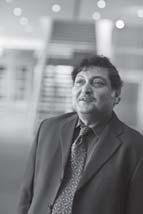
P l en a r y s e ss i o n b y S u g
Sugata Mitra is Professor of Educational Technology at the School of Education, Communication and Language Sciences at Newcastle University, UK. His interests include Children’s Education, Remote Presence, Self-organising systems, Cognitive Systems, Physics and Consciousness. Professor Mitra’s work at NIIT created the first curricula and pedagogy for that organisation, followed by years of research on learning styles, learning devices, several of them now patented, multimedia and new methods of learning. Culminating and, perhaps, towering over his previous work, are his “hole in the wall” experiments with children’s learning. Since 1999, he has convincingly demonstrated that groups of children, irrespective of who or where they are, can learn to use computers and the internet on their own using public computers in open spaces such as roads and playgrounds. He brought these results to England in 2006 and invented Self Organised Learning Environments, now in use throughout the world. In 2009, he created the Granny Cloud of teachers who interact with children over the Internet. Since the 1970s, Professor Mitra’s publications and work has resulted in training and development of perhaps a million young Indians, amongst them some of the poorest children in the world. The resultant changes in the lives of people and the economy of the country can only be guessed at.
T h e f u t u r e o f l e a r n i n g
In this talk, Sugata Mitra will take us through the origins of schooling as we know it, to the dematerialisation of institutions as we know them. Thirteen years of experiments in children's education takes us through a series of startling results – children can self-organise their own learning, they can achieve educational objectives on their own, they can read by themselves. Finally, the most startling of them all: groups of children with access to the internet can learn anything by themselves. From the slums of India, to the villages of India and Cambodia, to poor schools in Chile, Argentina, Uruguay, the USA and Italy, to the schools of Gateshead and the rich international schools of Washington and Hong Kong, Sugata's experimental results show a strange new future for learning.
-165-
a
a n c
c e t o p r i n t y ou r c e r t i f i c
t e of a t t e n d
e
f e re n c e Se le ct i
s
i a
on
on
” w i t h T an
a
a t
M i t r a
-165SATURDAY
Saturday 5 April
Session 4.1 : 1025-1055
1025-1055
Bramham
90 audience
Talk
YLT
Charter
75 audience
Talk
ESAP
Harewood 1
125 audience
Talk
ES(O)L
Harewood 2
125 audience
Talk
LT
Newby
30 audience
Talk
ESAP, RES
Ripley
160 audience
Talk
BE, TTEd
Session 4.1
This presentation delves into listening skills as key to language learning. The main purpose is to provide information on the role that aural skills play for enhancing understanding and speaking in the early years, with emphasis on practices that engage children in active listening through a wide variety of sounds from all kinds of sources. ie, p
Teaching academic English writing to non-native speakers is quite challenging. As an instructor, you need to consider the students’ background, their knowledge of English with their strengths and weaknesses. Teachers need to adopt research-based methods of L2 teaching and modify their classes according to their students’ various needs. I will be providing the audience with my RHU experience.
Lack of motivation for learning English is a challenge worldwide. However, in the Gulf, it is of mammoth proportion. Unlike previous research on motivation, this presentation will focus on motivational factors impacting 'L2 learning experience' of students. It will discuss research on contextual motivational strategies for TESOL classrooms related to teachers’ pedagogical practices, language course, and group dynamics.
This practical session will present how some free web-based tools have been incorporated into a wiki created for students preparing to take the IELTS exam. I will go through the problems my students experienced and show how the wiki addressed these problems. At the end of the talk the audience will see student feedback to the wiki. e, ie, a
In CorporainAppliedLinguistics , Susan Hunston develops some approaches for linguistic corpora analysis. Our talk will be based on a case study research conducted to prove the efficacy of Barlow’s (1996) corpora qualitative analysis as a pedagogical strategy to cope with the lexical aspect of authentic medical-based texts with a group of Peruvian Spanishspeaking nurses.
What does it mean to be an intercultural trainer? What knowledge and skills are needed? How can you acquire or learn them? In fact, what exactly is intercultural training? Is business English training a good starting point if you are considering intercultural training as a next career step? These and other questions will be addressed and discussed with the audience.
e = experienced audience p = primary teaching ie = inexperienced audience s = secondary teaching
adult teaching prod prom = promoting a particular book or product pub = speaker is representing or sponsored by a publisher but is not focussing on a particular book or product
-166-
P r a c t i ce s t o d e ve l op t h e l i s t e n in g s ki l l s i n t h e e a r l y ye ars M T e r e s a F l e t a ( A l c al a d e He n a re s U n iv e r s i t y )
T e a ch in g ac a d e mi c E n gl i sh i n a L e b an e se u n i v e r s i t y M ir a A l a me d d in e ( R a f i k H ar i r i U n i v e r s i t y )
e, ie, a
M ot i v at i on a l c on d i t i on s f or T E S O L p e d a g ogy : a c a se st u d y f r o m A r a b i a M A t h ar Hu s s a i n S h a h ( K i n g A b d u l az i z Un iv e r s i t y , S au d i A r a b i a)
e, ie,
s, t
A
L T S e x a m- t a ke r s A n n a C on w ay ( Gl ob al Br i d g e E d u ca t i on al C e n t re )
w ik i f or IE
r l o w ' s c orp or a a n a l y s is a s an E S A P re ad i n g c omp re h e n s i on s t r at e g y Y r ma G ar c i a ( U n iv e r s i d a d C a t ol i c a S e d e s S a p i e n t i ae )
B a
e, t prod prom
M ak i n g t h e t r an si t i on f r om b u si n e s s E n gl i s h t r a in e r t o i n t e r c ul t u r a l tr a in e r A d r ia n P i l b e a m ( L T S T r ai n i n g a n d C on s u l t i n g, B at h , U K )
e, t, a
t
a =
P LE A SE C HEC K N O T IC E B O A RD S F OR C H A NGE S & C A N CE LLA T I O N S -166SATURDAY
= tertiary teaching
Studley
30 audience
Talk
AL, TTEd
Auditorium
570 audience
Talk
TD
King’s A
240 audience
Talk BE, LT
King’s B
100 audience
Talk
TEA, YLT
Hall Qa
100 audience
Talk
BE, ESP
Hall Qb
100 audience
Talk
Saturday 5 April
Session 4.1 : 1025-1055
I mp a ct of v oc a b u l ar y in s t r u c t i on on r e a d in g p e r f or m an ce : is s u e s a n d i mp l ic a t i on s M at i l d a W on g ( U n i ve r si t y of M ac au )
I'll report on a study that explores how vocabulary is taught in Macau and its impact on students’ performance in reading comprehension. Findings suggest that there are various reasons underlying ineffective vocabulary teaching in Macau and that this has been a factor that hinders students' reading. To conclude, I'll draw implications for ways to improve vocabulary instruction and to enhance reading performance.
To mark 20 years at the chalkface, this talk condenses the limited wisdom I have accumulated. Covering everything from why how we're taught to teach grammar is bad for us to the danger of learning styles, from the similarities between NLP and Ponzi schemes to the true purpose of teaching pronunciation, it will engage and enrage in equal measure! e, ie, s, a
E n ga g in g t
For today's 'digital natives', the internet and laptops are as much a part of daily life as running water and kettles. Sophisticated modern students are simply not engaged when online learning packages are just new versions of the printed page. This talk shares new ways of using digital media and explains why this media offers a more effective learning experience. e, ie, s, a pub
The Cambridge English for Schools range of exams has been created specifically for children and teenagers. This session will focus on the features of an effective and appropriate language test for this age group. It will also consider how well the Cambridge English for Schools range of exams meet this through age-appropriate and taskappropriate content.
This talk is for teachers considering a career in Business English and for those experienced in this area. It will describe the skills required of today's Business English teachers and will refer to the teacher-training program Communication and Language Trainer Certificate – Corporate , which provides new and experienced teachers with structured professional development. Time will be dedicated to answering questions. e, ie, a prod prom
This presentation describes blended learning techniques adopted by teachers in the Pronunciation Centre of an Intensive English Program. Online tools were introduced to complement face-to-face instruction and to increase the time students spent practising pronunciation and fluency. The tools used will be presented and the results of an attitudes survey, administered at the end of the course, will be discussed. ie, t
AL = Applied Linguistics
BE = Business English
EAP = English for Academic Purposes
ESAP = English for Specific Academic Purposes
ES(O)L=English for Speakers of Other Languages
ESP = English for Specific Purposes
GEN = General
GI = Global Issues
LA = Learner Autonomy
LAM = Leadership & Management
LMCS = Literature, Media & Cultural Studies
LT = Learning Technologies
MaW = Materials Writing
MD = Materials Development
PRON = Pronunciation
RES = Research
TD = Teacher Development
TEA = Testing, Evaluation & Assessment
TTEd = Teacher Training & Education
YLT = Young Learners & Teenagers
-167-
e, ie,
s
T we n t y t h in gs in t we n t y y e a rs : t h i s mu c h I kn o w Hu g h D e l l a r ( U n iv e r s it y of W e s t min s t e r)
h e d ig it al n at iv e A l as t a i r L an e & J a me s S t y r i n g ( R ic h m on d )
T ar g e t in g t a s ks f or t e e n ag e r s : a ge - ap p r op ri a t e e xa m c on t e nt
n ( C a m b r i d g e E n g l i s h
J oa n n a R a s ki
)
e,
ie, p, s prod prom
H o w t o d e v e l op a c ar e e r in Bu si n e ss E n g l i s h t e a c h i n g T i m ot h y P h i l l i p s & G ab r ie l l a H i rt h e ( SK Y L IG HT , Ge r ma n y )
LT,
U s i n g b l e n d e d le ar n i n g t e c hn iq u e s t o i mp r ov e p r on u n c i a t i on a n d f l ue n c y S op h ie F ar a g ( T h e A me r ic a n U n i ve r s it y i n C a i r o)
PRON
P l e as e n ot e t h a t s ome p r e s en t e r s h av e r e q u e s t ed a m a x i mu m au d ie n c e s ize T h e re f or e , p l e a s e ch e c k t h e a u d ie n ce siz e in t h e l e f t -h an d col u mn of e ac h e n t r y -167SATURDAY
Saturday 5 April
Session 4.1 : 1025-1055
Hall Qc
100 audience
Talk
MaW, RES
Hall Qd
100 audience
Talk TEA
A d am S
C ol l e ge , Br igh t on )
Corpus linguistics promises teachers a new technology to enhance traditional lesson content and materials use. A year-long classroom-based research project involved teaching ESL beginners lexically using corpus-driven content. Results included faster language acquisition and more successful interaction, allowing learners faster progress to elementary level. Even technophobic teachers can easily incorporate corpus linguistics in a traditional classroom setting to accelerate learning.
A study was conducted to explore how to best adapt long-turn speaking tasks for teenagers. Learners in Romance and non-Romance language countries (China and Chile) took part in this study. Their performance on adult tasks and subsequent tasks designed to better suit their needs, based on feedback, was compared. The results, impact and implications are discussed.
Hall Qe
100 audience
Talk LT, TTEd
Hall Qf
200 audience
Talk
GEN
Queen's 1
60 audience
Talk
The British Council and ESSPIN partnered on a solar-powered mp3 audio resource pilot project for under-resourced state primary school teachers with little or no access to electricity in Nigeria. The importance of training, as well as the planning of workable systems, will be focussed on. Suggestions for improvements in the project and project applicability to other contexts will be considered.
Good topics make for better learning, but what makes a good topic, and what's the best way to exploit it? In this workshop, we'll look at the reading and listening texts that make EnglishFile so effective. We'll see why they are motivating, and look at how we can best make use of texts in class. e, ie, a prod prom
ES(O)L, GI L ow p r of ic ie n c y in En gl ish : p ol it
Countries where English is taught as a foreign language have invested large parts of their budgets in second language education. However, English language proficiency is still very low. This presentation will go beyond the traditional EFL factors that explain low proficiency and will explore the political, socio-economic and cultural factors behind English language teaching and learning. e, s
Queen's 2 68 audience
Talk
This presentation focuses on using audio-visual techniques that integrate different language skills while teaching English. It suggests, with examples, how a teacher creates their own video that enables them to deliver a lesson influentially integrating different skills away from the traditional (boring) way. It is a call for engaging learners in the lesson and inspiring teachers' sense of creativity.
e = experienced audience
p = primary teaching ie = inexperienced audience s = secondary teaching t = tertiary teaching a = adult teaching prod prom = promoting a particular book or product pub = speaker is representing or sponsored by a publisher but is not focussing on a particular book or product
-168-
T e a ch in g E S L b e g in n e r s u s in g c or p u s l in gu is t ics in a l e x ic al ap p r
h
oa c
e s
c ot t ( S t G il
e, ie, a
A d ap t i n g l on g- t u rn sp e a ki n g t as k s f or t e e n ag e r s Gw e n d y d d C a u d we ll ( Br it is h C ou n c il D u b a i)
ie,
s
L e a r
s h au d i o p i l ot N ig e r i a F i o n a I n c i ( Br it i s h C ou n c i l N i g e r i a) & P h i l i p A d ig u n ( E S S P I N)
n E n g l i
ie, p
r e
ot iv at ion t h rou g h t op ic , t e xt a n d t r e a t me n t
ob
al ke r ( F r ee l a n c e )
In c
a s in g m
R
in W
ic al , s oc i o- e c on om ic , an d c u l t u r al re as on s
Gl or i a R o me r o ( Un iv e r s i t y of O t t a w a )
In t e gr a t i n g s k i l l s i n E F L c l a s s e s u s in g v id e o a n d s ou n d e ff e c t s A b d ul jab b ar A l sh ab i
TD, YLT
e, ie, s
P LE A SE C HEC K N O T IC E B O A RD S F OR C H A NGE S & C A N CE LLA T I O N S -168SATURDAY
Queen's 3 180 audience
Talk TTEd C E L T A f or al l ?
A
D
Queen's 5 110 audience
Talk LA, TEA
Queen's 7 95 audience
Talk MD, YLT
Queen's 9 25 audience
Talk
RES, TTEd
Room R
60 audience
Talk
TD
Session 4.1 : 1025-1055
Session 4.2 : 1110-1140
on d on )
CELTA trainees are from increasingly varied backgrounds. More and more are non-native speakers, with experience of teaching in diverse contexts including universities and state schools. This research-based talk will offer practical ideas and explore such questions as: Is CELTA suitable for these types of teachers? How do these participants affect the course delivery for trainers?
With the increased attention to learner-centered curricula, self-assessment has gained a particular interest because there is a huge emphasis on developing greater autonomy of learners. This presentation discusses whether students could be involved in testing and to see whether it can affect their learning. The steps followed in training students will be presented and the results will be discussed.
Drawing on data from six state primary schools in England with a high density of nonnative English speaking learners (30-90%), this presentation discusses problems associated with the effective teaching and assessment of science to these learners, and suggests ways in which current pedagogical practices in schools can be further improved.
It transpired from my PhD research that university EFL teachers and their students can hold conflicting views about how a classroom should be run and what goes on in it. I will discuss my main findings, highlighting some which are quite surprising. With the audience, I intend to discuss similar teaching/training experiences and suggest strategies to reconcile any such differences.
A
( O man )
This talk reports on an evaluation of an online CPD programme offered to EFL teachers in Oman. While this was considered a success, several issues were identified relating to teachers’ unfamiliarity with online CPD, the role of e-tutors, and workload challenges. Ways to address these issues to enhance the delivery of online CPD in Oman and elsewhere will be considered.
1110-1140 Session 4.2
Bramham
90 audience
Talk
TTEd
man y )
From teacher to facilitator, from instructor to negotiator – omnipresent buzzwords frequently used to describe the changing role of teachers. But how can we as teacher educators awaken this new professional self-understanding in our students? To meet this paradigm, this talk suggests using the framework of cooperative learning and provides practical ideas for its usage in EFL teacher education.
AL = Applied Linguistics
BE = Business English
EAP = English for Academic Purposes
ESAP = English for Specific Academic Purposes
ES(O)L=English for Speakers of Other Languages
ESP = English for Specific Purposes
GEN = General
GI = Global Issues
LA = Learner Autonomy
LAM = Leadership & Management
LMCS = Literature, Media & Cultural Studies
LT = Learning Technologies
MaW = Materials Writing
MD = Materials Development
PRON = Pronunciation
RES = Research
TD = Teacher Development
TEA = Testing, Evaluation & Assessment
TTEd = Teacher Training & Education
YLT = Young Learners & Teenagers
-169-
Saturday 5 April
l as t a i r
ou g l as ( In t e r n a t i on a l H ou se L
e, a
I n t r o d u ci n g se l f -a s se s s me n t i n wr i t i n g t o ad u l t E n g l i sh l e a r n e r s C i l e r A k y u z P e n be g ul ( Bi l k e n t U n i v e r s i t y )
e, a
E f f e ct iv e t e a ch i n g of sc i e n c e t o y ou n g E n gl i s h l a n g u ag e l e a rn e r s O k s a n a A f i t s k a ( U n i ve r s i t y of S h e f f i e ld )
e, ie, p
T e a ch e r - s t u d e n t in con s is t e n c i e s i n a t t i t u d e : t ow a r d s a r e c on c i l i a t i on E l e n a O n c e v s k a A ge r ( S s C y r i l a n d M e t h od i u s U n i ve r s i t y )
ie,
t
R e f l e c t i n g on t h e de l i v e r y of a n on l i n e C P D p r ogr a m me
l
as k a r i
B ah i a W a l d Dh aw i
n is a A
M
&
e, ie, t, a
I mp l e me n t i n g c o op e r at iv e l ea r n i n g i n E F L t e a c h e r e d u c at i on J oh an n a M a r k s ( M u e n s t e r U n iv e rs i t y , Ge r
e, ie, t
P l e as e n ot e t h a t s ome p r e s en t e r s h av e r e q u e s t ed a m a x i mu m au d i e n c e s i ze T h e re f or e , p l e a s e ch e c k t h e a u d i e n ce si z e i n t h e l e f t -h an d col u mn of e ac h e n t r y . -169SATURDAY
Saturday 5 April
Session 4.2 : 1110-1140
Charter
75 audience
Talk
BE, ESAP C a n y ou w r it e a g ood t a l k ?
at ia
In this interactive talk, we will revisit common ways of helping students prepare for a presentation, particularly the ones that involve writing and written texts. Do texts provide a solid basis for the presentation? Do they help our students sound better? These are some of the questions we will look at in the talk. ie, a
Harewood 1
125 audience
Talk
TTEd V
I report on a qualitative case study to explore student-teachers’ attitudes towards videotaped microteaching and its impact on their professional growth. Using a variety of data sources (recordings of microteaching sessions, post-video observation, an evaluation form and a think-aloud session), findings highlight the importance of using video for promoting reflection and bringing a heightened awareness of teaching strengths and weaknesses.
Harewood 2
125 audience
Talk
LAM, YLT
Newby
35 audience Talk TEA
Experienced YL teachers are often promoted to management positions in YL Centres without the necessary training, knowledge and support systems required. This session identifies differences between general ELT management and YL Centre management. It examines the skills required for successfully managing a YL Centre and provides concrete ideas which participants can apply to their context.
Based on evidence I collected through observation, interviews and questionnaires from EFL teachers in several state schools in Egypt, I found a variety of problems which discouraged effective language learning and teaching as a result of impoverished assessment. This has motivated me to think of possible ways to improve learning and teaching through enhanced assessment. My talk addresses this topic.
Ripley
160 audience Talk RES
Studley
30 audience
Talk
TD, TTEd
To understand our students’ increasing problems with metalinguistic reflection on grammatical structures, we used verbal protocols. Students were recorded as they labeled and corrected typical grammar mistakes concerning the verb. The analysis of the recordings reveals an imperfect understanding of the relevant concepts and terminology. We will now address these issues in our teaching.
This talk presents a case study involving student-teachers of English preparing to become high school EFL teachers in Algeria. Specifically, student-teachers’ experiences after a four-week practicum are investigated. The aim of the study was twofold: for the students to share their challenges and needs; and for teacher educators to revise the practicum of the teacher education programme offered.
experienced
teaching prod prom = promoting a particular book or product pub = speaker is representing or sponsored by a publisher but is not focussing on a particular book or product
-170-
at ion a l R e s e a r ch U n iv e rs it y Hig h e r S c h o ol
T
n a G ol e ch k ov a ( N
of E c on om ic s)
id e ot a p e d mic r ot e a ch in g - a s t imu mu s f or r e f l e ct ion a n d t e ac h e r g r ow t h
t e l l a K ou r ie os ( F r e d e r ick U n ive r sit y , C yp r u s )
S
e, t
M an a g in g a y ou n g l e ar n e r E L T c e n t r e – e s se n t ia l t r a in in g an d p r e p ar a t i on L ou is e M c L a u gh l in ( E C M C ol l e ge )
e
A s s e s s me n t f or l e ar n in g : H ow t e st in g c a n s u p p or t l e a r n i n g a n d t e ac h in g A h me d A b d e lh a f e z ( E l M in ia U n iv e rs it y , E gy p t )
e,
ie, s
T e a ch in g l an gu a ge a w a r e n e ss : e x p l or in g ad v a n c e d l e ar ne r s ' me t a l in g u ist i c k n o wl e d g e M ar t in a E l ic ke r & Ul l a F u e r st e nb e r g ( E n gl is h De p a r t me n t , Gr a z Un iv e r s it y )
e, t
R e al it y c h e ck : a n in v e s t ig a t i on of t e ac h e r t r ain in g in A l g e r ia H a y a t M e ss e k h e r ( Br it is h C o u n c il A l g e r ia)
e, a
=
=
P LE A SE C HEC K N O T IC E B O A RD S F OR C H A NGE S & C A N CE LLA T I O N S -170-
e =
audience p = primary teaching ie = inexperienced audience s = secondary teaching t
tertiary teaching a
adult
SATURDAY
Auditorium
570 audience
Talk
LAM, LT
King’s A
240 audience
Talk
LMCS
King’s B
100 audience
Talk
LT, MD
Hall Qa
100 audience
Talk LMCS
Hall Qb
100 audience
Talk
TD, TTEd
Online teaching is expanding. Online or blended courses, flipped classrooms and moreall these approaches need to be effectively managed. However, few managers or teachers have experience in doing this. This talk, based on our book Managing Education in the Digital Age , aims to address the management challenges in launching and managing online courses, including supporting online teachers and learners.
Classic stories are often filmed, and some of the ways used by the film industry to popularise the classics really make students think and be creative. We will see how to exploit film posters as well as taglines and loglines – those short, exciting texts used to promote films. The stories referred to are all from Black Cat’s gradedreaders
In this presentation, I will discuss how findings from an earlier research project into the future of the ELT coursebook have been applied into 'The Core Curriculum for English', a major digital materials development project. I will describe how we have worked to develop learner and teacher-friendly materials for primary and secondary school learners in a wide range of contexts. e, p, s prod prom
C h an gi n g a t t i t u d e s t o u s
C h r is W al k l e t t ( In t e rn at ion a l A c ad e my , U n i v e r s i t y of E s s e x )
This talk presents some findings from interviews with those in the field and some research into coursebook usage of songs and song lyrics in EFL. The presenter hypothesized that there has been significant change recently in both attitudes to and use of this resource and sought to discover, if this was so, what sort of changes have occurred and why. ie, a
an d k n ow l e d g e t h r ou gh Globalidades r a d i o p r ogr a m me
C a r l a Ga s t e l u m K n i gh t & L u i s C a n c in o ( U n
This talk will describe the experiences of a group of student-teachers that have used Globalidades, a university-based weekly radio programme, to share their teaching experiences and other EFL/ESL issues and concerns. We will discuss how this experience has encouraged students to become more reflective about their teaching. Comments and suggestions for further action are welcome!
Hall Qc
100 audience
Talk
TD
For many years we looked at mentoring as something an older, experienced teacher does to initiate new, inexperienced colleagues. In this session, we would like to extend this definition and suggest that every teacher, at some stage, should become a mentor in order to test their beliefs about effective teaching and gain better insight into their own professional activities.
AL = Applied Linguistics
BE = Business English
EAP = English for Academic Purposes
ESAP = English for Specific Academic Purposes
ES(O)L=English for Speakers of Other Languages
ESP = English for Specific Purposes
GEN = General
GI = Global Issues
LA = Learner Autonomy
LAM = Leadership & Management
LMCS = Literature, Media & Cultural Studies
LT = Learning Technologies
MaW = Materials Writing
MD = Materials Development
PRON = Pronunciation
RES = Research
TD = Teacher Development
TEA = Testing, Evaluation & Assessment
TTEd = Teacher Training & Education
YLT = Young Learners & Teenagers
-171-
Saturday 5 April Session 4.2 : 1110-1140
M an a g i n g e d u ca t i on i n t h e d ig it al a ge A n d re w H oc k l e y ( F r e e l an c e ) & F i on a T h om a s ( Ne t L a n g
u ag e s )
e, s, t, a prod prom
P op u l a ri s i n g t h e c l a ss i cs : c r e a t i v e a c t i v it ie s i n s p i r e d b y th e mov ie in d u s t r y R ob e r t Hi l l ( Bl ac k C a t P u b l i sh in g)
e,
s prod prom
Ne w ge n e r a t i on l e a r n i n g: f r o m t r a d i t i on al p r i n t t o d i gi t a l mat e r i al s
o
e
i m i t
C a r ol i n e M
or
( C on st e l l at a L
e d )
in g s on g s & s on g l yr i c s i n E F L
op i n g st u d e n t -t e a c h e rs ’ r e f l e c t i v e s k il l s
D e ve l
i v e r s i d ad d e
on
S
or a)
ie, a
Be a gr e at t e a ch e r - b e c ome a me n t or T a ma s L or in cz ( F r e e l an ce ) & R os e l i S e rr a ( C u l t u ra In gl e s a)
e, ie, p, s, t, a
P l e as e n ot e t h a t s ome p r e s en t e r s h av e r e q u e s t ed a m a x i mu m au d i e n c e s i ze T h e re f or e , p l e a s e ch e c k t h e a u d i e n ce si z e i n t h e l e f t -h an d col u mn of e ac h e n t r y -171SATURDAY
Saturday 5 April
Session 4.2 : 1110-1140
Hall Qd
100 audience
Talk
YLT T h e g r am ma r s t or y Br u n o L e y s ( V i ve s T e ac h e r T r
Hall Qe
100 audience
Talk GI, TTEd
Hall Qf
200 audience
Talk GEN
Queen's 1
60 audience
s
A ss oc i at i on )
There is a main focus in present-day foreign language teaching on oral interaction, especially dialogue. In real communication, participants in conversation often produce longer units of speech, telling a (short) story. This talk attempts to provide tools to develop such stories with students through a variety of frameworks that help them with the grammar of such texts.
S yr i an re f u gee ch il d re n in L e b an on : a mu l t i l i n g u al r e s p o n se C l ai r e R os s ( Br i t i sh C ou n c i l )
This is the story of a British Council/Institut Francais collaboration to create a training course, for teachers of English and French, working with Syrian refugee children in Lebanon. Delivered trilingually, the course aimed to present the multilingual and multicultural make-up of the children as a beneficial language teaching resource, and to create a positive classroom atmosphere in the midst of a crisis.
How well are we equipping learners of English as a second language with the necessary skills for communicating in today’s online communities? And what are the skills they need? This talk will explore a new aspect of written fluency – the ability to write speedily, relevantly and concisely – and offer practical ideas on how to develop it. e, ie, a
Talk TD, TTEd E vi d e n c e f or a s u c ce s s f u l c a s c ad e
English lessons in primary classrooms of rural Nepal involve little use of English and minimal meaningful communicative practice in English. British Council, Nepal, initiated a cascade model, with significant follow-up activities to support the cascade, to address these issues. Results, based primarily on classroom observation, and so evidence-based, indicate a significant uptake of methodology and language input.
Queen's 2
68 audience
Talk
TEA
Queen's 3
180 audience
Talk
TEA
Queen's 5 110 audience
Talk TTEd
The European Qualifications Framework (EQF) is a meta-framework – comparable to the CEFR in many ways - but far more general. Is the EQR a useful tool to measure language competence? How do the EQR and the CEFR compare? Linking both systems helps to establish language certificates alongside formal qualifications and to further lifelong learning.
J i l l Bu gge y ( C amb r id ge E n gl ish )
Cambridge English: First, First for Schools and Advanced exams have been updated for 2015. The new exams reflect the latest research into language learning and assessment, meeting the needs of teachers, learners and those who rely on the exam for higher education and employment. This presentation will describe the revision process and the format and content of the updated exams. e, ie, s, t,
T e t i D r ag as ( D u r h a m Un i ve r si t y )
This talk will examine the role of culture in teacher education programmes, in order to explore to what extent it needs to be more consciously engaged with, particularly with regard to the training of NNEST in Western contexts. The talk will take as its starting point findings from a recent corpus-based study of the reflective discourses of L2 practitioners. e
e = experienced audience p = primary teaching ie = inexperienced audience s = secondary teaching t = tertiary teaching a = adult teaching prod prom = promoting a particular book or product pub = speaker is representing or sponsored by a publisher but is not focussing on a particular book or product
-172-
a in i n g D e p a r t me n t , K U L e u v e n
e,
e, p
r i t e h e r e , w r
ow
e r n at i on a l
ou se
W
it e n
F i on a J oh n s t on ( In t
H
)
t e a c h e r tr a i n i n g p r o j e c t i n Ne p a l
i s h
Il i c Jov a n ( Br i t
C ou n c il Ne p a l )
e, a
E Q F an d C E F R : t h e a l ign me n t of t w o E u r op e an re fe r en c e s y st e ms
an n ( t el c – l a n gu a ge t e s t s )
S ib yl l e Pl a ss m
e,
t, a
C
n g l i s
d v a n c e d , F i r s t an d F i r st f or S c h o ol s i n 2 0 1 5
a mb r i d g e E
h : A
a
prod prom
E xp l or i n g cu l t u r e i n t e a c h e r e d u c at i on : r e f l e c t i on s on a c or p u s - b a s e d st u d y
P LE A SE C HEC K N O T IC E B O A RD S F OR C H A NGE S & C A N CE LLA T I O N S -172SATURDAY
Queen's 7 95 audience
Talk TTEd
Queen’s 9 25 audience
Talk
RES, TTEd
Room R
60 audience
Talk
LA, TD
Saturday 5 April
In this session I will report on my own experience of using integrated written assignments, with a critical reflection on the types chosen for intensive and part-time CELTA courses. While recognizing the challenges of using such format for an assignment, I am going to show the overall benefits they have for the trainees and trainers alike.
This presentation draws on data from an action research study through a teacher development programme, set up for Taiwanese EFL secondary school teachers, to implement a context-sensitive communicative approach (CA). I will explain how a systematic observation scheme was developed and helped evaluate to what extent the teachers’ practitioner knowledge in adapting CA develops.
It's a key aim of EFL teaching to equip learners with effective strategies for listening. Many educators in bilingual higher education institutions argue that teaching listening skills is foundational to the development of other language skills. Strategies to enhance the learning process of second language listeners and pedagogical recommendations for developing awareness will be shared in the context of current research.
1140-1215 Coffee break
Exhibition hall A complimentary tea/coffee is available at the catering points in the exhibition hall.
1215 The exhibition closes
1215-1300 Session 4.3
Bramham
1 2 1 5 - 1 2 4 5
90 audience
Talk
TD, TTEd
Charter 75 audience Workshop PRON
Until fairly recently, ELT in Vietnam consisted primarily of translation and grammar study. The changing global economy and the need for more EFL teacher training resulted in new initiatives and international partnerships. The presenter describes a program designed with practice-oriented approaches and face-to-face training at a university in Vietnam that is bringing about positive changes in Vietnamese EFL teacher education.
Many high-level students can understand the English spoken in a classroom setting but struggle to understand native speakers, particularly those with strong regional accents. In this workshop, I will focus on practising bottom-up processing, phonological problems relating to connected speech and suggest a TTT lesson shape to allow students to discover, and then address, the causes of their problems.
AL = Applied Linguistics
BE = Business English
EAP = English for Academic Purposes
ESAP = English for Specific Academic Purposes
ES(O)L=English for Speakers of Other Languages
ESP = English for Specific Purposes
GEN = General
GI = Global Issues
LA = Learner Autonomy
LAM = Leadership & Management
LMCS = Literature, Media & Cultural Studies
LT = Learning Technologies
MaW = Materials Writing
MD = Materials Development
PRON = Pronunciation
RES = Research
TD = Teacher Development
TEA = Testing, Evaluation & Assessment
TTEd = Teacher Training & Education
YLT = Young Learners & Teenagers
-173-
Session 4.2 : 1110-1140 Session 4.3 : 1215-1300
U s i n g i n t e g r a t e d as si g n m e n t s i n C E L T A I r i n a G r e k ov a ( BK C In t e r n a t i on al H ou s e M o sc o w)
e, a
O b se r va t i on s on t e ac h e rs ’ k n o wl e d ge g row t h in c om mu n ic at ive l an gu a ge t e a c h in g Y i -M e i C h e n ( U n i v e r s it y of E x e t e r )
e, s
A n in t e g r at e d a p pr o ac h t o t e a c h i n g a ct iv e l i st e n i n g R a n i a K h a l i l ( T h e B r i t i s h U n i v e r s it y i n E g yp t )
ie, a
T r e n d s i n E F L t e a c h e r t r a in i n g an d l e ar n in g i n Vi e t n a m R o se m ar y O r l a n d o ( S ou t h e r n Ne w Ha mp s h i r e U n i v e r s it y , Ne w Ha mp sh ir e , U S A )
e, t
He l p i n g h i gh - l e ve l l e ar ne r s u n de r st an d n at iv e s p e ak e r c on ve r s a t i on s A l e x C an n ( E L C E d i n b u
r gh )
e, ie, a
P l e as e n ot e t h a t s ome p r e s en t e r s h av e r e q u e s t ed a m a x i mu m au d i e n c e s i ze T h e re f or e , p l e a s e ch e c k t h e a u d i e n ce si z e i n t h e l e f t -h an d col u mn of e ac h e n t r y . -173SATURDAY
Saturday 5 April
Session 4.3 : 1215-1300
Harewood 1
125 audience Workshop GEN T al k i
What makes for effective teaching of speaking and how can we become better teachers of it? This workshop invites participants to share ideas and reflect on their techniques, with the aim of supporting a richer understanding of practice. The workshop includes a short extract of a videoed lesson to see how activities can be exploited and extended. e, ie, a
Harewood 2
125 audience Workshop YLT
This workshop will encourage participants to think about how the materials and activities we use in classes with very young learners can help to promote thinking, social and motor skills, and the importance of including these skills when teaching English. Participants will also be encouraged to join in with practical activities using material from the Hooray! Let’splay!coursebook.
Newby 1215-1245 35 audience Talk GEN
Ripley 160 audience Workshop TEA
This talk will investigate how learning from a Masters in TESOL in the UK, as part of the A.S. Hornby Trust scholarships, has been incorporated into the professional development of a teacher, trainer and materials writer in West Bengal, India. The talk will focus on a particular project I have been involved in, its impact, and my own professional learning.
P r e p a r in g f or t h e n e w Cambridge English: First s p e a
n g p ap e r Gu y Br oo k- H a rt ( F r e el an c e )
This workshop covers changes to Cambridge English: First from January 2015 and, in particular, the changes to the speaking paper. We discuss how to prepare students for the speaking paper with a range of practical classroom activities to teach strategies, interactive techniques and language to ensure success. Reference is made to Complete First 2nd edition.
Studley 30 audience Workshop TTEd P r ob l e m- b a s e d l e a
King’s A 1 2 1 5 - 1 2 4 5
240 audience
Talk TD
King’s B
100 audience
e, ie, s, a prod prom
Problem-based learning (PBL) is rare in MA TESOL teacher education, though it is wellestablished in other disciplines. This workshop explores key concepts, structures, roles and processes in PBL, with examples from an innovative MA TESOL programme. Participants will discuss PBL characteristics and the sample PBL model and will leave with resources to assist with transferability to their own contexts. e, t
If you are like me, you think of 'development' in terms of workshops and online communities. I think this focus on events and training makes us miss out on development opportunities closer to home. In this talk I want to suggest four ideas for learning from your immediate teaching context and give you time to try these ideas out.
Workshop YLT T e l l me m ore , t e l l me m or e . . . E sr a G i r g i n Gu mu s t e k i n ( T V O T e r ak k i S c h ool s )
Do you like storytelling and finding new ideas to tell the same story in different ways? In this session, we will interact with each other and explore 10 creative games for a single story. These activities will help to kick the boredom out of the class, while motivating students to internalize the target language.
e = experienced audience p = primary teaching ie = inexperienced audience s = secondary teaching t = tertiary teaching a = adult teaching prod prom = promoting a particular book or product pub = speaker is representing or sponsored by a publisher but is not focussing on a particular book or product
-174-
g a
e ak in g
p r a c t i c e an d
n
b ou t s p
:
t he or y P e t e r W a t k in s ( U n iv e rs i t y of P or t s m ou t h )
in g v e r y y ou
g l e ar n e rs T e ac h i n g t h e w h ol e c h i l d M e g a n
h e r r y
He lb l i n g L an g u a g e s)
T e a ch
n
C
(
e, p prod prom
H O R N B Y T R U S T A L U M N U S H or n b y S c h ol a rs h i p i mp a ct o n t e ac h e r e du ca t i on in W e st Be n g al K u h el i M u k h e r j e e
S a k h a wa t M e m or i al G o v e r n me
t Gi r l s ’ H i gh S c h o ol , K ol k at a
(
n
)
k i
rn i n g i n M A T E S O L t e ac h e r e d u c a t i on C
s w e l l
e st e r
t y
y n t h i a C a
( T r in it y W
n U n i v e r s i
)
T h e p l a ce is h e r e an d th e t i me i s n ow A n t h on y Gau gh a n ( Be r l i n S c h o ol of E n gl i s h )
e, ie
e, ie, p, s, a
P
EA SE C HEC K N OT I CE B OA R DS F O R C H A NG E S & C A N C E L LA TI ON S -174SATURDAY
L
Hall Qa
100 audience Workshop EAP, TEA
Hall Qb
100 audience Workshop GEN
Hall Qc
100 audience Workshop TTEd
Hall Qd
100 audience Workshop GEN
Hall Qe
100 audience Workshop
Hall Qf
200 audience Workshop GEN
Session 4.3 : 1215-1300
By using the IELTS speaking assessment criteria to analyse test-takers’ performance in the different parts of the IELTS speaking test, this workshop will look at activities teachers can use to help their students maximise their performance in the test and develop useful skills for their future academic life, as well as identifying other relevant resources for the IELTS speaking test.
This interactive workshop will explore the role of motivation in language learning. Why are some students motivated and others not? What factors can affect motivation? Can the teacher influence any of these factors? These questions and others will be discussed and strategies and activities for encouraging and maintaining motivation in EFL learners will be suggested.
ak i n g t h i n k i n g v i s i b l
This workshop will be centered on the ability of learners to make careful observations and thoughtful interpretations when using a variety of EFL and authentic material. Participants will experience three thinking routines, which are centered around making their understanding visual so that you and your students can 'see' their understanding: Interesting Things, Read and Plan, and See-Think-Wonder.
Based on the time-tested value of doing projects, this workshop will update project work to include technology and develop 21st Century skills, such as critical thinking, collaboration and creativity. By the end of the session you will have a plan to do project work in your classes. The session will use examples from Project fourth edition by Oxford University Press. e, ie, s prod prom
This very practical workshop is for teachers who have been asked to apply information communication technology (ICT) to the classroom and are uncomfortable, inexperienced or unconvinced by learning technologies. Attendees will be given useful links, worksheets, activities and lesson plans. Attendees will also receive IT tips and activities. This workshop is for educators who are not proficient IT-users. ie, a
This interactive and creative workshop will look at ways in which we can use exciting and engaging narratives, skilled actors and appropriate sound design to transform the EFL listening experience. Ideal for teachers, publishers and aspiring writers, the workshop will use examples from onestopenglish.com to deconstruct the process of creating evocative cinematic listening materials.
AL = Applied Linguistics
BE = Business English
EAP = English for Academic Purposes
ESAP = English for Specific Academic Purposes
ES(O)L=English for Speakers of Other Languages
ESP = English for Specific Purposes
GEN = General
GI = Global Issues
LA = Learner Autonomy
LAM = Leadership & Management
LMCS = Literature, Media & Cultural Studies
LT = Learning Technologies
MaW = Materials Writing
MD = Materials Development
PRON = Pronunciation
RES = Research
TD = Teacher Development
TEA = Testing, Evaluation & Assessment
TTEd = Teacher Training & Education
YLT = Young Learners & Teenagers
-175-
Saturday 5 April
T al k i n g s u c c e s s : i m p r o v i n g p e r f o r m an c e i n I E L T S s p e ak i n g L ou i s a D u n n e ( Br i t i s h C ou n c il )
e, ie, s, t, a
M ot i v at in g s t u d e nt s i n t h e EF L c l as sr o om E l i za b e t h D a vi e s ( E L T C , U n i v e r si t y of S h e f f i e l d )
ie, a
e B on n i e T s a i ( P il g r i ms T e a ch e r T r a in in g )
M
e, a
e : b r i n g i n g p r o j e c t s i n t o t h e 2 1s t C e n t u r y V e r i ss i m o T o st e ( O x f or d U n i v e r s it
r
E n g a g e a n d i n v ol v
y P
e ss )
D i g i t a l t e c h n ol og y f or d e v e l op in g t e ac h e rs an d t e ac h e r s n e w t o t e ch n ol og y If f af K h an ( if f a f . c o m)
LT
T r an s f or mi n g E F L l i st e n i n g m at e r ia l s L u k e Vy n e r & Ja me s V y n e r ( L on d on L a n gu a ge E xp e r i e n ce )
e, ie, s, a pub
P l e as e n ot e t h a t s ome p r e s en t e r s h av e r e q u e s t ed a m a x i mu m au d i e n c e s i ze T h e re f or e , p l e a s e ch e c k t h e a u d i e n ce si z e i n t h e l e f t -h an d col u mn of e ac h e n t r y -175SATURDAY
Saturday 5 April
Session 4.3 : 1215-1300
Queen's 1 60 audience Workshop TD
Queen's 2 68 audience Workshop LAM
Ju l ie t t a S c h oe n m a n n ( F r ee la n c e )
How can picture metaphors be used with education professionals to reveal their beliefs and values about teaching? In this workshop, I intend to explore the use made of metaphors with a group of Iraqi supervisors, heads and teachers in helping them to evaluate their role in an education system undergoing profound change. e, s
Come along and plan an ELT project from start to finish in seven easy steps. Together we’ll look at what a project is, get to grips with basic project management terminology, explore the project cycle, project design and project evaluation stages. We'll learn some simple techniques to putting your project into words that will impress your project stakeholders. ie
Queen's 3 180 audience Workshop GEN
A practical look at how the exceptional lives and abilities of the most talented people the world has ever seen can make great classroom material. We’ll look at how to make the most of extensive reading and cross-curricular content using the high-interest topic of famous people and their achievements, illustrated with examples from the new Amazing Peoplereaders from Collins.
Queen's 5 110 audience Workshop LT 2 1s t C e n t u ry E n gl i s h l e ar n e
Can your learners provide evidence of their learning, creative ability and English language skills in a 21st Century format? Mine can. Do your learners assess their own language level and needs, set learning goals and objectives, create personal learning plans, monitor their own progress and visibly demonstrate it? Mine do. A practical workshop demonstrating how to create motivating e-portfolios.
Queen's 7 95 audience Workshop LA
This session will feature demonstrations of universal language and skills-based activities for which students prepare the necessary materials. Besides saving the teacher work, creating materials gives students increased opportunity to personalize and contextualize language. In addition, the chance to use their humour and creativity for material which will be incorporated into the lesson is intrinsically motivating for students.
Queen's 9 25 audience
Workshop EAP, LT
Room R 60 audience Workshop MaW, TD
In my presentation, I'll share my experience in teaching an advanced level academic writing course, taught to EFL students majoring in Linguistics. I'll focus on a selection of activities helping students to improve their writing skills, with emphasis on activities aimed at their better understanding of the essence of plagiarism and learning to write without it.
Teachers who take up CPD opportunities are often zinging with new ideas and enthusiasm at the time. But what happens when they get back to the realities of the classroom? How much gets put into practice? This workshop will explore how materials for teacher development, whether face-to-face, paper-based or online, can keep on sparking inspiration and enabling appropriate, practical change.
e = experienced audience p = primary teaching ie = inexperienced audience s = secondary teaching
or
-176-
T
t a p
it
h e b ig p ict u r e : me
h or w or k w
h Ir a q i e d u ca t i on p r of e s si on al s
h
ou r
r o j e c t p l an n i n g kn ow - h ow
R e f r e s
y
E L T p
He l e n Sy ke s ( Br it i s h C ou n c il I s r ae l )
A ma z in g p e op l e t e a ch E n g l is h : n e w g r a d e d r e a d e r s f r om C ol l in s
( C ol l in s & F re e l an ce )
A n d y C ow l e
e, ie, s, a prod
prom
r s c r e a t i n g mu l t ime d i a e - p or t f ol ios R ol f T y n an ( C a mb r id ge )
e, a
Ge t t i n g st u d e nt s t o d o y ou r p r ep K e n L a ck man ( K e n L a c k ma n & A s s oc ia t e s)
e, p, s, t, a
Y e s , w e c an ! N a t al y a E y d e l ma n ( N ov os i b i r sk S t a t e U n i v e r s it y )
e, ie, t, a
W h at l ie s b e y on d ? C P D w i t h l a s t i n g i mp a ct J oh an n a St irl in g ( N IL E - Nor w ic h In st it u t e f or L a n g u ag e E d u c at ion )
e, p, s, t, a
t
a
PL EA SE C HEC K N OT I CE B OA R DS F OR C H A NG E S & C A N C E L LA TI ON S -176SATURDAY
= tertiary teaching
= adult teaching prod prom = promoting a particular book or product pub = speaker is representing
sponsored by a publisher but is not focussing on a particular book or product
Saturday 5 April
Final plenary & closing : 1315-1430
IATEFL conference farewell : 1430
Book-signing : 1430
1300 The IATEFL registration desk closes
1315-1415
Auditorium (1970 audience)
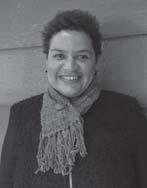
Final plenary session
P l e n a r y se s s i o n b y J a c k i e Ka y
Jackie Kay was born and brought up in Scotland. The Adoption Papers (Bloodaxe) won the Forward Prize, a Saltire prize and a Scottish Arts Council Prize. Fiere, her most recent collection of poems, was shortlisted for the Costa award. Her novel Trumpet won the Guardian Fiction Award and was shortlisted for the Impac award. Red Dust Road (Picador) won the Scottish Book of the Year Award, and the London Book Award. It was shortlisted for the JR Ackerley prize. She was awarded an MBE in 2006, and made a fellow of the Royal Society of Literature in 2002. Her book of stories Wish I Was Here won the Decibel British Book Award. She also writes for children and her book Red Cherry Red (Bloomsbury) won the Clype award. She has written extensively for stage and television. Her most recent plays Manchester Lines (produced by Manchester Library Theatre) and The New Maw Broon Monologues (produced by Glasgay) were a great success. Her most recent book is a collection of stories, Reality, Reality. She is currently working on her new novel, Bystander. She is Professor of Creative Writing at Newcastle University.
T h e i m a g i n e d l a n d
V S Naipaul said ‘all landscapes exist in the imagination.’ I grew up with an imaginary homeland as well as an actual one. Both the highlands and the islands of Scotland and the imaginary red dust roads of Nigeria fed my imagination. As an adopted child, I pictured the road less travelled, as well as the roads I did travel. I will be reading from my memoir Red Dust Road, and talking about imagined lands in my work; not just the red dust road of my ancestral village, but the original countries of people who have been exiled. I will read new poems based on the voices of three different Scottish refugees, and talking about the various creative ways that people, in a new country, recreate their original one. The Imagined Land is rich and fertile; it is lost and found. The life you didn’t live often runs alongside, or even underneath the life you actually did live. Through a mixture of poetry and prose, I’ll be exploring these rich themes and reopening the free border country of the imagination.
1415-1430 Closing address
Auditorium Carol Read, President of IATEFL, will make a closing address. There will be a free raffle for attendees of the final plenary and closing. The wonderful prize of an iPad mini is kindly sponsored by Collins.
1430 Book-signing by Jackie Kay
Level 5 foyer Jackie Kay is very happy to sign copies of books purchased on the day, courtesy of her publisher, Picador.
1430 IATEFL Conference Farewell
Level 5 foyer The conference ends with a complimentary snack in Level 5 foyer as we say farewell to you. We thank Collins for their sponsorship to enable us to offer this.
We look forward to welcoming you again at our 49th Annual International Conference in Manchester, UK, 11-14 April 2015.


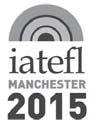
-177-
T o e n t e r th e ra f f le , y ou mu st h an d i n you r b a d g e an d l a n y ar d a s y ou e n te r th e A u d it or i u m f or J ac k i e K a y ’ s p le n a r y s e s si on . Y ou r b ad g e w il l n ot b e re tu rn e d t o y ou . No f u r t he r b a d g e s wi l l be a c c e p te d th at a r e n ot h a n d e d i n on a r r iv a l f or t h e p le n a ry
-177SATURDAY

Harrogate UK, 2-4 April 2014
Visit the Jobs Market in Hall D

Browse the posts on our Jobs Boardsyers
Speak informally with employers about a career or location moveyers
Apply for specific jobs on site yers
Interview with prospective employers
…this gave me new insights, and it was a great opportunity to network and meet people…I now feel better prepared for the future.
Candidate, Liverpool

Plus, join the discussion:
IATEFL Jobs Market Signature Event ‘ELT Training and Recruitment in the Digital Age’
Our panel event with leading specialists in the field takes place Weds. 2 April, 17.10 - 18.25 in King’s A. Find further details in your conference programme!























IATEFL Jobs Market
jobsmarket@iatefl.org www.iatefl.org @IATEFLjobs +44 (0)1795 591 414
‘‘ ” ‘‘ -178-
QUICK REFERENCE PAGES
The pages in this section contain –
Pages 179-187-Areas of interest
(Titles of sessions listed under their area of interest and in order of presentation time. The majority of sessions are listed under two areas of interest.)
Pages 189-203-Index of presenters
(Listed alphabetically by family name.)
Pages 204-205-Abbreviations, acronyms and initialisms
Pages 206-207-IATEFL committees, volunteers & staff
Pages 209-220-Annual General Meeting agenda & reports
Pages 222-223-Day planner for your use
(A place for you to note the sessions and events that you don’t want to miss!)
Page 224-Thinking space
(A page for you to write notes.)
Reference
Quick
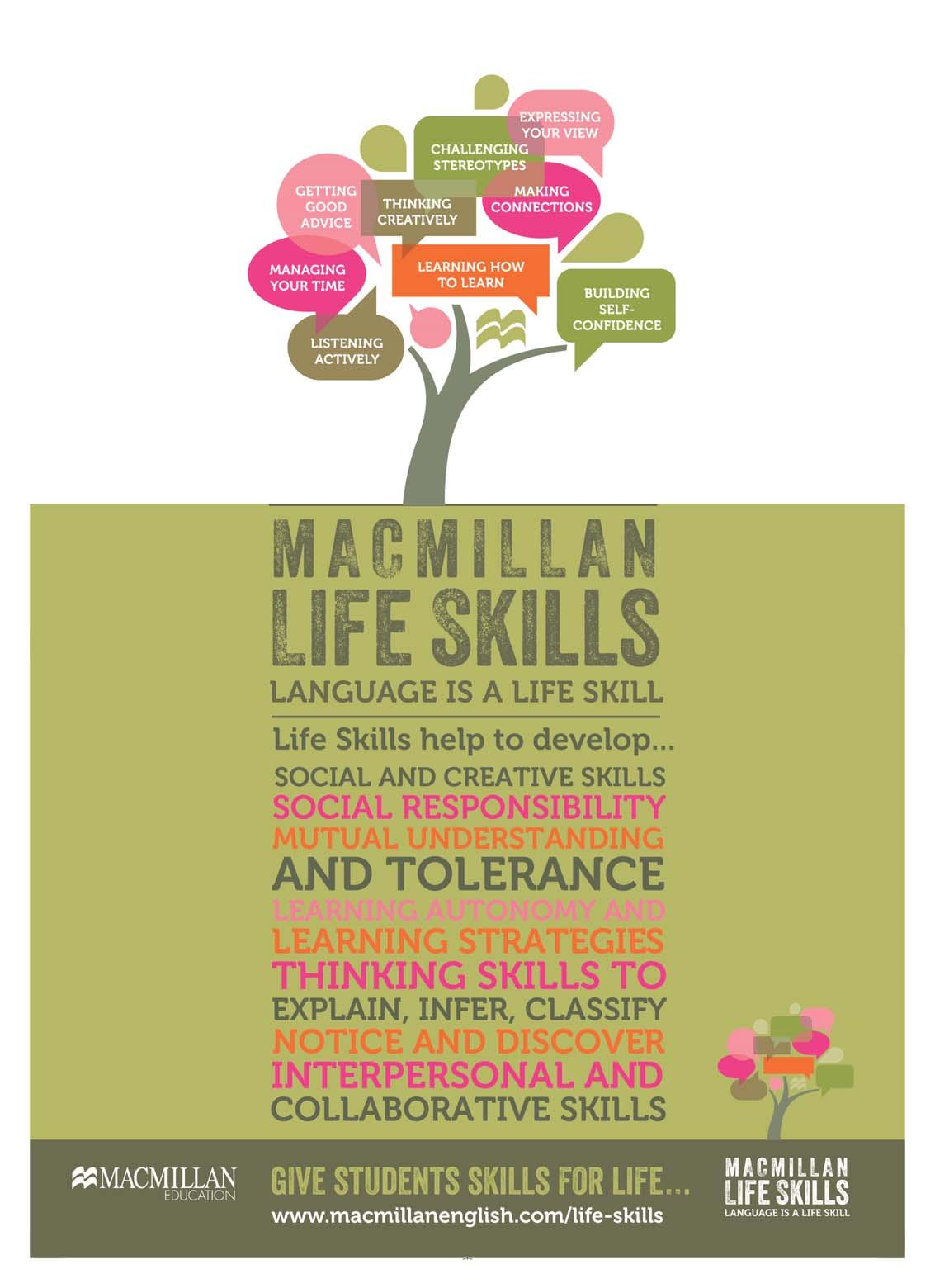
Quick Reference
Areas of interest
Listed in order of presentation . For example: 1.1 = Session 1.1 (Day 1, Session 1) 2.6 = Session 2.6 (Day 2, Session 6) 1.p = Poster presentation on Day 1
APPLIED LINGUISTICS
Insights into language learning psychology: bringing in teachers' perspectives 1.1
A source of learner motivation: teacher motivation
Motivation of learners of English as a foreign language revisited
The lexicon: a linguistic window to speakers' culture and cognition
Improving teacher enthusiasm for teaching effectiveness and better learning outcomes
To be (disfluent) or not to be? Disfluencies make... umm... native 1.4
Research within the field of applied linguistics: points to consider 1.p
Using literature to teach the illocutionary force of exclamatory sentences 1.p
Boosting and thwarting discussions in the classroom 1.p
Learners’ noticing in the process of L2 writing 2.2
Spoken grammar of English and identity
Using forensic linguistics in the ESL classroom
Raising cultural awareness through the global diversity of Englishes
Examining teachers’ purposes for code-switching in the Japanese EFL context
Collocation and the learner: wading into the depths
New horizons in the testing and teaching of listening
Helping EFL learners confront and react to potential rudeness/impoliteness
Writing for scholarly purposes in higher education in Taiwan 2.p
The benefits of classroom management and organisation in YLT 2.p
What can ESL/EFL grammars teach us about formality in English? 3.1
Understanding and tackling Chinese EFL learners' common collocation problems 3.2
Writing theory as practice
Spilling or spelling? Why do Arabic EFL learners stand out? 3.2
Constructing bilingual identities through a narrative approach 3.2
Teaching sentence-level syntax through reformulation as a composition feedback 3.3
Maximise creative literary reading in ELT
Idioms in the classroom and in ELF
ELT-related challenges in training pre-service teachers
Using participatory action research to empower teachers to teach pronunciation
Words: building students’ vocabulary
Strategies for critical thinking using questioning techniques
Spoken discourse analysis: awareness-raising activities for highlevel learners
Impact of vocabulary instruction on reading performance: issues and implications 4.1
BUSINESS ENGLISH
What do you say after “Hello”? Successful networking techniques
Teacher motivation and the prickly matter of handling feedback
And what do you think? Listening management techniques
Teaching business English in a global environment
Stop-and-go simulations in intercultural training
ESP or EGP: what do learners really need?
Improving ESP learning in Egyptian technical colleges
The ingredients of effective international human resources communication
Authentic business skills techniques adapted to business English classes
From academic corpus to business classroom: teaching
Teaching business English - are we doing it right?
Sorry, what did you
1.2
1.2
1.2
1.2
2.2
2.3
2.3
2.4
2.5
2.5
2.7
3.2
3.3
3.4
3.4
3.5
3.6
3.7
3.7
1.1
1.1
1.3
1.4
1.5
1.6
1.p
2.1
2.2
effectively 2.3 Language
relationships 2.4 English
2.5
English 2.6
appropriate vocabulary
for building business
as a lingua franca: how can we teach it?
Tech-enhanced traditional storytelling in business
2.7
3.3 Towards
English teaching in Algeria 3.3 Evaluating
ESP course implementation in a Mexican public university 3.3 How to
English activities 3.4 Working virtually:
for modern international communication 3.5 Top
test 3.5 Formative written skills assessment: do students learn from their mistakes? 3.7 Making the transition from business English trainer to intercultural trainer 4.1 Engaging the digital native 4.1 How to develop a career in Business English teaching 4.1 Can you write a good talk? 4.2 ENGLISH FOR ACADEMIC PURPOSES Building academic language support for international students 1.2 An academic English support program: increasing international students’ success rates 1.2 Environmental issues as a carrier for skill development in EGAP 1.2 The Impacts of Portfolio Learning on our Program 1.2 Building a student-generated glossary in the EAP classroom 1.2 Can think critically, can write academically, can work together 1.2 Exploring skills that help create analytical critical thinkers 1.2 Using verbal reporting to find out how students read 1.2 Developing writing models using students’ own work 1.2 Constructing classroom cultures which support student agency and initiative 1.3 Post-IELTS writing: helping students to understand and meet academic expectations 1.4 Using lecture notes to create domain corpora 1.4 To be (disfluent) or not to be? Disfluencies make... umm... native 1.4 Teaching academic presentation skills 1.5 Help with academic writing: a learner’s dictionary of academic English 1.7 Grammar teaching in the ESL context - graveyard to orchard 1.p Role and status of professional development and higher education outcomes 1.p "Like", a replacement for content words in Nigerian English? 1.p English role awareness - an EAP strategy in UNIKIN DRC 1.p How we made an English for Maths and Science course 1.p Action research on extensive reading: challenges and successes 1.p Teach me to study 2.1 Researching exploratory practice in EAP 2.1 Chalk and cheese: equivalency issues with IELTS and TOEFL 2.2 Learner engagement in the EAP classroom 2.2 Getting discipline-specific in the general EAP classroom 2.3 Literary film adaptations to combat demotivation and increase classroom interaction 2.3 Acquisition versus performance: reconceptualising plagiarism in English for academic purposes 2.3 CLIL science success: cognition, literacy, ICT and hands-on input 2.4 IELTS reading: those difficult questions! 2.4 A law unto itself: course design for legal English undergraduates 2.6 New EAP listening blueprint (just don’t mention IELTS!) 2.6 Learning from learning: exploring students' strategies used for reflective writing 2.7 Portfolio: student–teacher involvement in learning and assessment of writing 2.7 Learner-directed feedback: a useful tool for developing EAP writing skills 2.7 Peer oral feedback on student writing: what do students think? 2.7 Peer feedback: from foe to a friend 2.7 Improving English language learners' speaking skills through Web 2.0 2.7 Can translation classes improve students' English skills? 2.7 Writing for scholarly purposes in higher education in Taiwan 2.p How do engineers say that? Encouraging academic independence in EAP 3.1 EAP teacher practice: making it visible 3.3 Various dimensions of feedback in academic writing: a reflective approach 3.3 Teaching and learning EAP: developing roles, defining competences, sharing practices 3.4 Practice makes perfect: designing repetition into the speaking activity 3.5 Opening minds: critical thinking activities for academic success 3.5 Revisiting EAP to meet language needs of Omani engineering students 3.6 The VocabularyOrganizer: a new way to record lexis 3.7 NLP speaking and writing activities for academics 3.7 Talking success: improving performance in IELTS speaking 4.3 Yes, we can! 4.3 -179-
say?
quality business
an
write business
skills and confidence-building
tips for success on the TOEIC
Areas of interest
Building a sustainable Peacekeeping English Programme in francophone West
Improving ESP learning in Egyptian technical colleges
E N G L IS H F OR S P E C I F I C A C A DE M I C PU R P O S E S EAP writing: getting down and dirty 1.1 First-year medical students think aloud while reading academic English 1.2 Building
classroom 1.2 The
marking 1.3 Teaching academic presentation skills 1.5 Integrating pronunciation into teaching writing skills through text analysis 1.6 Teaching
through print media 1.6 Boosting
in the classroom 1.p Supporting parallel language use in a university administrative context 1.p Academic
from research to online delivery 2.1 From
teaching appropriate vocabulary effectively 2.3 Getting
in the general EAP classroom 2.3 Comparison of language levels across different languages 2.5 EMI for EMUs? English for university
why and how 2.5 Independent work at
level: new standards in Russia 2.p First and second language acquisition process: implications for EFL 2.p Teaching ESP at an economic university: looking for new techniques 3.3 Teaching academic English in a Lebanese university 4.1 Barlow's corpora analysis as an ESAP reading comprehension strategy 4.1 Can you write a good talk? 4.2 E N G L IS H F OR S P E C I F I C P U RP O S E S Sharing
training sessions
healthcare professionals 1.2 And
1.3
1.4 Stop-and-go
1.5 English
high tech 1.5 ESP
1.6
1.6
1.p
1.p
1.p
1.p "Bottom-up"
2.1 Getting
more involved in the tasks 2.2 Modern fiction as motivation booster in ESP classrooms 2.2 TechnoPlusEnglishgoes mobile – e&mLearning for engineering students 2.5 EMI for EMUs? English for university lecturers: why and how 2.5 A law unto itself: course design
legal English undergraduates 2.6
2.6 The
2.7 Teaching
2.7
2.7 Breathing life into presentations 2.7 How do engineers say that? Encouraging academic independence in EAP 3.1 Teaching English for Academic Purposes: insights from experience 3.2 EAP teacher practice: making it visible 3.3 Revisiting the trends towards specified training to ESP teachers 3.3 Evaluating an ESP course implementation in a Mexican public university 3.3 Teaching and learning EAP: developing roles, defining competences, sharing practices 3.4 Practice makes perfect: designing repetition into the speaking activity 3.5 Revisiting EAP to meet language needs of Omani engineering students 3.6 The VocabularyOrganizer: a new way to record lexis 3.7 How to develop a career in Business English teaching 4.1 E S (O ) L Project work for intercultural communicative competence 1.3 Teaching writing for social media: no laptop required 2.1 What drives the learner? Or, how to keep students motivated 2.2 Motivating young ESOL learners 2.3 Language teaching techniques which work 2.4 Becoming British: ESOL citizenship material and classroom pedagogy 2.5 College and community partnerships – pointers for success 2.6 Why do Malaysian L2 lecturers reject blended approach? A review 2.7 First and second language acquisition process: implications for EFL 2.p Content-based integrational learning approach and pupils' science achievement 2.p Raising awareness on classroom talk and silence 3.2 Investigating the spelling & pronunciation link 3.2 Using our immigrants' experience in teaching writing 3.3 Motivational conditions for TESOL pedagogy: a case study from Arabia 4.1 Low proficiency in English: political, socio-economic, and cultural reasons 4.1 G E N E RA L Student storytellers: retelling a tale using mental imagery 1.1 Brain power: are we using it to the full? 1.1 PunCTUation? Who needs IT! 1.1 Ready listening 1.2 Do it the other way - DITOW 1.3 Critical thinking and creative thinking skills for exam preparation 1.3 PlaytoLearn: practical and fun games for language learners 1.3 Moving words: using moving images to help students learn vocabulary 1.3 Differentiating instructions 1.3 Reasons for rhyming 1.3 Teacher as navigator: guiding students to identify and achieve success 1.5 Narratives: to enhance university prep students’ English 1.5 Creativity in the language classroom 1.5 Do we still need a self-access centre? 1.6 How far should we differentiate between learners due to gender? 1.6 Cambridge TKT in public and private schools in Rivers 1.6 Vision, role-playing and identity in language learning 1.6 The role of humor in the EFL classroom 1.6 Task based learning for inclusion of adults with special needs 1.7 A fresh approach to advanced listening practice materials 2.2 The long shadow of Latin 2.2 I speak meme! 2.2 Cross-language benchmarking: trial and results of a comparative approach 2.2 How does the silent way work in the classroom? 2.3 Does concentrating on grammar impede the effective learning of English? 2.3 What really matters in group dynamics 2.3 Still cutting up cards! Activities for storing and retrieving chunks 2.4 Yes, I can - fostering self-efficacy in language learners 2.5 Boost your brain with Readers! 2.6 The craft of speaking more effectively: for teachers and students 2.6 Enhancing learning through project based learning 2.7 Managing diversity: building key competences for international student exchange projects 2.7 You know what you can do with your microphone?! 2.7 Managing translation software in the language classroom 2.7 Teaching English to students at risk: a success story 2.p Dichotomy between expectations for language proficiency and dealing literature extensively 2.p Bilingual pattern drills: sentence variations as sense variations 3.2 Engaging students in a large ESL university level class 3.2 Impact of large classes on learning English in Ghana 3.2 Teaching speaking skills in large classes in Angola 3.2 A daring step towards active reading strategies 3.3 Greeting card writing activities: developing pragmatic competence in EFL classrooms 3.3 Twitter: how to best use it with English learners 3.3 Nudge, nudge, wink, wink – classroom activities for introducing indirectness 3.3 Reading into reading 3.4 The picture and the story 3.4 Making the most of minimal material 3.4 Shadowing and paraphrasing for oral expression enhancement in EFL 3.4 Stepping into the real world: transitioning listening 3.4 ELT at tertiary level in Libya: current and future developments 3.6 Leading teacher development programmes in Burma 3.6 Developing materials for young learners: can children take the lead? 3.7 Increasing motivation through topic, text and treatment 4.1 Write here, write now 4.2 Talking about speaking: practice and theory 4.3 Hornby Scholarship impact on teacher education in West Bengal 4.3 -180-
a student-generated glossary in the EAP
joys of IELTS
and learning FLP
and thwarting discussions
writing materials:
academic corpus to business classroom:
discipline-specific
lecturers:
university
ESP lessons with on-the-job
for
what do you think? Listening management techniques
Africa
simulations in intercultural training
for healthcare professionals: from low to
or EGP: what do learners really need?
What does the CEFR offer ESP teachers?
English use in the Austrian workplace: a longitudinal study
How we made an English for Maths and Science course
Supporting parallel language use in a university administrative context
tests to meet the needs of learners?
students
for
Materials for teaching English to musicians
potential of technology for language learning: the students’ perspective
business English - are we doing it right?
Putting teachers first: an adaptive learning platform for tertiary ESP
Motivating students in the EFL classroom
Engage and involve: bringing projects into the 21st Century
Amazing people teach English: new graded readers from Collins 4.3
GLOBAL ISSUES
Read, play, love changing perceptions of L2 reading
Critical thinking skills: what they are, how to use them
Better together: native and non-native speakers on pre-service training courses
Teaching and learning FLP through print media
Exploiting the audience to increase motivation
Massive closed online courses for language learning: do they work?
Using newspapers in the classroom: personal experience
grammar of English and identity
Raising cultural awareness through the global diversity of Englishes
Indonesian English-medium instruction: policy, controversy and practicalities
Encouraging students to go abroad - the language classroom’s role
and internationalization of education: The American University in Cairo
Parental attitudes towards English in state primary schools, Assam, India
Can global issues provide authenticity and context in English teaching?
Widening horizons with YouTube - ways of going deeper
Beyond story - the pedagogical and social potential of stories
Global education meets visual literacy: reading global images critically
Eco-conscious ESL: reducing our carbon footprint with alternative methodologies
Low proficiency in English: political, socio-economic, and cultural reasons
Syrian refugee children in Lebanon: a multilingual response
LEADERSHIP & MANAGEMENT
How to recruit the best English language teachers for your business
Cultivating a community of practice
Be the DoS you want to be
Informal learning is the new black in management development?
Evidence-based observation - tips and tools
From INSETT to CPD - an ELT autobiography
Leading not managing: assertive, aggressive or just plain awkward?
The ingredients of effective international human resources
Challenges of maintaining CPD with experienced staff
Using emotional intelligence in a multicultural learning environment
Old name, new game: “I want to study here!”
How do you become an effective academic manager overnight?
What makes teachers tick?
English outreach: use your influence to impact your wider community
PEELIng back the layers: Project management as an evolutionary process
Lesson observation using 21st Century technology
Areas of interest
1 (Day 1, Session 1) 2 6 = Session 2 6 (Day 2, Session 6) 1 p = Poster presentation on Day 1
4.3
Listed in order of presentation For example: 1 1 = Session 1
4.3
4.3
Transforming EFL listening materials
1.1
1.5
1.5
1.6
1.p
2.1
2.2
2.2
Spoken
2.3
2.6
2.7
2.7
Identity
2.7
3.1
3.3
3.4
3.5
3.6
4.1
4.2
1.1
1.2
1.3
1.4
1.5
1.6
1.7
2.1
2.2
communication
2.p
2.p
3.1
3.1
3.2
3.2
3.2 Strategies for implementing CLIL at tertiary level 3.3 Empowering student leadership 3.3 The
developing a new language curriculum 3.4 Change:
3.4 Finding
3.5 Training state school teachers across Brazil: a case study 3.5 The EPG
tool for assessing language teaching competences 3.6 Doing
all: why is delegating such a tough task? 3.6 AISLi
days – creating a national EFL management network 3.7 How to create an ELT manager’s professional development toolkit 3.7 Helping young learner parents feel a sense of progress 3.7 Managing a young learner ELT centre – essential training and preparation 4.2 Managing education in the digital age 4.2 Refresh your ELT project planning know-how 4.3 LEARNER AUTONOMY Read, play, love changing perceptions of L2 reading 1.1 Using drama to improve creative writing in the ELT classroom 1.1 Study, work, life: developing transferable skills across domains 1.1 Teaching English via computer games: merits and critique 1.2 The Impacts of Portfolio Learning on our Program 1.2 Can think critically, can write academically, can work together 1.2 Developing writing models using students’ own work 1.2 Project work for intercultural communicative competence 1.3 A comparison study: students’ and teachers’ perceptions of learner autonomy 1.4 Using lecture notes to create domain corpora 1.4 Give your teaching the coaching twist 1.4 Learner autonomy through free play in pre-primary English 1.4 Study skills - teaching learners how to learn 1.6 The pedagogy behind digital education: reality or myth? 1.7 Using problem-based learning with the use of sign language 1.p Fostering learner autonomy in a writing centre: a metacognitive perspective 1.p Level- and content-differentiated EFL courses at tertiary level 1.p Developing helpful mindsets and perceptions of success 2.1 Teach me to study 2.1 Developing autonomy through learning portfolio written tasks: students' perceptions 2.1 Students’ voices: science-major students learning English in Japan 2.1 What drives the learner? Or, how to keep students motivated 2.2 Language practice: what it means to experienced teachers 2.2 How effective is e-language learning software in fostering learner autonomy? 2.3 A blended learning model that really made a difference 2.4 Effective learning: the how and when of mobile devices 2.4 Promoting speaking skills and learners' self-efficacy 2.4 Motivating language learners in online courses 2.5 Reciprocal teaching: group work with an interactive structure 2.7 Developing students' extensive listening skills 2.7 Evoking vocabulary 2.7 Independent work at university level: new standards in Russia 2.p Linguistic landscapes: learning from the language all around us 3.1 Improving classroom practice through the effective use of student journals 3.2 Developing a learning diary - getting teachers involved 3.2 Facebook and Evernote: SdL and CoL affordances for language learners 3.3 Dogme in the classroom: doing drama devised by students 3.3 Facilitating student progress and assessment for learning: the teacher’s perspective 3.4 Portfolios in the EFL classroom - the route to progress? 3.5 The interdependence of language teacher and language learner motivation 3.6 Introducing self-assessment in writing to adult English learners 4.1 An integrated approach to teaching active listening 4.2 Getting students to do your prep 4.3 LEARNING TECHNOLOGIES Lessons with music and technology 1.1 Quick 'n dirty – a survival kit for the digital jungle 1.1 The CBB teacher education project in rural Sri Lanka 1.1 I-feedback 1.1 Building academic language support for international students 1.2 An academic English support program: increasing international students’ success rates 1.2 How (or possibly how not) to self-publish high-quality apps 1.2 Gamified language educational e-tivities: chocolate-covered broccoli or honey-coated peas? 1.2 Teaching English via computer games: merits and critique 1.2 Personalizing large online courses 1.2 Taking tablets in the classroom, a remedy for everyone? 1.3 Technology-enhanced writing classes from a socio-cultural perspective 1.3 Together in electric dreams: pondering the future of EdTech 1.3 The blended ‘flipped’ classroom - an effective model for language learning 1.4 TeachingEnglish: developing the global home for teachers 1.4 Continuous professional development: blended vs. distant 1.4 Teaching with mobile devices: choices and challenges 1.5 Tech hacks for classroom activities, materials writing and course design 1.5 Top tips for making great screencast videos 1.5 English for healthcare professionals: from low to high tech 1.5 -181-
CEFR in Uzbekistan:
teachers hate it; managers fear it. True or false?
out about teaching
- a
it
DoS
Areas of interest
pedagogy behind digital education: reality or myth?
Designing a significant online learning course to enhance students' learning
from the leading edge: what EdTech means for ELT
Successful team-teaching in a blended-learning context. Key ingredients
formative assessment: models of post-test activities
blended learning model that really made a difference
moving image: a history of video in ELT
Ways of promoting creativity in the classroom
1.6
1.6 Identity
1.6
1.7 The
1.7
How mPedagogy can address diverse learning needs in multilingual contexts
Blogs and forums with higher levels: what? why? how?
and engagement in language teacher education
TeachingEnglish Radio India: using audio resources for teacher development
1.7
Ideas on how to incorporate computer mediated communication in EFL
1.7 CAMELOT
1.7
1.7 Mobile-supported
1.7
1.p Using
1.p Using
2.1 Teaching
required 2.1 The
online 2.1 Speech recognition in
its impact on teachers and learners 2.1 Dictionary apps - a perfect partnership for the classroom and beyond 2.1 IWBs in ELT: a real revolution or just a makeover? 2.1 Save paper
energy – convert your materials to Moodle 2.1 Academic
2.1 Massive
2.1
2.2
2.2 Can
2.2 How
2.3
2.3 Mobile-assisted
2.3 A
2.4 Integrating
2.4
2.4 The
2.4 Effective
2.4 The
2.4
2.4
2.5 TechnoPlusEnglishgoes mobile – e&mLearning for engineering students 2.5 The
2.5 Motivating
2.5 Redefining learning: integrating tablets in the YL classroom 2.6 Tech tools to promote critical thinking skills in ELT 2.6 Transforming internet users into digital citizens 2.6 Deconstructing video 2.6 Effects of multimedia help options on
vocabulary acquisition 2.7 The potential
for
learning:
perspective 2.7
skills 2.7
ESP 2.7
2.7
blended approach? A review 2.7 From curation to creation 2.7 Improving English language learners' speaking skills through Web 2.0 2.7 E-portfolios: E-ng@ging young learners in assessment 2.7 Mobile devices as a means of alternative assesment 2.p Literature and learning technologies: an experience in pre-service teacher education 3.1 Strategies for effective live online teaching and learning 3.1 Mobile devices and apps for language learning: support or distraction? 3.1 Lesson learned from a ‘language MOOC’ pilot 3.2 Creating and distributing mobile learning materials in resource-poor environments 3.2 Automated assessment research and benchmarking to the CEFR at B1/B2 3.2 Making the most of e-book readers 3.3 Facebook and Evernote: SdL and CoL affordances for language learners 3.3 The use of technology for English learning: the Ivorian experience 3.3 Teachers' and Japanese students' perceptions of Pocket Electronic Dictionaries (PEDs) 3.3 Flippin' IELTS 3.4 Exploiting video in the language classroom 3.4 Digital storytelling: the power of personal narrative in ITT 3.5 Online tools for analysing lexis, grammar and discourse in texts 3.6 TRUE grit: blended teacher training in Thailand 3.6 A wiki for IELTS exam-takers 4.1 Engaging the digital native 4.1 Using blended learning techniques to improve pronunciation and fluency 4.1 LearnEnglish audio pilot Nigeria 4.1 Managing education in the digital age 4.2 New generation learning: from traditional print to digital materials 4.2 Digital technology for developing teachers and teachers new to technology 4.3 21st Century English learners creating multimedia e-portfolios 4.3 Yes, we can! 4.3 LITERATURE, MEDIA & CULTURAL STUDIES Told Poem interviews: developing intercultural communication and peace-building skills 1.1 Initiating students to poetry: a task-based approach 1.2 Contemporary poems in ELT: effective commentaries and exercises 1.2 Welcome to wonderland – teaching literature in the digital era 1.3 Nigerian war literature: neologisms, transliteration and the English language classroom 1.7 Using modern fiction for online reading development 2.1 Exploring cultural values in film 2.1 Bringing the past to life in the ELT classroom 2.1 Literary film adaptations to combat demotivation and increase classroom interaction 2.3 Learners’ identity in L2 mirror: classroom exploration for students/teachers 2.7 The language representation of the British ethical value “self-control” 2.7 Literature and learning technologies: an experience in pre-service teacher education 3.1 Graphic narratives: ideal choice for both reluctant and ambitious readers 3.2 Versatile beginnings 3.3 Maximise creative literary reading in ELT 3.3 Remembrance and memorials: constructing cultural memory 3.4 Building up amazing projects through creative learning 3.5 Reading for pleasure: a path to learner autonomy? 3.6 Popularising the classics: creative activities inspired by the movie industry 4.2 Changing attitudes to using songs & song lyrics in EFL 4.2 MATERIALS DEVELOPMENT Writing for digital: challenges and solutions 1.1 Priming for listening: what can we do? 1.1 I-feedback 1.1 Gamified language educational e-tivities: chocolate-covered broccoli or honey-coated peas? 1.2 Environmental issues as a carrier for skill development in EGAP 1.2 Developing and implementing the Uzbek Model of European Language Portfolio 1.2 Global coursebooks: helpful scaffold or debilitating crutch? 1.2 From a seed into a flower 1.3 More than just a worksheet: writing effective classroom materials 1.3 Do materials writers have principles? 1.4 IELTS Writing Task 1: making it interesting 1.5 Language play in practice: intrinsic motivation and basic desires 1.5 Tech hacks for classroom activities, materials writing and course design 1.5 Designing a significant online learning course to enhance students' learning 1.p Save paper and energy – convert your materials to Moodle 2.1 English TV lessons for Palestinian refugees: difficulties and developments 2.3 Acquisition versus performance: reconceptualising plagiarism in English for academic purposes 2.3 21 tips to be a 21st Century teacher 2.4 Create original language learning activities from Top 40 songs 2.4 What is the future of ELT materials design and development? 2.5 Content, consumption and production: three types of ELT textbook research 2.5 How to choose your coursebook - putting principles into practice 2.6 Moving up: B2 and C1 learner profiles 2.6 Materials for teaching English to musicians 2.6 The teaching of listening in global and local textbooks 2.7 -182-
Helping students with screen-based reading without headaches!
and the mists of AVALON
Learning technologies for the classroom – a whirlwind tour
collaborative environment for developing learner language skills
problem-based learning with the use of sign language
modern fiction for online reading development
writing for social media: no laptop
flipped classroom: scaffolding community
ELT:
and
writing materials: from research to online delivery
closed online courses for language learning: do they work?
Telepresence teaching in Uruguayan primary schools: is it delivering results?
Learning
computers really rate students' essays?
effective is e-language learning software in fostering learner autonomy?
21st Century skills effectively into your PBL syllabus
Teacher iPad - making it a complete teaching tool
power of PowerPoint
learning: the how and when of mobile devices
What is the future of ELT materials design and development?
use of mobile technologies in education - mind the gap
language learners in online courses
L2
of technology
language
the students’
Developing students' extensive listening
Putting teachers first: an adaptive learning platform for tertiary
Girls of Riyadh, Boys from Jeddah: a community of curators
Why do Malaysian L2 lecturers reject
teaching of listening in global and local textbooks
Girls of Riyadh, Boys from Jeddah: a community of curators
What can ESL/EFL grammars teach us about formality in English?
Creativity - for a change
Getting our students in flow: the creative teacher's ultimate challenge
Why do we still need creativity in a language class?
to write business English activities
How to get your teaching resources published on TeachitELT
Training teachers to be writers
Teaching ESL beginners using corpus linguistics in a lexical approach
What lies beyond? CPD with lasting impact
PRONUNCIATION
Teaching practices for the systematization
Areas of interest
Listed
1.1 = Session 1.1 (Day 1, Session 1) 2.6 = Session 2.6 (Day 2, Session 6) 1.p = Poster presentation on Day 1 Bridging the gap between learning materials and an English-speaking environment 2.7 What lies beneath the surface? Coursebooks and their classroom use 2.7 Teaching English in multilingual classes: yet how? 2.p Raising awareness on classroom talk and silence 3.2 Creating and distributing mobile learning materials in resource-poor environments 3.2 Using creativity and humanism in ELT 3.2 Creativity in ELT: from communicative to creative tasks 3.2 Task leading to task: priming and preparation activities for TBL 3.2 Making the most of e-book readers 3.3 Language chunks that improve speaking and writing 3.3 Critical thinking and EFL: teaching a perfect blend 3.3 Opening minds: critical thinking activities for academic success 3.5 Training teachers to be writers 3.7 Effective teaching of science to young English language learners 4.1 New generation learning: from traditional print to digital materials 4.2 MATERIALS WRITING Writing for digital: challenges and solutions 1.1 Kickstarter and ELT publishing 1.2 How (or possibly how not) to self-publish high-quality apps 1.2 More
writing effective classroom materials 1.3 Do
writers
1.4 Lexical sets, texts and vocabulary choice 1.5 So
into
1.6 Authentic
2.2 The moving image:
history of video in ELT 2.4 Content, consumption and production: three types of ELT textbook research 2.5 Large
materials designers 2.6 How
song 2.6 The
2.7
in order of presentation. For example:
than just a worksheet:
materials
have principles?
what does that involve? Incorporating general vocabulary
topics
business skills techniques adapted to business English classes
a
classes: implications for teachers and
to write a language-learning action
2.7
3.1
3.3
3.3
3.3 Putting the
3.3 Creative reading in teacher development 3.3 Creative use of the coursebook 3.3 Every
3.3 How
3.4
human centre stage
teacher a courseware author?
3.6
3.7
4.1
4.3
of pronunciation teaching 1.2 Recording students to raise awareness of pronunciation strengths and weaknesses 1.2 Research
practice: revisiting some 'old-fashioned' notions in pronunciation teaching 1.4 Really teaching listening
pray'!) 1.5 Integrating pronunciation into teaching writing skills through text analysis 1.6 Pronunciation and listening require different models of speech 2.1 Pronunciation and e-portfolios: developing self-regulatory skills and self-esteem 2.2 Inconspicuous yet powerful: neutral vowel schwa and its didactic potential 2.3 Pronouncing meaning: rhythm and stress games 2.4 Practical pronunciation ideas for teaching in an ELF context 2.5 PEPFT - a pronunciation course for teachers 2.6 Stress AND reduction: both are essential for English pronunciation 2.7 Pronunciation: skill to be taught, but often neglected by teachers 2.p Multi-sensory and phonosemantic techniques in teaching pronunciation 3.1 The importance of a near-native pronunciation 3.2 Investigating the spelling & pronunciation link 3.2 Language chunks that improve speaking and writing 3.3 Using participatory action research to empower teachers to teach pronunciation 3.5 New pronunciation exercises that really help students handle fluent speech 3.7 Using blended learning techniques to improve pronunciation and fluency 4.1 Helping high-level learners understand native speaker conversations 4.3 RESEARCH Insights into language learning psychology: bringing in teachers' perspectives 1.1 Managing teacher-research: a project with Chilean secondary school teachers 1.2 Action research for teacher learning: opportunities and challenges 1.2 Helping teachers become action researchers through (despite?) teacher education 1.2 Watching our words – researching and developing language counselling 1.3 Children and teachers becoming researchers – a project in India 1.4 First experience of exploratory/action research: improving oral presentations 1.6 The contribution of exploratory practice to professional development: research findings 1.7 Research within the field of applied linguistics: points to consider 1.p Using literature to teach the illocutionary force of exclamatory sentences 1.p Personalisation in ELT 2.1 Investigating praise and positive feedback in children's classrooms 2.1 Developing helpful mindsets and perceptions of success 2.1 Researching exploratory practice in EAP 2.1 Developing autonomy through learning portfolio written tasks: students' perceptions 2.1 Can preparation activities for external exams help develop speaking proficiency? 2.2 The integration of moral and emotional education into EFL classrooms 2.3 Enhancing learner awareness in academic writing: an action research 2.3 Examining teachers’ purposes for code-switching in the Japanese EFL context 2.4 Becoming British: ESOL citizenship material and classroom pedagogy 2.5 Group or individual essay assignment in English: the students' choice 2.5 The use of mobile technologies in education - mind the gap 2.5 Linguistic landscaping: a look at Mexico City 2.5 Encouraging students to go abroad - the language classroom’s role 2.7 Identity and internationalization of education: The American University in Cairo 2.7 Learners’ identity in L2 mirror: classroom exploration for students/teachers 2.7 Investigating sources of familiarity in developing professional knowledge 2.7 Investigating professional confidence in developing teacher classroom language 2.7 Investigating professional confidence in teacher learning and development 2.7 Parental attitudes towards English in state primary schools, Assam, India 2.7 Chilean young learners’ perspectives on their EFL lesson 2.7 The earlier the better? Empirical results on primary EFL instruction 2.7 Preparing students for an academic presentation: maximising class time 2.7 Helping EFL learners confront and react to potential rudeness/impoliteness 2.7 The language representation of the British ethical value “self-control” 2.7 EFL teachers’ need for recognition 2.7 Can translation classes improve students' English skills? 2.7 What lies beneath the surface? Coursebooks and their classroom use 2.7 Using social context in English language teaching in Japan 2.p Content-based integrational learning approach and pupils' science achievement 2.p Rethinking communicative language teaching 3.1 Reciprocal coaching as teachers’ professional development 3.1 And the pragmatics of and 3.1 One teacher's journey towards self-efficacy and professional development 3.2 Does anyone care about writing skills anymore? 3.2 Language learners' experience with, and views on, graded reading 3.2 Constructing bilingual identities through a narrative approach 3.2 Identity in English classrooms: children’s narratives on person, place, experience 3.3 -183-
into
and pronunciation (not just ‘play and
Areas of interest
Teachers' and Japanese students' perceptions of Pocket
DEVELOPMENT
3.3 What
3.5 Online
in texts 3.6 Is
synonymous with evaluation? 3.7
4.1
Electronic Dictionaries (PEDs)
is the nature of rapport in classroom assessment?
tools for analysing lexis, grammar and discourse
observation
Barlow's corpora analysis as an ESAP reading comprehension strategy
lexical approach 4.1
inconsistencies in attitude: towards a reconciliation 4.1 Teaching language awareness: exploring advanced learners' metalinguistic knowledge 4.2 Observations on teachers’ knowledge growth in communicative language teaching 4.2
networking techniques 1.1 Teacher
handling feedback 1.1 Adult
next hurdle 1.1 Cultivating a community of practice 1.2 Teachers' perceptions of reflective teaching as a teacher development tool 1.2 A source of learner motivation: teacher motivation 1.2 Measuring online teacher learning through performance assessment: theory and practice 1.2 Revisiting the pre-, while-, and post-reading framework 1.2 Coaching as a tool to promote teacher development 1.2 Coaching for teacher performance capacity - the purpose, the process 1.2 FOCI: an inter-institutional network for building a professional learning community 1.2 Creating sustainable teacher training programmes in the Egyptian Delta region 1.2 EL teachers recovering from burnout in Egyptian technical colleges 1.2 Watching our words – researching and developing language counselling 1.3 Together in electric dreams: pondering the future of EdTech 1.3 Preflection - lesson planning you don't have to rely on 1.3 Something to say: prompted oral fluency exercises 1.3 Critical incidents in language teachers' CPD 1.3 How assessment influences the
of English 1.3 Post-IELTS
students to understand and meet academic expectations 1.4
from
the world 1.4 Tutor intervention in
TP - helping or hindering? 1.4 TeachingEnglish:
1.4 Supporting
teacher development 1.4 Give
the coaching twist 1.4 Continuous professional development: blended vs.
1.4 Language play in practice: intrinsic motivation and basic desires 1.5 Teacher development:
lifelong developmental project 1.5 Don’t
1.5 Motivating language teachers through vision 1.5 Top tips for making great screencast videos 1.5 What
Exploring
in education 1.5 Critical
1.5 First
improving oral presentations 1.6 Leaping before you look 1.6 Study skills - teaching learners how to learn 1.6 Box-ticking or mind-mapping? Questions about ELT professional knowledge 1.6 Improving the quality of English teaching in South African schools 1.6 Blogs and forums with higher levels: what? why? how? 1.6 Identity and engagement in language teacher education 1.6 Implementing a CPD programme in a developing context 1.6 TeachingEnglish Radio India: using audio resources for teacher development 1.7 The contribution of exploratory practice to professional development: research findings 1.7 The impact of in-service workshops on English language teacher motivation 1.7 A ‘Bloom’ing good idea: developing critical thinking in teacher education 1.7 A code for objective writing: an action research study 1.7 Confidence and competence: learning English through teacher training in Africa 1.7 Using the power of habit to change teaching behaviour 1.7 Learning technologies for the classroom – a whirlwind tour 1.7 Cascading training: from trickle to torrent 1.7 Teaching strategies in FLT within intercultural approach: solving conflicts 1.p Role and status of professional development and higher education outcomes 1.p Multiple intelligences theory: two experiences with young learners 1.p The way of innovation and relevance to teachers of English 1.p Professional development through the assessment of learners 1.p Implementing teacher portfolios for professional development 2.1 Challenges of maintaining CPD with experienced staff 2.2 The hole in the classroom wall 2.3 Try before you buy. A framework for conversation-based learning 2.4 The accommodating teacher: are you intelligible to your students? 2.5 PEPFT - a pronunciation course for teachers 2.6 Improvisation: where teachers fear to tread 2.6 Teachers change learners, learners change teachers: changing methodologies 2.7 EFL teachers’ need for recognition 2.7 Using social context in English language teaching in Japan 2.p Study of using students' majors and speaking Globish 2.p University EFL teacher learning in community of practice 2.p Using emotional intelligence in a multicultural learning environment 2.p Organic and sustainable language learning at secondary school 2.p Implementing a mentoring programme: meeting teachers' professional needs 2.p Local association: a bridge from CPD to teacher appraisal 2.p Developing competences: a framework for teacher professional development 3.1 EnglishAgenda: a web resource for continuing professional development 3.1 Evaluating the long-term impact of a primary teacher training course 3.1 Learning dynamics and English language teaching 3.1 Locating CPD in English teachers in tertiary education in India 3.1 Blending reflective and dialogue journal to leverage professional skill development 3.2 Teaching English for Academic Purposes: insights from experience 3.2 Do you work or just teach? Career perspectives in EFL 3.2 “What’s wrong with him?” A matter of type and style! 3.2 One teacher's journey towards self-efficacy and professional development 3.2 Lesson observation using 21st Century technology 3.2 From being a teacher to being a role model 3.2 Developing a learning diary - getting teachers involved 3.2 Pre-service English teachers' identity construction during teaching practicum 3.2 Fast alone, far together: a teacher development scheme 3.2 Devising professional development for teachers: challenges and strategies 3.2 Continuous professional development in Georgia: challenges and future plans 3.2 Revisiting the trends towards specified training to ESP teachers 3.3 In-class anxiety experienced by ESL teachers 3.3 Non-native English-speaking teachers’ cognitions as a complex adaptive system 3.3 Novice and experienced teachers’ reflection and efficacy: relationship and difference 3.3 Professional development in the experimental practice jungle 3.3 Building communities in young learner classrooms: redefining classroom management 3.3 Every teacher a courseware author? 3.3 Challenged by the 21st Century student? 3.3 Reflective practice: it's a matter of asking questions 3.4 The CEFR in Uzbekistan: developing a new language curriculum 3.4 Change: teachers hate it; managers fear it. True or false? 3.4 Mirror on the wall, who’s the best teacher of all? 3.4 ELT-related challenges in training pre-service teachers 3.4 New insights from language research? Let’s inform the classroom! 3.5 My voice my choice: teens, creative freedom and control 3.5 Finding out about teaching 3.5 Trainee as impostor: challenges of trainees’ self-evaluation of their teaching 3.5 Making lesson observation a teacher’s best friend, not the enemy 3.5 Training state school teachers across Brazil: a case study 3.5 Pictures and sketches: for enhanced classroom engagement and expanding ideas 3.6 Frames for teaching teachers 3.6 The EPG - a tool for assessing language teaching competences 3.6 Personalising your teaching with anecdotes 3.6 -184-
Teaching ESL beginners using corpus linguistics in a
Teacher-student
TEACHER
What do you say after “Hello”? Successful
motivation and the prickly matter of
learners: helping them clear the
classroom teaching and learning
writing: helping
Headway: the 10 most common questions
around
CELTA
developing the global home for teachers
state education teachers: new approaches to
your teaching
distant
a
believe in fairy tales: critical thinking in teacher development
is normal?
issues around cultural identity
thinking skills: what they are, how to use them
experience of exploratory/action research:
TEACHER TRAINING & EDUCATION
CBB teacher education project in rural Sri Lanka
Poem
on inclusive education: and that includes you!
teacher enthusiasm for teaching effectiveness and better
a seed into a flower
Areas of interest
Listed in order of presentation For example: 1 1 = Session 1 1 (Day 1, Session 1) 2 6 = Session 2 6 (Day 2, Session 6) 1 p = Poster presentation on Day 1 The challenges of creating meaningful online professional development courses 3.6 Dancing with a colleague in EFL classrooms: a co-teaching reflection 3.6 A 10-day Devon Unplugged course that shook my classroom 3.6 The interdependence of language teacher and language learner motivation 3.6 AdvancedCourseManagement- a modern approach to CELTA assessment 3.7 Is observation synonymous with evaluation? 3.7 AISLi DoS days – creating a national EFL management network 3.7 Collaborative learning: how does it help us to learn languages? 3.7 Using teacher competency frameworks for continuous professional development 3.7 Teaching unplugged (in a technological era) 3.7 Twenty things in twenty years: this much I know 4.1 Integrating skills in EFL classes using video and sound effects 4.1 Reflecting on the delivery of an online CPD programme 4.1 Reality check: an investigation of teacher training in Algeria 4.2 Developing student-teachers’ reflective skills and knowledge through Globalidadesradio programme 4.2 Be a great teacher - become a mentor 4.2 Evidence for a successful cascade teacher training project in Nepal 4.2 An integrated approach to teaching active listening 4.2 Trends in EFL teacher training and learning in Vietnam 4.3 The place is here and the time is now 4.3 The big picture: metaphor work with Iraqi education professionals 4.3 What lies beyond? CPD with lasting impact 4.3
1.1 Demand
1.1 Using
1.1 The
1.1 Told
interviews: developing intercultural communication and peace-building skills 1.1 Teachers' perceptions of reflective teaching as a teacher development tool 1.2 Reflecting on reflection 1.2 Measuring online teacher learning through performance assessment: theory and practice 1.2 Personalizing large online courses 1.2 Coaching
1.2 Creating
1.2 Thoughts
1.2 Improving
1.2 From
1.3 Taking tablets in
1.3 Preflection - lesson planning
to
on 1.3 How assessment influences the
teaching
learning of English 1.3 Dyslexia for
1.3 Surviving language teaching 1.4 A
pseudo-science in English language teaching 1.4 Tutor intervention in CELTA TP - helping or hindering? 1.4 Supporting state education teachers: new approaches to teacher development 1.4 Evidence-based observation - tips and tools 1.5 Don’t believe in fairy tales: critical thinking in teacher development 1.5 Motivating language teachers through vision 1.5 Better together: native and non-native speakers on pre-service training courses 1.5 From INSETT to CPD - an ELT autobiography 1.6 Leaping before you look 1.6 Box-ticking or mind-mapping? Questions about ELT professional knowledge 1.6 Improving the quality of English teaching in South African schools 1.6 What does the CEFR offer ESP teachers? 1.6 Implementing a CPD programme in a developing context 1.6 A code for objective writing: an action research study 1.7 Confidence and competence: learning English through teacher training in Africa 1.7 Cascading training: from trickle to torrent 1.7 The impact of trainers' oral feedback: a discourse analysis study 1.7 An old rule applied anew 1.p Teaching strategies in FLT within intercultural approach: solving conflicts 1.p The way of innovation and relevance to teachers of English 1.p Professional development through the assessment of learners 1.p Materials in student teachers' EFL classes 1.p The flipped classroom: scaffolding community online 2.1 Training EFL teachers to work with pupils’ parents 2.2 The bare necessities of ELT life 2.3 Developing teacher educators, developing teacher education 2.4 Upgrade! Demand high to bring a grammar lesson alive 2.6 Investigating sources of familiarity in developing professional knowledge 2.7 Investigating professional confidence in developing teacher classroom language 2.7 Investigating professional confidence in teacher learning and development 2.7 BLISSfully developing basic teacher education materials 2.7 Two teams, one goal: Pro-ELT. English language teaching in Malaysia 2.7 Teachers change learners, learners change teachers: changing methodologies 2.7 Applying CEFR principles to testing and assessment in practice 2.p Study of using students' majors and speaking Globish 2.p University EFL teacher learning in community of practice 2.p Implementing a mentoring programme: meeting teachers' professional needs 2.p Confidence and competence: teachers learning English in Ethiopia and Sudan 2.p Integrating CELTA assessment requirements into a university undergraduate module 3.1 Rethinking communicative language teaching 3.1 Developing competences: a framework for teacher professional development 3.1 Reciprocal coaching as teachers’ professional development 3.1 Learning dynamics and English language teaching 3.1 Locating CPD in English teachers in tertiary education in India 3.1 English outreach: use your influence to impact your wider community 3.2 PEELIng back the layers: Project management as an evolutionary process 3.2 Blending reflective and dialogue journal to leverage professional skill development 3.2 Implementing public bilingual education in Brazil 3.2 Using creativity and humanism in ELT 3.2 “What’s wrong with him?” A matter of type and style! 3.2 What the teenage classroom can teach us about contemporary society 3.2 Pre-service English teachers' identity construction during teaching practicum 3.2 In-class anxiety experienced by ESL teachers 3.3 Non-native English-speaking teachers’ cognitions as a complex adaptive system 3.3 Novice and experienced teachers’ reflection and efficacy: relationship and difference 3.3 Strategies for implementing CLIL at tertiary level 3.3 Making maximum use of audio scripts 3.3 Reflective practice: it's a matter of asking questions 3.4 Mirror on the wall, who’s the best teacher of all? 3.4 Making the most of innovative British Council/IATEFL resources 3.5 Digital storytelling: the power of personal narrative in ITT 3.5 New insights from language research? Let’s inform the classroom! 3.5 Trainee as impostor: challenges of trainees’ self-evaluation of their teaching 3.5 What is the nature of rapport in classroom assessment? 3.5 Making lesson observation a teacher’s best friend, not the enemy 3.5 Diffidence as a communication barrier among young adults in Kerala 3.6 Frames for teaching teachers 3.6 A rallying cry for CLIL 3.6 Personalising your teaching with anecdotes 3.6 Bringing critical thinking into the young learner/teen classroom 3.6 TRUE grit: blended teacher training in Thailand 3.6 AdvancedCourseManagement- a modern approach to CELTA assessment 3.7 Collaborative learning: how does it help us to learn languages? 3.7 Using teacher competency frameworks for continuous professional development 3.7 NLP speaking and writing activities for academics 3.7 Building essential 21st Century skills for English language learners 3.7 -185-
You teach vocabulary, but do the learners know it?
high and lost learning
drama to improve creative writing in the ELT classroom
for teacher performance capacity - the purpose, the process
sustainable teacher training programmes in the Egyptian Delta region
learning outcomes
the classroom, a remedy for everyone?
you don't have
rely
classroom
and
Teachers and Trainers
guide to
Areas of interest
TESTING, EVALUATION & ASSESSMENT
formative assessment: models of post-test activities
can CEFR Level C2 (native speaker proficiency) be tested?
intercultural trainer 4.1 Impact of vocabulary instruction on reading performance: issues and implications 4.1 LearnEnglish
Nigeria 4.1 CELTA
all? 4.1 Teacher-student
reconciliation 4.1 Implementing
teacher education 4.2 Videotaped
- a stimumus for reflection
teacher
4.2
4.2
4.2 Syrian
response 4.2 Evidence
4.2 Exploring
reflections
corpus-based study 4.2 Using
4.2 Observations
growth
language teaching 4.2 Trends
in Vietnam 4.3 Problem-based
in MA TESOL teacher education 4.3 Making thinking visible 4.3
Project-based learning in the ESL classroom 1.2 Teaching for learning - not teaching to the test 1.2 The joys of
marking 1.3 Micro-
development 1.4 How to
for
test 1.5 Assessment literacy: bridging the gap between needs and resources 1.6 "Bottom-up" tests to meet the needs of learners? 2.1 Chalk
2.2
2.2 Can
2.2 Enhancing
2.3 Mobile-assisted
2.3 How
2.4 Promoting
2.4 IELTS
2.4 Comparison
2.5 An
2.5 Using test-tasks across general
vocational school types: a
2.5 New
testing
teaching of listening 2.5 Moving
2.6 Motivating
2.6 Promoting
skills in young learners 2.6
blueprint
2.6
strategies used for reflective writing 2.7
2.7
feedback: a useful tool for developing EAP writing skills 2.7 Peer oral feedback on student writing: what do students think? 2.7 Peer feedback: from foe to a friend 2.7 Preparing
presentation: maximising class time 2.7 E-portfolios:
young learners in assessment 2.7 Mobile devices as a means of alternative assesment 2.p Applying CEFR principles to testing and assessment in practice 2.p Old name, new game: “I want to study here!” 2.p A qualitative study of students’ attitudes towards discrete-point language tests 2.p Effective preparation for the revised Cambridge English: Advanced exam 3.1 Teaching strategies for meeting learner needs in IELTS 3.1 Rhetoric, background and experience in writing assessment: a comparative study 3.1 Understanding and tackling Chinese EFL learners' common collocation problems 3.2 Automated assessment research and benchmarking to the CEFR at B1/B2 3.2 Test tasks that work and how to make them 3.3 So you want to become a perfect oral examiner? 3.3 Flippin' IELTS 3.4 Key principles for writing English language proficiency test questions 3.4 Top tips for success on the TOEIC test 3.5 Young learners: moving with the times 3.5 Investigating an exam reform’s impact on teaching and assessment practices 3.5 Learning English as a foreign language in an exam-oriented curriculum 3.6 Formative written skills assessment: do students learn from their mistakes? 3.7 Targeting tasks for teenagers: age-appropriate exam content 4.1 Adapting long-turn speaking tasks for teenagers 4.1 Introducing self-assessment in writing to adult English learners 4.1 Assessment for learning: How testing can support learning and teaching 4.2 EQF and CEFR: the alignment of two European reference systems 4.2 Cambridge English: Advanced, First and First for Schools in 2015 4.2 Preparing for the new CambridgeEnglish:Firstspeaking paper 4.3 Talking success: improving performance in IELTS speaking 4.3 YOUNG LEARNERS & TEENAGERS Taking storybook lessons further through art, drama, sport and yoga 1.1 Thoughts on inclusive education: and that includes you! 1.2 First English words: what can pre-schoolers do? 1.2 Dyslexia for Teachers and Trainers 1.3 Learner autonomy through free play in pre-primary English 1.4 Motivating learning through drama: focus on young learners 1.4 How does grammar fit into a primary-sized head? 1.5 Teaching young learners: re-thinking curricula for the 21st Century 1.6 Multiple intelligences theory: two experiences with young learners 1.p Personalisation in ELT 2.1 Investigating praise and positive feedback in children's classrooms 2.1 IWBs in ELT: a real revolution or just a makeover? 2.1 Essential elements for nursery English teaching 2.1 Telepresence teaching in Uruguayan primary schools: is it delivering results? 2.2 Using task boards to manage YL classes effectively 2.3 Motivating young ESOL learners 2.3 Successful team-teaching in a blended-learning context. Key ingredients 2.3 English TV lessons for Palestinian refugees: difficulties and developments 2.3 21 tips to be a 21st Century teacher 2.4 Kamishibai: learning on the small stage 2.4 Integrating 21st Century skills effectively into your PBL syllabus 2.4 CLIL science success: cognition, literacy, ICT and hands-on input 2.4 Create original language learning activities from Top 40 songs 2.4 Using football to help English teachers reach their goal 2.5 Teaching and learning: cause and effect or process of interaction? 2.5 LearnEnglishTeens: a global online learning community for teenagers 2.5 An impact study of Cambridge English on teaching in China 2.5 Motivating teenagers by involving them in assessment 2.6 Redefining learning: integrating tablets in the YL classroom 2.6 Large classes: implications for teachers and materials designers 2.6 Promoting and evaluating productive skills in young learners 2.6 Recreating the fairy tales in the English classroom 2.6 How to write a language-learning action song 2.6 Chilean young learners’ perspectives on their EFL lesson 2.7 The earlier the better? Empirical results on primary EFL instruction 2.7 The benefits of classroom management and organisation in YLT 2.p Creative writing through personal journals: motivating teenagers to communicate ideas 2.p Organic and sustainable language learning at secondary school 2.p Teach Beyond– a new course for secondary 3.1 Evaluating the long-term impact of a primary teacher training course 3.1 Graphic narratives: ideal choice for both reluctant and ambitious readers 3.2 Implementing public bilingual education in Brazil 3.2 Primary curriculum reform: the need for joined up thinking 3.2 Early language learning for all: making it happen 3.2 The dilemma of English in primary schools 3.2 Lexical approach with young learners 3.2 From being a teacher to being a role model 3.2 What the teenage classroom can teach us about contemporary society 3.2 A space for stories in the classroom 3.3 Differentiation: what to do with fast finishers and slow starters 3.3 Remembering new language: strategies that work – and strategies that don't 3.3 -186-
Making the transition from business English trainer to
audio pilot
for
inconsistencies in attitude: towards a
cooperative learning in EFL
microteaching
and
growth
Reality check: an investigation of teacher training in Algeria
Developing student-teachers’ reflective skills and knowledge through Globalidadesradio programme
refugee children in Lebanon: a multilingual
for a successful cascade teacher training project in Nepal
culture in teacher education:
on a
integrated assignments in CELTA
on teachers’ knowledge
in communicative
in EFL teacher training and learning
learning
IELTS
and macroskills of speaking: creating situations for their
write a good task
a
and cheese: equivalency issues with IELTS and TOEFL
Can preparation activities for external exams help develop speaking proficiency?
computers really rate students' essays?
learner awareness in academic writing: an action research
speaking skills and learners' self-efficacy
reading: those difficult questions!
of language levels across different languages
impact study of Cambridge English on teaching in China
and
challenge?
horizons in the
and
up: B2 and C1 learner profiles
teenagers by involving them in assessment
and evaluating productive
New EAP listening
(just don’t mention IELTS!)
Learning from learning: exploring students'
Portfolio: student–teacher involvement in learning and assessment of writing
Learner-directed
students for an academic
E-ng@ging
Areas of interest
Listed in order of presentation For example: 1 1 = Session 1 1 (Day 1, Session 1) 2 6 = Session 2 6 (Day 2, Session 6) 1 p = Poster presentation on Day 1 Identity in English classrooms: children’s narratives on person, place, experience 3.3 Building communities in young learner classrooms: redefining classroom management 3.3 Learning disabilities ... who are they? 3.3 Challenged by the 21st Century student? 3.3 Empowering student leadership 3.3 Authentic English in the YL classroom 3.4 Building trust, confidence and belonging in the classroom. Unplugged 3.4 Exploiting video in the language classroom 3.4 Building up amazing projects through creative learning 3.5 My voice my choice: teens, creative freedom and control 3.5 Young learners: moving with the times 3.5 Learning language and learning content through language 3.5 Diffidence as a communication barrier among young adults in Kerala 3.6 Bringing critical thinking into the young learner/teen classroom 3.6 Dancing with a colleague in EFL classrooms: a co-teaching reflection 3.6 Learning English as a foreign language in an exam-oriented curriculum 3.6 Mime - a technique that time forgot 3.7 Building essential 21st Century skills for English language learners 3.7 Mixed-method analyses of CLIL instruction in young Japanese EFL classrooms 3.7 Content, context and emotion in language learning 3.7 Helping young learner parents feel a sense of progress 3.7 Practices to develop the listening skills in the early years 4.1 Targeting tasks for teenagers: age-appropriate exam content 4.1 Integrating skills in EFL classes using video and sound effects 4.1 Effective teaching of science to young English language learners 4.1 Managing a young learner ELT centre – essential training and preparation 4.2 The grammar story 4.2 Teaching very young learners. Teaching the whole child 4.3 Tell me more, tell me more... 4.3 -187-





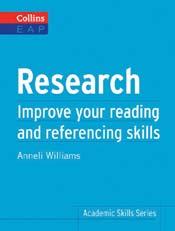



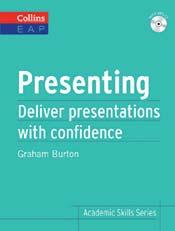



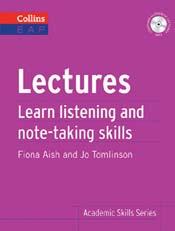







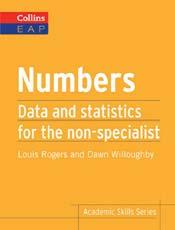



Visit us at the Collins stand 32&39 to find out more! www.collinselt.com facebook.com/collinselt @CollinsELT Skills for academic success in English ‘... extremely useful title ... to target specific learningweaknesses’
lifelong professor of educational research at Ningxia Teachers
in Guyuan,
China EAP Writing is part of Collins’ new six-book series that supports students of all academic subjects with study skills and English language practice. P A E for academic success in English fi title ... ... extre ‘ l to target useful emely y in G University educationalre oira
weakne P.R.China uyuan, Teachers Te Ningxia searchat of , esses’ - c earning s academic is par Wr s y six-b new w Collins’ ’ of rt skills and lang suppo ook series that . uage practice all orts students of f Visit us at www.collin w. the Collins sta nselt.com 39 to fi facebook.com & nd 32 nd out more! T LT m/collinselt @CollinsEL -188-
Moira Laidlaw,
University
P.R.
Laidlaw M
A b d E l W ak e e l Mohamaed mohamed_technicalcollege@yahoo.com
A b d e l h af e z Ahmed abdelhafez.edu@mu.edu.eg
A b d u al wa se Mohammed Mahyoub Ahmed almuja_2009@yahoo.com
A b d ul l ah Fadhel Mohammed Ahmed fadhlab2@gmail.com
A c ik g o z Sevim acikgoz.sevim@gmail.com @sevimackgz
A c q u a v i v a Kristen kacquaviva@gmail.com
A d e l e ke Emmanuel noteperfectnow@yahoo.com
A d i g u n Philip philip.adigun@esspin.org
A d z i g o d i e Isaiah myisaiah20@yahoo.com
A f i t s k a Oksana oksana_afitska@yahoo.com
A f r i an t o Afrianto aburaudha@gmail.com @AfriantoDaud
A h m a d B u s r a Diana dia8473@gmail.com
A h m e d K h u r r a m Bushra bushrakhurram@yahoo.com
A k b u l u t Y i l d i r m i s Meltem meltemakbulut@sehir.edu.tr
A k g u l Z az a o g l u Kismet Funda funda.akgul@ieu.edu.tr
A k y u z P e n be g ul Ciler ciler@bilkent.edu.tr
A l - Al am i Suhair supaeg@yahoo.co.uk
A l a m e d d i n e Mira alameddine.mira@gmail.com
A l e xa n d e r Olwyn o.alexander@hw.ac.uk @OlwynA
A l H a sh m i Aisha Saeed umhaneenhm3777@yahoo.com
A l i Bilgin alibilgin@yahoo.com
A l i Holi howlli2@yahoo.com
A l i Sally sally.ali@uaeu.ac.ae
A l M a s k a r i Anisa buraimi_rtta@hotmail.com @ani_grace
A l m o n d Mark mark.almond@canterbury.ac.uk
A l s h a b i Abduljabbar abduljabars@yahoo.com
A l - S in an i Salima salima.alsinani@moe.om
Index of presenters
A l t i n Oezlem oezlem.altin@fhnw.ch
A m e e r Sundus sameer@uclan.ac.uk
A m e z Mariel Roxana mamez2222@gmail.com @mamez
A n d re ws Mark maarkandrews@gmail.com
A n d u ja r Tomas
A n g e l o va Mila
A p pl eb y Rachel rachelappleby@mail.datanet.hu @rapple18
A ra m ay o P r u d e n c i o Pilar pilar.aramayo@britishcouncil.org.mx
A r e n a Justine justine@justinearena.com.br @justinearena
A r f a K a b o o d v a n d Mandana m_arfa@yahoo.com
A r n ol d Wendy arnoldworld@gmail.com
A ss e s Mohamed Tahar taharenglish@yahoo.co.uk
A vr a m e n k o Anna avram4ik@gmail.com
A vs i u k e v ic h Yulia avsiukevich@googlemail.com
A yb e r Pinar p_ozdemir@hotmail.com
B a d g e r Richard r.g.badger@education.leeds.ac.uk
B a g w e l l Michelle michellebagwell@hotmail.com
B a k e r Rita Anne rita.baker@lydbury.co.uk
B a l d wi n Chris chris.baldwin@britishcouncil.org.hk @chrisbaldwinelt
B a m on d Victoria victoria.bamond@uem.es
B a n k s Tim biroova.a@cambridgeenglish.org
B a r an Katrina
B a r b e r Daniel danieljamesbarber72@gmail.com @BarberDaniel
B a r d u h n Susan susan.barduhn@sit.edu
B a r u a h Nabanita nabanita.baruah68@gmail.com
B a s u r t o S an t o s Nora M nbasurto@hotmail.com
B a t i s t a G i m e n e s d e A r a u j o Rosemeire rosegimenes@uol.com.br @RoseGimenes
-189-
51 170 162 143 51 62 88 168 139 169 141 123 139 141 69 169 51 166 104 149 95 42, 158 140 169 148 168 91
56 43, 111 45, 130 160 74 51 62 114 42, 115 140 137 143 105 102 63 139 143 61 90 145 78 48, 94 78 48, 94 86 140 79 -189-
Index of presenters
B ax Stephen stephen.bax@beds.ac.uk
B e a n Scott scott_bean@yahoo.co.uk
B e a u m o n t Ben benjaminbeaumont@gmail.com
B e a u m o n t Oliver oliver.beaumont@regent.org.uk
B e a v e n Briony brionybeaven@t-online.de
B e b b Philip philip.bebb@in.britishcouncil.org @EngPartnerships
B e c k Martin beck@mondiale.de
B e c k e r Valerie vbecker@ets.org
B e d d i n g t on James james.beddington@winchester.ac.uk @ELTSUWinchester
B e l ak Mojca mojca.belak@guest.arnes.si
B e l ic M a l i n i c Svetlana svetlana.belic@gmail.com
B e l ou s o va Natalia natalie.belousova@gmail.com
B e l sh e k Jalal Ali
B e n e de t t i C a l t a b i an o Bruna bruna_caltabiano@hotmail.com
B e n e v id e s Marcos marcosb@obirin.ac.jp
B e r m a n Ketevan berman.michael@rocketmail.com
B e r r y Vivien Vivien.Berry@britishcouncil.org
B h a n ot Rakesh rakesh_bhanot@hotmail.com @rakeshbhanot1
B ic k n e l l Roy roy.bicknell@besig.org @roypamesan
B il i r Handan handanbilir@sehir.edu.tr
B il o v a Stepanka bilova@law.muni.cz
B l a ck Jackie jackie.black@york-associates.co.uk
B l a n d Janice janbla@arcor.de
B o j an i c Danijela dade@ptt.rs
B o o b y e r Victoria victoria@eltcreative.com @elt_pics
B or s at o Andrea
B oy Isil isilboy@gmail.com @isilboy
B o y ce Paula paula.boyce@britishcouncil.org.br
Br a d d oc k Paul paul.braddock@britishcouncil.es @bcnpaul1
Br a d s h a w Coralyn coralynbradshaw@hotmail.com
Br a d s h a w David david.modernlanguages@gmail.com @djb667
Br e we r Stephen stephen-scott.brewer@u-pec.fr
Br e ws t e r Simon simon.brewster@tamf.org.mx
Br i s c o e Ted biroova.a@cambridgeenglish.org
Br o ad h e a d Annie anniebroadhead@talktalk.net
Br o ok - H a r t Guy guybrookhart@gmail.com
Br o ok s Robyn robynlylebrooks@hotmail.com
Br o wn Amy amy@ihnewcastle.com
Br o wn Liam liam.brown@britishcouncil.org
Br o wn Steve stevebrown70@yahoo.co.uk @sbrowntweets
Br y s on Emily emily.bryson@cityofglasgowcollege.ac.uk @E_Bryson
Bu ch an an Heather h.buchanan@leedsmet.ac.uk
Bu ck l e y Conleth conlethb@yahoo.com
Bu d d e n Joanna jo.budden@britishcouncil.es @JoBudden
Bu g g e y Jill biroova.a@cambridgeenglish.org
Bu k i n Steven Steven.bukin@btinternet.com
Bu l l oc k Deborah bullockdeborah1@gmail.com
Bu l l on Stephen stephen.bullon@gmail.com
Bu r n s Anne anne@burns.name
Bu xt on Barbara barbara@barbarabuxton.orangehome.co.uk
By g r av e Jonathan jonathanbygrave@gmail.com @jonathanbygrave
By t h e w ay Julie julie.bytheway@home.nl @JulieBTW
-190-
45, 157 94 89 44, 88 48, 107 123 96 117 63 47, 118 132 44, 149 143 160 46, 65 159 48, 84 72 62 141 101 155 45, 134 94 45, 142 109 113
111 78 137 152 98 85 138 131 174 89 45, 157 44, 76 74 43, 115 70 73 113 172 116 116 159 48, 121 48, 102 46, 65 110 -190-
C ab r e r a D u ar t e Vera veracabrera@uol.com.br
C a m e r e r Rudi
R.Camerer@elc-consult.com
C a m e r on Caroline caroline.cameron@qa.britishcouncil.org
C a m p b e l l Caroline carolinecampbell@libero.it
C a m p b e l l Robert
C an c i n o Luis eltluiscancino@gmail.com @T3acher
C an n Alex alex.cann@experienceenglish.com @alexjcann
C an t a r u t t i Marina Noelia marinacantarutti@gmail.com
C ap e l Annette annettecapel@mac.com
C ap i t a o Caetano angolaanelta@gmail.com
C ar a Ju n i or Jaime jaime@cna.com.br
C ar d os o Willy cardoso.elt@gmail.com @willycard
C ar l os Raquel raquel.carlos@culturainglesa.net @RAQUELCARLOS73
C ar r Ruth rcarr@itchen.ac.uk
C ar r i e r Michael mcarrier@btconnect.com @mcarrier3
C ar t wr i g h t Michael mickcsan@hotmail.com
C as w e l l Cynthia caswelca@aston.ac.uk
C au d w e l l Gwendydd gwendydd.caudwell@britishcouncil.org
C au l d we l l Richard richardcauldwell@me.com @richcauld
C e l e b i Celalettin celalcelebi75@gmail.com
C h a ab e n Abdelkarim maf.chaaben@qu.edu.qa
C h a ib e d d r a Samira samirachaibeddra@hotmail.fr
C h a k r a b ar t i Debanjan debanjan.chakrabarti@britishcouncil.org @dcfrombc
C h a m ot Anna Uhl auchamot@aol.com
C h a t t o p a d h y a y Kalyan profkalyan@gmail.com @profkalyan
Index of presenters
C h e n Yi-Mei yc315@ex.ac.uk
C h e r r y Megan munkibat@gmail.com
C h i e n Shih-Chieh chien.paul@gmail.com
C h o i Jonggab jonggab.choi@kellogg.ox.ac.uk
C h ov a n c o v a Barbora barbora.chovancova@law.muni.cz
C h r i st o p h e r Virginia vlchrist@ucalgary.ca
C ib or o w s k a Hannah hannah.ciborowska@britishcouncil.org.my
C ic o l i n i Cecilia cecilia.cicolini@gmail.com @CeciCeci2
C i j f f e r s Deirdre dcijffers@cambridge.org @eteacherD
C in t r a Marcela marcela.cintra@culturainglesasp.com.br
C l a n d f ie l d Lindsay
C l a re Antonia
C l a rk Rachel rachel.clark@ucl.ac.uk
C l e m e nt so n Theresa theresa.clementson@gmail.com
C oe t z e r Elna elnacoetzer@yahoo.com
C oh e n Jane jane.cohen@britishcouncil.org.il @JaneCohenEFL
C ol e m an Hywel colemanhywel@hotmail.com
C on n e l l y Thomas thomas.connelly@britishcouncil.cl
C on s t a n t in i d e s Marisa info@celt.edu.gr
C on w ay Anna annac2006@gmail.com @AnnaConway77
C op l an d Fiona
C op u r Deniz dsalli@metu.edu.tr
C o w l e Andy
C r a n d al l Marian mcrandall@ets.org
C r a v e n Miles milescraven@firstpress-elt.com
C ro w l e y Nicola nicola.crowley@britishcouncil.org.il
C u r n i c k Lesley lesley.curnick@unil.ch
-191-
79 42, 111 151 47, 97 131 171 173 46, 101 115 139 139 86 126 48, 75 95 76 174 168 46, 97 76 143 51 123 44, 160 130
173 174 52 99 115 69 164 45, 130 86 164 77 158 130 162 65 44, 83 137 96 124 166 99 89 176 151 155 45, 150 71 -191-
Index of presenters
D a i j o Julice jdaijo2@gmail.com
D ar l in g Ellen ellen.darling@britishcouncil.it
D au b n e y Mark mark.daubney@ipleiria.pt
D av e n t r y Andrew andrew.daventry@british-study.com
D av i d s on Peter peter.davidson@zu.ac.ae
D av i e s Elizabeth e.davies@sheffield.ac.uk
D av i e s Katy katysimpsondavies@gmail.com @KatySDavies
D av i s Paul paul24davis@hotmail.com
D a w s o n Susan suejdawson@gmail.com
d e C h az a l Edward edward@emdechazalconsulting.co.uk
D e a s Patrick pdeas@interacting.info
D e d ic Biljana bilja.dedic@gmail.com
D e l an e y Jo-Ann jo-ann.delaney@canterbury.ac.uk
D e l l a r Hugh hughdellar@mac.com @hughdellar
D e m b a S e c k Georges seckgeodem@yahoo.com
D e m i an Amani amanid@aucegypt.edu
D e m i r e l Huseyin huseyin.demirel@emu.edu.tr
D i a z M ag g i ol i Gabriel diazmagg@newschool.edu
D ic k Lesley lesannms@yahoo.co.uk
D i m o n d -B a y ir Stephanie
D i o p Dame
D j a m a a Sara dgimmah@yahoo.com
D od g e Valentina valentina@english360.com @vale360
D on ag h u e Helen helen.donaghue@gmail.com
D on ag h y Kieran kieranthomasdonaghy@gmail.com @kierandonaghy
D or a d i Saraswati
D ou g l a s Alastair salguoda@hotmail.co.uk
D o u g l a s Jacqueline jacquelinetheteacher@hotmail.com
Dr a g a s Teti areti.dragas@dur.ac.uk
Dr a z d a u sk i e n e Liudvika liudvika@drazdauskiene.lt
d u P r ee z Melvin dupreezm@sun.ac.za
Du d e n e y Gavin gavin.dudeney@theconsultants-e.com
D u d z i k Agnieszka agdud@yahoo.com
D u m m e t t Paul paul_dummett@hotmail.com
Du n l e a Jamie jamie.dunlea@britishcouncil.org
Du n ne Louisa louisa.dunne@britishcouncil.fr
Du r h am Jaime jaime.durham@sit.edu
D z i e c i ol - P e d i c h Agnieszka lumriel@gmail.com
E b b e rt Carol ebbert@uni-trier.de
E l H ag Yasir Yasir.Hassan@sd.britishcouncil.org
E l i c k e r Martina martina.elicker@uni-graz.at
E l l e p o l a Deepa
E l l is Gail gail.ellis@britishcouncil.fr
E l - Z a m i l Mohamed zamil@aucegypt.edu
E l z og h b y Mohamed mr.elzoghby@yahoo.com
E n e v e r Janet
E r ay Esma Asuman erayasuman@yahoo.co.uk @esmapeter
E r d o g an Bunyamin erdoganbunyamin@yahoo.com
E st e v e s Vanessa vcreis.esteves@gmail.com
E va n s Gaynor gaynor.evans@pt.britishcouncil.org
E va n s Kate kehevans@yahoo.co.uk
E yd e l m an Natalya eydelman.natalia@gmail.com @nataneva
E yu b o g l u Gulseren gulseren.eyuboglu@ozyegin.edu.tr
-192-
91 132 47, 60 44, 140 101 175 46, 114 162 47, 88 42, 151 73 45, 153 154 167 76 120 47, 101 158 62 99 74 104 122 69 73 74 169
158 172 52 52 73 84 151 141 175 48, 94 84 126 90 170 74 132 87 70 99 81 103 159 115 151 176 68 -192-
F a r a g Sophie sophiemf@aucegypt.edu
F a r ah Al Khawajah teacher_farah@live.com
F e r n an de s Andreia andreia.lof@gmail.com
F e r r e ir a Corne c.vanderwind@driestar-educatief.nl
F i e l d John jcf1000@dircon.co.uk
F i e l de r Clare fielder@uni-trier.de
F i t r i y ah Siti Masrifatul masrifafitriyah@gmail.com
F i u z a Luciana luciana.fiuza@hotmail.com @luciana_fiuza
F l et a M. Teresa tfleta@perlaunion.es
F l in d e r s Steve steveflind@aol.com
F o ch o Gladys ngwifocho@yahoo.fr
F o or d Duncan
F o r e m an Ann @ann_f
F o r t ov a Nikola fortova@phil.muni.cz @NikkiFortova
F o x Anne foxdenuk@gmail.com @foxdenuk
F r a n c a Valeria vbenevolofranca@gmail.com @vbenevolofranca
F r a n c i s Nicky nicky.francis@britishcouncil.fr @nickyfrancis68
F r a n c o U r q u i d i Ileana ileana.franco@theanglo.org.mx
F r e e m an Donald
F r e n d o Evan evan.frendo@e4b.de @evanfrendo
F r o e t s c h e r Doris doris.froetscher@uibk.ac.at
F u e r st en b e r g Ulla ulla.fuerstenberg@uni-graz.at
G a k on g a Jo jo.gakonga@elt-training.com @jgakonga
G al az k a Alicja biuro@future.edu.pl
G ar b e y S av i g n e Eduardo egarbey@infomed.sld.cu
G ar c i a Yrma ygarcia@ucss.edu.pe
Index of presenters
G ar d n e r Nikue nikueh@gmail.com
G ar d n e r Sheena sheena.gardner@coventry.ac.uk
G a s t e l u m K n i g h t Carla cmgknight@lenext.uson.mx
G at r e l l David david.gatrell@britishcouncil.org.hk @legaladvert
G au g h a n Anthony anthony@teachertrainingunplugged.com @AnthonyGaughan
G e r ol d Akos gerold@eunet.rs @AkosGerold
G h al e b Musa Musaghalib76@yahoo.com
G i a n n i k a s Christina Nicole christinagian@hotmail.com @ChristinaELT
G i b s o n David dggib@hotmail.com
G i f f o r d Tim tim.gifford@selt.info @timgiffordELT
G i l r oy Aysen aysen.gilroy@zu.ac.ae
G i r g i n G u m u st e k in Esra esragirgin@hotmail.com @ekamin
G i u ra n i u c Marilis mari.g2007@yahoo.com
G k on ou Christina cgkono@essex.ac.uk
G o d w i n C ou r y Jane jgcoury@hotmail.com
G o k Seyit Omer sog2@le.ac.uk @SeyitOmerGOK
G o l d st e i n Ben ben@bengoldstein.es
G o l e c h k o v a Tatiana goletchkova@yandex.ru
G o m e s D e C a r v a l h o Teresa Cristina terecristina.carvalho52@gmail.com @teresa1999
G o m e z Ma Dolores @madogomez
G o n c h a r o v a Victoria v-goncharova@yandex.ru
G o n z a l e z Barbara scholesbarbara@yahoo.co.uk
G o n z a l e z G om e z Lilia liliagonzalez@lenext.uson.mx
G o od g e r Charles goodger.charles@gmail.com @charlesgoodger
-193-
167 109 135 60 114 122 118 49, 70 166 42, 94 80 77 78 124 52 142 49, 63 101 48, 121 42, 120 114 170 82 62 67 166
161 96 171 116 174 79 153 52 152 100 48, 70 174 105 47, 60 163 126 109 170 138 88 52 47, 126 144 118 -193-
Index of presenters
G r ad d ol David david@english.co.uk @graddol
G r an t Caroline caroline.grant@britishcouncil.org @CarolineGrantza
G a v e s Kathleen gavesk@umich.edu
G r a y Ben ben.gray@ly.britishcouncil.org
G r e e n William wrgreen@sapporo-u.ac.jp
G r e e n e Stephen stephen@tmenglish.org @HoftheH
G r e k ov a Irina irina_grekova@yahoo.com
G r u n d t v i g Andreas andralma@gmail.com @A_Grundtvig
G r u n d y Peter peteriatefl@btinternet.com
G u Xiangdong xiangdonggu@263.net
G u a r an y J u n i or Fernando fernando.guarany@britishcouncil.org.br @fguarany
G u e rr i n i Michele C michele@mguerrini.eu
G u n g or Mustafa Akin magelt06@gmail.com @MAknGngr
G u n g or Muzeyyen Nazli nazlidemirbas_06@hotmail.com @DemirbasNazli
H ad f i e l d Charles Robert crhadfield@me.com
H ad f i e l d Jill jhadfield@unitec.ac.nz
H ad il Al-Kandari hadeelha00@gmail.com
H ad j i c on s t a n t in o u Panayiota p.hadjiconstantinou@cut.ac.cy
H ai l e M e n g e s h a Abayneh
H ai n e s Philip phainesmex@hotmail.com
H al e t Katherine kate.halet@gmail.com
H am i l t on Miranda
H an c o ck Mark mark@hancockmcdonald.com
H an d s Penny penny@pennyhands.com @pennyhands
H an k s Judith j.i.hanks@education.leeds.ac.uk
H an u s o v a Svetlana hanusova@ped.muni.cz
H a r d y - G ou l d Geoff geoff.hardy-gould@oise.com
H a r m e r Jeremy
H a r r i s Bill bharrisefl@gmail.com
H a r r i s Rachael rachaelharris1@aol.com @fabenglishteach
H a r r i s on Laurie laurie@eltjam.com @laurieharrison
H a r r i s on Michael mjah84@gmail.com
H a r r i s on Tilly tilly.harrison@warwick.ac.uk @Tilly_H
H a r r ou c h i Fethia
H a r u m i Seiko
HarumiS@cardiff.ac.uk
H a r w o od Nigel nharwood@essex.ac.uk
H a s s a n Claudia claudia.m.hassan@gmail.com
H a s s a n Dima simon.shephard@lb.britishcouncil.org
H a y h u r s t Sarah sarahhayhurst75@gmail.com
He ad y Chris chris.heady@ncl.ac.uk @ollietomrosa
He at h f i e l d David david@davidheathfield.co.uk
He r d o n Tim tim.herdon@oup.com
He r e d i a Rubens rubens.heredia@culturainglesasp.com.br
He r l e s Martin martin.herles@wu.ac.at
He r m an s Frans f.hermans@fontys.nl
H i c k s Gary gh1@brighton.ac.uk
H i l l David
H i l l Robert robhill.vr@gmail.com
H i l l m an Richard richardhillman@hotmail.com
H i r a s e Yoko
H i r t h e Gabriella gabriella@hirthe.com.de
H o U Teng trevorywc@yahoo.com.hk H o ck l e y Andrew adhockley@gmail.com @adhockley
H o ck l y Nicky nickyhockly@yahoo.es @TheConsultantsE
-194-
59, 78 86 93, 103 157 52 44, 133 173 147 132 113 156 110 72 72 82 46, 76 75 89 74 149 144 99 46, 110 116 96 49, 75
44, 64 136 78 142 100 89 42, 154 107 134 112 53 119 44, 140 100 61 159 137 120 138 155 158 171 61 53 167 137 171 80 -194-
H oe y Michael hoeymp@liverpool.ac.uk
H o w ar d Amanda amanda.howard@buid.ac.ae
H u d s on Rebecca Stephanie
H u g h e s John john@hugheselt.com @johnhugheselt
H u g h e s Timothy tbh1976.uk@gmail.com
H u m p h r y - B a k e r Ann ann.humphry-baker@unil.ch
H u n t e r Roland roland.hunter@regent.org.uk
H u n t l e y Helen helenshuntley@yahoo.com
Ib r ah im Nayr nayr_ibrahim@hotmail.com
Ig n a t ov Kirill kirillign@mtu-net.ru
Il i e v a Zhivka zhivka_ilieva@yahoo.com
I m b e r Brenda prousimb@umich.edu
In c i Fiona fiona.inci@ng.britishcouncil.org
In os t r o za Maria Jesus minostroza1@sheffield.ac.uk @mjinostroza
I o an n o u - G e o r g i ou Sophie sophiecy@yahoo.com @sophie_cy
Ir v i n e -N i ak ar i s Christine cniakaris@hau.gr
I s a Mohammed Abbas Ali drmohammedabbas@gmail.com
I s l am Mohammad Aminul dialamin323@gmail.com
Iv a n o v a Tatiana tatiana-szelinger@yandex.ru
J a c k s on Helen helen.jackson@cityofglasgowcollege.ac.uk @Elenaltj
J a m e s Barbara Enid b.james@keele.ac.uk
J a r a y - B e n n Csilla csilla.benn@bes-grenoble.com @CsillaBenn
J e n k in s Jennifer
J e r on c i c Nina J i a n g Yuhong 519285817@qq.com
J o h n s o n Andy andy.johnson@londonschool.com @andybjohnson
Index of presenters
J o h n s on Jenny jennyjohnson.btn@gmail.com @jennyjohnson10
J o h n s t o n Fiona whereisfiona@hotmail.com
J o n e s Gabrielle gabrielle@oconnortraining.de @gjteacher
J o n e s Wayne
J o se p h Niki niki.joseph@gmail.com
J o sh u a Jenny caroline.grant@britishcouncil.org
J o va n Ilic jovan.ilic@britishcouncil.org.np
Ka c z m a r e k Kaal kaal.kaczmarek@gmail.com
Ka l m i n d e r j i t Kaur kalminderjit1@gmail.com
Ka m e l Amany amanykamel2@yahoo.com
Ka n d an Elango elangoela@rediffmail.com
Ka n g Nam-Joon nohkang@hotmail.com
Ka r a a g a c Gul glkaraagac@gmail.com @gulkaraagac
Ka r ab e t c a Oya oya4uk@gmail.com
Ka r l s s on Leena leena.karlsson@helsinki.fi
Ka t z Anne ila-katz@pacbell.net
Ka w a i Hiromi kawai-h@kanda.kuis.ac.jp
Ka y Jackie
Ka y Sue suekay.oxford@virgin.net @ELT_T2W
Ke as t Lesley lesley.keast@britishcouncil.es
Ke d d ie Jamie jamiekeddie@hotmail.com @cheimi10
Ke n n e d y Chris C.J.Kennedy@bham.ac.uk
Ke n n e d y Loraine kennedyloraine@yahoo.co.uk @lorainekennedy
Ke n n y Julian
Ke r r William wdk.ist@gmail.com
Kh ab b a r Sanaa
Kh al il Ibrahim simon.shephard@lb.britishcouncil.org
-195-
129, 154 161 84 73 163 81 81 156 144 65 138 147 168 123 137 69 98 135 53 43, 115 43, 160 87 66 100 53 81
133 172 42, 107 85 49, 70 86 172 154 123 102 53 136 132 43, 102 47, 72 48, 121 163 177 162 95 117 104 152 85 69 121 150 -195-
Index of presenters
K h a l i l Rania rania.khalil@bue.edu.eg @Raniakhalil4
K h a n Iffaf @iffafteacher
K i d d l e Thom thomkiddle@yahoo.com
K i e l y Richard rkiely47@gmail.com
K i g h t l e y Adam
K i rk Steve s.e.kirk@durham.ac.uk @stiiiv
K i rk h a m Leslie leskirkham@gmail.com
K i z i l c i k Hale Hatice khale@metu.edu.tr
K j i s i k Felicity felicity.kjisik@helsinki.fi
K l e t z en b au er Petra
K on on o v a Inna inkon_71@mail.ru
K or u y a n Kasim kkoruyan_78_@hotmail.com @KASIMKORUYAN35
K ot b y Inas kotbyi@hotmail.com
K ou ri e os Stella skourieos@cytanet.com.cy
K oz h e v n i k ov a Tatiana tatiana.kozhevnikova@gmail.com
K r e m m e l Benjamin b.kremmel@gmail.com
K r u p p a Catarina catarina.kruppa@culturainglesasp.com.br
K r ys z e w s k a Hanna hania.kryszewska@pilgrims.co.uk
K u b a n y i o v a Maggie m.kubanyiova@bham.ac.uk
K u c h a h Harry hkuchah@yahoo.com
K u n s c h a k Claudia claudia.kunschak@azalumni.com
L a ck m an Ken kenlackman@yahoo.com
L a f f a n Sinead tesol@oxfordtefl.cz @SineadLaffanEFL
L a i Hsuan-Yau (Tony) tony823@ms17.hinet.net
L a l Christudas Amala jojilal@gmail.com
L a n e Alastair
L a n g s t o n Kiros
L a p o rn ik Barbara barbara.lapornik@gmail.com
L a u p p e Louise
L a w s o n Rachael Jane snapdragonrachael@gmail.com
L e a Diana diana.lea@oup.com
L e f e ve r Samuel samuel@hi.is
L e m o s Cecilia ceciliaelt@gmail.com @CeciELT
L e o n F o n t e s Gabriel gabriel.leonf@lenext.uson.mx
L e s n i e w s k i Sebastian lesniewskis@gmail.com
L e s t a r i Santi Budi
L e y s Bruno bruno.leys@vives.be @BrunoLeys
L i g h t b o w n Patsy M patsy.lightbown@verizon.net
L i g h t f o o t Amy amy.lightfoot@britishcouncil.org @lightfootELT
L i ma Chris chrislima90@yahoo.co.uk @chrislima90
L i n d s t r o m b e r g Seth
L l o y d Niall niall_lloyd@hotmail.com
L l o y d Thomas thomas.lloyd@britishcouncil.org
L l o y d s Sally slloyds@itchen.ac.uk
L o c k s L i m a Luciana luciana@cna.com.br
L op e z L a g o Jose Maria josemaria.lopez@uem.es
L or i n c z Tamas tamaslorincz@hotmail.com @tamaslorincz
L o w e Daniel daniel.lowe@unitec.edu
M ac D on al d Jennifer circean_@yahoo.com @JenMac_ESL
M ac k e n z i e Alan alansmackenzie@yahoo.co.uk @alansmackenzie
M ac K e n zi e Fiona fhmackenzie@btinternet.com
M ad e r Elsbeth engl.home.gos@bluewin.ch M ad h av a n Divya divya.madhavan@ecp.fr @divyabrochier
M ad h u k ar K C madhukarkc25@gmail.com
-196-
173 175 87 69 96 42, 142 150 89 47, 72 124 125 76 68 170 94 156 46, 118 148 81 163 68 176 47, 105 66 158 167 107 119 100
147 90 138 155 144 85 74 172 156 45, 134 148 74 139 96 48, 75 139 145 171 75 104 135 46, 60 45, 142 86 160 -196-
M a d y l u s Olha biroova.a@cambridgeenglish.org
M a h om e d Haroon caroline.grant@britishcouncil.org
M a jz o u b Mona mona.majzoub@mak-hhhs.edu.lb @monamajzoub
M a k h l ou f Sanaa Abdel Hady sanaaam@aucegypt.edu
M a l c ol m Diane diane@agu.edu.bh
M a l e y Alan yelamoo@yahoo.co.uk
M a n d a l i o s Jane jmandalios@acg.edu
M a n d e r s Elona elona.manders@han.nl
M a n i t s a Natassa natassa@expresspublishing.co.uk
M a n n Debbie mann_debbie@hotmail.com
M a n s o o r Sabiha drsabihamansoor@gmail.com
M a r k s Johanna jo.marks@uni-muenster.de
M a r k s Jonathan jonathanmarks@wp.pl
M a r sh Debra dmarsh@cambridge.org
M a r sh Eunice eunice.marsh@britishcouncil.org
M a r t i n e z d e T e j ad a G o n z al e z Conchi azulaza@yahoo.es @azulaza
M a r t i n s Alan eltalanmartins@yahoo.co.uk
M a t h e w Rama ramamathew@yahoo.co.in
M a vr i d i Sophia mav.sophia@gmail.com @SophiaMav
M a yn ar d Carson carsonm@umich.edu @haem85
M a yn e Russell rm190@le.ac.uk
M c C ar t h y Michael
M c D on a l d Anne anniebmcdonald@talktalk.net
M c D on a l d Sean skog@gmx.de
M c G r a w Rhoda rhoda.mcgraw@mail.enpc.fr
M c L a r e n Elizabeth elizabeth.mclaren@britishcouncil.org
M c L a u g h l i n Louise lniclochlainn@gmail.com @McLaughlinLou
Index of presenters
M cM ah o n Patrick patrick.mcmahon@plymouth.ac.uk
M cV e i g h Joe joe@joemcveigh.org @JoeMcVeigh
M e g ah e d Sawsan sawsan1181@yahoo.com
M e l d r u m Nicola diploma@oxfordtefl.com
M e r s e Thorsten thorstenmerse@gmx.de
M e s se k h e r Hayat hayet.messekher@britishcouncil.org
M e s su m Piers p.messum@gmail.com
M e t c a l f Rob
M e t z n e r Diana diametzner@gmail.com
M i a h Md. Asad mdasadmiah@yahoo.com
M ic a l l e f Ronnie ronnie.micallef@et.britishcouncil.org
M id d l et o n Georgina georgina.middleton@britishcouncil.org
M il l e r Cleve cleve@english360.com @cleve360
M il l i n Sandy sandymillin@gmail.com @sandymillin
M is c in Evelina evelinamiscin@yahoo.co.uk @andautonia
M is h r i k i Afaf afaf@aucegypt.edu
M it r a Sugata
M i t s a k i Catherine cmitsaki@gmail.com
M od y Rustom rustom.mody@britishcouncil.org
M oh se n Mohammed mmohsen1976@gmail.com
M ol Hans myconnexxions@bigpond.com
M on t e i r o d a S i l v a Sergio sergio@cna.com.br
M on t i l l a Ivelis mivelis@usb.ve
M o o r e Caroline caroline_moore@me.com @constellata
M o o r e Julie @lexicojules
M or a n Katie katiemoran75@gmail.com
M or a n d Cathy c.morand@ucl.ac.uk
-197-
78 86 150 120 67 148 122 149 88 53 53 169 100 75 82 108 80 47, 76 117 147 77 112 61 113 67 154 170
68 90 71 47, 110 43, 156 170 46, 125 131 147 54 90 150 122 153 142 120 165 77 87 119 49, 70 69 71 171 42, 130 47, 83 130 -197-
Index of presenters
M o r r o w Keith keith@homertonhouse.org.uk
M o u an a m b at s i Yves Roger myre_60@hotmail.com
M o u r a o Sandie nettlehouse@mail.telepac.pt
M u g f o r d Gerrard g_mugford@yahoo.com
M u k h e rj e e Kuheli
M u r a se Fumiko fumikomurase@gmail.com
M u r r e Piet p.m.murre@driestar-educatief.nl
M u s a f i r i Patrick
M u s t a f a Blerta blerta.mustafa@gmail.com
N a o u m i Evelyn J evelynkk@meiji.ac.jp
N a z i m Akile angien@languages.unsw.edu.au
N e f t e n o v a Svetlana svetlana.neftenova@britishcouncil.org.mk
N e og i Anik anik_n@yahoo.com
N e s i Hilary h.nesi@coventry.ac.uk
N e w s o n Dennis djn@dennisnewson.de @osnacantab
N g o r a n Marcos Koffi ngoran.marcos@yahoo.com
N o g u e i r a Margarete margaretebrasilia@hotmail.com @MargareteNoguei
N o r r i n g t o n - D a v i e s Danny danny.norrington-davies@ihlondon.com
N o r t h al l Nicholas n.northall@sheffield.ac.uk
N o r t o n Joanna joanna@keywordsenglish.com @keywordsenglish
N o r t o n Julie jen7@le.ac.uk
N o s h c h e n k o Mykhailo mshnosh@gmail.com
N o w a k Ewelina bez.kapelusza@gmail.com
Nu r e l d ee n Waleed waleed.a.nureldeen@hotmail.co.uk
N w o k ol o Chinelo nwokolochinelo@gmail.com
N y e Andrew
O 'D e l l Felicity felicity@flissavlad.demon.co.uk
O f l a z Merve merveoflaz@hotmail.com @oflazmerve
O l a ye m i Oluwakemi Titilola olayemioou@gmail.com
O l i ve i r a Sandra sandra13577@yahoo.com
O n c e v sk a A g e r Elena elena.oncevska@gmail.com @oncevskager
O ' N e i l l James jim.oneill@sa.britishcouncil.org
O n j e w u Martha Ada monjewu@yahoo.com
O r l an d o Rosemary r.orlando@snhu.edu
O r r Andrew andy.orr@regent.org.uk
O sb o r n e Mark mark.osborne@L2.co.uk @markosborne
O sc h e p k o v a Tamara tamararussia2003@yahoo.com
O st e r w a l d e r Hans jhosterwalder@outlook.com
O st r o ws k a Sabina sabina.ostrowska@kustar.ac.ae
O 'S u l l iv a n Barry Barry.O'Sullivan@britishcouncil.org
O t t w ay Tom tottway@yahoo.co.uk
O zb ak D u r mu s Ozgul ozgulbak@hotmail.com
O zk u l Senem senem.oezkul@phil.uni-augsburg.de
O z o g Chris ozog.chris@gmail.com @chrisozog
P a i n t e r - F ar r e l l Lesley painterl@newschool.edu
P al m e r Lucy
lucyp@teachit.co.uk @TeachitELT
P ar k e r Maria mgparker@duke.edu
P ar k i n Diane
d.parkin@uea.ac.uk
P ar k i n s o n Kate
P as al i c Magda magda@efst.hr @pot_pec
-198-
154 137 49, 78 125 174 97 134 74 122 67 124 149 144 96 103 144 69 84 62 85 70 66 117 147 112 131
48, 82 107 54 160 169 153 112 173 95 112 79 65 121 48, 84 117 66 54 47, 114 150 157 147 73 126 83 -198-
P as c h o al e t t o P o s s an i Debora dp.possani@gmail.com
P at sk o Laura patsko.prof@gmail.com @lauraahaha
P av l ov s k ay a Irina Y pavlovskayairina2@gmail.com
P e g g Ed
P e n g e l l e y James thehairychef@gmail.com @hairychef
P e r k in s Lauren lauren.perkins@britishcouncil.or.th
P e r r e tt Jeanne
P e t r ie David demerep@gmail.com @teflgeek
P h i l l i p s Dita dita.phillips@british-study.com
P h i l l i p s Timothy timothy.phillips@skylight.de
P h i l p Heike heike.philp@letstalkonline.com @heikephilp
P h i l p ot Sarah sarah.philpot@britishcouncil.fr
P i c k e r i n g George georgeuk32@aol.com
P i l b e am Adrian adrian.pilbeam@lts-training.com
P i l l ai Sabina sabinapillai2000@yahoo.com
P i n ar d Lizzie @lizziepinard
P i n t e r Annamaria annamaria.pinter@warwick.ac.uk
P l a s s m a n n Sibylle s.plassmann@telc.net
P l a t z e r Hans hans.platzer@fhwn.ac.at
P oe s o v a Kristyna k.poesova@gmail.com
P ok l e p o vi c Dana danapoklepovic@fibertel.com.ar @danapokle
P op i a s h v il i Nona nonpopiashvili@yahoo.com
P op o o l a Essien essien.popoola@gmail.com @brotherolu
P r e s h o u s Andrew ab3258@coventry.ac.uk
P r i m a l i s Dimitrios dprimalis@gmail.com @dprimalis
Index of presenters
P r o d r o m ou Luke lukep@otenet.gr
P u c h t a Herbert hp@herbertpuchta.com @herbertpuchta
P u g l ie s e Chaz chazpugliese@gmail.com
P u l p e a Andreea andreea_pulpea@yahoo.com
P u l v e rn e s s Alan alanpulverness@msn.com
P u z an o v a Natalia natali-puzanova@yandex.ru
Q u an d t Susanne sus.quandt@gmx.net
Q u i n t a n i l l a Angie anquinta@hotmail.com
Ra h a m an Md Adur mrahaman63@gmail.com
Ra h m a n Arifa arifa73@yahoo.com
Ra i Prajjwal glenrai@gmail.com @lostantelope
Ra n a Ellen rana@hs-koblenz.de
Ra s h i d i p o r f ar d Rezvan
Ra s h i d ov a Feruza f.rashidova@gmail.com
Ra s k i n Joanna biroova.a@cambridgeenglish.org
Ra s s o ol Naz
Re ad Carol carolread@readmatthews.com @carolread
Re b o l l ed o Paula prebolledoc@gmail.com @prebolledoc
Re b u f fe t - B r o a d u s Christina christina.rebuffetbroadus@gmail.com @rebuffetbroadus
Re z ae i Bita bitarezaei82@yahoo.com
Re z wa n T a l u k d a r Md Ali hredaya04@yahoo.com
Ri c h a r d s Lewis lewrich1000@hotmail.com
Ri c h a r d s on Silvana silvana.richardson@bellenglish.com @laioli
Ri c h a r d s on Vic vrichardson@studygroup.com
Ro b b Be n n e Rebecca
-199-
54 46, 114 133 75 131 161 164 98 83 167 90 110 162 166 133 125 47, 76 172 54 46, 104 42, 98 141 103 42, 102 109
151 142 148 61 45, 150 54 110 45, 154 54 87 157 119 74 150 167 66 132 47, 64 147 137 54 80 44, 79 44, 153 131 -199-
Index of presenters
R ob e r t s Rachael radbod1234@aol.com @teflerinha
R ob in s o n Carole carole@nile-elt.com
R ob in s o n Nick nick@eltjam.com @nmkrobinson
R od o m a n c h e n k o Aida a.rodomanchenko@gmail.com
R o g e r s Louis
R o g e r s on - R e v e l l Pamela pmrr1@le.ac.uk
R o m e r o Gloria grome069@uottawa.ca
R on d on Maria Estela Ribeiro Jardim estelarondon@gmail.com
R o o sk e n Barbara b.roosken@fontys.nl
R o s a Rodrigo rodrigo_21usp@yahoo.com.br
R o s e n b e r g Marjorie mrosenberg@aon.at
R o s s Claire claire.ross.lb@gmail.com
R o s s n e r Richard rrossner@eaquals.org
R ou n d Josh jround@stgeorges.co.uk @joshsround
R u i z H e rn an d e z Simon
R u m i st r ze w i c z Ewa e.rumistrzewicz@gmail.com
R u t h e r f o r d Kevin kevin.rutherford@britishcouncil.org
R y l e y Peter pryley@studygroup.com
S a ch p a z i an Maria Araxi sachpazian@input.edu.gr @sachpazian
S a g i r Pinar akcisak@bilkent.edu.tr
S a l h a Mohammad mohammad.salha@britishcouncil.org.jo
S a l m o n Nicola nicola.salmon456@btinternet.com
S a l v i sb e r g JoAnn jsalvisberg@belponline.ch @jotex
S a m a d o v a Gulshan gulshansamadova@yahoo.co.uk
S a m p a i o Gloria R L gloria_sampaio@hotmail.com
S a m p e d r o Rick educhange@hotmail.com
S a n c h e z Liliana liliana.sanchez@theanglo.org.mx
S an d h u Harisimran harisss2@rediffmail.com
S an g a b au Raymond sangabau@hotmail.com
S an ot s k a Larysa sanotska@yahoo.com
S an t os Denise denise@denisesantos.com @SantosDeniseM
S a s a j i m a Shigeru sasajima@saitama-med.ac.jp
S au m e l l Maria Victoria saumell.vicky@gmail.com @vickysaumell
S av i l l e Nick
S ay e r s Jonathan jonathansayers@gmail.com @jo_sayers
S ay r a m Gamze gamze.sayram@mq.edu.au
S ch ae r Ursula
S ch e f fl e r Pawel spawel@wa.amu.edu.pl
S ch e l l e ke n s Philida philida@schellekens.co.uk
S ch m it t Diane diane.schmitt@ntu.ac.uk
S ch oe n m a n n Julietta jschoenmann@tiscali.co.uk
S ch ol e s Jack jack@jackscholes.com @Jackbly
S c o t t Adam teachAdam@me.com @teachAdam
S c o t t Paul paul.scott1@britishcouncil.org.jo @paulusscott
S cr i v e n e r Jim jimscrivener@gmail.com @jimscriv
S e l ig s o n Paul paulseligson@googlemail.com
S e r r a Roseli rfserra@gmail.com @SerraRoseli
S h a h M. Athar Hussain athar.hussain@hotmail.com
S h a m i m Fauzia fauzia.shamim@yahoo.com
S h a n g a r f f a m Nasim nshangarf@yahoo.com
S h a r m a Pete @petesharma
S h e e h a n Susan s.sheehan@hud.ac.uk
S h e r i f a Al Sayegh s_alsayegh302000@yahoo.com
-200-
46, 72 163 100 48, 79 96 78 168 117 74 68 152 172 159 44, 72 74 74 141 117 112 97 71 65 164 55 152 43, 153 55
71 55 144 120 145 111 99 113 104 55 135 43, 108 48, 84 176 116 168 71 48, 116 80 171 166 47, 64 145 42, 85, 162 48, 70 55 -200-
S h i m a zu m i Marilisa marilisa.shimazumi@culturainglesasp.com.br
S h u k r i Nadia ndshukri@gmail.com
S i ck Christine christine.sick@htwsaar.de
S i d d ar t h a Tara papillon32@gmail.com
S i l v a Alexsandro asilva@culturainglesadc.com.br
S i m p s on Adam adams@sabanciuniv.edu @yearinthelifeof
S i m p s on Mark
S i n g h Eilidh eilidh.singh@ubc.ca @EilidhSingh
S i n o v c i c T r u m b i c Irena isinovcic@hotmail.com
S k o p i n t se v a Tatiana tatiana.skopintseva@gmail.com
S m i t h Jonathan Marcus Garland
S m i t h Kristina kristina123smith@hotmail.com @kristina_smith1
S m i t h Richard R.C.Smith@warwick.ac.uk
S m i t h Simon simon.smith@coventry.ac.uk
S o ar s Liz
S o ru c Adem adem_soruc@hotmail.com
S o t i r i o u Chryssantthe sassy_gr@hotmail.com @chryssanthe
S p e e r Lesley lesley.speer@mq.edu.au
S p i l l e r Karen karen@coloursofspain.com
S p i r o Jane jspiro@brookes.ac.uk
S p r a t t Mary mary.spratt@ntlworld.com
S t a n f or d Jeff jeffstanford@wordflair.com
S t e el e y Sherry sls229@georgetown.edu
S t i r l i n g Johanna johanna.stirling@gmail.com @johannastirling
S t o l y a r o v a Irina i.n.stolyarova@gmail.com
S t o t t Brian brian.stott@britishcouncil.or.th @BrianStott
S t r a s s e r Thomas thomas.strasser@phwien.ac.at @thomas_strasser
Index of presenters
S t r ot m an n Birgit birgit.strotmann@uem.es
S t r ou p e Richmond richmond@soka.ac.jp
S t u b b s Matthew matthew.stubbs@britishcouncil.org.ua
S t u e bn e r Viola
S t y r in g James jamesstyring@yahoo.co.uk @styring
S u l l i va n Susanne Mary Elisabeth sues@xtra.co.nz
S we e t i n g Arizio ams034@student.usc.edu.au @ariziosweeting
S yk e s Helen helen.sykes@britishcouncil.org.il
S yl v e s t e r Karenne kalinago.english@gmail.com @kalinagoenglish
S ze s zt ay Margit margit.szesztay@gmail.com
T a m a l a Michelle mtamala4@gmail.com
T an n e r Rosie info@rosietanner.com
T ay e b Bouhitem b.tayeb@lycos.com @B.TAYEB
T ay l o r Lynda lynda_and_nigel.taylor@ntlworld.com
T ay l o r e - K n o w l e s Steve
T e b ib Djalal djo_man@hotmail.com
T e k d o g an Barkan
T e z c an U n a l Burcu Burcu.Tezcan-Unal@zu.ac.ae @burcutezcanunal
T h a b e t Reda faten.husari@ps.britishcouncil.org
T h e i s e n Lisa theisen@kansaigaidai.ac.jp
T h o m a s Fiona fiona@netlanguages.com @FionaTT
T h o r n Sheila
T h o r n b u r y Scott
T i n Tan Bee tb.tin@auckland.ac.nz
T i n g Y.L. Teresa
T i t ar e n k o Irina kinset96@hotmail.com
T i t ov a Svetlana stitova3@gmail.com @ESLPrep
T o m a l i n Barry barrytomalin@aol.com
-201-
55 65 112 159 141 55 85 64 83 83 69 67 47, 64 77 77 100 109 43, 98 162 124 131 95 67 176 121 161 60
145 107 49, 87 77 167 161 156 176 66 43, 149 44, 140 123 56 48, 84 62 56 99 133 103 94 171 99 136 136 66 56 90 61 -201-
Index of presenters
T o m l i n s on Brian brianjohntomlinson@gmail.com
T o st e Verissimo verissimo.toste@oup.com
T r a n t e r Geoff tranter@mondiale.de
T r e pp Hazel
T r i n d e r Ruth rtrinder@wu.ac.at
T s a i Bonnie tsaibonnie@hotmail.com
T s u r i k o va Lubov ltsurikova@rgph.vsu.ru
T u ck e r Dave
T u f ne l l Janet Janet.Tufnell@ae.britishcouncil.org
T u rk k a n Mehvar mehvar.turkkan@tedu.edu.tr
T u r n bu l l Joanna
T u r n e r Nick nick.turner@bellenglish.com
T u rp i n Leslie leslie.turpin@sit.edu
T u t u n i s Birsen tutunisster@gmail.com
T u zo v i c Emina eminatuzovic@yahoo.co.uk
T y n a n Rolf rtynan@studygroup.com @profrolf1
U d o Margaret megmil.udo1@gmail.com
U l u g Cahit cahit@bilkent.edu.tr @cahitulug
U m ar u Zainab Cengiz
U m m e r K u t t y Shahin shahin.u@qu.edu.qa
U n d e r h i l l Adrian adrian@aunderhill.co.uk
U n l u Gokce gokce.unlu@ozyegin.edu.tr U r Penny pennyur@gmail.com
U r a z b a e v Khikmatullo hikmatullo84@gmail.com
U r e e l Jim
U y a r og l u Fatma Gokcen fgokcen@bilkent.edu.tr
V an G e y t e Els
V an W i j k Johan j.vanwijk@driestar-educatief.nl
V a s s al l o Odette odette.vassallo@um.edu.mt
V e l ik ay a Elena evelikaya@hse.ru
V e r d on k Desiree desiree.verdonk@fhwn.ac.at
V e t t e r - M ' C a w Suzanne vetter-mcaw@gmx.net
V i d a Sandra sandra.vida@iatefl.si
V i l i n a Charles V i ol a Mercedes mercedesviola@4d.edu.uy @mercedesviola V oj t k o v a Nada nada.vojtkova@gmail.com
V y n e r James
V y n e r Luke
W ag n e r Sanja sanja-wagner@web.de
W al d D h aw i Bahia bahia.dhawi@moe.om
W al e e d Noha noha.waleed@britishcouncil.org.eg
W al k e r Aisha
W al k e r Guy guy.walker@unil.ch
W al k e r Robin robin@englishglobalcom.com
W al k l e t t Chris cwalk@essex.ac.uk
W al k l e y Andrew A.Walkley@westminster.ac.uk @CELTtraining
W al l i s Julie juliewallis@rocketmail.com
W al t e r Elizabeth liz.walter@camlex.co.uk
W an g Xiaobing icysprite0411@yahoo.co.uk
W ar d Michael mward@studygroup.com
W ar w i c k Lindsay lindsay.warwick@bellenglish.com @lindsay_warwick
W at k in s Peter peter.watkins@port.ac.uk @UoPTESOL
-202-
148 175 86 56 120 175 145 49, 82 44, 60 56 95 45, 134 63 56 140 176 86 56 74 119 62 68 42, 135 68 132 56
76 154 145 146 54 108 60 163 103 49, 75 175 175 110 169 146 85 125 168 171 46, 80 161 46, 84 130 138 109 174 -202-
W e i r Philip philipweir@hotmail.com
W e l de m e dh in Tesfaye ronnie.micallef@et.britishcouncil.org
W e s t Judy judywest8@gmail.com
W e s t b ro o k Pete westbrook@hum.ku.dk
W e s t w e l l Rosemary rjwestwell@hotmail.com @DrRoe
W h i t e Genevieve gorse75@hotmail.com @ShetlandEsol
W h i t e h e a d Russell russell@whitehead.com
W h i t e h ou se Emma emma.whitehouse@londonschool.com
W i l d e n Eva eva.wilden@rub.de
W i l d e n Shaun shaun.wilden@ihworld.com @shaunwilden
W i l l i a m s Damian damian@tmenglish.org @TailormadeEng
W i l l i a m s Eddie
W i l l i s Jane jane@willis-elt.co.uk
W i l s on Ken kenwrite@btinternet.com @kenwilsonlondon
W i mh u r s t Andrew a.wimhurst@chaucercollege.co.uk
W i n MayMay
W i n d g a s se n Hedi hedi.windgassen@han.nl
W i sd o m In ib e h e Jude wisppa@yahoo.com
Indexofpresenters
W i s e m a n Anne anne.wiseman@britishcouncil.org
W i s n i e w sk a Sylwia wisniewska33@yahoo.com
W o n g Matilda matildaw@umac.mo
W o od Thomas
W o od f o r d Katherine kate.woodford@camlex.co.uk
W o od s Paul rphwoods@gmail.com
W o od w a r d Tessa
W r i g h t Andrew andrew@ili.hu
W r i g h t Angela biroova.a@cambridgeenglish.org
W ri g h t Anna anna.wright@britishcouncil.es
W ri g h t Jennie @teflhelper
W ya t t Mark wyatt_mark@yahoo.com
X e r r i Daniel dx509@york.ac.uk @danielxerri
Y am a n o Yuki yyamano@cc.utsunomiya-u.ac.jp
Y ou n g Roslyn roslyn.young@orange.fr
Z am m i t Annette annette.zammit@britishcouncil.org.my
Z el en sk ay a Larisa zelenskaya@yahoo.com
Z e n g i n U n a l Ozlem zengin@bilkent.edu.tr @ZlemZn
Q1–7thFebruary2014 (QuestionontheGeneralInformationdivider)
Q2–15 (Questiononpage32)
Q3–45 (Questiononpage40)
Q4–Onlinecoverageoftheannualconference,producingavaluable archiveandalsoafacilityforthose onsiteandthoseunabletoattend. (QuestionontheSIGDaysdivider)
Q5–34 (QuestiononthePresentationsdivider)
109 57 97 57 75 43,94 46,60 82 123 72 81 66 136 43,131 146 159 114 57
113 48,98 167 152 46,84 99 74 118 155 44,156 147 47,64 47,97 163 102 123 101 124 A n s w e r s t o t h e ‘ Q u i z f o r F u n ’ ( q u e s t i o n s d o t t e d t h ro u g h o u t t h e P r o g r a m m e )
-203-
Abbreviations, acronyms & initialisms
Abbreviations, acronyms and initialisms for the IATEFL Conference
a The presentation focuses on Adult Teaching
AE Academic English
AGM Annual General Meeting
AL Applied Linguistics
BC British Council
BE Business English
BELF Business English as a Lingua Franca
bkprom The presentation promotes a particular book
CAE Certificate in Advanced English
CAL Computer-assisted learning
CALL Computer-Assisted Language Learning
CEF Common European Framework
CEFR Common European Framework of Reference
CESOL Communicating in English with Speakers of Other Languages
CLIL Content and Language Integrated Learning
CMC Computer-Mediated Communication
CPD Continuing Professional Development
CPE Certificate of Proficiency in English
e The presentation is for an Experienced Audience
E4W English for Work
E4WP English for the Workplace
EAL English as an Additional Language
EAP English for Academic Purposes
EFB English For Business
EFL English as a Foreign Language
EGP English for General Purposes
EIL English as an International Language
ElCom Electronic Committee
ELF English as a Lingua Franca
ELT English Language Teaching
ELTeCS English Language Teaching Contacts Scheme
ELTJ ELT Journal
EOP English for Occupational Purposes
ESL English as a Second Language
ES(O)L English for Speakers of Other Languages
ESP English for Specific Purposes
EYL English for Young Learners
FCE First Certificate in English
GEN General
GI Global Issues
IATEFL International Association of Teachers of English as a Foreign Language
iBT Internet-Based Test
-204-
-204-
Abbreviations, acronyms & initialisms
ICT Information and Communication Technology
ie The presentation is for an Inexperienced Audience
IELTS International English Language Testing System
INSET In-Service Teacher
INSETT In-Service Teacher Training
IWB Interactive Whiteboard
L1 First Language
L2 Second Language
LA Learner Autonomy
LAM Leadership & Management
LMCS Literature, Media & Cultural Studies
LT Learning Technologies
LTO Language Teaching Organisation
MALL Mobile Assisted Language Learning
MaW Materials Writing
MD Materials Development
Memcom Membership Committee
MoEs Ministries of Education
NEST Native English-Speaking Teachers
NNEST Non-Native English-Speaking Teacher
NNS Non-Native Speaker
NQT Newly-Qualified Teacher
p The presentation focuses on Primary Teaching
PCE Pre-Conference Event
PLN Professional Learning Network
PRON Pronunciation
pub Speaking on behalf of a publisher/examination board/commercial organisation
RES Research
RP Received Pronunciation
s The presentation focuses on Secondary Teaching
SIG Special Interest Group
t The presentation focuses on Tertiary Teaching
TA Teacher Association
TBL Task-Based Learning
TBLT Task-Based Language Teaching
TBT Task-Based Teaching
TD Teacher Development
TEA Testing, Evaluation & Assessment
TEFL Teachers of English as a Foreign Language
TESOL Teachers of English to Speakers of Other Languages
TEYL Teaching English to Young Learners
TTEd Teacher Training & Education
VLE Virtual Learning Environment
WMIS Wider Membership Individual Scheme
WMS Wider Membership Scheme
YLT Young Learners & Teenagers
-205-
-205-
IATEFL committees, volunteers and staff
P Patron David Crystal
Board of
Trustees
President
Vice President (outgoing)
Vice President (incoming)
Secretary
Treasurer (outgoing)
Treasurer (incoming)
Associates’ Representative
Electronic Committee Chair
Membership Committee Chair
SIG Representative
Executive Committees
Conference Committee
Electronic Committee
Finance Committee
Membership Committee
Publications Committee
Associates Committee
Newsletter Editor
Conference Selections Editor
Carol Read
Eric Baber
Peter Medgyes
Zeynep Urkun
Amos Paran
Colin Mackenzie
Les Kirkham
Caroline Moore
Gary Motteram
George Pickering
Eric Baber (outgoing Chair)
Carol Read (incoming Chair)
Burcu Akyol
Bethany Cagnol
Ros Wright
Louise Atkins (for head office)
Alison Medland (for head office)
Glenda Smart (for head office)
Alison Wallis (for head office)
Poppy White (for head office)
Caroline Moore (Chair)
Eric Baber (outgoing)
Mike Harrison
Heike Philp
Paul Sweeney
Mercedes Viola
Louise Atkins (for head office)
Amos Paran (outgoing Chair)
Colin Mackenzie (incoming Chair)
Andy Curtis (outgoing)
Glenda Smart (for head office)
+ two new members starting in April 2014
Gary Motteram (Chair)
Victoria Boobyer
Tilly Harrison
Marjorie Rosenberg
Shaun Wilden
Glenda Smart (for head office)
Natasha Cleary (for head office - maternity cover)
Peter Medgyes (Chair)
Roy Bicknell
Martin Eayrs
Les Kirkham (Chair)
Nazli Gungor
Amy Jost (outgoing)
Harry Kuchah
Alison Schwetlick
Tania Pattison
-206-
-206-
IATEFL committees, volunteers and staff
Conference Programmer
Proposals Committee
Scholarship Working Party
Special Interest Group Coordinators
Business English
English for Specific Purposes
ES(O)L
Global Issues
Leadership & Management
Learner Autonomy
Learning Technologies
Literature, Media & Cultural Studies
Materials Writing
Pronunciation
Research
Teacher Development
Teacher Training & Education
Testing, Evaluation & Assessment
Young Learners & Teenagers
Advisory Council
WMS Advisory Committee
IATEFL Staff
Executive Officer
Deputy Executive Officer
Conference Organiser
Deputy Conference Organiser
Finance Officer
Finance & General Administrator
Business Development Officer
SIGs & General Administrator
Membership Officer (Maternity Cover)
Madeleine du Vivier
Samuel Lefever
Jenny Pugsley
Ros Wright
Eryl Griffiths (Chair)
Sophie Ioannou-Georgiou
Maureen McGarvey
Patrick McMahon
Felicity O’Dell (outgoing)
Amos Paran
Adrian Tennant
Marjorie Rosenberg
Aysen Guven & Prithvi Shrestha
Caroline Okerika
Margit Szesztay
Jenny Johnson
Leni Dam & Lienhard Legenhausen
Paul Sweeney (outgoing)
Nicky Hockly
David A Hill
Nick Robinson
Wayne Rimmer
Richard Smith
Anthony Gaughan
Birsen Tutunis
Judith Mader
Hans Mol (outgoing)
Kalyan Chattopadhyay & Dennis Newson (incoming)
Carol Read (Chair)
David Crystal - Patron
Adrian du Plessis
Graham Hall - Editor, ELTJ
Herbert Puchta
Anna Searle - British Council
Catherine Walter
Peter Grundy (Chair)
Mike Clark
John McGovern
Catherine Walter
Glenda Smart
Louise Atkins
Alison Medland
Poppy White
Kay Cox
Linda James
Alison Wallis
Eleanor Broadbridge
Natasha Cleary
-207-
-207-



English for Academic Purposes Take an EAP Pre-Sessional course at the University of Liverpool’s English Language Centre.
10 week 7 Jul - 12 Sept 2014: £2,700
6 week 4 Aug - 12 Sept 2014: £1,620
40 week 6 Oct 2014 - 11 Sept 2015: £11,200
29 week 12 Jan 2015 - 11 Sept 2015: £8,120

Activate English
This is a general English course where the start date, length and focus of study are all flexible. The course has multiple entry levels from IELTS 3.5 or equivalent (CEFR A2) and you can study on a student visitor visa. Now recruiting agents.

For further details about all of our courses please contact us on:
T: +44 (0)151 794 2722
F: +44 (0)151 794 2739
E: elc@liv.ac.uk
www.liverpool.ac.uk/ english-language-centre
-208-
IATEFL Annual General Meeting
Auditorium
1. 2.
Minutes of the AGM held in April 2013 at the ACC, Liverpool
Matters arising
Treasurer’s report
Presentation and receipt of accounts for 2012-2013
Re-appointment of MHA MacIntyre Hudson as auditors
Presentation by the President and Executive Committee chairs on general issues, the work of the Board of Trustees and other committees, the SIG representative’s report, and Associates’ representative’s report
Recommendation and appointment of new Trustees
Thanks to out-going Trustees and welcome to new post holders and other new volunteers
Date of next meeting 12th April 2015 in Manchester, time and venue to be confirmed
By order of the Board
Zeynep Urkun

Company Secretary
IATEFL
2-3 The Foundry Faversham, Kent
ME13 7FD, UK
Date: 20/2/14
As a member of IATEFL, you are entitled to appoint a proxy to exercise all or any of your rights to attend, speak and vote at the meeting. A proxy does not need to be a member of IATEFL but must attend the meeting to represent you.
A proxy form and details of how to appoint a proxy is available in the members’ area of the IATEFL website at https://secure.iatefl.org/.You can only appoint a proxy using the procedures set out in the notes to the proxy form.
-209-
N o t i ce o f A n n u a l G e n e ra l M e e t i n g T h e 20 1 4 A n n u a l G e n e ra l M e e t in g o f I A TE F L w il l b e h e l d in Au d it o riu m , a t th e HI C , Ha r ro g ate , U K, o n Th u rs d a y 3 rd Ap ril 2 014 fro m 1 2 55 t o 140 0 A l l m e m b e rs a re i n vi t e d t o a t t e n d . A G E N D A 1. 2. 3. 4. 5. 6. 7. 8.
9.
A p p o in t me n t o f p ro x i e s
-209-
AGM Reports
Annual report from the President to members
This has been an exciting year for IATEFL. In addition to moving to our very own ‘home’, we started a highly successful IATEFL webinar series, commissioned a publication provisionally entitled ‘A History of IATEFL’ to commemorate our 50th Anniversary coming up in 2016 - 2017, created a scheme of International Ambassadors for IATEFL, and significantly expanded our conference scholarships and sponsored training awards. We also revised and strengthened our election procedures for new directors and trustees of IATEFL and commissioned a marketing consultancy report to give us expert advice on communicating and fulfilling our mission as a charity and international membership association for ELT professionals over the coming years.
One of our priorities has been to explore ways in which IATEFL can offer greater support to Teacher Associations (TAs) in the developing world. In this context, we launched IATEFL Projects, a pilot scheme designed to offer eligible TAs an opportunity to bid for a small grant that will make a sustainable difference to language learning in their local context. We also entered into an innovative partnership with International House (IH) Trust with their generous sponsorship of the IH/IATEFL Training Award. This offers an opportunity for IATEFL Associates in the developing world to apply for 20 training days to be delivered in their own country or region by one or two IH Trust teacher trainers.
The SIGs have been extremely active, offering a wealth of online events, face-to-face conferences, publications and networking opportunities via social media. We have also been delighted to welcome our newest 15th SIG, Materials Writing (MaWSIG) into the IATEFL fold. Our number of Associates also continues to grow steadily and currently stands at just over 120.
At last year’s conference in Liverpool, we had a record number of 2,633 delegates and, thanks to our ongoing partnership with the British Council, approximately 82,000 participants online. This year in Harrogate, we’re hoping that the conference will reach even more ELT professionals in many different countries around the globe. We’re also delighted to be introducing several innovative features to the conference including an opportunity to ‘Meet the Patron’, an Open Space session, an ELT Conversation and two new evening events.
The move to our new office in Faversham in August 2013 was the result of many months of planning and preparation. It was project-managed with consummate skill and efficiency by our Executive Officer, Glenda Smart, and the Head Office team was rapidly installed in brand new, spacious and light offices with business as usual.
An Office Open Day for local businesses and suppliers took place on Friday 6 December 2013. The event was an excellent opportunity to meet and personally thank local people who work with IATEFL such as printers, builders, bankers and office suppliers. In some cases, the relationships go back as far as the 1980s.
The official Office Opening took place on 7 February 2014. Guests included trustees, past presidents, IATEFL sponsors and partners, SIG Coordinators (or a delegated representative from SIGs) and others connected to IATEFL. The event was live-streamed and included a short address by our patron, Professor David Crystal (via Skype), as well as the launch of sponsorship opportunities for the Annual Conference in Manchester 2015.
None of what I have described above could have been achieved without the tireless work and dedication of colleagues on the IATEFL staff, Board of Trustees and IATEFL committees. Special thanks are due to our Executive Officer, Glenda Smart, who is a veritable fount of IATEFL knowledge, wisdom and experience and always ready to offer her expert advice in a spirit of understanding and support whenever needed. As well as leading the Head Office team in the complex day-to-day operations of IATEFL, Glenda is also to be congratulated for managing the enormous challenges presented this year by the office move. I would also like to extend warmest thanks to Vice President, Eric Baber, and IATEFL Treasurer, Amos Paran, who will both be stepping down from the Board of Trustees in April 2014. IATEFL has hugely benefited from Eric’s talents and skills, particularly in leading the Association forward in areas of technological innovation. Amos has guided IATEFL’s finances meticulously over the last six years. Both have also been excellent colleagues and advisers and brought insight, integrity and vision to the Board of Trustees – we will miss you very much.
This year we have welcomed Caroline Moore as a new trustee and Chair of our Electronic Committee. I am also looking forward to working with our new incoming Vice President and our new IATEFL Treasurer, Colin Mackenzie, as from April 2014.
CarolRead IATEFLPresident
-210AGM Reports
-210-
“
Report from the Treasurer
Introduction
This report focuses on a number of important points about IATEFL’s finances, all of which appear in the summary accounts which will be provided at the AGM. I highlight a number of important points, and then go on to point out a number of developments that have occurred since the end of our financial year more than seven months ago.
Overview of 2012-2013
I am pleased to report that 2012-2013 was a strong year: our total funds as at 31st August 2013 were £1,144,240. This represents a growth in funds of £78,623. This is a strong testimony of the health of the organisation and of our success in achieving our mission, and is considerably higher than our surplus last year. (Members with a historical bent of mind might be interested in knowing that our assets 10 years ago, in 2001-2002, were £439,503.)
IATEFL Finances explained
The treasurer is responsible for advising the Board of Trustees on the Association’s finances. IATEFL employs a fulltime professional Finance Officer at the IATEFL office, who reports to the Executive Officer, who then reports in turn to the treasurer. The Deputy Executive Officer also has a financial remit. The Finance Committee works with the treasurer to advise the Board of Trustees on matters of principle connected with IATEFL’s finances. The treasurer is also entrusted with ensuring that the financial aspects of any IATEFL decision are taken into account when the decision is made.
IATEFL’s audited accounts distinguish between restricted funds, designated funds, and general funds. Restricted funds relate to specific projects, such as the WMS (Wider Membership Scheme), the SIGs, and some of the scholarships, and cannot be used for other purposes. Designated funds are funds that have been set aside by IATEFL for specific projects (for example, scholarships) but which can be used for other purposes as well, should the Board of Trustees so decide. General funds are unrestricted and the Board of Trustees is free to use them in the best way it sees fit. Each year we produce a budget that shows our plans for expenditure that year.
IATEFL’s income comes from a variety of sources: subscriptions from members, interest on investments, surplus from the annual conference, SIG events, advertising and sponsorship, and donations.
IATEFL Trading
This is the third full year of the operation of IATEFL Trading Limited, through which we conduct our trading activities. IATEFL Trading is VAT registered, and can therefore claim VAT back charged on its expenses. The surplus from IATEFL Trading is gift aided to IATEFL at the end of every financial year. IATEFL is not registered for VAT, which means that we cannot recover VAT on those parts of our operations that are conducted through the charity.
Separate accounts are prepared for IATEFL Trading, and their income and expenditure is summarised in Note 4 of our consolidated accounts. In addition, our accounts include a balance sheet for the group as a whole and for the charity separately. You will note that the total funds for the group and for the charity are identical; this is because IATEFL Trading gift aids its surplus to the charity at the end of the financial year. IATEFL Trading surplus in 20122013 was £91,047.
Details of the year ended 31 August 2013
Full details of our financial situation are available in our full accounts, copies of which are available at the IATEFL AGM as well as lodged with the Charity Commission and available from their website. Our healthy situation is due to a very healthy conference in Liverpool, which attracted the highest number of delegates at any of our conferences.
The financial year 2012-13 stood out in terms of financial activity and accounts because of the purchase of a property and the move from Canterbury to Faversham. In our accounts, this is represented in our tangible assets, which at the account date were worth £422,534. We financed part of the purchase from our own funds, but we also took out a mortgage, which is represented in our accounts on page 14, as Creditors: Amounts falling due after one year, and part of the amount noted under Creditors: Amount falling due within one year. Notes 11 and 12 to the accounts, on page 21, provide additional detail.
Our property also appears in the accounts in our Unrestricted Funds, under the designation of Property Fund (see page 22). Within our unrestricted funds, we also have a designated capital reserve of £60,000, as well as a general fund of £97,713. Our operating costs for one year are ca. £450K, excluding the conference. This means that we now have about four months of operating costs in the general fund and the capital reserve; the rest is in our tangible assets.
-211AGM Reports
-211-
AGM Reports
AGM Reports
SIG Finances
The SIGs receive an annual subscription income per member to cover their operating costs, and they also generate income through event surpluses, advertising in newsletters, etc.
SIG finances for 2012-2013 continue to be very healthy. SIG reserves range from £3,482 to £91,042, which is an even bigger range than last year (this does not take into account the much lower reserves of the newest SIG). Most SIGs show a healthy range of income and expenditure, reflecting the fact that they are active in producing newsletters, organising events and providing scholarships. Many SIGs have larger reserves than they had last year, reflecting the prudence with which they are managing their financial affairs, and, more importantly, their ability to generate surpluses at their events. A number of SIGs have had a drop in their funds. This is acceptable so long as it is a result of fulfilling the charitable mission of the organisation.
Future financial issues
Having purchased a property, a large part of IATEFL funds are invested in this property. Future challenges are to ensure that IATEFL continues to generate surpluses; to see whether we can pay off our mortgage early; and to return to a growth in our reserves.
Thanks
This is my last AGM Report as Treasurer. My greatest thanks go to our Executive Officer, Glenda Smart, whose support has always been exemplary. Last year was particularly complex in terms of arranging the move, with all its financial implications. Thanks are also due to Kay Cox, IATEFL Finance Officer, and Louise Atkins, our Deputy EO, for their help with day-to-day queries and for their work on what is an extremely complex set of accounts; to the Finance Committee, Colin Mackenzie and Andy Curtis, for their willingness to provide sound advice; and to the whole of the Board of Trustees for their continued support and involvement in financial deliberations.
AmosParan Treasurer
Report from the Associates’ Representative
The total number of Associates has remained steady for the last few months at just over 120 teacher associations, an increase of about 15 since last year. The increases in Associate Membership over the past five years have been across the board geographically, but especially significant in regions outside Europe. Our attempt to seek to associate with teacher organisations in North America has again proved unsuccessful, although relationships with the TESOL International Association continue to be friendly and productive.
We have also liaised again with the British Council regarding the award of Hornby grants for specific IATEFL Associates’ projects for 2013-14, and will continue to try and encourage the formation of associations in territories where none currently exist through contacts made via the WMIS scheme. This includes countries where national associations already exist but geographical or other issues mean that a comprehensive service cannot be extended to the whole country.
With the increase in Associate numbers from less than 80 in 2008 to over 120 today, we have continued to try to capitalise on this greater reach by adding value for Associates. The Board has been actively pursuing this, along with IATEFL’s charitable remit, and at the time of writing schemes are being developed to put this into practice. I hope to have more information about this at the AGM. Another result of the increase in Associate membership has been the need to increase the membership of the Associates Committee and thus I welcome the addition of Nazli Gungor and Harry Kuchah to the team this year. They will help to fill the gap left when Amy Jost leaves after this conference, having done such a wonderful job, especially at Associates’ Day, over the past five years.
Now that we are in a better position to provide extra value to Associate Membership, I feel we have a very promising springboard to extend our mission further and make a deeper difference to the profession in cooperation with our colleagues around the world.
LesKirkham
Associates’Representative
-212-
Reports
AGM
-212-
AGM Reports
Report from the Special Interest Group (SIG) Representative
Since last year the number of IATEFL Special Interest Groups (SIGs) has increased to 15 with the founding of MaW (Materials Writing) SIG and the new SIG has got off to an excellent start and held a very successful event with over 90 participants in Oxford in January 2014. The other SIGs have also continued to make a SIGnificant contribution to carrying out IATEFL’s mission of linking, developing and supporting ELT professionals by providing members with a range of publications, events, discussion lists and websites in their areas of special interest. The total number of SIG members has increased for the seventh year in a row. As I reported last year, many SIGs have healthy surpluses to fund future activities for members, and none of them is in a difficult financial condition. One current topic being discussed with the Board of Trustees is the best and most equitable way for SIGs to contribute to the costs that the office incurs in supporting SIGs and their activities.
SIGcommittees
SIGs are led and managed by their coordinators and other committee members, supported administratively by the IATEFL SIGs and General Administrator, Eleanor Broadbridge, and other head office staff. The separate SIG committees usually consist of between four and ten volunteer members. SIG committee posts are open to all and committees tend to consist of a mixture of experienced members and newer committee members, who bring fresh input and ideas to the SIGs. The new coordinator of the SIG would normally be expected to come from the existing committee to ensure continuity and to make sure that the coordinator is appropriately experienced for managing this challenging role. Guidelines for SIG coordinators and committees are to be found in the SIG Coordinators’ Handbook which is updated biennially.
Over the last year there have been a number of changes among the SIG Co-ordinators. In April 2013 Aysen Guven and Prithvi Shrestha took over from Mark Krzanowski as the joint co-ordinators of ESPSIG and Anthony Gaughan took over as the new coordinator of TDSIG from Mojca Belak. At last year’s conference Nicky Hockly became the joint coordinator of LTSIG with Paul Sweeney. I would like to say a big thank you to all those stepping down from SIG committees, not just coordinators, for everything they have done for the SIGs and IATEFL in general, and I would like to extend a warm welcome to those who have joined committees to contribute to the future leadership and management of their SIGs. Sue Hackett stood down in January 2014 as the coordinator of TEASIG and was replaced by Judith Mader. Hans Mol will step down at the Harrogate Conference and his successors as joint coordinators of YLTSIG will be Kalyan Chattopadhyay and Dennis Newson.
SIGactivities:SIGevents,SIGdiscussionlists&webpresence
For the fourth year in a row all SIGs have put on Pre-Conference Events at the Annual Conference. You might well have attended one of these yourself in Harrogate this year. The IATEFL webinar platform is being used by an increasing number of SIGs. The SIGs have had discussion lists and websites for a number of years and some are now using other social media channels, such as Twitter and Facebook. These online activities and channels of communication help to link the members of the SIGs in communities of practice. Paul Sweeney and others have helped several SIGs to make improvements to their websites.
SIGstrategy
SIG committees are very aware of the need to ensure that their SIGs remain relevant to their members in a changing world. That is why the SIGs are reviewing:
• the training and development of new coordinators and committee members
• ways of spreading best practices among SIGs
• the finances and marketing of SIGs
• communication channels among SIGs and with members
• ways of ensuring that SIGs provide a minimum level of activity (events, communications) each year.
VolunteeringtobecomeactiveinyourSIG
SIGs are always looking for members who want to become more active, through volunteering to write articles for newsletters, running an online webinar, helping organise an event, standing for election to a committee, etc. Each SIG holds an Open Forum during the Annual Conference where you can meet committee members and find out more about your SIG’s activities. Why not go along and see how you can contribute to your SIG?
Finally, I would like to salute all of the hard work done by SIG coordinators and other committee members. I would also like to commend the professional support they receive from Eleanor Broadbridge, the IATEFL SIGs and General Administrator, Glenda Smart, IATEFL Executive Officer, and the rest of the hardworking head office team in Faversham.
GeorgePickering
SIGRepresentative
-213AGM Reports
-213-
AGM Reports
ConferenceCommittee
The Conference Committee is responsible for the planning of the IATEFL annual international conference. This involves selection of venues, planning of speakers and events, and the financial management of the conference. In 2013 the committee members were Eric Baber (chair), Bethany Cagnol, Caroline Moore until her election as Chair of the Electronic Committee and Burcu Akyol thereafter, Carol Read and Ros Wright. The committee works in close cooperation with the conference staff at the Head Office: Alison Medland, our Conference Organiser, Poppy White, our Deputy Conference Organiser, Alison Wallis, our Business Development Officer, Louise Atkins, our Deputy Executive Officer, and of course our Executive Officer, Glenda Smart.
LIVERPOOL CONFERENCE
Our annual conference in 2013 took place in Liverpool and featured over 500 talks and workshops, a number of poster presentations and forums spread over the four conference days. We were pleased to have five world-class plenary speakers in Professor David Crystal (IATEFL’s patron); Deniz Kurtoglu Eken; Past IATEFL President Susan Barduhn; Past TESOL President Jun Liu; and Liverpool’s own Roger McGough who delighted and entertained us in his closing plenary with his poetry. 30 scholarships were awarded from our various scholarship funds, making it possible for the winners to attend the conference. In addition a full social programme contributed to the overall success of the event.
The IATEFL Jobs Market again met the needs of a sizeable number of job-seekers and employers and we feel adds a valuable service to our members and conference delegates.
We were very pleased to receive a substantial volume of feedback on the conference – this is vital to ensure its ongoing evolution in order to meet delegates’ needs and desires. As a result of the feedback from 2013 we will be implementing a number of new ideas in Harrogate in 2014.
HARROGATE CONFERENCE 2014
The 2014 conference sees us returning to the Harrogate International Centre. A familiar venue to many regular conference attendees we had outgrown both the venue and the city in recent years, but after expansion of the Conference Centre and the addition of new accommodation in the area we are looking forward to revisiting this popular venue.
Based on feedback from last year’s delegates we are introducing a number of new features, the first one being an Open Space event. This 2 ½ hour event allows participants to choose the topic(s) they would like to explore, divide themselves into groups of shared interest, and then discuss their topic in as much depth as they like. Facilitated by Adrian Underhill, an experienced Open Space practitioner, this event is a great way for delegates to share ideas and thoughts about a topic of great interest to them.
The second new event will be The ELT Conversation. Featuring Jeremy Harmer and Scott Thornbury, this event will see both of them speak for about 20 minutes each and then follow that up with a conversation and questions from the floor. We are looking forward to receiving feedback on the format after the event and will welcome suggestions for Conversation participants for the following year.
We are also introducing two new evening events. The Spoken Word will be an open-mic style event for anyone who would like to get up and share a piece of poetry or some writing with an audience. We are also pleased that long-time IATEFL members Luke Prodromou and David Gibson will be performing a self-penned piece of theatre entitled Hard Times for Teachers. Between these two new events and a host of established ones we are sure there will be enough to fill delegates’ days and evenings as well.
We are again making use of our mobile app which is now in its third year. Using the app, delegates can view the conference programme, put together their own conference schedule, share content and thoughts with other delegates using key social media channels and more. We have been very pleased with the usage in past years and hope that it proves as popular in 2014 as in the past two years.
The conference is the culmination of a year of steady hard work by the Conference Committee. As Chair of the committee, I would like to thank all my colleagues on the Conference Committee and at Head Office for their excellent work. The Conference Committee this year were Carol Read; Caroline Moore, who has now moved into the role of Chair of the Electronic Committee; Ros Wright; Bethany Cagnol; and Burcu Akyol whom we warmly welcome and who has already very ably taken over Caroline’s responsibilities. I cannot thank our Head Office staff enough for everything they do for the conference; in particular Glenda Smart, Alison Medland, Alison Wallis, Louise Atkins and Poppy White deserve a huge vote of thanks (and a good rest after the conference!) Thank you to all of you.
-214AGM Reports
-214-
AGM Reports
AGM Reports
I would also like to extend a huge “thank you” to Madeleine du Vivier for programming the conference and to Eryl Griffiths for all her hard work on the Scholarship Working Party; neither is an easy or enviable task but both are crucial to the success of the conference.
HARROGATE ONLINE
As in the past six years we will be bringing much of this year’s conference to anyone anywhere via the internet. Thanks to the generosity of the British Council we will be live-streaming and recording a significant number of talks, workshops and plenary sessions, enabling anyone with internet access to take part live in the conference from anywhere in the world and view the recordings anytime afterwards.
We are grateful to our plenary speakers and those presenters who support this important initiative of freely disseminating their professional expertise and knowledge on a global scale. A very impressive 82,000 online delegates from more than 100 countries of the world have visited the platform since the past conference so we are spreading the message far and wide, and can truly claim that this initiative has become an important factor in fulfilling our mission of linking, supporting and developing English language teaching professionals worldwide.
COOPERATION WITH THE BRITISH COUNCIL
IATEFL and the British Council continue to seek ways to further collaborate as both organisations work towards similar aims of linking, developing and supporting ELT professionals around the world. IATEFL is grateful to the British Council for its continued support of so many of its projects. In addition to funding and operating Liverpool and Harrogate Online as described above, the British Council is providing a framework to select recipients of the Wider Membership Individual Scheme funding, it provides support for English language professionals from the developing world to take part in the IATEFL conference through work with the Hornby Trust. On behalf of IATEFL I would like to extend a special thanks to the British Council.
As I will be stepping down from the role of Conference Committee Chair and IATEFL Vice President, I would like to say thank you to everyone who has made the past four years an amazing experience. I have learned a great deal; met dozens, if not hundreds of fantastic people; and hopefully have been able to make a positive difference to IATEFL and teachers around the world. Thank you for having me – it’s been great.
EricBaber Chair,ConferenceCommittee
ElectronicCommittee
ElCom aims to improve electronic services for members, Head Office, SIGs and Associates. The original Chair, Gavin Dudeney, stood down in April 2013, as did committee member Sara Hannam in August, and I’d like to thank them for their great work in establishing the work of the Electronic Committee.
The committee is currently composed of Caroline Moore (Chair) with Eric Baber (Advisor), Mike Harrison (Social Media), and new members Heike Philp (Live-streaming events), Mercedes Viola (Webinars), Paul Sweeney (SIG Liaison and Websites) and Louise Atkins (Head Office).
This year we have continued to develop our social media presence, particularly on Facebook, with over 4,400 members of the IATEFL Facebook Group and over 1,800 “likes” of our Facebook Page. These are becoming important channels for communication and interaction. Our conference apps were very successful and used by around 1,500 delegates at IATEFL 2013, and user feedback has been generally positive. We are releasing new updates, which will hopefully fix a couple of bugs for future conferences. We are working closely with the British Council on the IATEFL Online, and have started work on creating an archive of talks and interviews from previous conferences. We have been working on a series of promotional videos that will be available to promote the annual conferences, SIGs and scholarship opportunities.
We have also worked successfully with the SIGs and Membership Committee to develop a very successful Webinar series, and worked with the Publications Committee on an IATEFL e-publication strategy.
If you have any suggestions for other areas ElCom might consider, or feedback on our work so far, we would be happy to hear from you.
CarolineMoore Chair,ElectronicCommittee
-215-
-215-
AGM Reports
MembershipCommittee
The membership committee has continued to work on developing its remit over the last year and has taken on a number of roles that have been developed out of the Membership Survey that we conducted in 2011. This survey formed the basis of discussion by the Trustees about future directions for IATEFL that have either been completed or are being developed.
The survey showed us that there was a desire on the part of the membership for more what could be termed core IATEFL activity. This would be aimed at people who were unlikely to be able to attend the main conference, or other regional events offered by the SIGs. The Trustees discussed the idea of running an online conference, but decided to test the water by running a series of monthly webinars. We are conscious that the SIGs are increasingly providing very successful webinars, even one-day conferences, but these are focused on specific issues. What people said in the survey was that they wanted more generic topics. These regular events are now up and running and started back in May 2013 with a question and answer session with David Crystal. You can find out more detail on the website, where you will find a direct link to the webinars. All of the webinars are delivered via IATEFL’s Adobe Connect Room and are recorded and archived so anyone who is a member can view them. This is an addition, also, to our membership benefits. Marjorie Rosenberg has been supporting the development of the webinars.
A second initiative that has been launched this year is IATEFL Projects. These we hope will offer the opportunity for one of our Teacher Associations in the developing world to bid to run a local, funded project. This is a pilot and will be evaluated before we make this a regular feature of IATEFL’s contribution to the language teaching community. It is expected that a project will reach a broad community of English language teachers in the local context and give the opportunity for less-experienced teachers to take an active role. One of the key elements of the project is its dissemination, so that the broader IATEFL family hears about what has happened as a part of the project. This initiative is also linked to the Membership Survey where we asked a number of questions about extending IATEFL’s charitable aims and fund raising. IATEFL has two existing schemes that enable teachers in developing countries to join IATEFL: the Wider Membership Scheme (WMS) and the Wider Membership Individual Scheme (WMIS). The WMS offers Teacher Associations in the developing world the opportunity to bid for memberships for their community. This enables groups of teachers to become Basic members of IATEFL for two years. The monies that go to support this scheme were raised around the Millennium and it is the interest from the investments that pays for these memberships. The WMIS enables individual members in the developing world to become members of IATEFL. There is a smaller fund that supports this initiative and this has been supplemented by collecting donations at the conference. The aim here is to attract individual members who want to start a local Teachers’ Association where one does not currently exist. If the pilot project is successful, we will be looking at raising funds in a more systematic way so that we can support this initiative as it goes forward.
In order to continue as a healthy organization, we need to continue to recruit new members and retain them. While membership figures continue to grow, there has been a slight decrease in Full Individual membership, which is a concern. This may be as a result of our new membership offering, Early Career Teachers (ECT - which offers two years’ full membership for the price of one year) which has been successful and numbers are growing. However, the success of ECT relies on people renewing again after two years, so we will be putting some strong efforts into this in the coming year. Sue Jones who joined the committee last year, started working to develop the support network for this particular new group and approached a number of schools to encourage recruitment. Because of the success of her growing business, she unfortunately had to leave the committee, but we thank her and wish her every success for the future.
In order to continue to develop what is a growing remit, we have taken on to the Membership Committee three new members: Victoria Boobyer, Tilly Warren and Shaun Wilden who will be taking things forward in the coming year.
We would like to thank Head Office for all their support, particularly Vicky Barnett who manages the Membership portfolio in the office.
GaryMotteram Chair,MembershipCommittee
-216AGM Reports
-216-
AGM Reports
PublicationsCommittee
AGM Reports
The Publications Committee oversees all IATEFL’s publications. These include the Association’s bi-monthly newsletter, Voices , an annual conference review, Conference Selections , SIG newsletters, a monthly eBulletin (distributed electronically), the main Association website (in conjunction with the Electronic Committee and Head Office) and other occasional publications and publicity material.
Publications Committee members are Roy Bicknell and Martin Eayrs. Closely involved are Alison Schwetlick, Editor of Voices , and Tania Pattison, Editor of Conference Selections. Many thanks to all of them for their excellent professional work, dedication and team spirit.
eBulletin
The eBulletin contains news and updates from IATEFL and the SIGs and is distributed to all members monthly (except during the month of the Annual Conference). We continue to use Mail Chimp for the eBulletin, which is compiled and edited by the Publications Committee team who liaise with contributors as necessary before sending final copy to Vicky Barnett, Membership Officer, at Head Office. Feedback from SIGs and IATEFL members suggests that the eBulletin is a useful and valued outlet of IATEFL news.
ConferenceSelections
January 2014 saw the publication of IATEFL 2013 Liverpool Conference Selections. This 240-page volume contains summaries of 4 plenary talks, 4 signature events, and 83 individual reports from all parts of the world. Conference Selections serves as a reminder of the conference for those who attended, and gives some insight into the range of presentations for those who could not be there in person.
Thanks go to Conference Selections editor, Tania Pattison, for all her work and dedication in preparing the Liverpool volume. Tania and I would also like to acknowledge the immense contributions made by Editorial Committee members Siân Morgan, Sandie Mourão and Amos Paran, who guide the selection of papers suitable for publication. This year we say goodbye to Siân and Sandie, who are stepping down after four years of service. Their support has been invaluable, and IATEFL is extremely grateful for their contribution. We welcome new Editorial Committee members, Edward de Chazal and Chris Lima, to the team. Thanks also go to copy editor, Simon Murison-Bowie, and designer/typesetter, Keith Rigley.
Work on 2014HarrogateConferenceSelectionsis already underway; the volume will be available in early 2015.
Voices
In response to members’ views in an electronic survey in January 2013, improvements were made to the design and layout of the cover and editorial pages of Voicesas from issue 233.
Recent articles have been grouped around mini themes of assessment, methodology, pronunciation, technology, and literature. Given the decision to increase the size of alternate issues, the backlog of articles has been reduced to around 8 months, as opposed to over 12 months. The editor, Alison Schwetlick, continues to follow a policy of balancing articles, for example, by scholarship winners and first-time conference goers, with more experienced writers. Alison also tries to maintain a balance of gender, country of work and teaching experience in each issue. The ‘Inside IATEFL’ section has recently been strengthened with reports on the IATEFL History, the IATEFL webinars and Macmillan’s charitable sponsorship. Alison has also initiated an association with NATE and will be reprinting some of their articles in forthcoming issues.
The quality of Voicescontinues to improve thanks to the dedication and initiative of Alison, and supporting team, copy editor, Simon Murison-Bowie, and designer/typesetter, Keith Rigley.
History of IATEFL
The History of IATEFL project was formally approved by the IATEFL Board of Trustees in June 2013 and is due to be published in time to celebrate the 50th Annual IATEFL Conference in Birmingham in 2016. Richard Smith and Shelagh Rixon have been commissioned as researchers and authors of the project. Richard and Shelagh are currently engaged in preliminary research as well as arranging and carrying out interviews with past and present members of IATEFL. As part of the project, they have also established the extent of the IATEFL archive, gained the assistance of SIG Coordinators in writing up SIG histories according to a template, and administered an online questionnaire to IATEFL members.
The publication of the History of IATEFL will be supported and guided by an Editorial Panel, including the Chair of the Publications Committee, Martin Eayrs, Adrian du Plessis and a representative from the British Council. We are very grateful to the British Council for their generous research grant in funding this exciting project.
-217-
-217-
AGM Reports
IATEFL and EnglishLanguageTeachingJournal(ELTJ)
AGM Reports
In collaboration with ELTJ editor, Graham Hall, a new series of IATEFL SIG Forum Reports is to be published biannually in ELTJ . The first Forum Report (from YLTSIG and ReSIG) was published in issue 67/4 (October 2013). The second Forum Report from LCMS SIG is due for publication in issue 68/2 (April 2014). It is envisaged that two further SIG Forum Reports will be published in autumn 2014 and spring 2015. In addition to this, we are delighted that Graham is planning a special issue of ELTJ to be edited by Amos Paran and published as part of IATEFL’s 50th Anniversary celebrations in 2016 - 2017.
As from April 2014, I will be stepping down as Chair of the Publications Committee. It’s been an enjoyable and productive two years and I would like to give warmest thanks to my committee members, and everyone else involved, for being such a great team.
CarolRead Chair,PublicationsCommittee
TheWiderMembershipScheme–suggested2014
806 of the 1205 Wider Membership Scheme (WMS) memberships offered in 2012-13 were taken up, representing 67%. 952 memberships have been offered for 2013-14 to 19 Associates.
The WMS Advisory Committee has recently initiated a review of the WMS Scheme. This has led the IATEFL Board of Trustees to develop a new funding initiative, IATEFL Projects, which provides an opportunity for eligible Associates to bid for a small grant that will make a sustainable difference to language learning in their local context. As a result of the WMS review, the Board is also continuing to discuss and explore other possible future initiatives, such as the development of leadership and management training with and for IATEFL Associates. In addition to this, there is also ongoing discussion about the future role and composition of the WMS Advisory Committee.
PeterGrundy Chair,WMSAdvisoryCommittee
TheAdvisoryCouncil
The Advisory Council consists of six or more members. In 2013/2014 these included the Patron of IATEFL (David Crystal), the Editor of ELTJ (Graham Hall), a representative from the British Council (Anna Searle), two past presidents (Catherine Walter and Herbert Puchta, replacing Susan Barduhn in April 2014), and one or more members (Adrian du Plessis) invited by the Board of Trustees following a recommendation by the Advisory Council.
The role of the Advisory Council is to advise the President on all matters relevant to the successful running of the association and on matters of policy and future developments.
This will include:
commenting on opportunities, trends and issues of strategic importance supporting IATEFL in developing initiatives by acting as a sounding board stimulating new ideas providing advice on procedural matters when needed.
The Council has no executive or policy-making function. It meets once a year at the Annual Conference. The Council or individual members may at any time be invited by the president to give advice on particular issues. The minutes of the Advisory Council will be presented to the IATEFL Board of Trustees.
I would like to thank the members of the Advisory Council for their advice and suggestions at the meeting in Liverpool in April 2013 and for their ongoing support.
CarolRead Chair,AdvisoryCouncil
-218-
-218-
ScholarshipWorkingParty
Scholarships and Winners at the Harrogate Conference
Again we are happy to announce that new scholarships were on offer this year: the Eastbourne School of English Graham Smith Scholarship, The ES(O)LSIG Conference Scholarship, the Exam English Online Teaching Scholarship, and the One Dragon Scholarship. Our thanks go to the four generous sponsors.
Some scholarships changed their names: Cambridge English Bill Shepherd Scholarship, Cambridge English Teacher Scholarship, Cambridge English Dr Peter Hargreaves Scholarship, Cambridge English John Trim Scholarship, Cambridge English Teacher Training Scholarship, Pilgrims Scholarship, Regent Scholarship and TDSIG Michael Berman Scholarship.
Winners this year come from Australia, Argentina, Bangladesh, Brazil, Bulgaria, Chile, China, India, Madagascar, Malaysia, Mali, Nepal, Nigeria, Oman, Pakistan, Poland, Romania, the Russian Federation, Senegal, Serbia, Slovenia, Spain, Turkey, and Uzbekistan. You can see their faces on the poster at the Scholarship Working Party stand in the Exhibition Hall so you can recognise them when you meet them about the conference. Several will be giving presentations and these are listed on page 21 of this Programme. Please attend and support them.
The SWP stand will be staffed in all the morning coffee breaks and at lunch time. Do drop by to meet us and rest assured that all your comments, complaints and suggestions will be warmly welcomed and vigorously discussed. You will also be able to pick up information and advice about applying for scholarships for the 2015 conference.
Changes within the SWP and in its procedures
2016 will be Eryl Griffith’s last conference as SWP chair; Maureen McGarvey will be relinquishing her responsibilities for the International House scholarships and will become SWP chair. The handover is now in progress. Eryl and Maureen have visited the new Head Office in Faversham and talked through all the scholarship procedures as they affect sponsors, applicants, reader/selectors and administrators. There was also a meeting of SWP members with the IATEFL Executive Officer in London in February.
We hope to produce an orderly year plan and a set of guideline leaflets for all concerned which will bring increased ease and efficiency to the processes of acquiring more scholarships, publicising them, clarifying their award amounts and their qualification requirements, plus speeding up the selection of winners and the announcing of results. The teams of readers will be increased and the amount of work asked of them agreed well in advance of application deadline.
The SWP thanks Geraldine Breedon for all her help in the past and welcomes Poppy White as our main contact in the office with responsibility for day-to-day SWP matters. Gary Motteram is now our liaison on the Board of Trustees but Amos Paran, although no longer IATEFL Treasurer, will remain a member of the SWP, as will Patrick McMahon and Sophie Ioannou-Georgiou. Fliss O’Dell who has been an invaluable SWP member since its inception is now standing down but will continue as a reader of scholarship applications and a team leader of selection panels. Adrian Tennant continues as committee member with special responsibility for helping winners with their visa applications. Further changes in the SWP will be announced monthly in the IATEFL eBulletins.
Your participation in the Scholarship Working Party
Do not hesitate to get in touch with any of us if you might be interested in becoming involved in our work to ensure that we have 50 scholarship winners at IATEFL’s 50th conference in 2016. We need sponsors, fund-raisers, application readers, and committee members. Join the Party.
ErylGriffiths Chair,ScholarshipWorkingParty(SWP)
-219-
AGM Reports
-219-
Reports
AGM
AGM Reports
TheIATEFLHeadOffice
It is a pleasure for me to work closely with our Head Office staff and I would like to extend warmest thanks to them all for their ongoing hard work, dedication and commitment to IATEFL and to our members. This year has been particularly challenging with the office move and it is a credit to all the staff that this took place with only minimum disruption to normal services.
Glenda Smart, our Executive Officer, has been a pillar of strength in leading the office staff through this difficult, transitional time without ever compromising on her habitual efficiency and friendly, professional way of dealing with any and all queries and requests, however small. Glenda has also provided me with enormous support and guidance as I’ve worked my way into the role of President for which I am truly grateful.
Louise Atkins, Deputy Executive Officer, is now representing Head Office on the Electronic Committee and has also been helping with our Adobe Connect room and webinars as well as helping Glenda Smart with Executive duties.
Alison Medland, our Conference Organiser, has once again masterminded the organisation of the conference down to every last detail. This year Alison has been supported in her work by the appointment of Poppy White, Deputy Conference Organiser. Poppy has been assisting Alison and will have her first experience of an IATEFL Annual Conference in Harrogate in April 2014. In the future, it is envisaged that Poppy will be able to deputise for Alison as and when necessary.
In order to reflect an expanding role, Alison Wallis’ job title has changed from Marketing & Sponsorship Officer to Business Development Officer. Alison has worked on developing a suite of attractive sponsorship packages for the 2014 and 2015 Annual Conferences and continues to build on the mutually supportive relationships built up over several years with our advertisers and sponsors.
Vicky Barnett, Membership Officer, continues to ensure the provision of quality service for our members and also helps with aspects of running the office such as the formatting and distribution of the monthly eBulletin. Vicky is currently on maternity leave and we are very pleased to welcome Natasha Cleary, who is acting as a temporary replacement.
The SIGs and General Administrator, Eleanor Broadbridge, is responsible for looking after our 15 Special Interest Groups, dealing with the administration of their many events from publicity to registration, and also attending some to represent Head Office and to help with IATEFL queries.
Kay Cox, Finance Officer, has a crucial, complex and demanding role given that we have two legal entities, IATEFL Trading and IATEFL the charity, with different financial implications.
Linda James, Finance and General Administrator, supports all staff members with a wide variety of tasks. Linda is celebrating 10 years with IATEFL in 2014! Congratulations to Linda from us all.
CarolRead IATEFLPresident
-220-
Reports
AGM
-220-
Signature Event
Learning Oriented Assessment (LOA) into the ELT Classroom
Thursday 3 April 11.30-12.45
King’s Suite A
Chair
Michael Carrier – Director, Strategic Partnerships, Cambridge English Language Assessment
Panel
Dr Nick Saville – Director, Research and Validation, Cambridge English Language Assessment
Dr Miranda Hamilton – Consultant, Cambridge English Language Assessment
Stephanie Dimond-Bayir – Teacher Training Programmes Manager, Bell International Barkan Tekdogan – Head of English Department, Terakki Foundation Middle School, Turkey
Learning Oriented Assessment seeks to maximise the value of the formative and summative feedback which classroom learning and testing tasks can generate. It helps teachers to target instruction and monitor progress, and learners to set goals and manage their progress towards achieving them. It is a framework for achieving measurably better learning. But how will LOA work in practice in the ELT classroom? In this session our panel will discuss the issues which might be encountered when introducing a learning oriented approach to assessment and the positive effect it can have on students’ progress if implemented effectively.
Measurably better learning for your students. Listen to the evidence. Join the debate.
Join the conversation on Twitter: #IATEFL Find out more at www.cambridgeenglish.org/loa
Bringing
-221-

FOR YOU TO FILL IN
0800-1730 Registration desk open
0815-0845 “How to ... sessions”
0830-1730 Exhibition open
0800-1730 Registration desk open
0815-0845 “How to ... sessions”
0830-1730 Exhibition open
0900-1025 Opening announcements & 0900-1010 Plenary talk by Kathleen Graves plenary session by David Graddol 1040-1125 1025-1055
S e ss i on 1 1 S e s si on 2 1
1125-1200 Coffee break
1055-1130 Coffee break
1200-1305 1130-1200
S e ss i on 1 2 S e s si on 2 2
1305-1405 Lunch break
1405-1450
S e ss i on 1 3
1215-1245 S e s si on 2 3
1245-1405 Lunch break 1255-1400 AGM
1505-1535 1405-1450
S e ss i on 1 4 S e s si on 2 4
1550-1635
1505-1535
S e ss i on 1 5 S e s si on 2 5
1635-1710 Coffee break
1550-1635 S e s si on 2 6 1710-1740
S e ss i on 1 6
1635-1710 Coffee break
1730 Registration desk & Exhibition close 1710-1815 1755-1825 S e s si on 2 7
S e ss i on 1 7
1730 Registration desk & Exhibition close 1840-1910 Poster presentations 1830-1900 Poster presentations
1900 Start of the evening programme 1830 Start of the evening programme
-222-
This Day Planner is sponsored by Pearson Day Planner
W
T
E D N E S D A Y 2 N D
H U R S D A Y 3 R D
-222-
This Day Planner is sponsored by Pearson

FOR YOU TO FILL IN F R I D A Y 4
T H S A T U R D A Y 5 T H
0800-1730 Registration desk open
0815-0845 “How to ... sessions”
0830-1730 Exhibition open
0900-1010 Plenary talk by Michael Hoey
1025-1055
0800-1300 Registration desk open
0815-0845 “How to ... sessions”
0830-1215 Exhibition open
0900-1010 Plenary talk by Sugata Mitra
1025-1055 S e ss i on 3 . 1 S e s si on 4 . 1
1055-1130 Coffee break
1130-1235
S e ss i on 3 2
1110-1140 S e s si on 4 2
1140-1215 Coffee break
1235-1335 Lunch break 1215 Exhibition closes 1215-1300
1335-1420 S e s si on 4 3
S e ss i on 3 3
1435-1520
S e ss i on 3 . 4
1300 Registration desk closes
1315-1415 Final plenary talk by Jackie Kay
1415-1430 Closing address
1535-1605 1430 Conference farewell (sponsoredbyCollins)
S e ss i on 3 5 1430 Book-signing by Jackie Kay
1605-1640 Coffee break
1640-1710
S e ss i on 3 . 6
1725-1810
S e ss i on 3 . 7
1730 Registration desk & Exhibition close 1900 Start of the evening programme
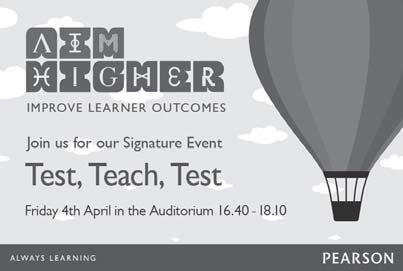
-223-
Day Planner
-223-
-224-
FLOORPLANS
The following pages contain the floorplans of the HIC and the Holiday Inn Hotel.
Page 225–Overview of the HIC
Level 5
Level 4
Level 3
Page 226–
Internet Café
Route to the Auditorium
Prayer room
Linkway to the hotel first floor
Registration
Exit to the hotel
Queen’s 1-9
Hall D (Poster presentations, Jobs Market & Online interview area)
Hall H (Exhibition & catering points)
King’s A & B
Halls Qa-Qf
Queen’s 1-9 Level 4
King’s A & B Level 3
Halls Qa-Qf Level 3 (access is from Level 4 foyer)
Page 227–
Level 4 foyer
Hall D
Registration
Poster presentations, Jobs Market & Online interview area
Hall H Exhibition & catering points
Room R
Session room
Exit to the hotel Via Level 4 foyer
Page 228–
Level 5 foyer
Internet Café
Route to the Auditorium
Prayer room
Linkway to the hotel first floor
Hotel Session rooms:
Bramham, Charter, Harewood 1 & 2, Newby, Ripley & Studley
Pages 229-230
We have also provided a pull-out version of all floorplans if you prefer to carry this with you.
Floorplans

your learners’ potential
Come and find out more about this brand new course on stand 19-24 at IATEFL.
Comeandfind onstand19-24a outmoreaboutthisb . ATEFLatIAT
iscover h D Watc amples e s Brows
Watch Discovery EducationTM videos from the course Browse samples of the books
Enter our competition on Thursday to win an iPad mini and a £50 voucher
Enterourcomp ouch 0 v 5 d a £ an ideos M v ucationT y Ed ooks e b h f t o o y t a etitiononThursday er
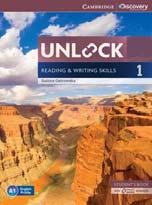

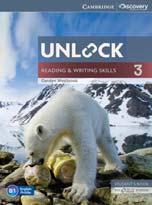
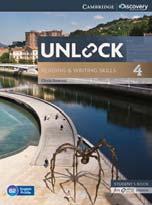
Unlock is a research-based academic skills course that prepares your learners for success in their studies by developing their critical thinking and language skills.
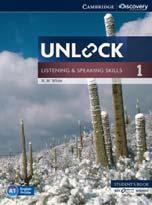
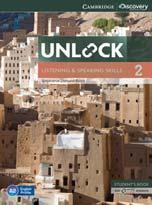
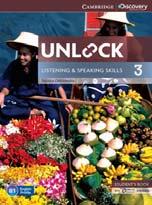
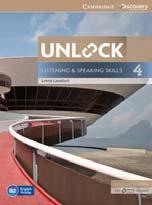
Floorplans
cambridge.org/unlock
nlo /u org cambridge ck e.
earners r l you brandnewcourse tential ’ po
owinaniPadmini esear
a
i
ea r l ou s y prepare successintheirst i gth i l d based
at hat e t rs u or s f fo rner udiesby l iti r e g t n op eve ang d l n g a thinkin ca cr . kills e s uag
ourse e c h m t fro
s
r
academicskillsco
- ch
OVERVIEW OF THE HIC
Floorplan of the venues
225 Internet Cafe Level 5 Foyer Lift up to Auditorium + down to Level 4 Foyer + Hall Q LinkwaytotheHotel(firstfloor) Lift Escalator up from Level 4 foyer To Prayer Room + IATEFL Meeting Room (Green Room) Steps Steps nwoD t o Level4 Up to Audit o r i u m Toilets Catering Points Session Room Cloakroom Stairs, lifts & escalators Bag Collection Online Interview Area Hall D Seating Room R ENTRANCE TO HALL D Hall H Jobs Market Toilets Lift Lift Steps Steps Steps Escalator Up from Hall Q Escalator Down to Hall Q IATEFL Technical Help Desk IATEFL Information Desk To the Hotel (Ground floor) Escalator Up to Level 5 (Exhibition & Catering points) Speaker Quiet Room Lift Cloakroom ENTRANCE TO HALL H To Registration & Hotel To Hall D & Queens 1-9 & Kings A + B Registration Desk Toilets Down to Hall Q Up to Level 5 & Auditorium Cateringpoints To Queen’s + King’s Up to Auditorium MAIN ENTRANCE (Entrance 1 Level 4 Foyer Lift MAIN ENTRANCE (Entrance 1) from King’s Road) Poster Presentations Poster Presentations Toilets King’s A King’s B Access from King’s Road Access via Escalator & Lift to and from Hall D/Queen’s KING’S A & B Toilets Lift QUEEN’S 1 - 9 Lift Up to Queen’s + Down to King’s Queen’s 3 Queen’s 2 Queen’s 1 Queen’s 9 Queen’s 7 Entrance from Foyer Queen’s 5 Stairs Up to Queen’s Escalator to King’s A & B + to King’s Road entrance To Hall D, Hall H & Registration (Level 4 foyer) Queen’s Foyer Lift from Level 4 Foyer IATEFL Committee Room (Morrison) Hall Q (Session rooms Qa to Qf) Access from Level 4 Foyer Escalator then Steps Up & Down from Level 4 Foyer HALL Q Qf Qa Qd Qb Qc Qe L ft Level 4 Level 5 Level 3 -225-
Floorplan of the venues
QUEEN’S 1 - 9
Queen’s, King’s & Hall Q -226Toilets Lift
Lift Up to Queen’s + Down to King’s Queen’s 3 Queen’s 2 Queen’s 1 Queen’s 9 Queen’s 7 Entrance from Foyer Queen’s 5 Lift from Level 4 Foyer IATEFL Committee Room (Morrison) Hall Q (Session rooms Qa to Qf) Access from Level 4 Foyer Toilets Toilets Session Rooms Escalators, Stairs & Lifts Stairs Up to Queen’s Escalator to King’s A & B + to King’s Road entrance To Hall D, Hall H & Registration (Level 4 foyer) King’s A King’s B Access from King’s Road Access via Escalator & Lift to and from Hall D/Queen’s KING’S A & B Escalator then Steps Up & Down from Level 4 Foyer HALL Q Qf Qa Qd Qb Qc Qe Lift Queen’s Foyer -226-
Floorplan of the venues
Level 4 foyer (Registration), Hall H (Exhibition) & Hall D (Poster presentations, Jobs Market & Online interview area)
Bag Collection
-227Toilets Catering Points Session Room Cloakroom Online Interview Area Hall D Seating Room R ENTRANCE TO HALL D Hall H Jobs Market Toilets Lift Lift Steps Steps Steps Escalator Up from Hall Q Escalator Down to Hall Q IATEFL Technical Help Desk IATEFL Information Desk To the Hotel (Ground floor) Escalator Up to Level 5 (Exhibition & Catering points) Speaker Quiet Room Lift Cloakroom ENTRANCE TO HALL H To Registration & Hotel To Hall D & Queens 1-9 & Kings A + B Registration Desk Toilets Down to Hall Q Up to Level 5 & Auditorium Catering points To Queen’s + King’s Up to Auditorium MAIN ENTRANCE (Entrance 1 Level 4 Foyer Lift Stairs, lifts & escalators MAIN ENTRANCE (Entrance 1) from King’s Road) etsoP r Presentations Poster Present a tio n s -227-
Floorplan of the venues
Stairs & Lifts Toilets Session Rooms
5 Internet Cafe Level 5 Foyer Lift up to Auditorium + down to Level 4 Foyer + Hall Q
Lift Escalator up from Level 4 foyer To Prayer Room + IATEFL Meeting Room (Green Room) FIRST FLOOR GROUND FLOOR Holiday
first & ground floors Linkway to the HIC (Level 5) Charter Bramham Ripley Studley Newby Toilets Lifts Stairs Harewood 1 Harewood 2 Bar & Lounge Hotel Reception Lifts Stairs Toilets Toilets Lobby Main Hotel Entrance Steps Steps nwoD t o Level4 Up to Audit o r i u m Stairs, Lift & Escalator Toilets -228-
Level
LinkwaytotheHotel(firstfloor)
Inn Hotel
Pocket Venue Map
Level 5 Internet Cafe Level 5 Foyer Lift up to Auditorium + down to Level 4 Foyer + Hall Q LinkwaytotheHotel(firstfloor) Lift Escalator up from Level 4 foyer To Prayer Room + IATEFL Meeting Room (Green Room) Steps Steps nwoD t o Level4 Up to Audit o r i u m Toilets Catering Points Session Rooms Cloakroom Stairs, Lifts & Escalators Bag Collection Online Interview Area Hall D Seating Room R ENTRANCE TO HALL D Hall H Jobs Market Toilets Lift Lift Steps Steps Steps Escalator Up from Hall Q Escalator Down to Hall Q IATEFL Technical Help Desk IATEFL Information Desk To the Hotel (Ground floor) Escalator Up to Level 5 (Exhibition & Catering points) Speaker Quiet Room Lift Cloakroom ENTRANCE TO HALL H To Registration & Hotel To Hall D & Queens 1-9 & Kings A + B Registration Desk Toilets Down to Hall Q Up to Level 5 & Auditorium Cateringpoints To Queen’s + King’s Up to Auditorium MAIN ENTRANCE (Entrance 1 Level 4 Foyer Lift MAIN ENTRANCE (Entrance 1) from King’s Road) Poster Presentations Poster Presentations Level 4 foyer (Registration), Hall H (Exhibition) & Hall D (Poster presentations, Jobs Market & Online interview area) Toilets Internet Cafe Stairs, lifts & escalators -229-
Level 3, Queen’s, King’s & Hall Q
Toilets Session Rooms Stairs, Lifts & Escalators Toilets Lift QUEEN’S 1 - 9 Lift Up to Queen’s + Down to King’s Queen’s 3 Queen’s 2 Queen’s 1 Queen’s 9 Queen’s 7 Entrance from Foyer Queen’s 5 Stairs Up to Queen’s Escalator to King’s A & B + to King’s Road entrance To Hall D, Hall H & Registration (Level 4 foyer) Queen’s Foyer Toilets King’s A King’s B Access from King’s Road Access via Escalator & Lift to and from Hall D/Queen’s KING’S A & B Lift from Level 4 Foyer IATEFL Committee Room (Morrison) Hall Q (Session rooms Qa to Qf) Access from Level 4 Foyer Escalator then Steps Up & Down from Level 4 Foyer HALL Q Qf Qa Qd Qb Qc Qe Lift Stairs & Lifts Toilets Session Rooms FIRST FLOOR GROUND FLOOR Holiday Inn Hotel first & ground floors Linkway to the HIC (Level 5) Charter Bramham Ripley Studley Newby Toilets Lifts Stairs Harewood 1 Harewood 2 Bar & Lounge Hotel Reception Lifts Stairs Toilets Toilets Lobby Main Hotel Entrance -230-
Official exam preparation materials
Prepare your students for exam success with our unique range
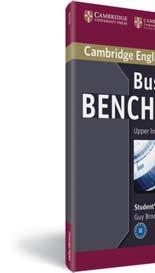


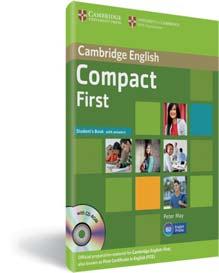
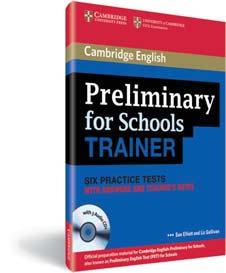

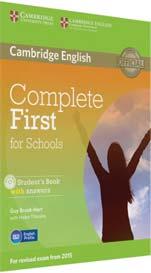

Visit stand no. 19-24





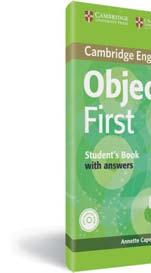


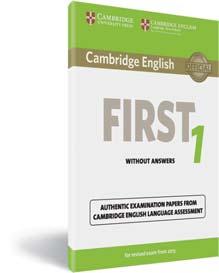
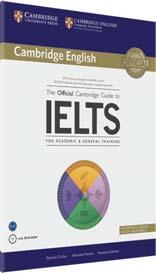


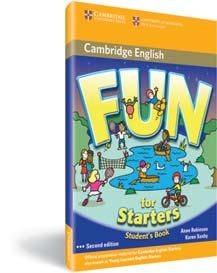

IMPROVE LEARNER OUTCOMES
Are you looking to use technology to improve your learner outcomes?
Come and talk to the Pearson team about how we support blended learning.
Don’t miss these popular sessions. Our stand is conveniently located opposite the café.
Wednesday • The Cambridge English Exams are changing
Thursday • Bridging the Gap between GE and EAP Introducing 21st Century skills
Friday • Using blended learning solutions in your teaching • Measuring and reporting students progress in English
Saturday • Simplifying Secure English Language Testing Join us for the Pearson Signature Event - Test, Teach, Test Friday 4th April in the Auditorium 16.40 - 18.10
www.pearsonelt.com/IATEFL2014 Follow us @Pearson_ELT www.facebook.com/PearsonELT #learningoutcomes VISIT US ON STAND 41

























 CarolRead IATEFLPresident
CarolRead IATEFLPresident






























































































































































































































































































































































